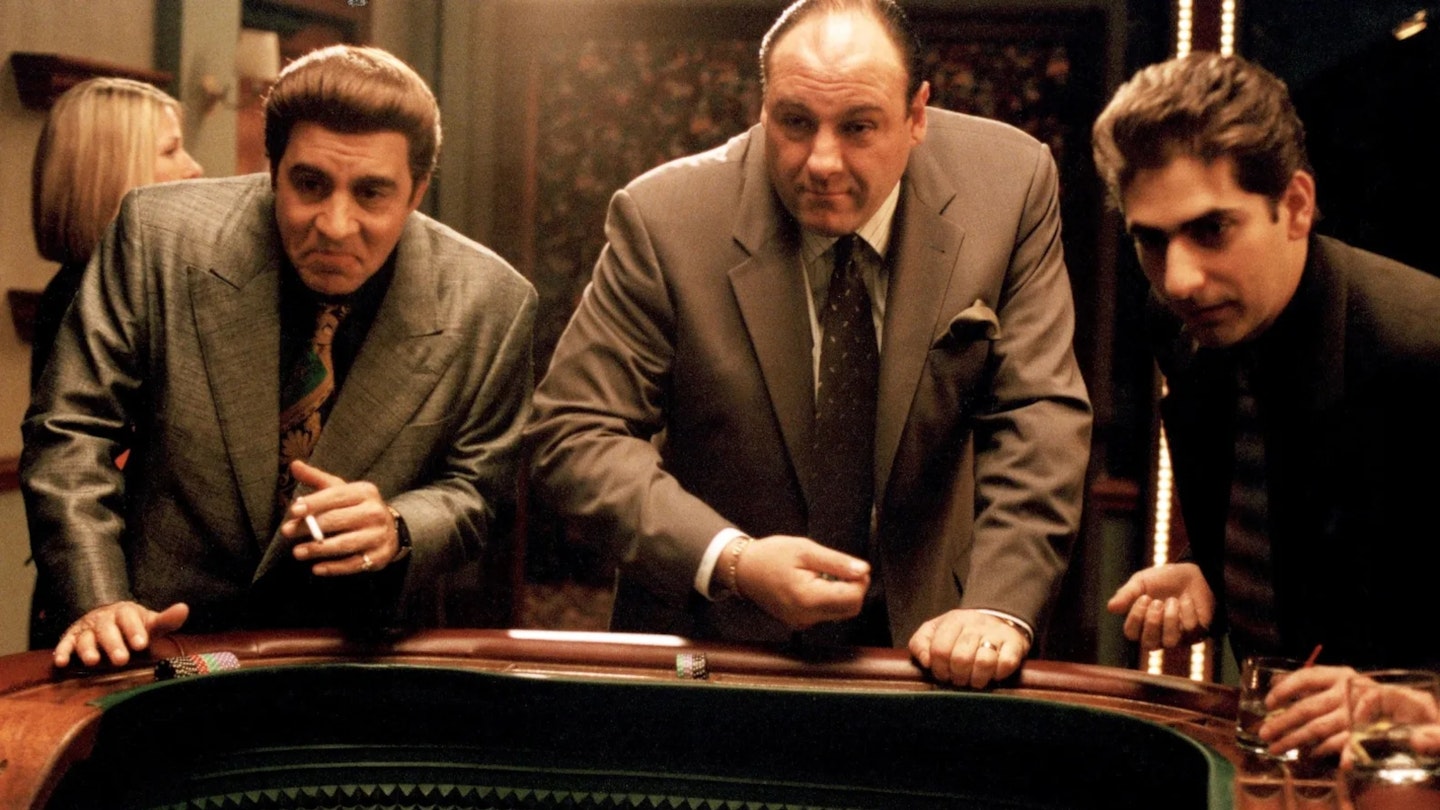The TV. The box. The telly. The small screen. The television set (if you want to be formal). Call it what you want, we’re living in its golden age. Distant is the memory of a time where all you had was a fistful of channels on your nan’s terrestrial static magnet — now, we’re simply spoiled for choice. The old guard are still going strong; your BBCs, your Channel 4s and your Skys are always ready with a Line Of Duty here, a Derry Girls there. But now, with the advent of streaming, the content pool has become a veritable ocean as Disney+, Netflix, Apple TV+, Prime Video, and dozens more have come along, all duking it out for our viewing attention with a slew of spectacular series and bingeable box-sets.
So where on Earth do you start? Well, here. After collating all the votes of the Empire readership, we've tallied the results and can now reveal the definitive list of Empire's 100 greatest TV shows of all time. From timeless classics to the very latest in long-form storytelling, from side-splitting sitcoms to cerebral crime dramas, this list spans them all. Limited series, literary adaptations, daring originals, franchise spin-offs, ongoing serials and everything in between — we left no stone unturned, no show unwatched. So get nice and comfortable, and join us on the ultimate televisual odyssey.
100) Girls (2012-2017)
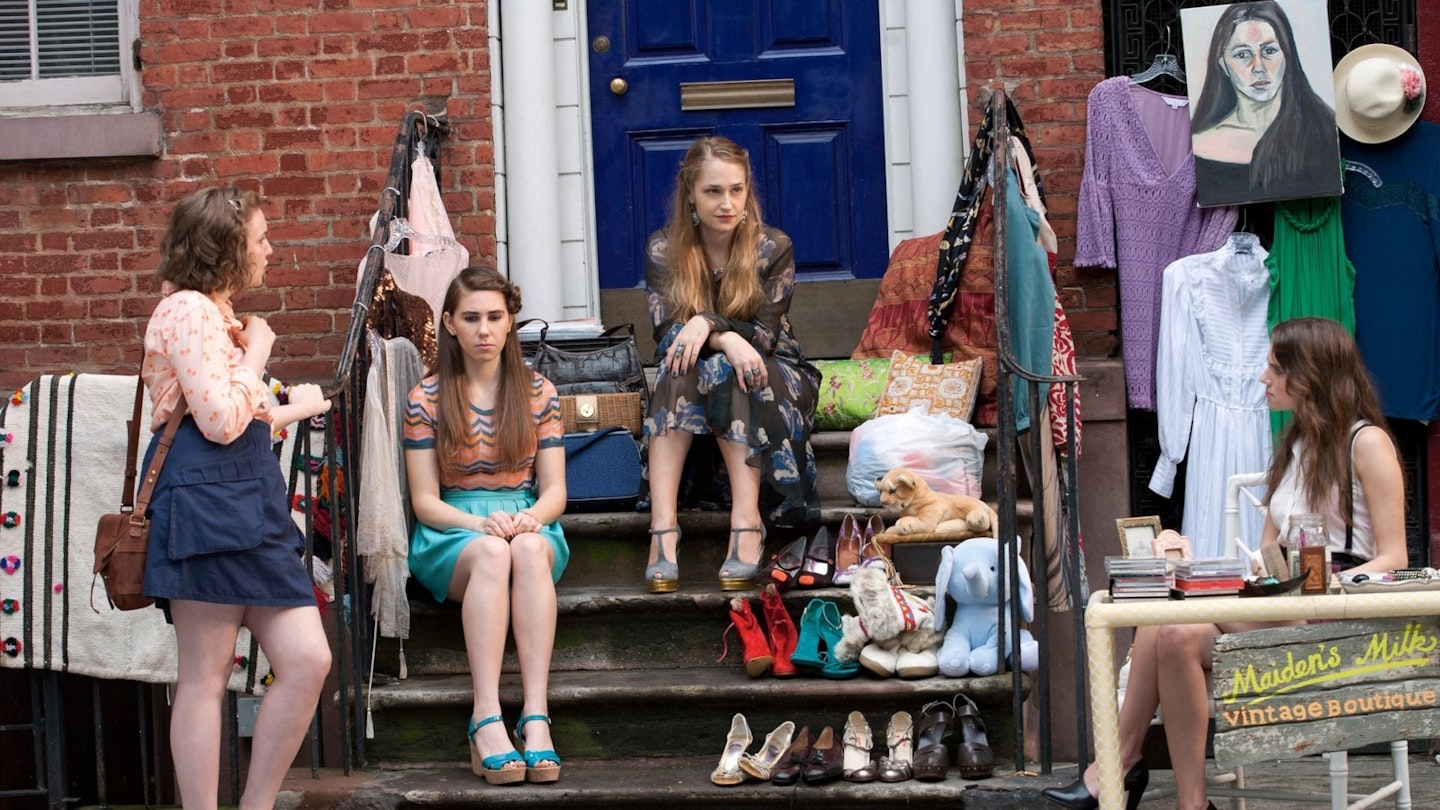
Pitching itself as a sort of anti-Sex And The City for the post-feminist mumblecore age, Lena Dunham’s Girls — which follows aspiring writer Hannah (Dunham) and her twenty-something gal pals as they navigate their twenties in the Big Apple — garnered a loyal following for its authentic depiction of young womanhood and Dunham’s raw, almost confessional, entirely unapologetic mode of writing. Whilst its creator has never strayed far from controversy — the line where Hannah ends and Dunham begins is blurred, to say the least — there is no denying that Girls changed the game for half-hour dramedies, blazing a trail the likes of Michaela Coel’s Chewing Gum and Phoebe Waller-Bridge’s Fleabag (more on that later) would follow. We can also thank Girls for Adam Driver’s rise to prominence; his three-time Emmy-nominated supporting role as the at-once rootable and reviling Adam made the former Marine a household name.
99) Father Ted (1995-1998)
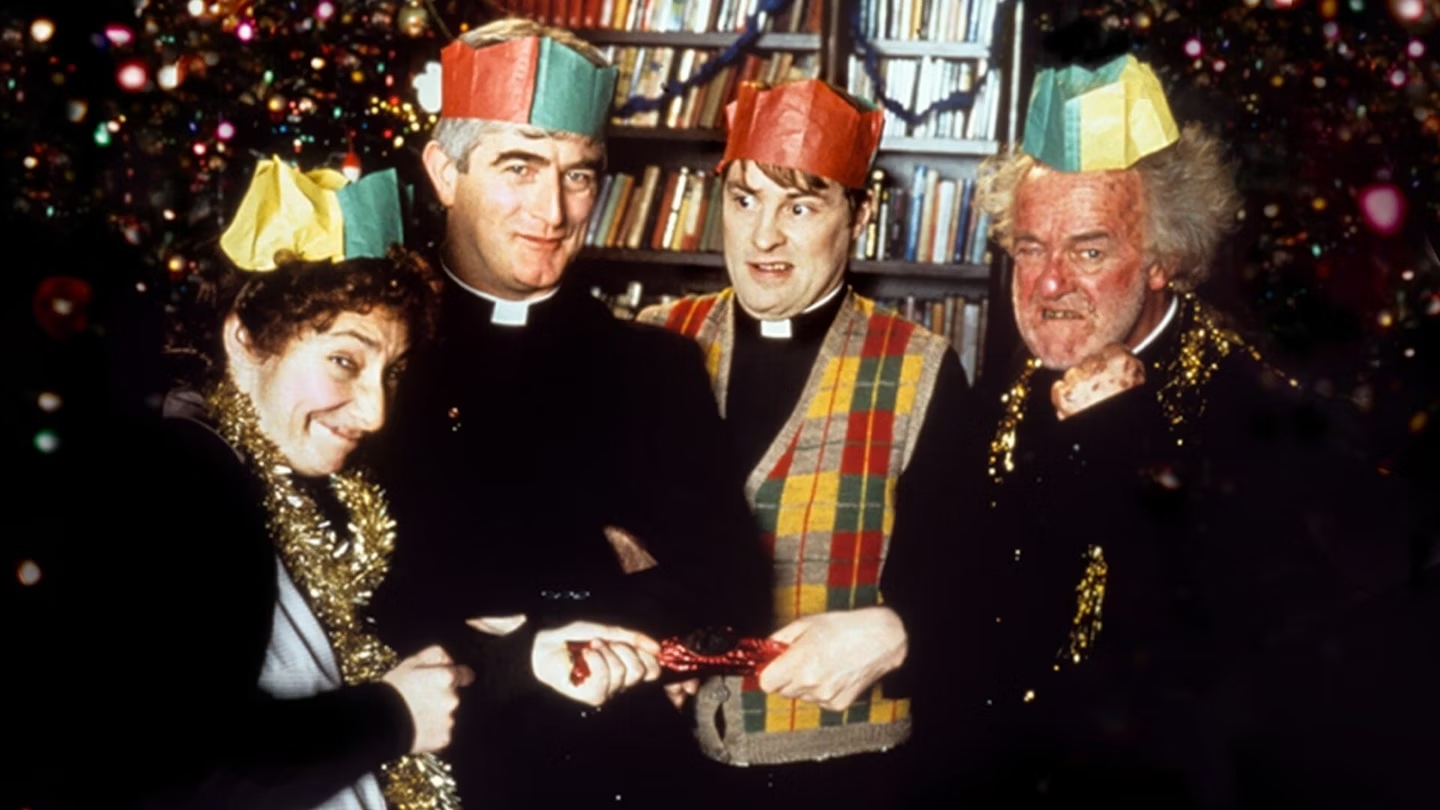
The story of three priests stuck on the world's least-appealing parish (Craggy Island, off the coast of Ireland) doesn't sound like it would be the most compelling source of comedy. And yet Father Ted really, really works. Dermot Morgan's Father Ted Crilly, punished for stealing (the money was "resting" in his account, honest), lives with supreme idiot Dougal (Ardal O'Hanlon) and drunken nuisance Jack Hackett (Frank Kelly), each episode cooking up some new madness for the trio to become embroiled in – with highlights including Ted leading a pack of terrified priests through a lingerie section as if they're in a war film, and a recreation of Speed on a milk float.
98) The Good Wife (2009-2016)
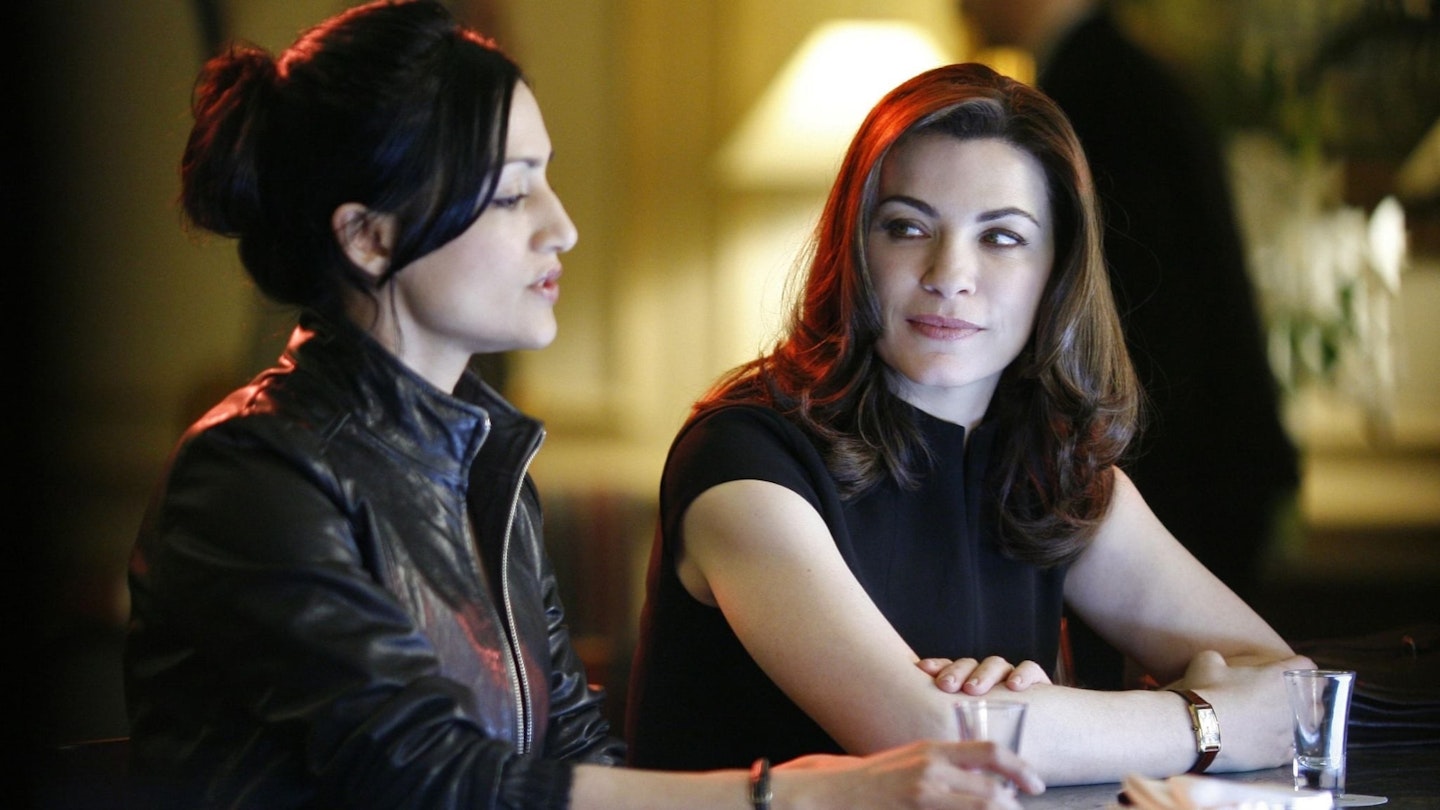
Robert and Michelle King's legal drama follows Alicia Florrick (Julianna Margulies), who put her flourishing legal career on hold to support her husband's (Chris Noth) political ambitions, as she returns to the fray after a devastating cheating scandal. She soon works her way up the ranks at a prestigious firm, all the while dealing with her own life and choices. The series may get its title from Margulies' character, but the highlights are often found elsewhere, like in Christine Baranski's spiky senior partner Diane Lockhart, Archie Panjabi's hard-nosed investigator Kalinda, and the idiosyncratic characters who populate the Chicago legal world (Michael J Fox's Louis Canning being a particular highlight). Not to mention the show's commitment to thoughtfully tackling topical issues. The spirit of The Good Wife (with the added ability for its characters to swear) lives on in spin-off The Good Fight.
97) NYPD Blue (1993-2005)
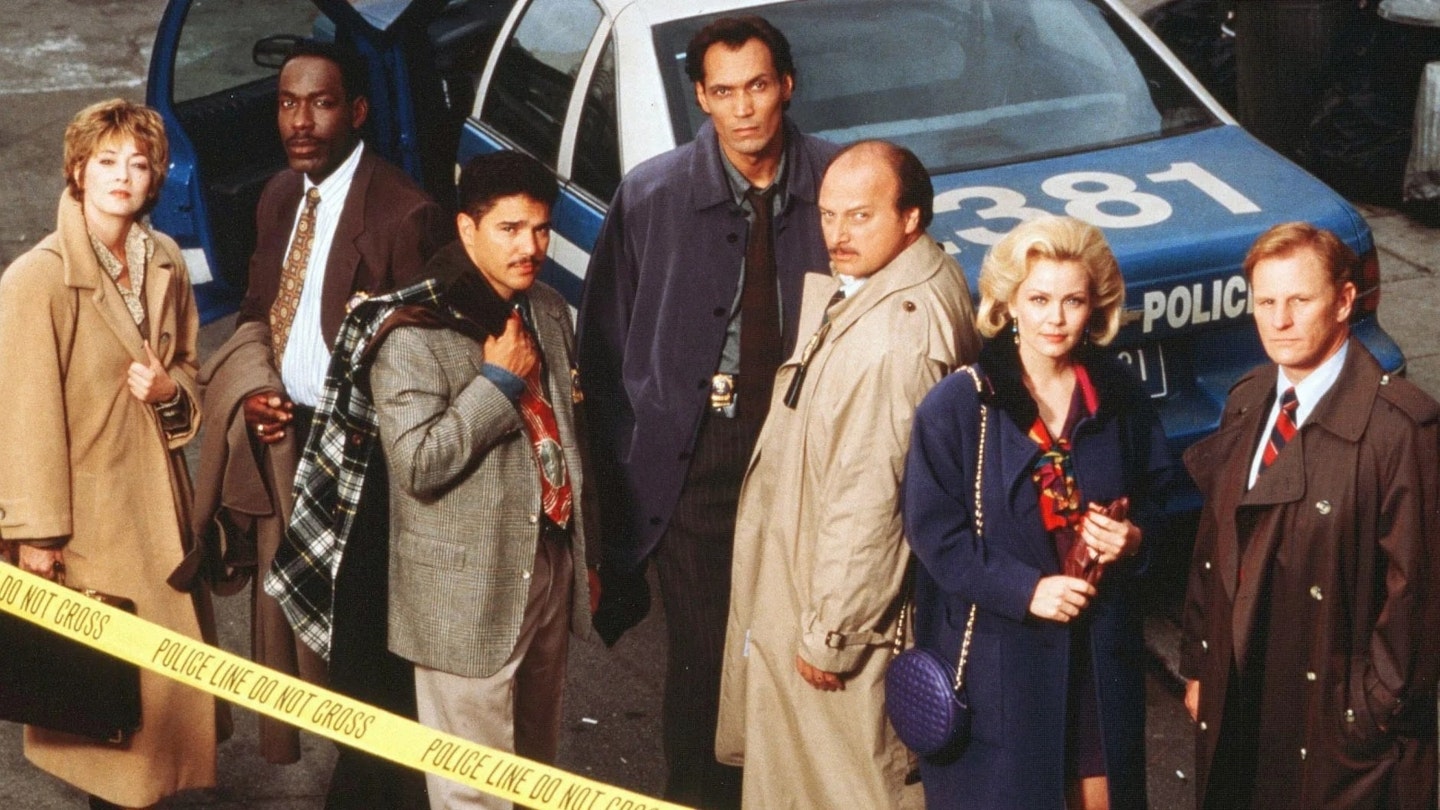
Most famous for pushing the boundaries of what was allowed on American network television, NYPD Blue is better remembered for the characters it created than the controversies. Creators Stephen Bochco and David Milch brought indelible people to the screen, as Dennis Franz' complicated, cranky Andy Sipowicz grumbled his way through day-to-day detective police work. David Caruso pulled the ripcord and left after Season One (he would regret it), but the show went from strength to strength, Franz finding his most solid partnership with Jimmy Smits' Detective Bobby Simone. Many police series of the modern era owe thanks to the Blue team, and it's still missed.
96) Narcos (2015-2017)
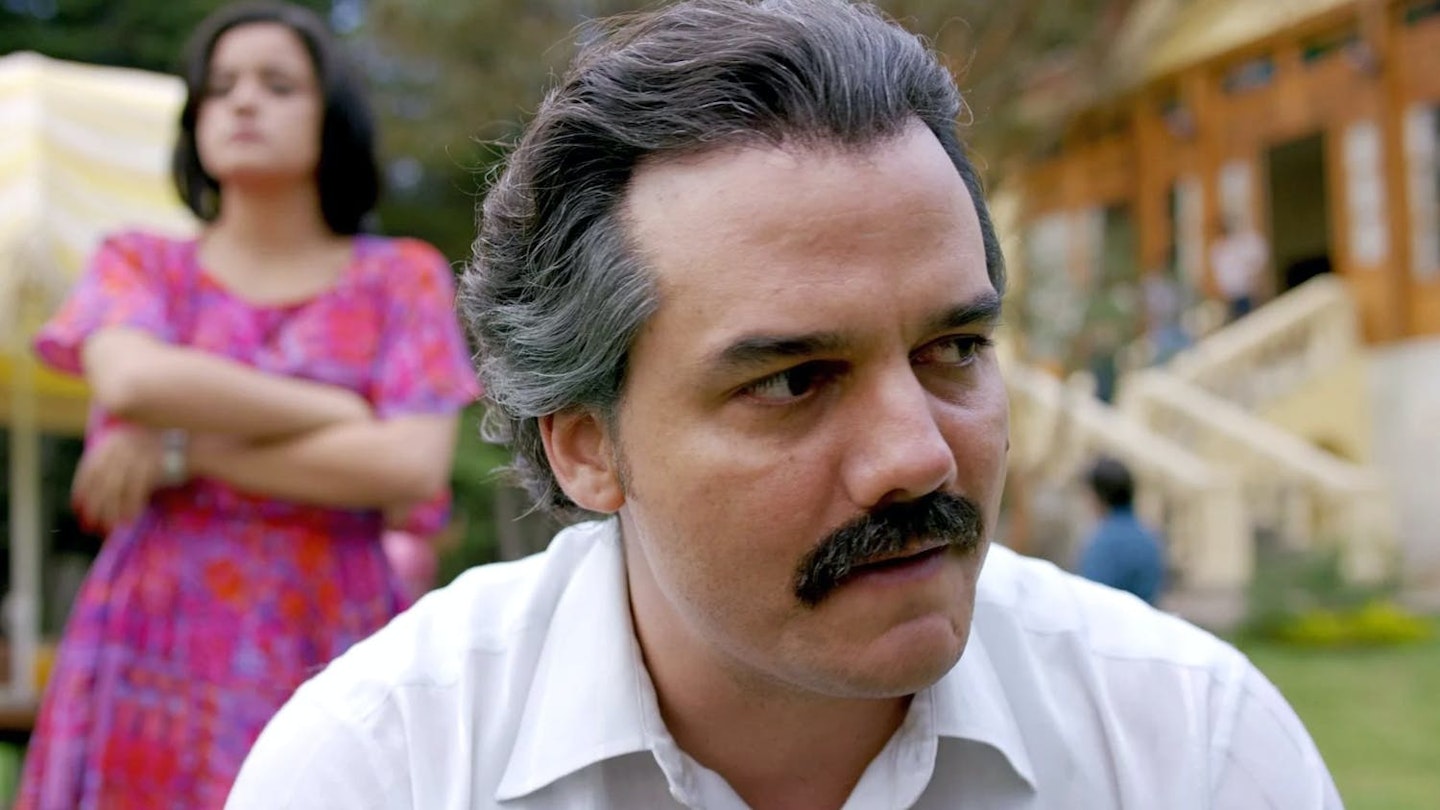
Since supplanted by Narcos: Mexico, Netflix's historical crime drama focuses on the exploits of Colombian drug lord Pablo Escobar, as well as the other drug kingpins who plagued the country through the years. Narcos has a lot to recommend it – not least, it's able to show more sides of Escobar's life than most of the movies that have been made about him, as well as the stories of the agents looking to take him down. Wagner Moura brings layers to Escobar, while Pedro Pascal and Boyd Holbrook make for an effective tag team on the lawful side of history. The story is gripping, and while it naturally has to invent some events, it feels largely authentic.
Read the Empire review here.
95) Gilmore Girls (2000-2007, 2016)
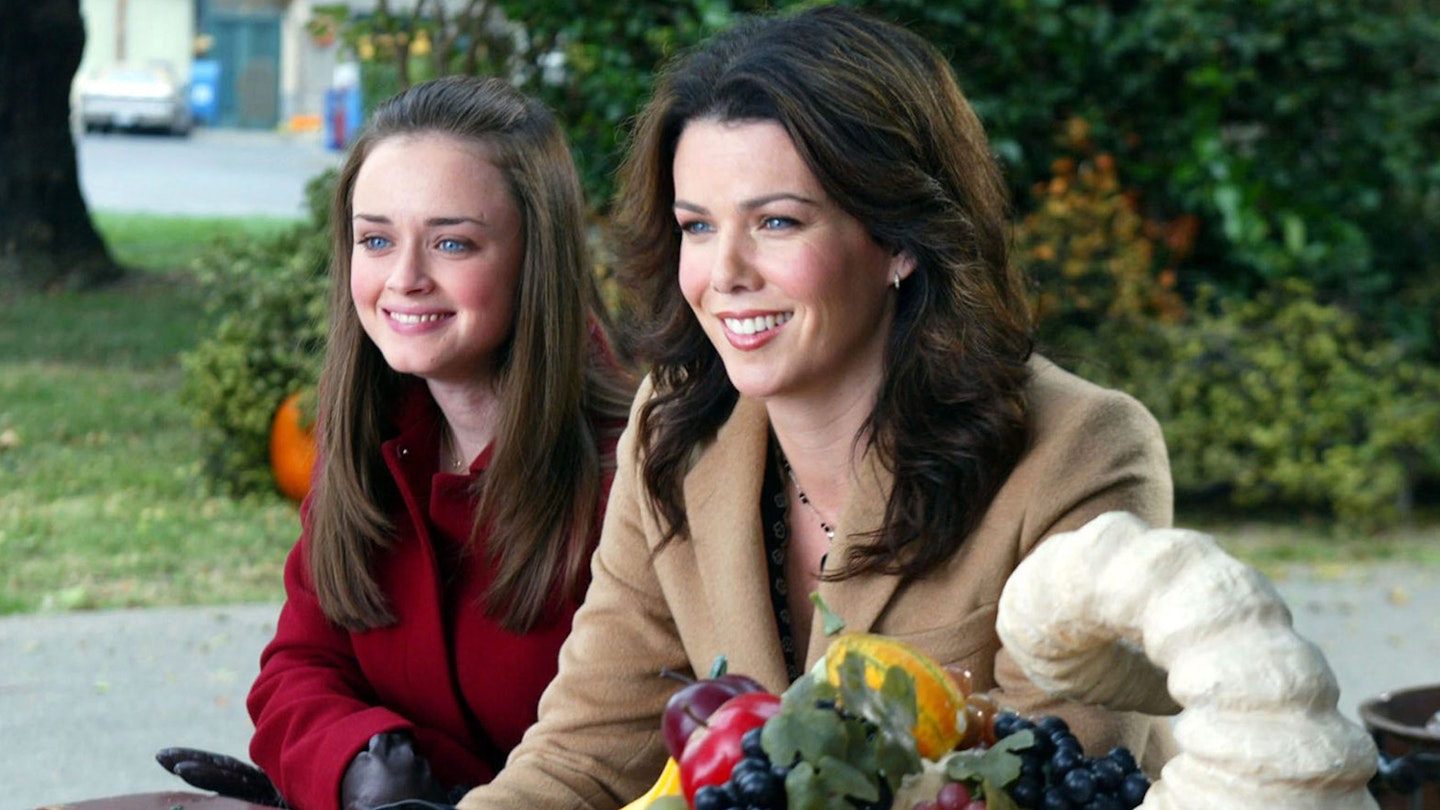
The sublime pleasure of Gilmore Girls lies in its witty, fast-paced dialogue and the heart-warming (occasionally fractious) mother-daughter relationship between Lorelei (Lauren Graham) and Rory Gilmore (Alexis Bledel). The cozy town of Stars Hollow is the setting for a show which delights in oddball characters and light dramatic tension, as Rory grows up and Lorelei starts to think about settling down. Its stacked cast includes a pre-fame Melissa McCarthy, Kelly Bishop as Lorelei's imposing mother Emily, and a small but memorable role for Sean 'performance capture and on-set creator of Rocket Racoon' Gunn. The show's return in a set of seasonal Netflix instalments couldn't quite capture the same magic – but it was a high bar to clear.
94) Brooklyn Nine-Nine (2013-2021)
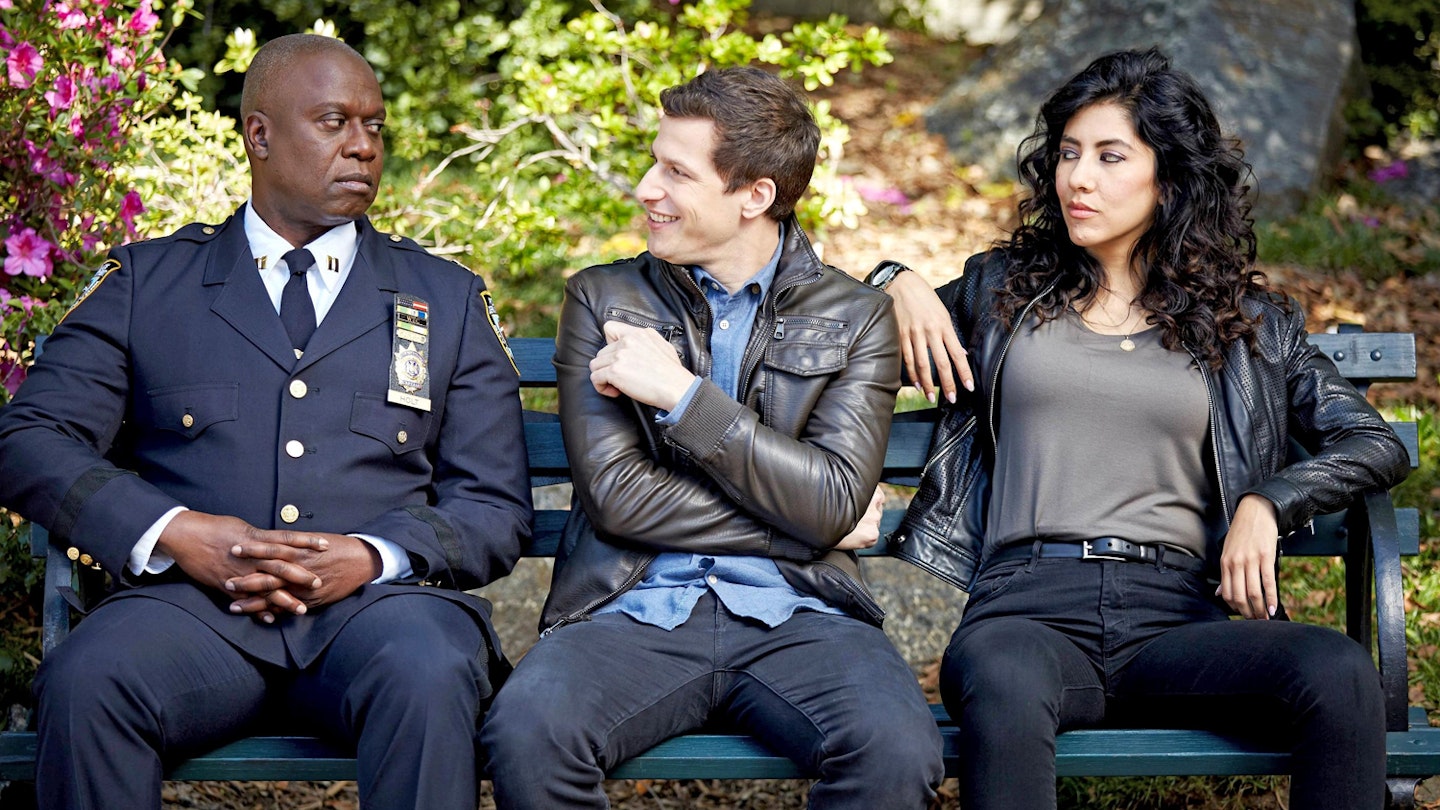
Created by Dan Goor and Michael Schur, who honed their craft on shows such as The Office and Parks And Recreation, Brooklyn Nine-Nine continues those series' mix of friendly, warm comedy delivered by talented ensembles. Set in the titular New York police department precinct, it ostensibly follows goofy but dedicated detective Jake Peralta (Andy Samberg), but quickly branched out to properly encapsulate his colleagues – including a scene-stealing Terry Crews as Terry Jeffords, and the late, great Andre Braugher, who generates some of the biggest laughs trading on his Homicide: Life On The Street past as the gruff Captain Holt. Able to straddle silly gags and deeper treatments of certain issues (such as racial profiling), Nine-Nine grew and grew over the years, satisfying the masses right up until its poignant finale.
93) Columbo (1968-2003)
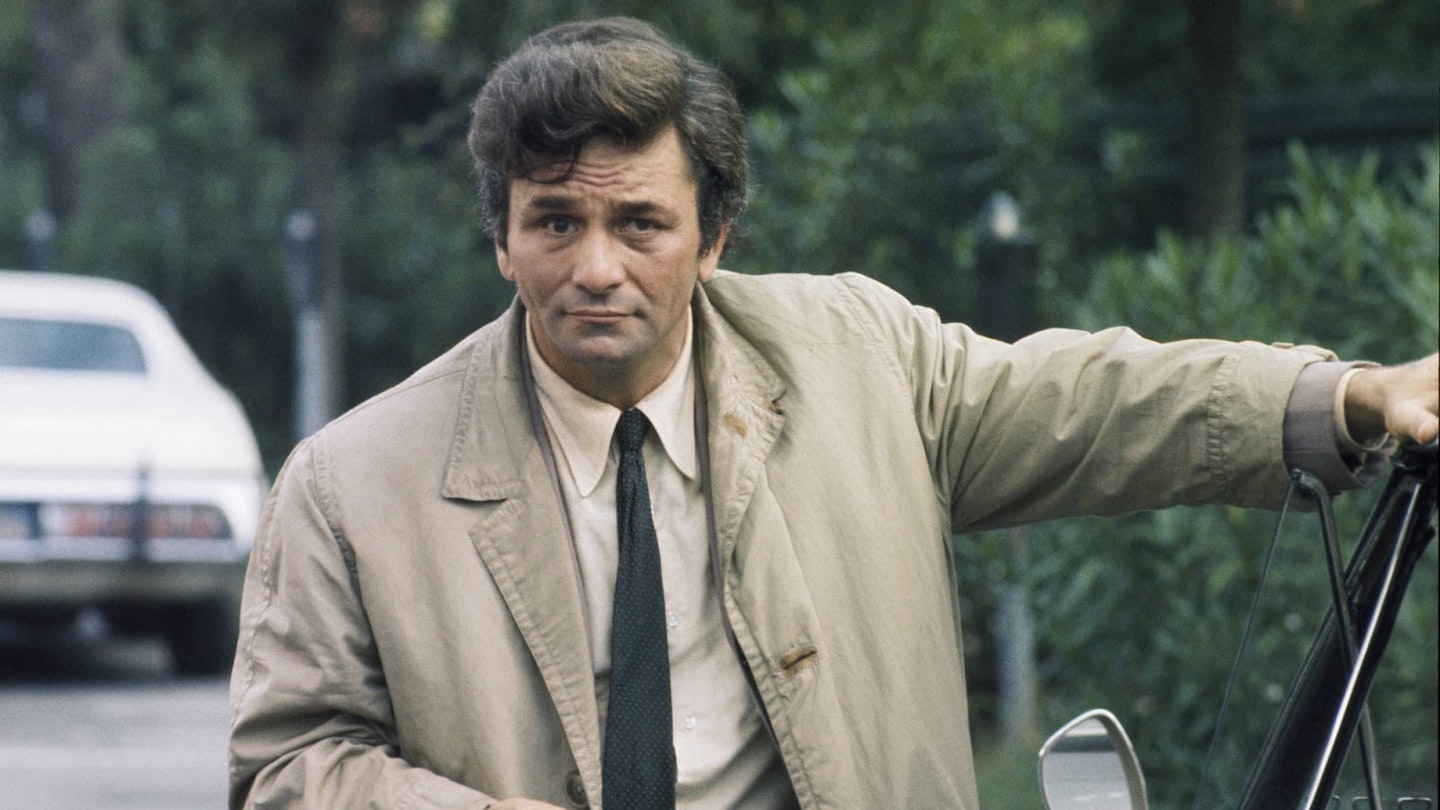
With his crumpled coat, shaggy hair, perpetually lit stogie, and a twinkle in the eye that invariably precipitates a scratch of the head and a “Just one more thing…” gotcha, Lieutenant Columbo — brilliantly embodied by the inimitable Peter Falk — is surely the most iconic TV detective of all time. And Columbo, which ran for over a quarter-century between 1968 and 2003, is for a great many the defining TV detective series. The show that helped launch Steven Spielberg’s career and boasted in its time a slew of phenomenal guest stars (William Shatner! Johnny Cash! Janet Leigh! Vincent Price!), the secret to Columbo’s success, beyond its star power, was always its maverick inverse approach to the murder mystery. As viewers, we always know whodunnit from the get-go; the thrill comes from seeing how Columbo catches ‘em, lulling killers and crooks into a false sense of security with his marital anecdotes and scatterbrained ramblings. And if the Lieutenant ever asks to borrow your pen? Your days are numbered, friend.
92) Cheers (1982-1993)
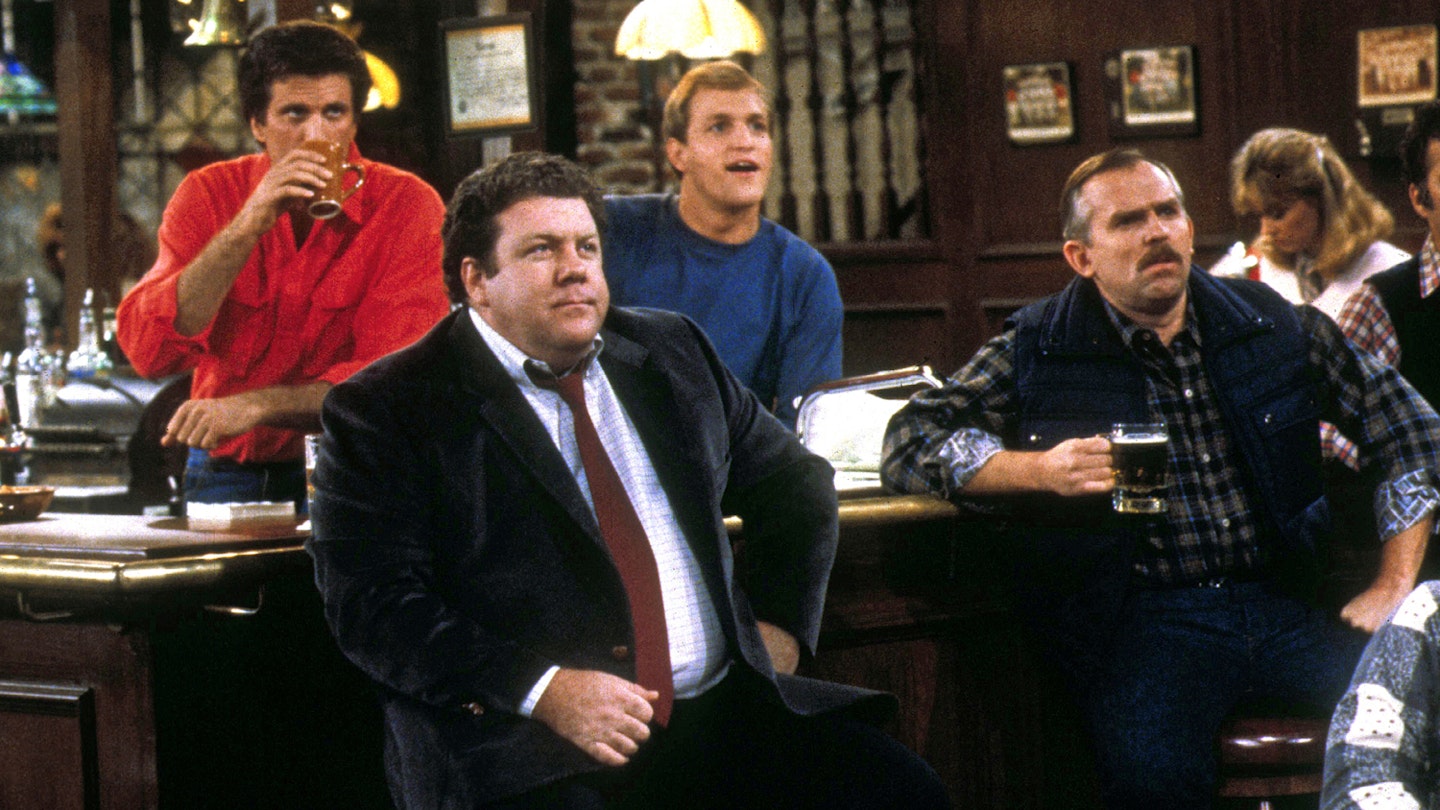
"Sometimes you want to go," runs the iconic theme tune, "where everybody knows your name." And given the ratings of this massive smash success, one of the most famous Stateside sitcoms of all time, it seems that near-everybody did know the characters who frequented Cheers' Boston bar. You'll absolutely know the names of its cast members, too – the show making stars of Ted Danson, Kirstie Alley, Kelsey Grammer, John Ratzenberger, Woody Harrelson, Rhea Perlman, Shelley Long and George Wendt. Don't let the largely one-room setting fool you – Cheers is a masterpiece of construction, with finely-tooled gags , well-sketched characters, and familiar rhythms delivered with clear panache. There's a reason it ran for more than 10 years, spawning the just-as-successful Frasier.
91) Barry (2018-2023)
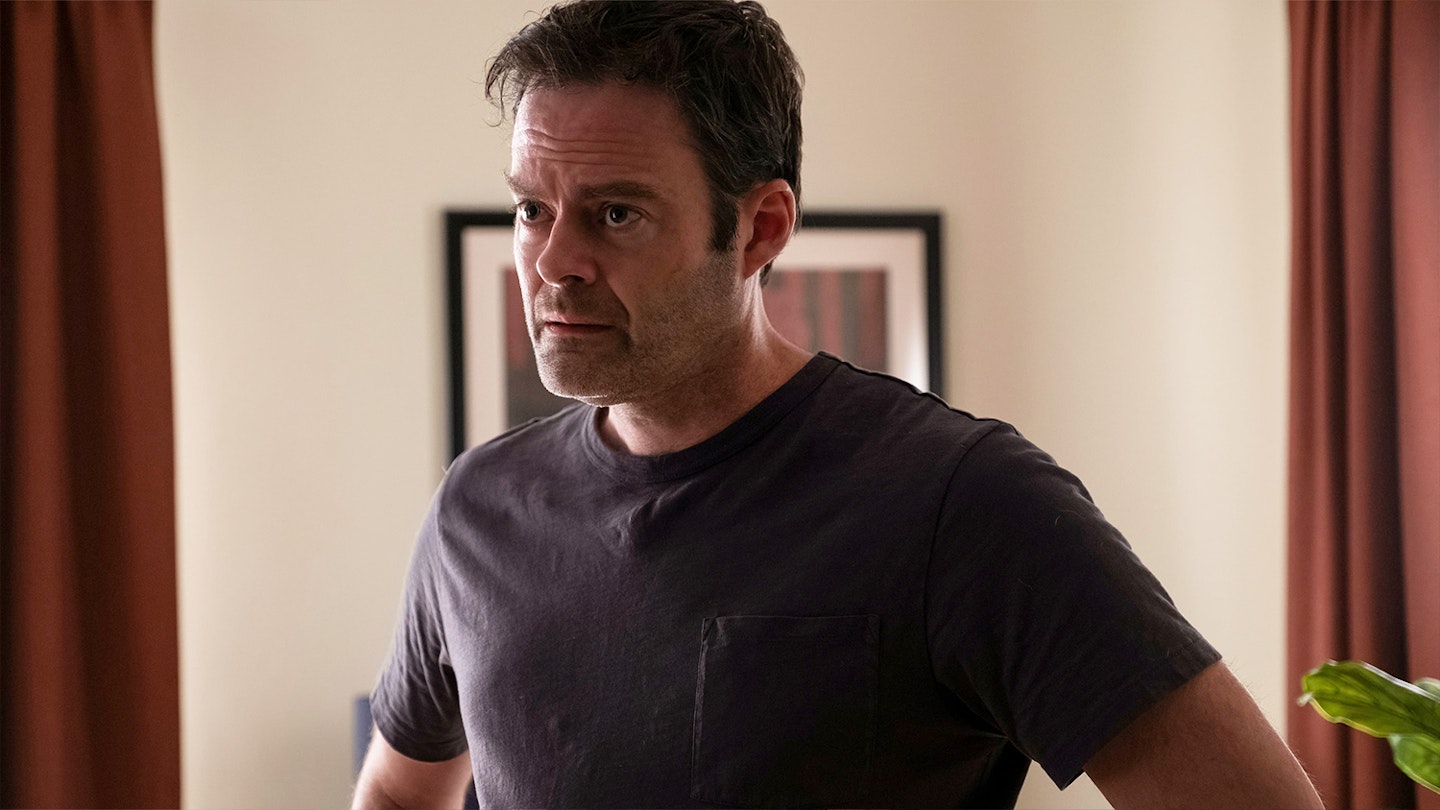
There was a time when Bill Hader was best known for being ‘that dude from Saturday Night Live with all the impressions’. And then Barry happened. Serving as writer, star, and eventually director too (and a hell of a director at that), Hader reinvented himself entirely with this chronicle of guilt-ridden-hitman-turned-aspiring-actor Barry Berkman and his attempts to start over in the City of Angels. Dark, brutal, and blacker-than-blackly comic, Across four astonishing seasons, Hader evolved from being an ensemble funnyman to a fully-fledged television auteur, continually defying expectations with the emotional richness of his writing and the visual dynamism of his filmmaking. By the end of its run, the show’s didactic function as both potent meditation on the cycle of violence in America and stone-cold satire of showbusiness placed Barry — and Hader — in a league of their own.
Read the Empire review here.
90) Red Dwarf (1988-1999, 2009-2020)
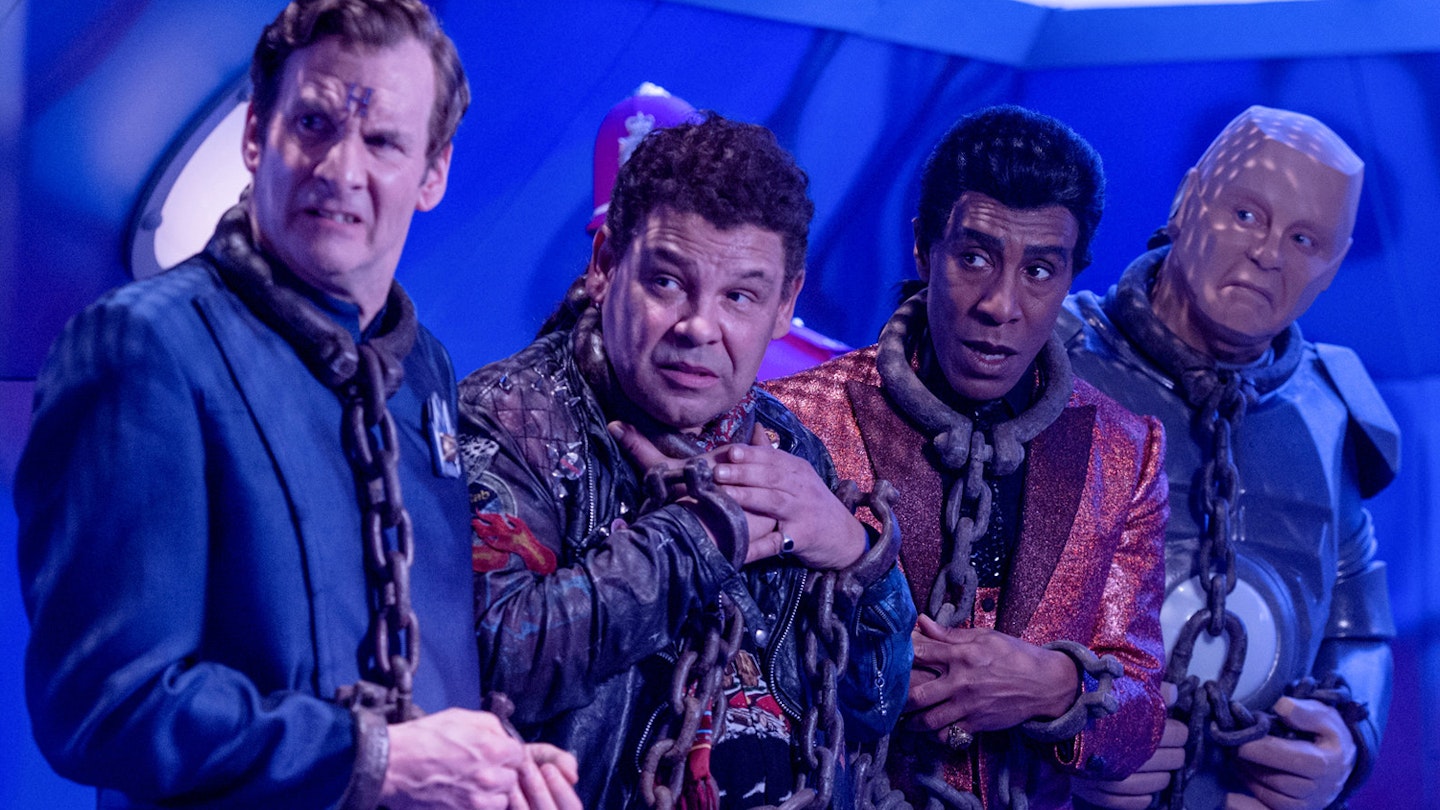
The UK has often tackled sci-fi on the small screen, but the sci-fi comedy is a much rarer beast. Red Dwarf at its prime was one of our greatest examples: the budget may not have been intergalactic, but the characters pinged off each other and the vast majority of the jokes landed. Dave Lister (Craig Charles) is the last man left alive on the eponymous mining vessel, with just an uptight hologram (Chris Barrie's Rimmer, an all-time great comedy loser snob), an evolved cat-man (Danny John-Jules' ebullient, vain Cat), a nervy android (Robert Lewellyn's Kryten) and the ship's less-than able computer Holly (Norman Lovett) for company. The show expanded beyond its initial concept and enjoyed a decade-long revival run on Dave, but those early seasons remain the glory days.
89) Peep Show (2003-2015)
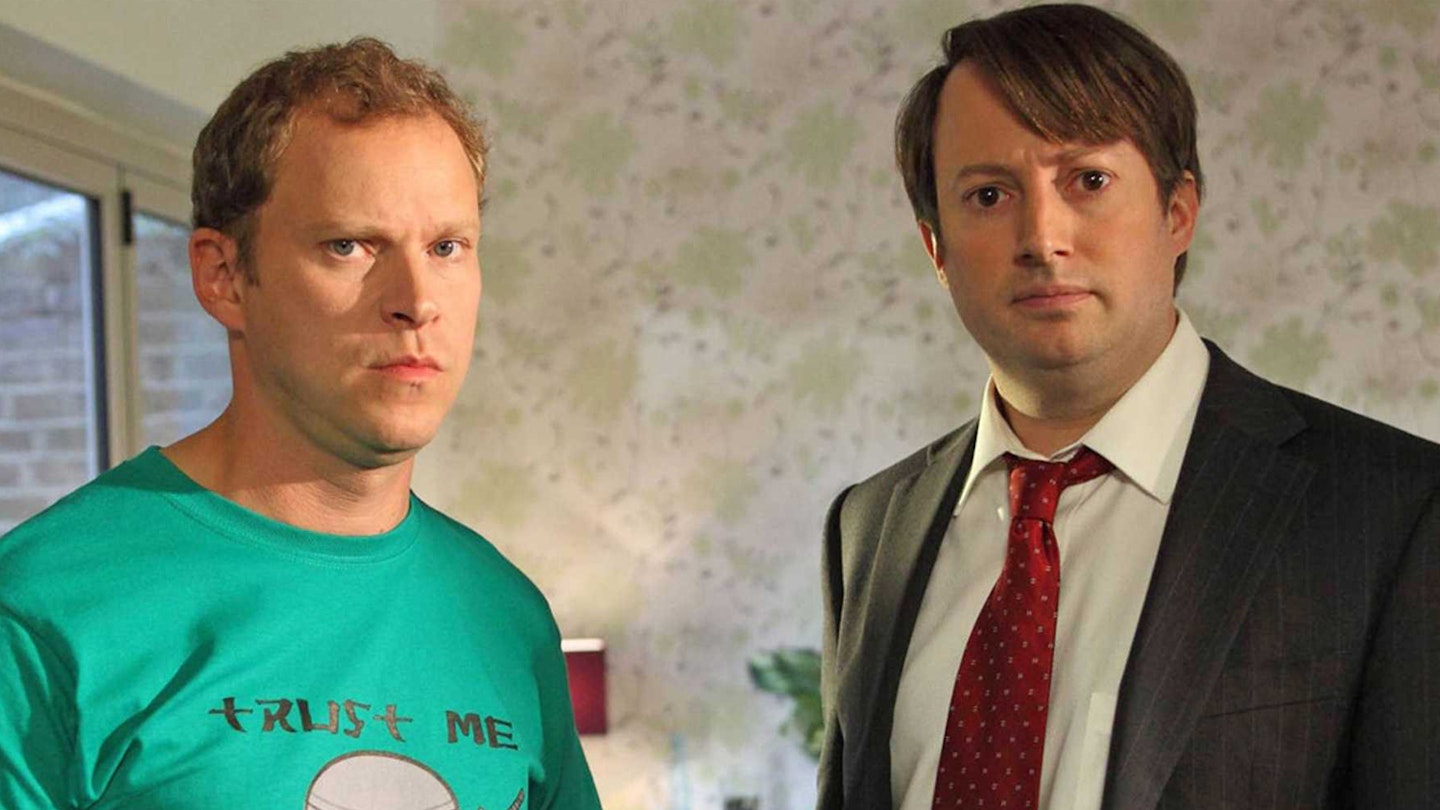
The comedy of cringe was rarely more keenly detailed than in this series, which inflated awkwardness to new heights. Created by Andrew O'Connor, Sam Bain and Jesse Armstrong, Peep Show has the novel concept of being entirely shot from the point of view of lead idiots Mark (David Mitchell) and Jez (Robert Webb). Their lives, lusts and absolute howlers of social mistakes are all documented: Mark's the uptight bumbler who thinks he's holding on to moral views, whereas Jez can rarely seem to let go of his youthful days despite the fact he's only around 10% cooler than his roommate. The writing stays incredibly strong across all nine series, bolstered by great supporting work from Olivia Colman, Patterson Joseph, Matt King and more.
88) The Expanse (2015-2022)
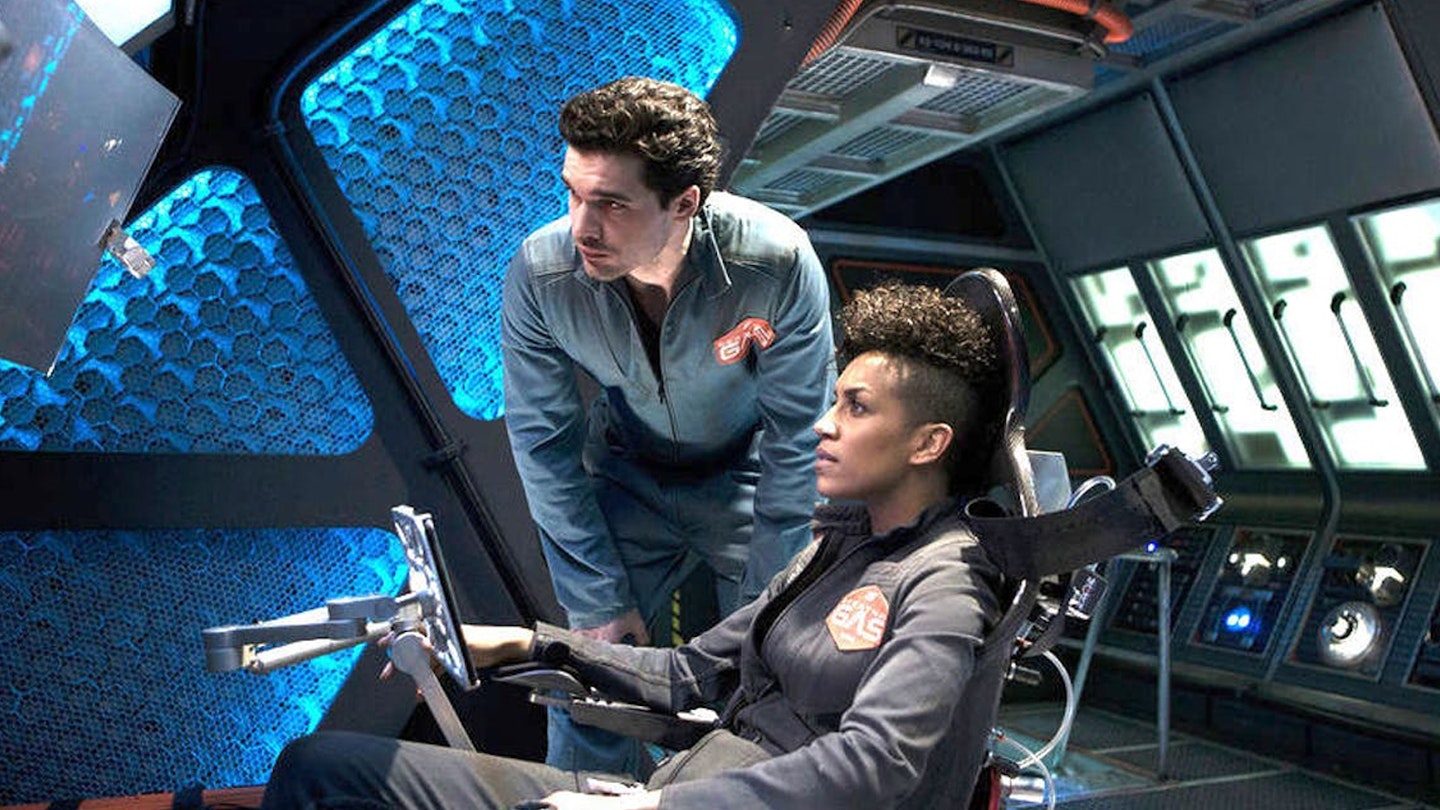
Set hundreds of years in the future, at a time where humans have colonized the solar system, the U.N. controls Earth, and Mars is an independent military power, The Expanse is a wildly ambitious and meticulously constructed adaptation of novelist James SA Corey’s (actually Daniel Abraham and Ty Franck) sci-fi book series. Blending smart, humanistic science fiction with relatable characters (and, as the series progresses, a growing alien presence), the show begins as a space-set mystery and gradually expands into an epic space opera steeped in astro-politics and delightfully knotty character drama. The series survived cancellation at SyFy, completing its six season run at Amazon (where Shohreh Aghdashloo's delightfully potty-mouthed Chrisjen Avasarala could really tear loose), and securing its place in TV history in the process.
87) Veep (2012-2019)
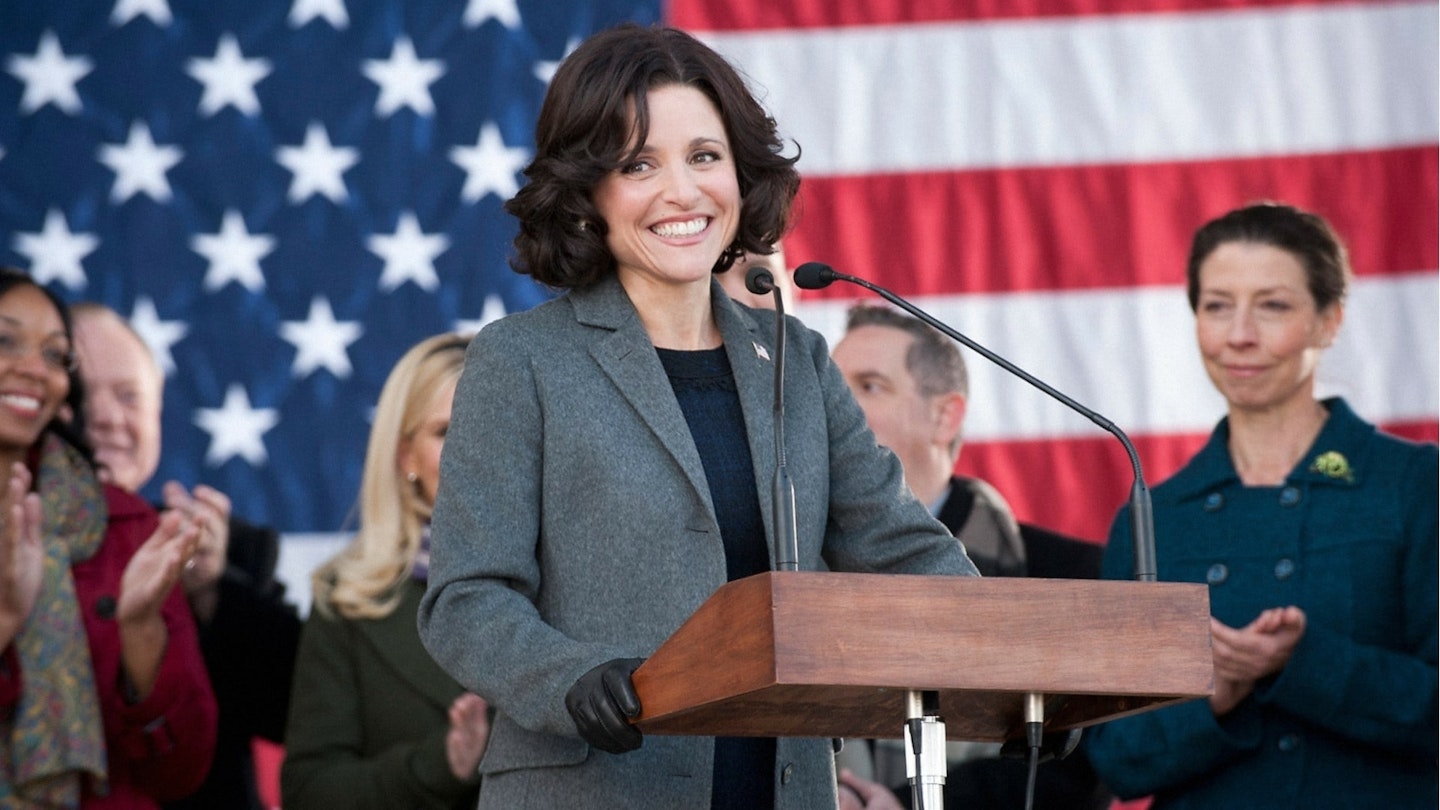
US retoolings of British shows are often ill-advised, but Armando Iannucci’s Veep — a Stateside companion piece to his own The Thick Of It — is every bit as satirically sharp and politically incisive as its sweary progenitor. Julia Louis-Dreyfus is on incendiary form here as opportunistic antiheroine Selina Meyer, whose journey from the vice presidency to the Oval Office itself over the course of seven seasons wound up providing the perfect televisual parallel to America’s slide from the relative peace of the Obama era to the chaos of Trump. Funny in a kind of “Jesus Christ, this is literally what we’re dealing with here” kind of way, Veep captures the landscape of the last decade in American politics unlike any other film or show.
86) Broen/The Bridge (2011-2018)
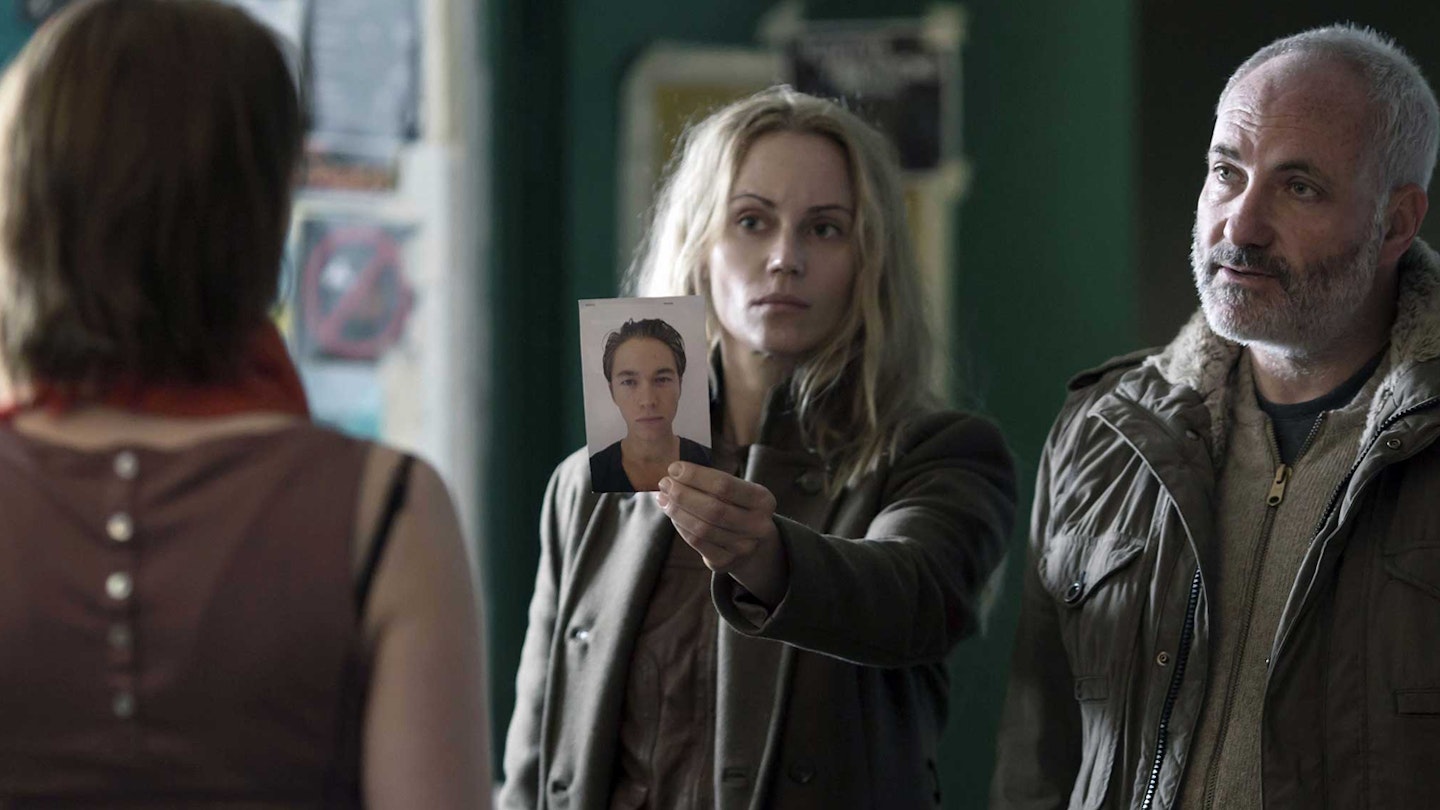
The title refers to the Øresund Bridge connecting Sweden and Denmark, with the show focusing on a détente between the two police forces after a body is found spanning both jurisdictions. Like The Killing, its success came from the characters as much as the crime plots – front and centre are the leather-trewed, autistic-spectrum Swedish detective Saga Norén and her alternately amused and anguished Danish counterpart Martin Rohde: both outstanding performances from, respectively, Sofia Helin and Kim Bodnia — the latter's absence being keenly felt in the later series. The show was remade twice in 2013, as 2013's US/Mexico set The Bridge and Anglo/Franco crossover The Tunnel, and while both were solid shows in their own rights, the original remains the standout.
85) Midnight Mass (2021)
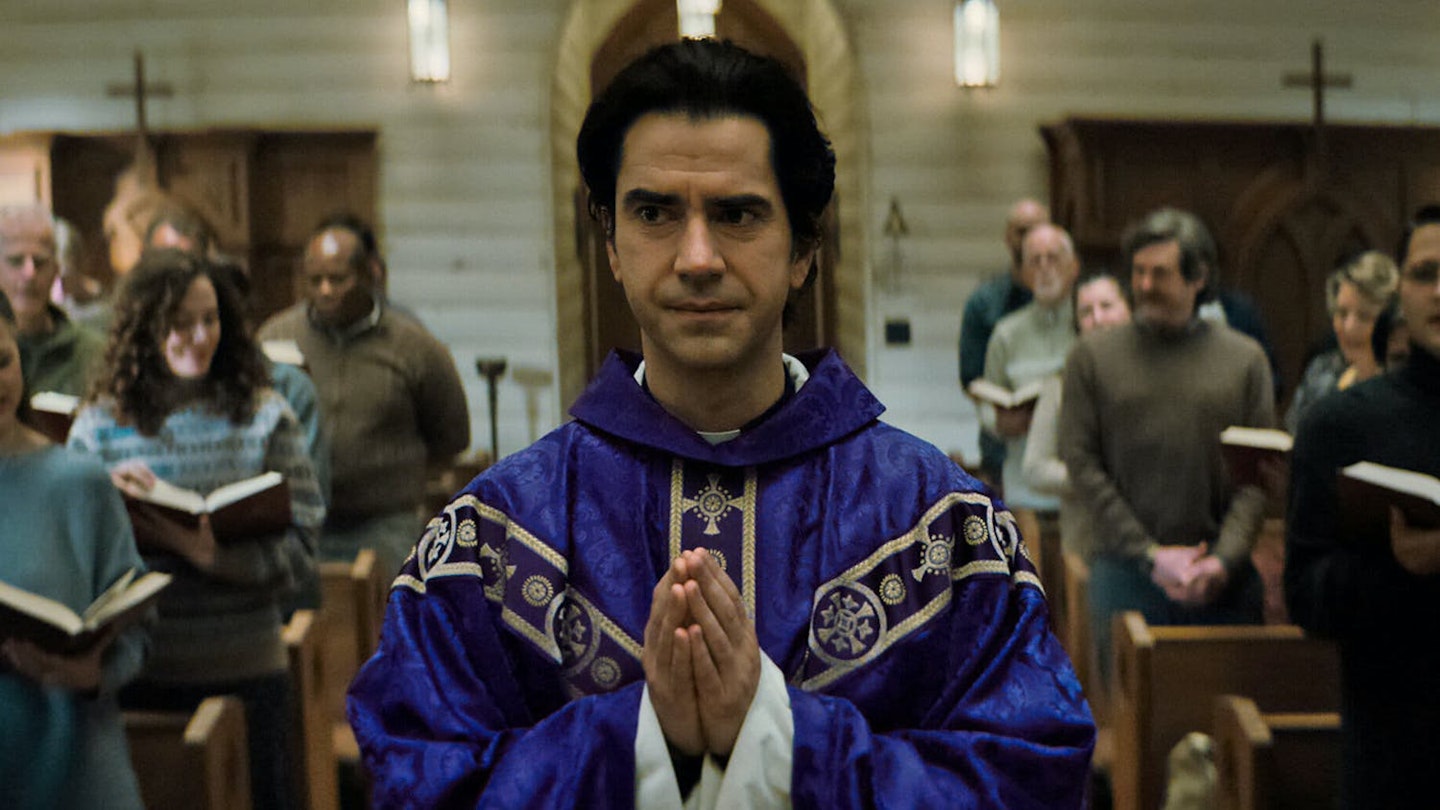
Creator of The Haunting Of Hill House, The Fall Of The House Of Usher, and most of your favourite horror movies of the last decade, Mike Flanagan is well on his way to becoming the defining genre filmmaker of his generation. The man’s mastery of his craft has rarely been greater, however, than in Midnight Mass, a virtuosically written, delicately played tale of death, redemption, and bad faith. Confined to a remote island setting, where the new-in-town pastor (a magnetic Hamish Linklater) appears to summon real-life miracles, Flanagan’s harrowing meditation on the corruptive force of organised religion is at once spiritual, sad, and shit-yourself scary. Stacked with incredible characters and spine-tingling monologues – Kate Siegel’s answer to the question “What happens when we die?” lives long in the memory - Midnight Mass burns slowly until its breathtaking climax, a bright-blazing reckoning if ever we saw one.
Read the Empire review here.
84) Sons Of Anarchy (2008-2014)
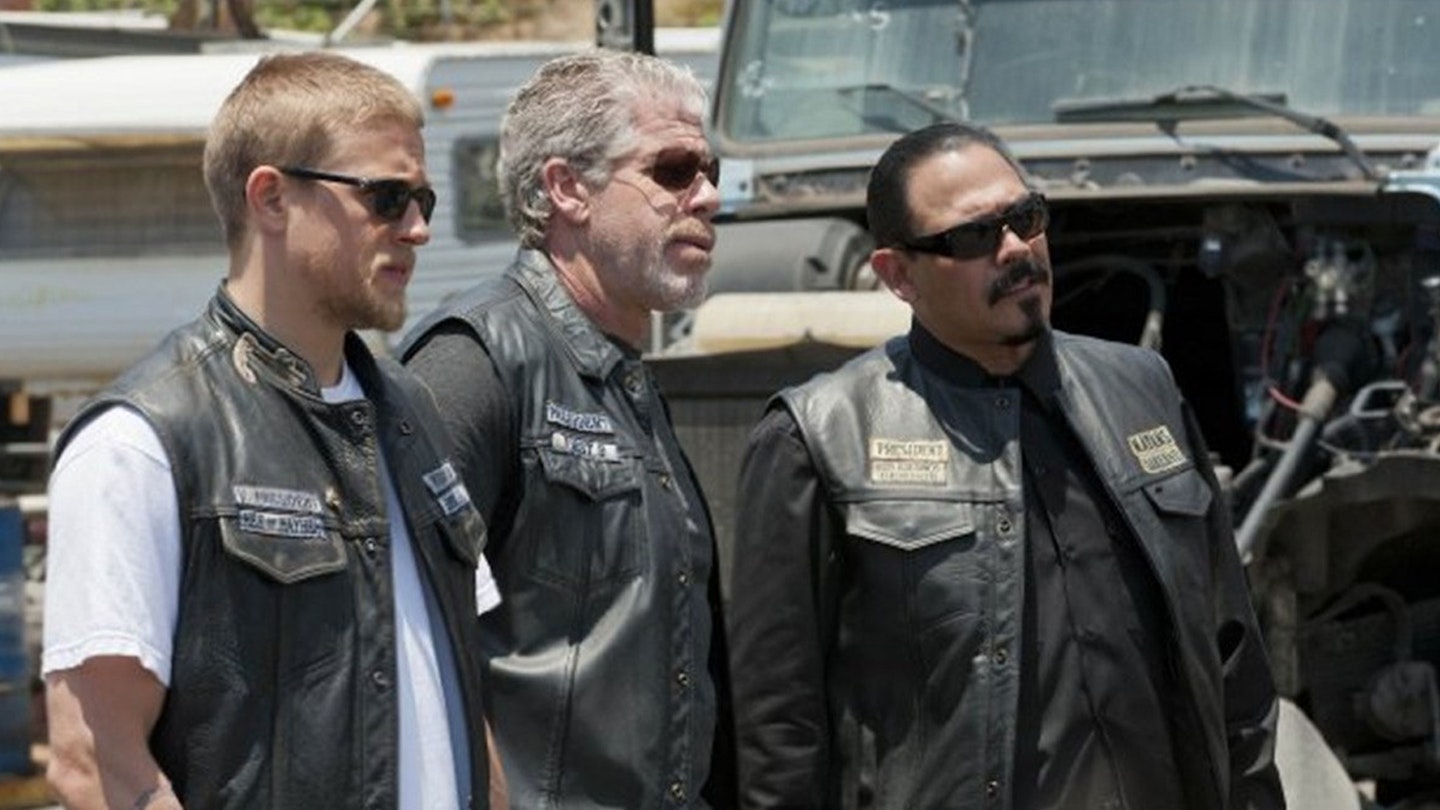
Kurt Sutter, a veteran of The Shield, brought a similar attention to detail and gritty plotting to this story of a motorcycle gang that cruises the small Californian town of Charming. The Shakespearean tale of a son (Charlie Hunnam's Jax Teller) dealing with the legacy of his dead father, conflicting with his surrogate father-figure (Ron Perlman's Clay Morrow), and facing the moral struggles of outlaw life, Sons Of Anarchy sees crime, ambition and violence all bleed together to great — and regularly shocking — effect. Under Sutter's guidance, the show steered through leadership challenges, rival gang attacks and trouble from corrupt (and crusading) cops, telling a compelling, often brutal tale that pulls no punches. Yes, there was that ill-advises season in Ireland (complete with tear-inducing Oirish brogues and a fiddle-based riff on the theme tune), and the show's foot came off the throttle slightly as it neared its end, but Sons was a fascinating look inside the MC subculture, spawning a somewhat less successful spinoff in the now concluded Mayans MC.
83) For All Mankind (2019-Present)
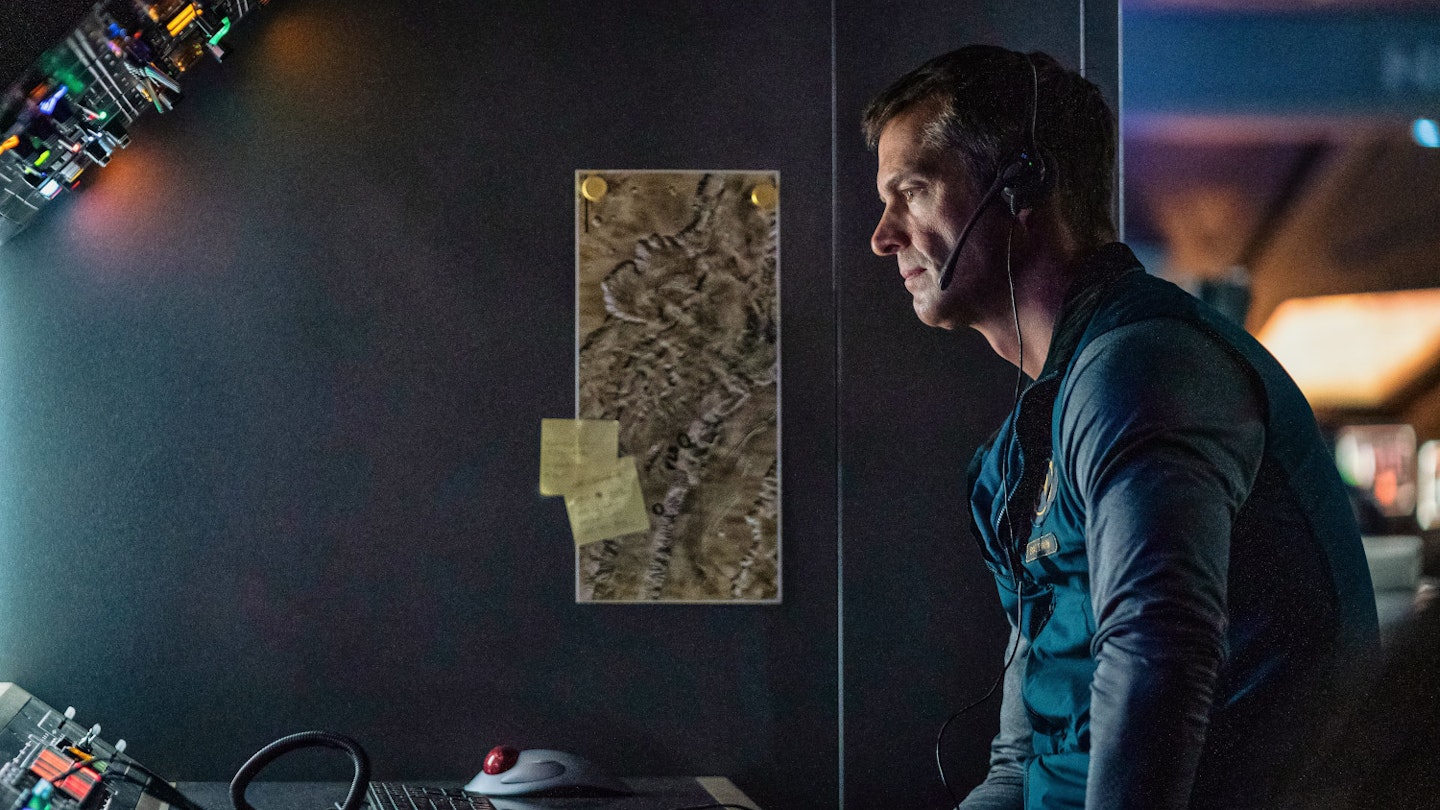
Originally sparked by the compelling alt-history concept of Russia beating America to the Moon in the 1960s space race, For All Mankind spins its timeline in an ever-expanding arc away from ours as the world's boosted interest in space tech sparks societal change. Created by Star Trek and Battlestar Galactica veteran Ronald D. Moore — plus former Fargo writers Ben Nedivi and Matt Wolpert — the show mixes riveting, scientifically-accurate space action with layered characters who age through the seasons and deal with their various dramas on Earth, which also leak into their work. It jumps ahead roughly a decade each season, from the first lunar base to colonising Mars and beyond. This is superior sci-fi – hailed by its devoted fans as the greatest show that far too few people are watching.
Read the Empire review here.
82) Normal People (2020)
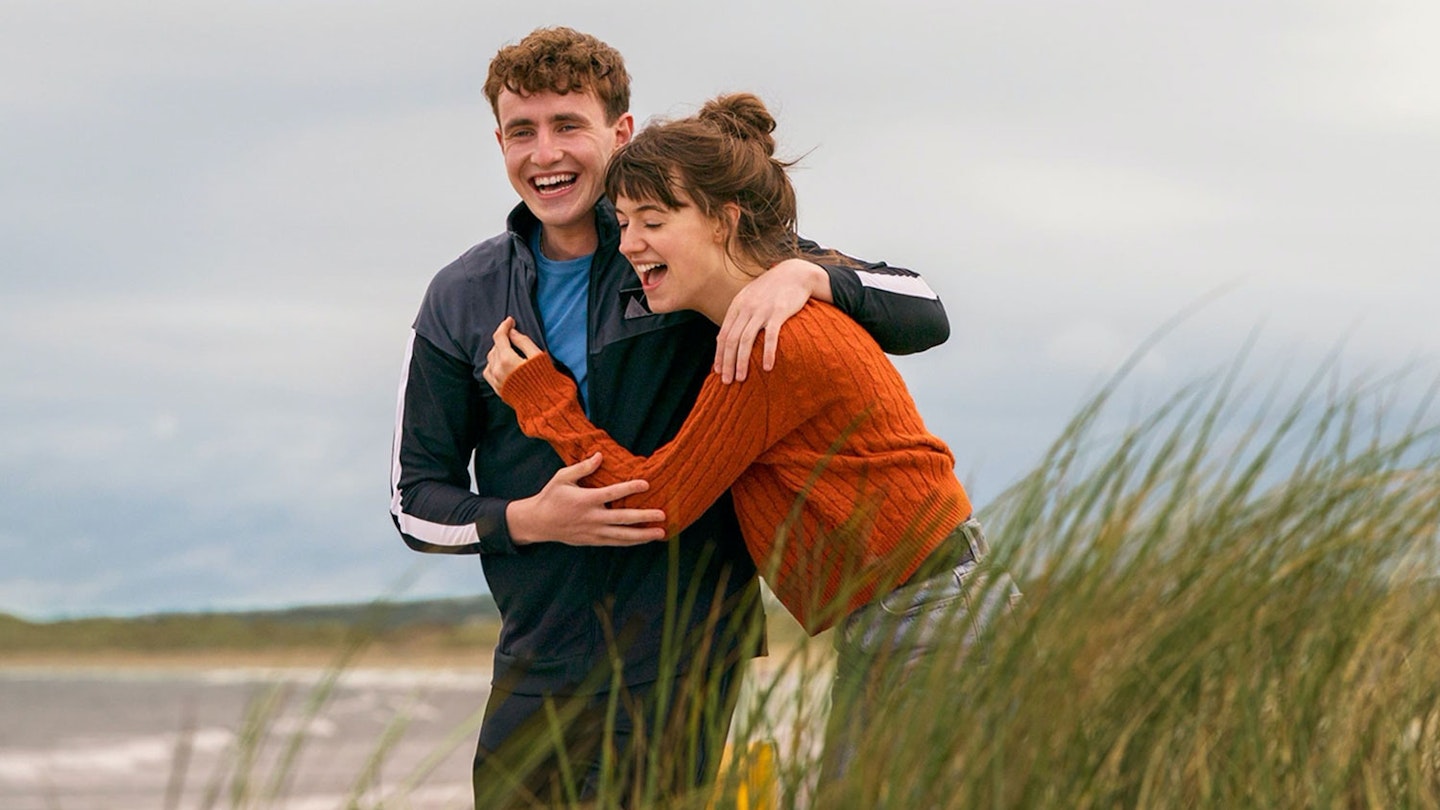
Daisy Edgar-Jones and Paul Mescal became stars before our very eyes in Normal People, the phenomenal — and phenomenally successful — TV adaptation of Sally Rooney’s best-selling novel. At times beautiful, at others brutal, the love story we find here between Marianne (Edgar-Jones) and Connell (Mescal) — two young people from opposite sides of a class divide who bare their souls (and, yes, a fair bit more) to one another — is never anything less than real. Throughout the series, we follow the pair over the years as their relationship ebbs and flows in County Sligo, Dublin, and beyond. A romance told as much in furtive touches and words unspoken as in moments of passion and emotional outpourings, this sunlight-dappled televisual delight will make you fall in love, curse its very existence, and want to get lost in it over and over again. To paraphrase Marianne, “It’s not like this with other shows.”
Read the Empire review here.
81) I May Destroy You (2020)
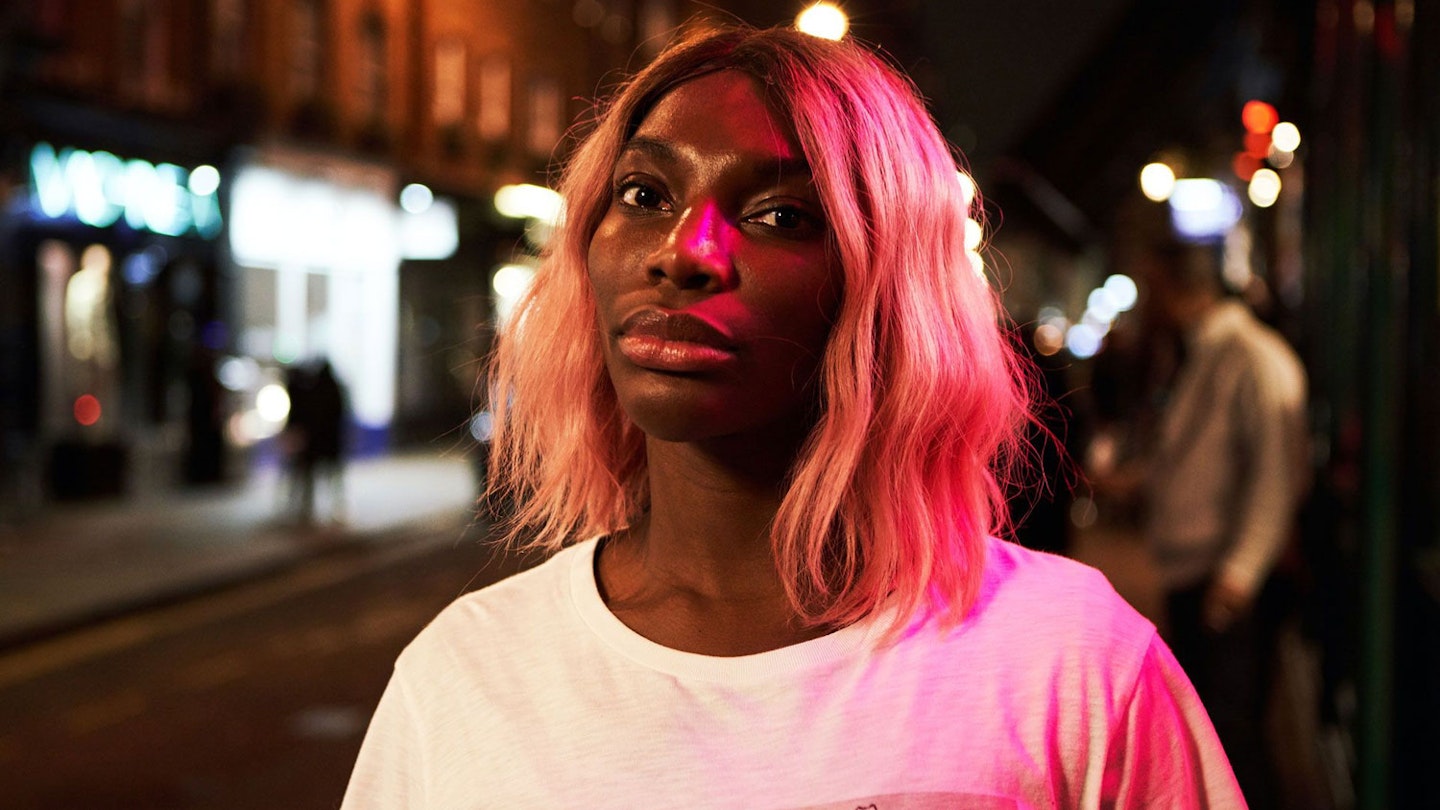
Few shows cross the line from incendiary into vital, history-making television, yet this is precisely where I May Destroy You sits. Drawn from the mind of Chewing Gum creator Michaela Coel — specifically the memory of a sexual assault that she survived during a daunting period of her writing career — the show tasks Arabella (Coel) and her best friends with unpicking the knotty, overwhelming topics of sexual consent and pleasure, and the aggressions that they endure as members of the Black and queer communities. I May Destroy You could easily have been a drama that leaves you reeling from the density of its subject matter, but Coel doesn't allow this, threading humour and tenderness into the fabric of a show so desperately needed today that it should be put on the national curriculum.
80) Derry Girls (2018-2022)
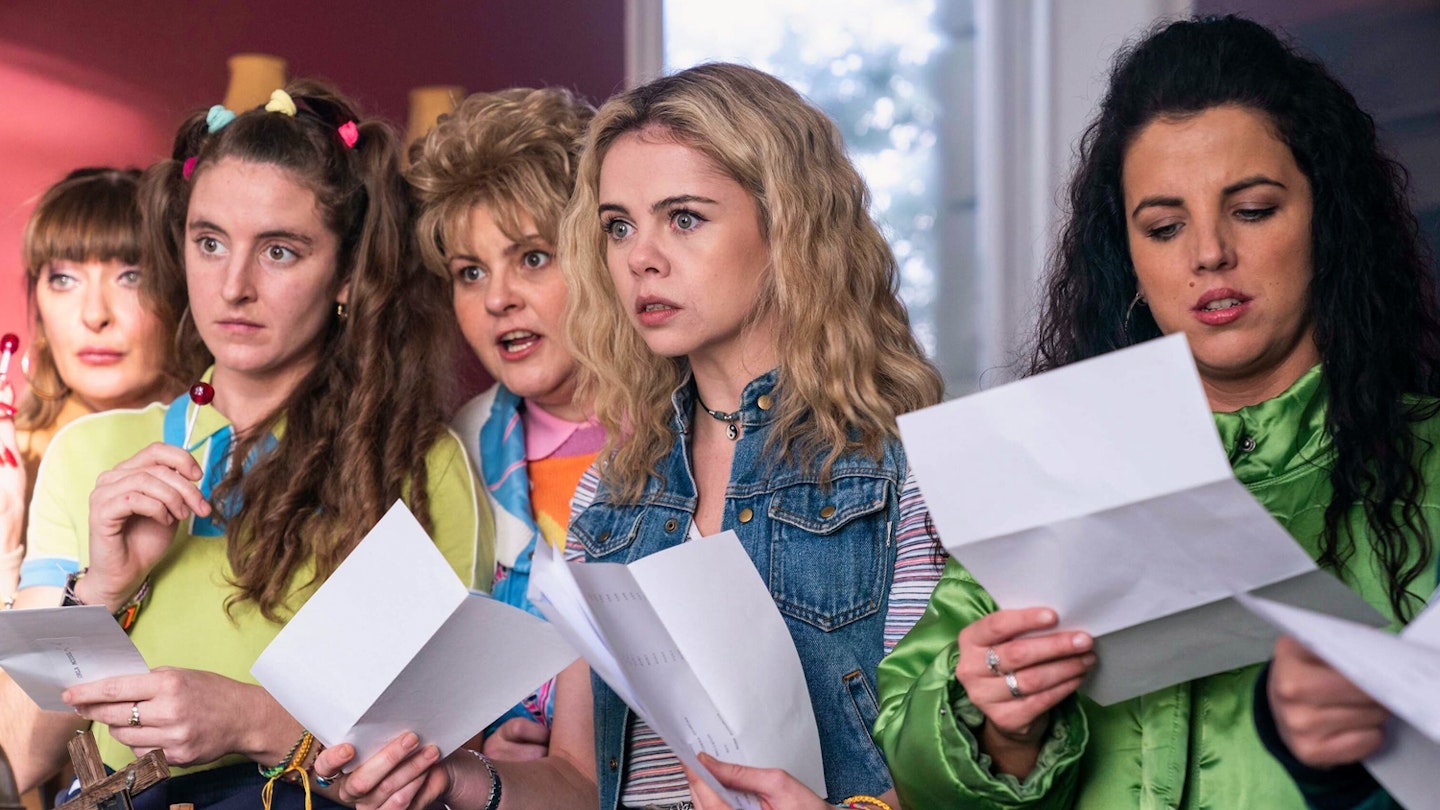
The brilliant brainchild of Lisa McGee, Derry Girls follows the travails of Our Lady Immaculate College alum Erin (Saoirse-Monica Jackson), Orla (Louisa Harland), Clare (Nicola Coughlan), Michelle (Jamie-Lee O'Donnell) , and James (Dylan Llewelyn) as they come of age during The Troubles in '90s Northern Ireland. Famously a favourite of The Simpsons creator Matt Groening and actual Martin Scorsese, the genius of Derry Girls — beyond its exceptional '90s needle drops and the pure comedy goldmine that is Siobhán McSweeney’s Sister Michael — is the way McGee so deftly thread the needle between telling a hilarity-filled tale of high-school friendships and social struggles, and taking the darkness and severity of its socio-political backdrop incredibly seriously. It’s hard to imagine any other show managing a scene as simultaneously joy-filled and sobering as that in which the girls (and James) indulge in some step aerobic silliness whilst their families gather round the TV as news of an IRA bombing comes in.
79) I’m Alan Partridge (1997-2002)
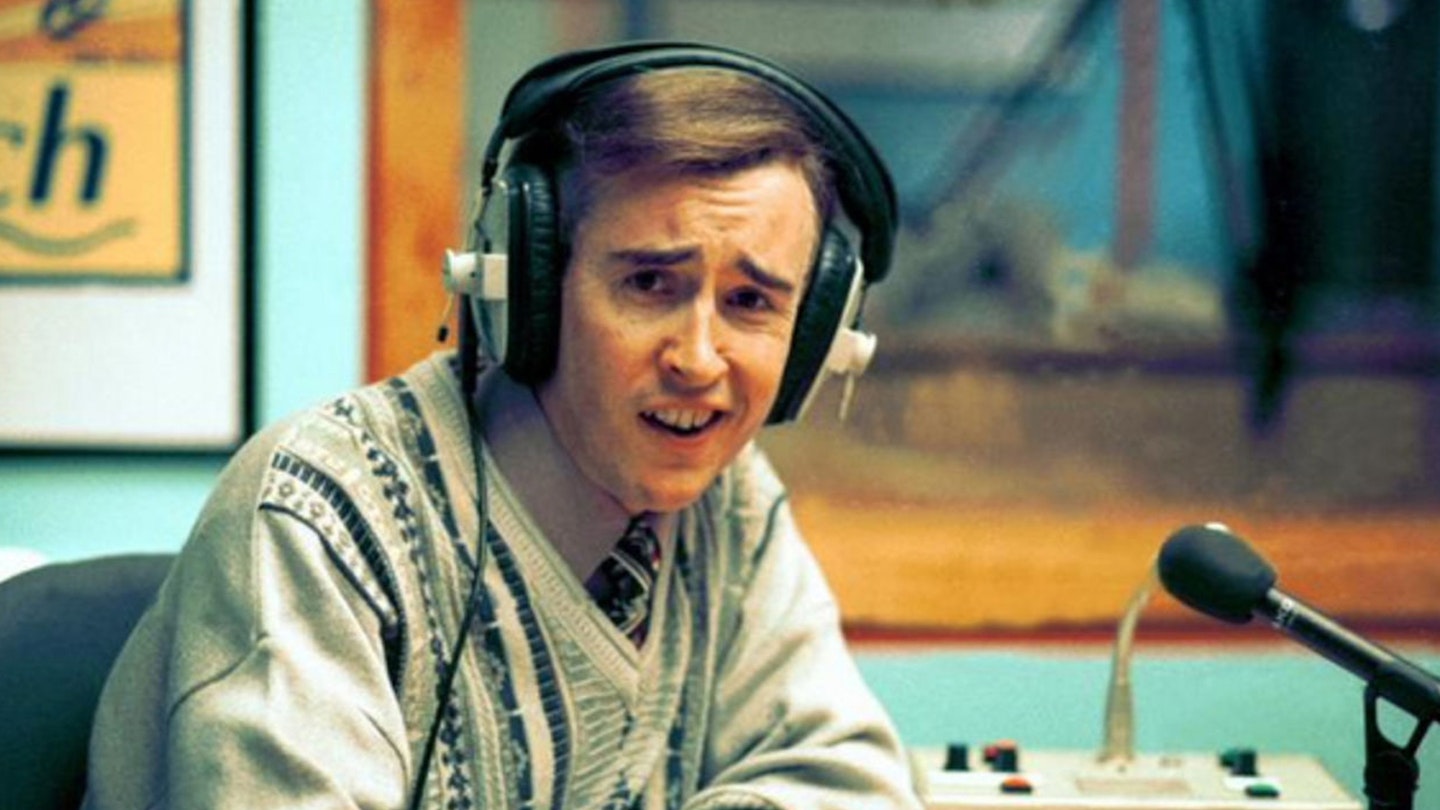
When Norwich city council announced that they were to pedestrianise their city centre, thousands took to the social media platform formerly known as Twitter to express mock displeasure, protesting in unison that "traders need access to Dixons" — much to the bafflement of councillors. That's the power of I'm Alan Partridge, which in two series became part of the cultural lexicon, providing an endless well of absurd quotes to repeat in any given scenario. 'Partridge-esque' is now a clearly-defined adjective. Petty, bitter, entirely lacking in self-awareness, the ultimate little Englander, Steve Coogan's Alan Partridge is one of the most exceptional and keenly-observed comedy characters ever conceived, and while he's appeared in a number of shows, a film and a podcast, this particular sitcom remains his greatest manifestation. It's a TV show which has been described as, and we quote, "lovely stuff". Not my words – the words of Shakin' Stevens. Back of the net!
78) Homicide: Life On The Street (1993-1999)
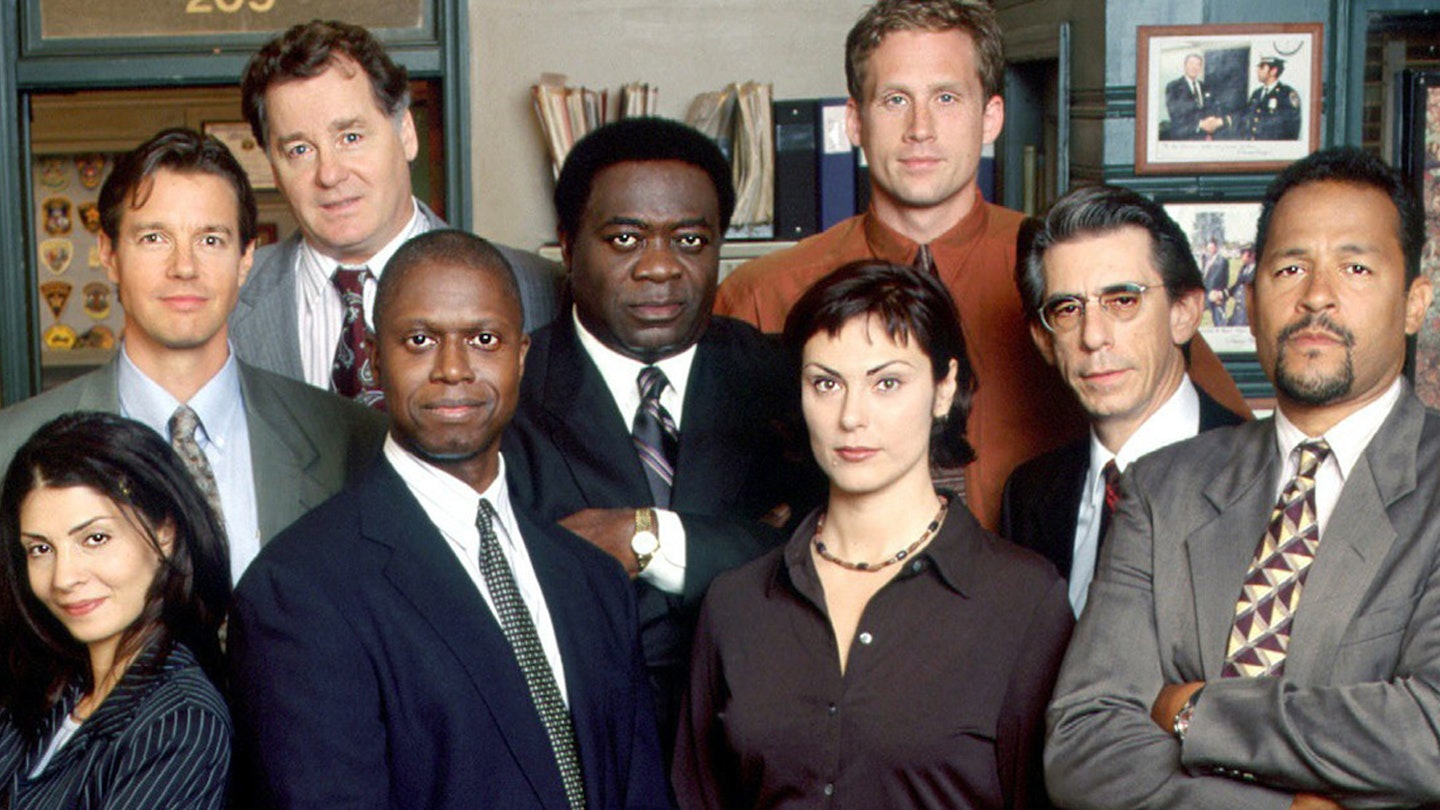
People use the word 'gritty' in relation to film and TV drama all the time, but as a TV cop drama, Homicide: Life On The Street was the real deal. An avowed attempt by creator David Simon (later of The Wire fame) to get into the business of day-to-day procedural police work, as opposed to the glossier cop-show version audiences were used to. It ran for seven seasons in the 1990s, and remains incredibly influential, its quality and weight at odds with so many of its network TV contemporaries. Testament to Homicide's quality is the ridiculous guest cast it attracted: Vincent D'Onofrio, Robin Williams, Paul Giamatti, Jake Gyllenhaal and J.K. Simmons were among those who temporarily joined the outstanding regulars.
77) Dexter (2006-2013)
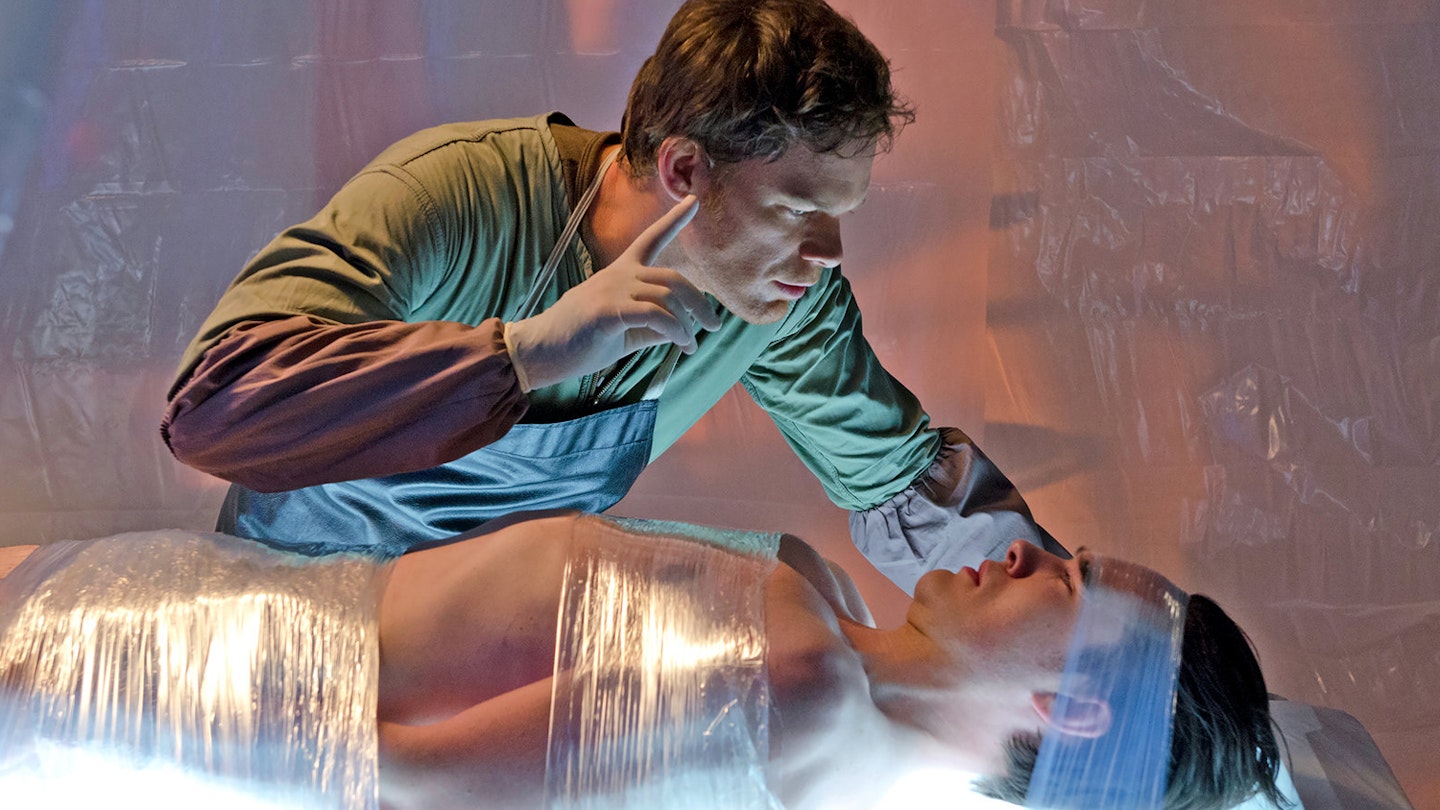
Forget the terrible final season and the whole lumberjack thing (a famously dreadful finale that was at least partially redeemed by 2021 coda Dexter: New Blood), for the majority of its run, Dexter was one of the sharpest shows on TV. Michael C. Hall brings a cool detachment and smirking pitch-black humour in the title role as the blood-spatter analyst who harbours a burning desire to kill – a murderous impulse that he channels into bumping off the bad guys the police are unable to touch. At its best, the show bubbles with will-they-won't-they-catch-him tension as Dexter's own colleagues pore over his crime scenes – and its fourth season, with John Lithgow's terrifying 'Trinity Killer' is perhaps its peak.
76) Westworld (2016-2022)
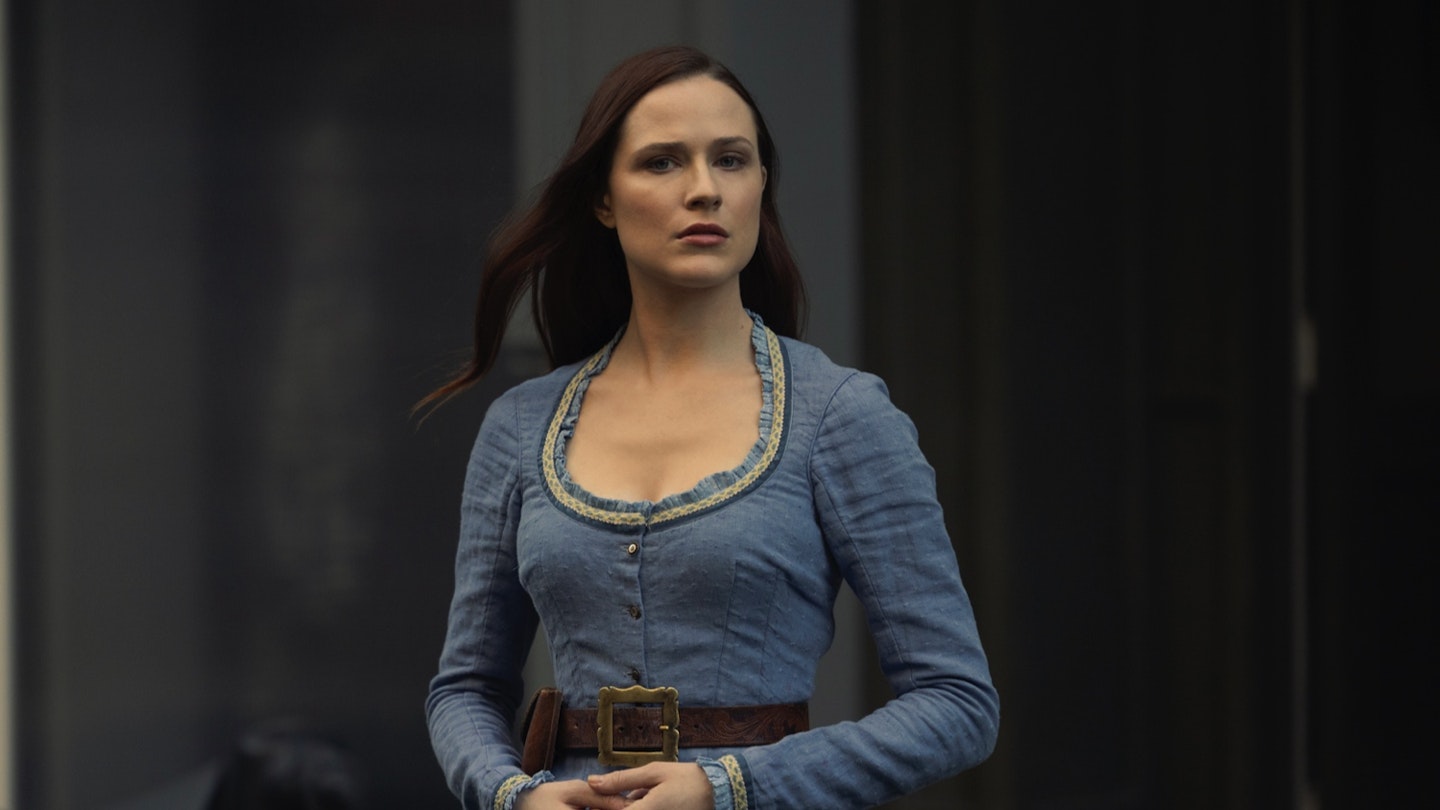
Confusing? Absolutely, but in the best way. With its ultra-non-linear storytelling from the perspective of its unreliable androids, Westworld is ambitious, baffling, and totally thrilling. Expanding on the robo-theme-park-gone-wrong premise of Michael Crichton's 1973 film, Jonathan Nolan and Lisa Joy's series deals in weighty themes like the existence of consciousness, the experience of time, and the morality of predestination — with the astonishing production values and incredible performances (Evan Rachel Wood, Thandie Newton and Jeffrey Wright in particular) you expect from HBO. These violent delights did, sadly, meet violent ends when, after the divisive third and fourth seasons, the show was shockingly cancelled in 2022 (boo!). But the four noodle-twisting seasons we did get? One hell of a ride.
Read the Empire review of the final season here.
75) Scrubs (2001-2010)
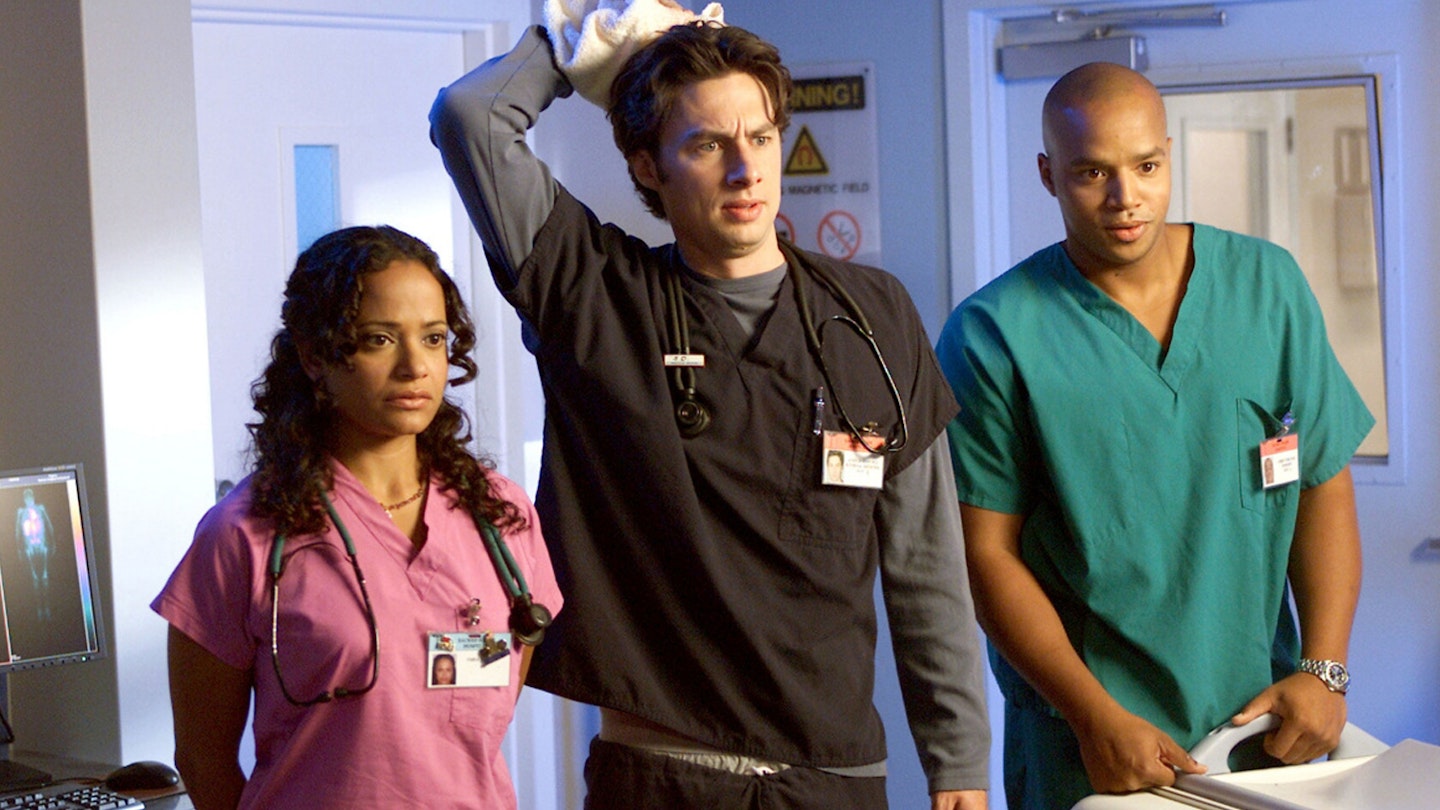
Drawing on experiences from his real-life doctor friend, Scrubs creator Bill Lawrence's sitcom is a funny, frantic look at medical training that doesn't skimp on the tougher moments of dealing with patients, illness and death. The show is anchored by Zach Braff's John 'JD' Dorian, given to flights of fantasy while he and his fellow fledgling medics – Donald Faison's Chris Turk and Sarah Chalke's nervy, talented Elliot Reed – brave the pressure of their chosen profession and the wrath of perennially grumpy mentor Dr. Cox (John C. McGinley). Through its several years on the air, Scrubs mixed the madcap with solid character work, and a cast of funny supporting characters helped flesh out its world — even if the disappointing ninth season, which lost most of the regular cast, meant it went out with more a whimper than a bang.
74) Northern Exposure (1990-1995)
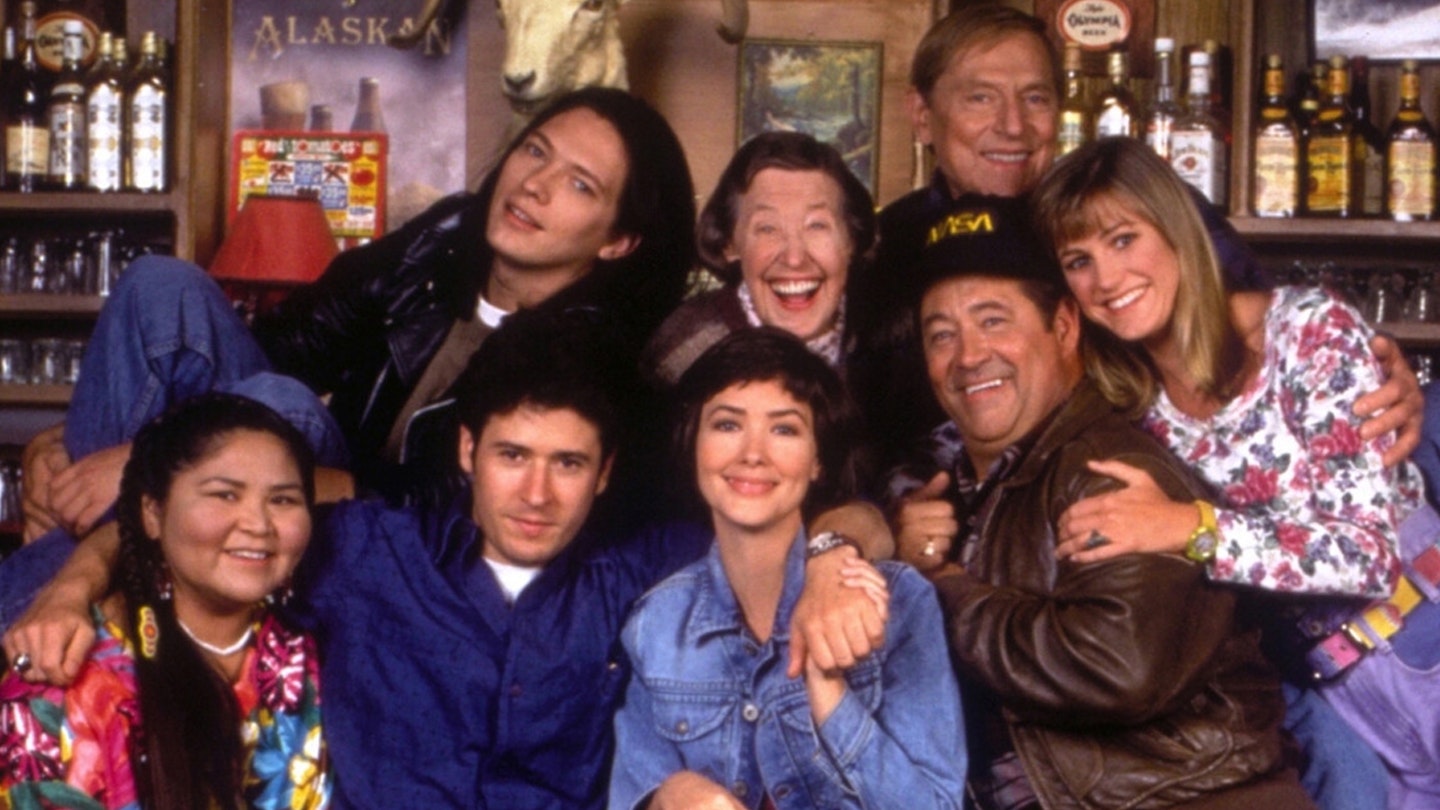
What would you do if you had just graduated from medical school, only to learn to your surprise/horror that the terms of your scholarship contract mean you're required to set up your practice in a remote, quirky Alaskan town? That's the situation faced by Joel Fleischman (Rob Morrow), who despite his early protestations, finds that he enjoys life in Cicely more than he's willing to admit. There's a real charm to Northern Exposure, helped by some carefully calibrated performances that anchor its cast of memorable oddball characters, and the writing is full of unusual poetry. Where else can you find an episode of television dedicated to trebucheting a cow?
73) Boardwalk Empire (2010-2014)
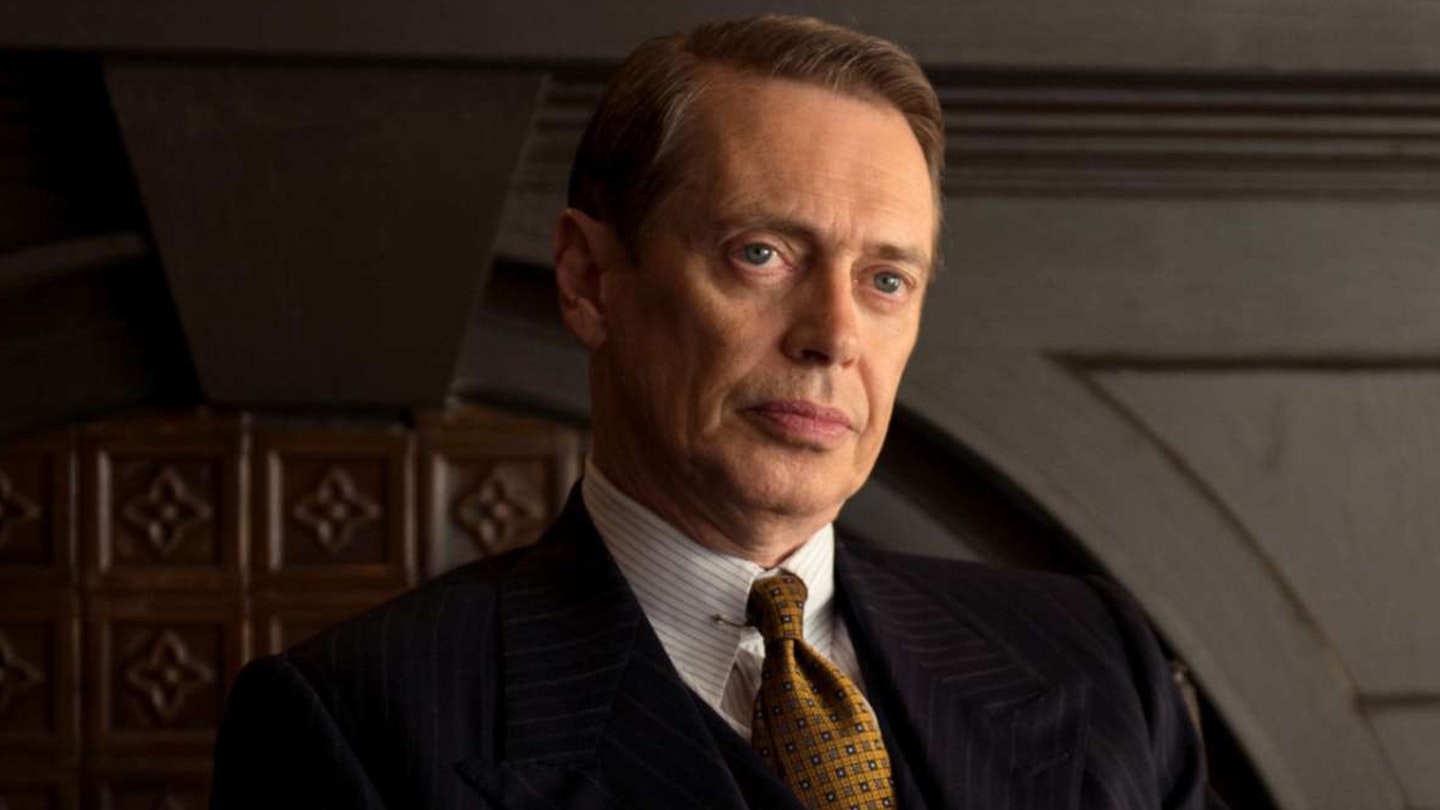
Combining the talents of Terence Winter, who spent part of his career working on The Sopranos, and slightly-well-known filmmaker Martin Scorsese (who launched the show by directing the pilot and acting as an executive producer going forward), Boardwalk Empire ranks highly in the HBO-crime-series stakes. Spinning the clock back to the Prohibition era, the series explores the tough politics and criminal activity of 1920s Atlantic City. The nominal focus is Enoch "Nucky" Thompson (Steve Buscemi), who makes deals with gangsters even as the Federal government starts to close in, but the show boasts in its run a veritable constellation of stars — Stephen Graham’s Al Capone in particular is not to be missed. It's full of the usual HBO staples – blood, boobs and bad language – but all used judiciously.
72) Curb Your Enthusiasm (2000-2024)
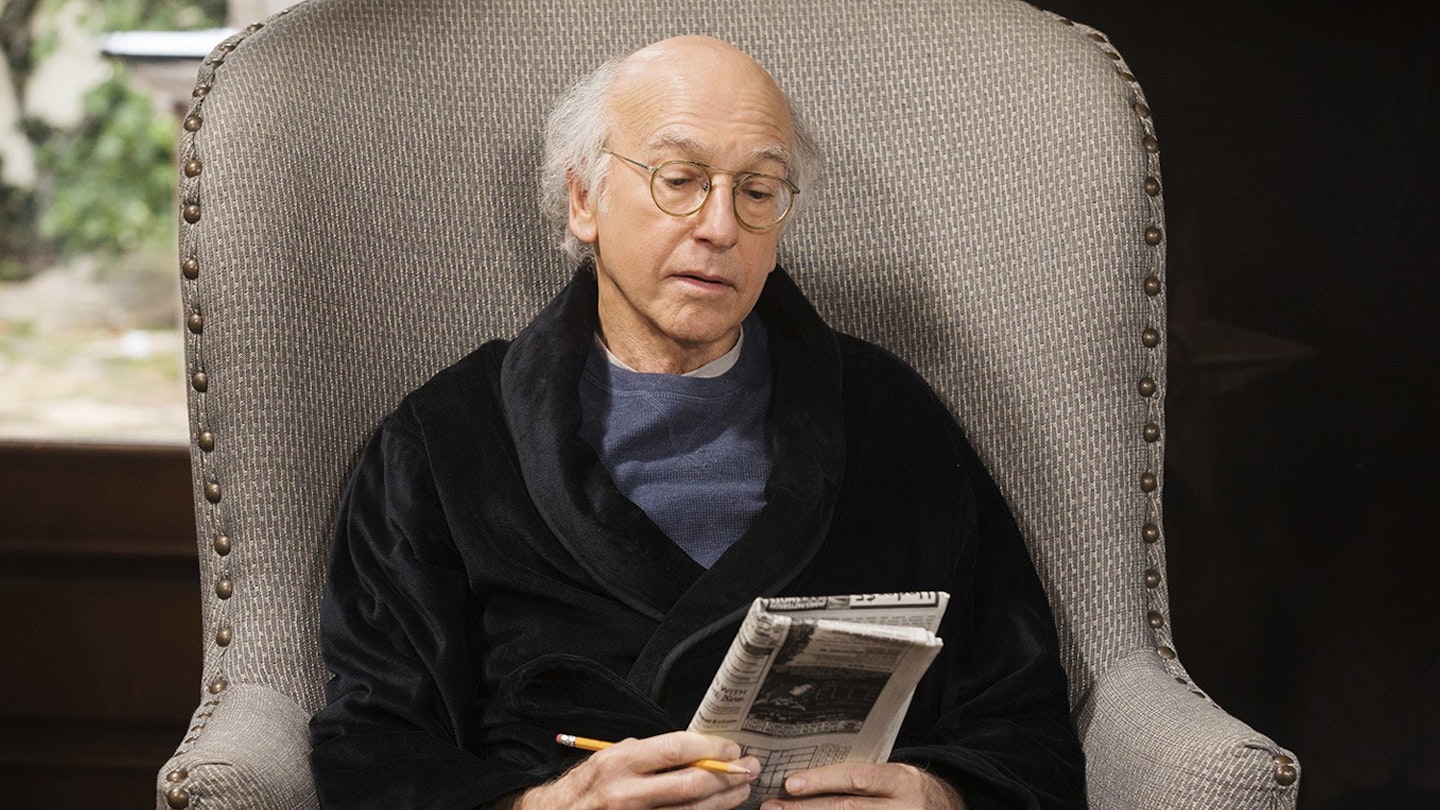
Part of the genius of Curb Your Enthusiasm is that it's impossible to tell where the real Larry David ends and the fictional David begins. After all, this is a man who used to go out on stage for stand-up shows, peer at the audience and then walk off if he didn't like the look of them. Every episode draws him into ass-puckeringly awkward scrapes with waiters, doctors, salesmen and other celebrities, from Ben Stiller to Martin Scorsese. The combination of David's lack of social skills with the right-on political correctness of LA's denizens makes for edgy, hilarious viewing. A true one-off.
Read the Empire review here.
71) Rick And Morty (2013-present)
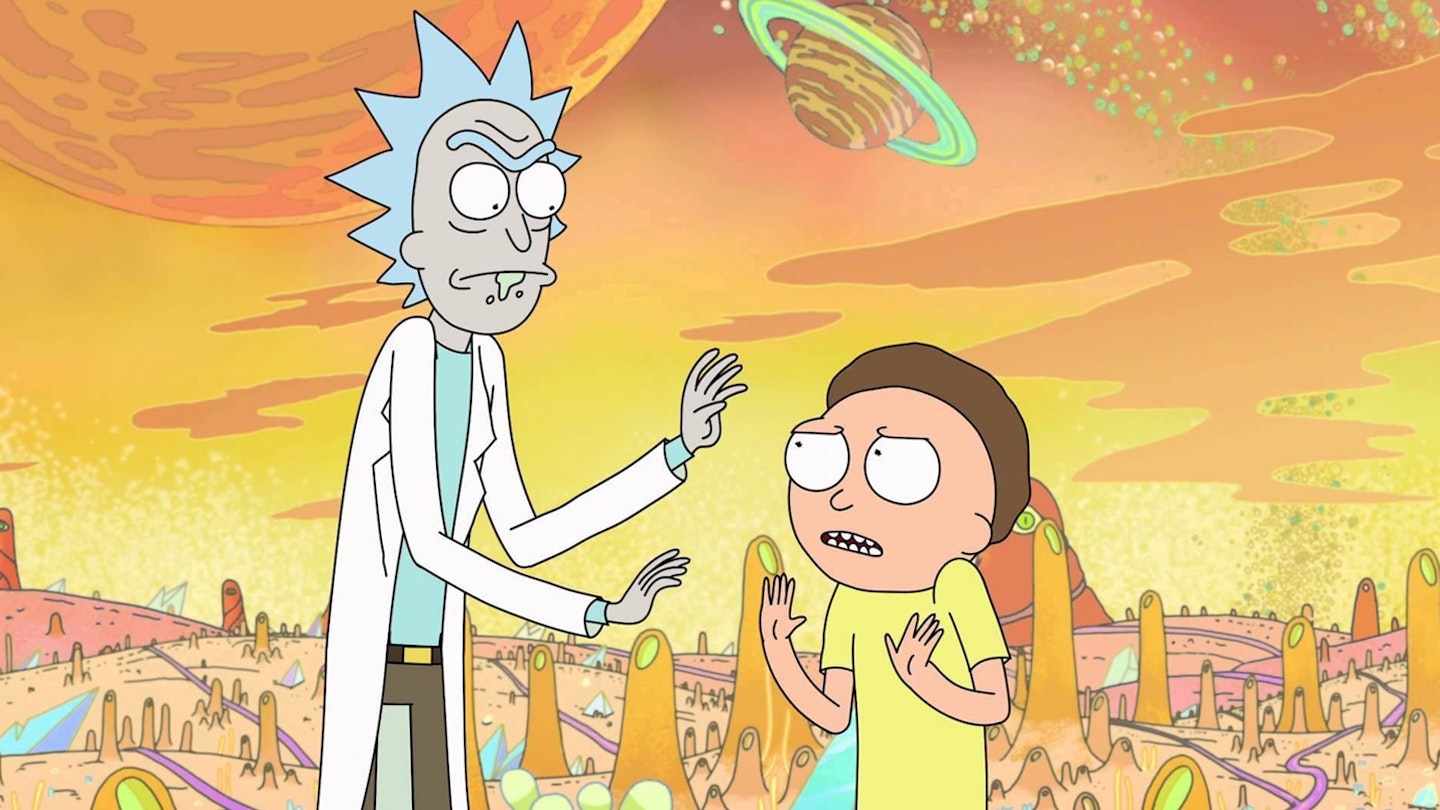
In the internet age, it takes something special to last ten days, let alone ten years. It says something, then, that a decade since its debut, viral phenomenon Rick & Morty — a wildly surreal, sometimes deeply inappropriate animated comedy that takes science-fiction clichés and follows them to their largely horrifying conclusions — remains as popular as ever. Its titular duo consists of a gruff-voiced alcoholic grandad and his overly sweet and naive grandson, playing out a twisted version of Back To The Future's Marty McFly/Doc Brown relationship, as they embark on 'adventures' riffing on Mad Max, infinite alternate universes, The Purge — and, in one particularly famous episode, sentient pickles. Dark, weird, unique, and sometimes disarmingly emotionally perceptive, this could easily run for another decade… and another… and another.
70) Luther (2010-2019)
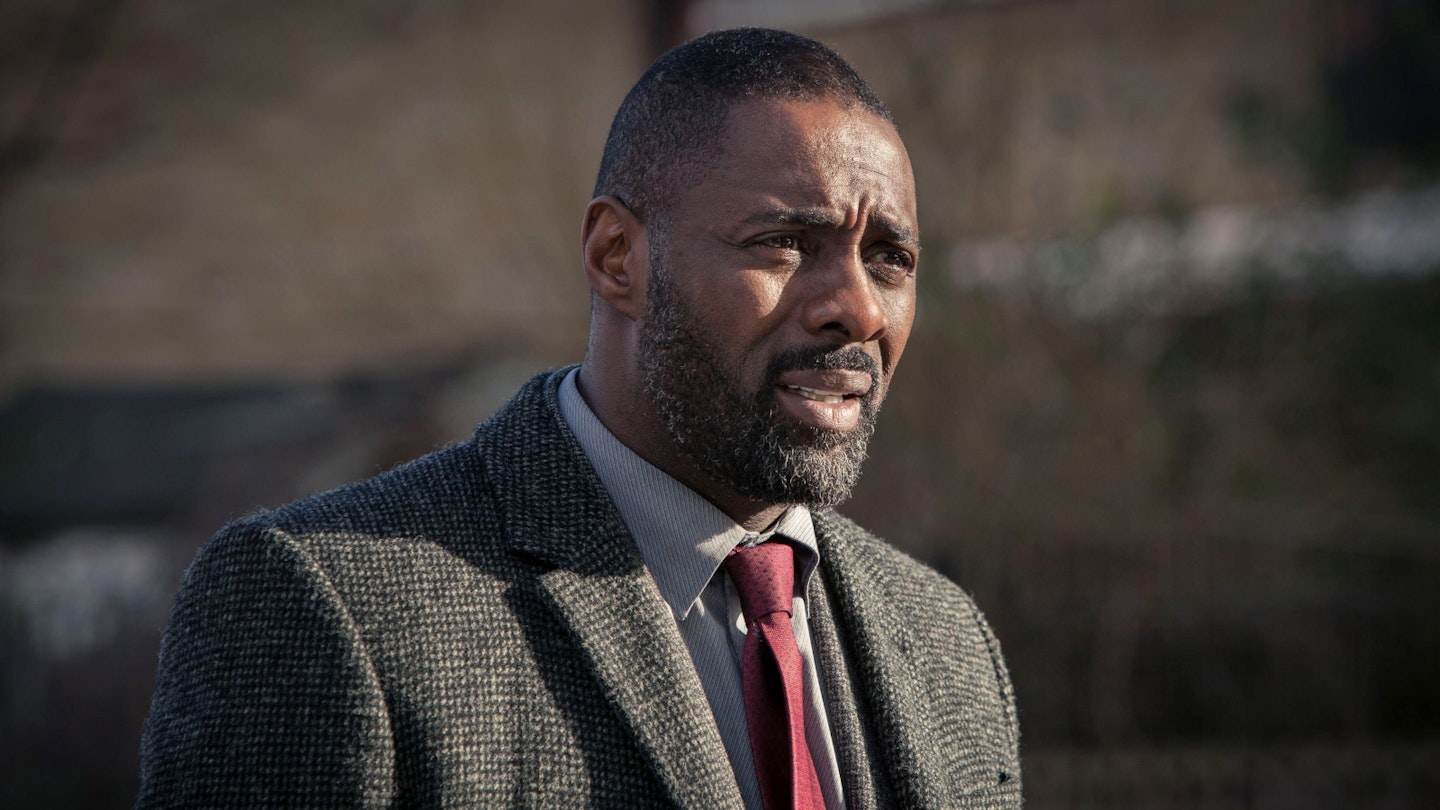
A brilliant detective, unafraid to do what others daren’t in order to see justice done. One who, dogged by an ever-increasing number of ghosts whose deaths only heighten his brutality and mental anguish, runs around in the same clobber night after night chasing psychopaths as the powers that be wonder whether he’s actually one of them. No, we're not describing Batman, but rather London’s very own dark knight, “LOOFAHHHH!”. We mean, er, Luther. Part gritty police procedural, part dark noir fantasy, the show — which started life on the BBC before being picked up for feature follow-up The Fallen Sun at Netflix — follows Idris Elba’s hulking, red-tie-and-tweed-coat-sporting copper as he hunts depraved killers in the darkest recesses of the rain-soaked Big Smoke. And as if that ain’t enough to recommend it, Luther is often joined on his crusades by psychopathic, serial killing frenemy Alice Morgan, played by the irrepressible Ruth Wilson.
69) Sex And The City (1998-2004)
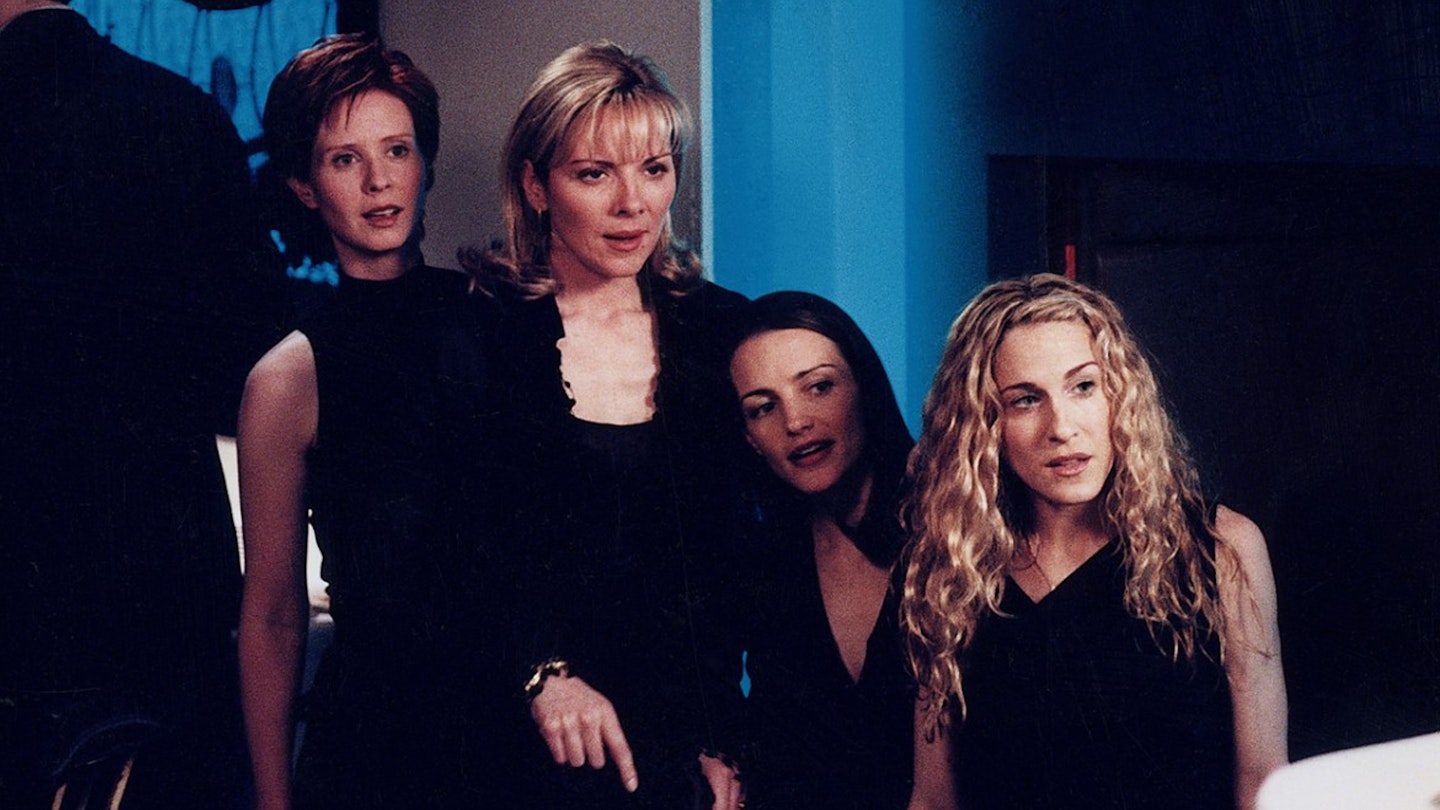
Thanks to the passage of time and two cack-handed movie spin-offs, Sex And The City has come to be seen by many as a silly show about shoes and cocktails — a reputation both cemented and contested by recent revival series And Just Like That, depending on who you ask. But beneath the layers of Prada hid a series that was smartly written and incredibly brave, even if it did totter across the screen on a pair of immaculately fitted Jimmy Choos. It's easy to forget now how groundbreaking the adventures of four sexually liberated (okay, three, plus Charlotte) Manhattan thirtysomethings were, not just for women on TV, but for the treatment of sex on the box. The entire vibrator industry owes Carrie and Co an enormous debt.
68) True Detective (2014-present)
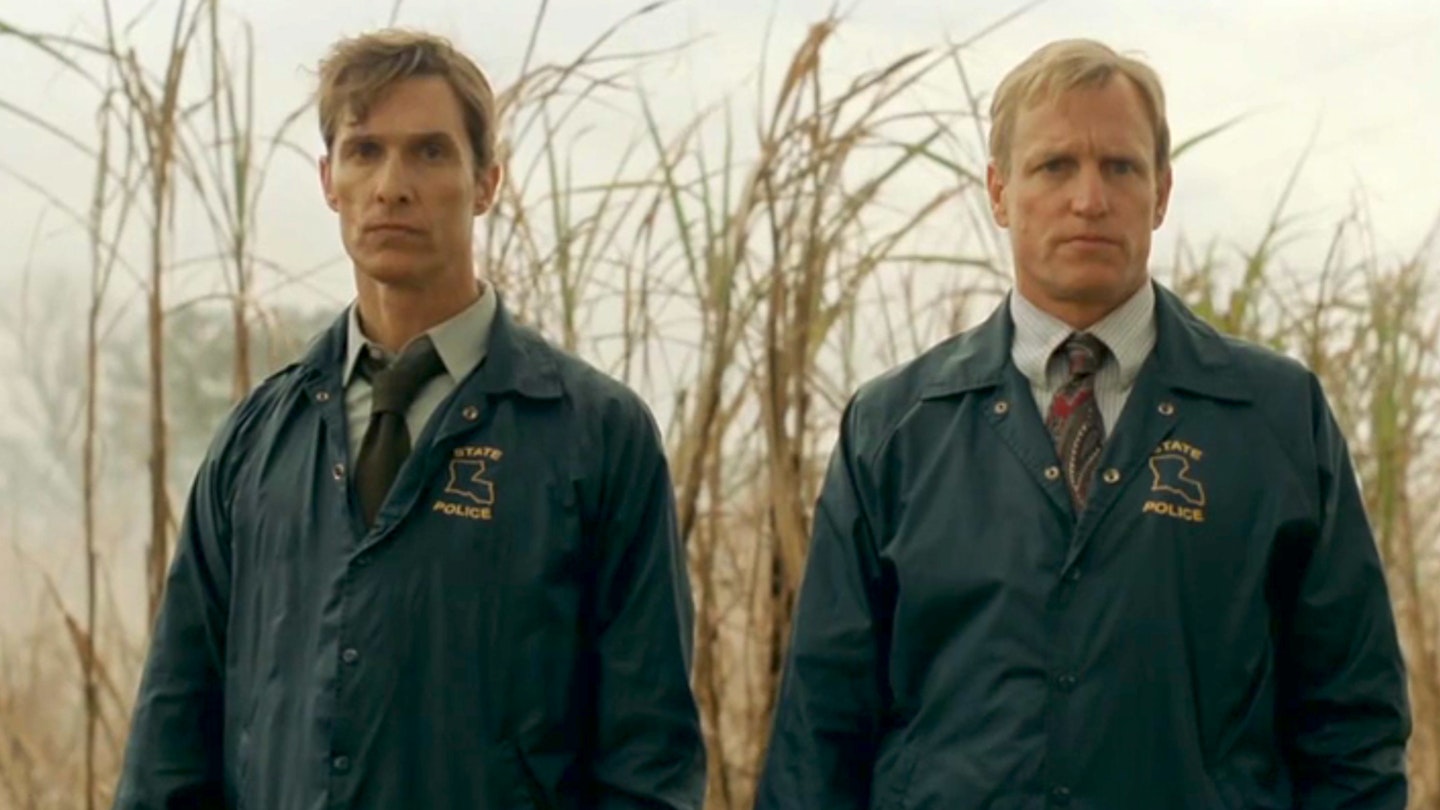
HBO doesn't exactly 'do' police procedurals – but the closest it's come is this anthology crime series, spinning murky tales from the dark heart of America with all-star casts. Each season has had a different flavour, but elements recur: world-weary cops, unsolved cases, multiple timelines unspooling different eras of the case. The first season, with Matthew McConaughey and Woody Harrelson tracking down the 'Yellow King', is widely regarded as its best – an important milestone in 'Golden Age TV' for attracting such star names, and a key text in the McConaissance. Though the Colin Farrell, Rachel McAdams and Taylor Kitsch-starring Season 2 was far less thrilling, 2019's Mahershala Ali led Season 3 marked a return to form. Meanwhile, the fourth instalment, Jodie Foster-starring Night Country, was almost on a par with the show's debut season, quickly becoming one of the most talked about shows of 2024. Time really is a flat circle.
Read the Empire review of True Detective: Night Country here.
67) Life On Mars (2006-2007)
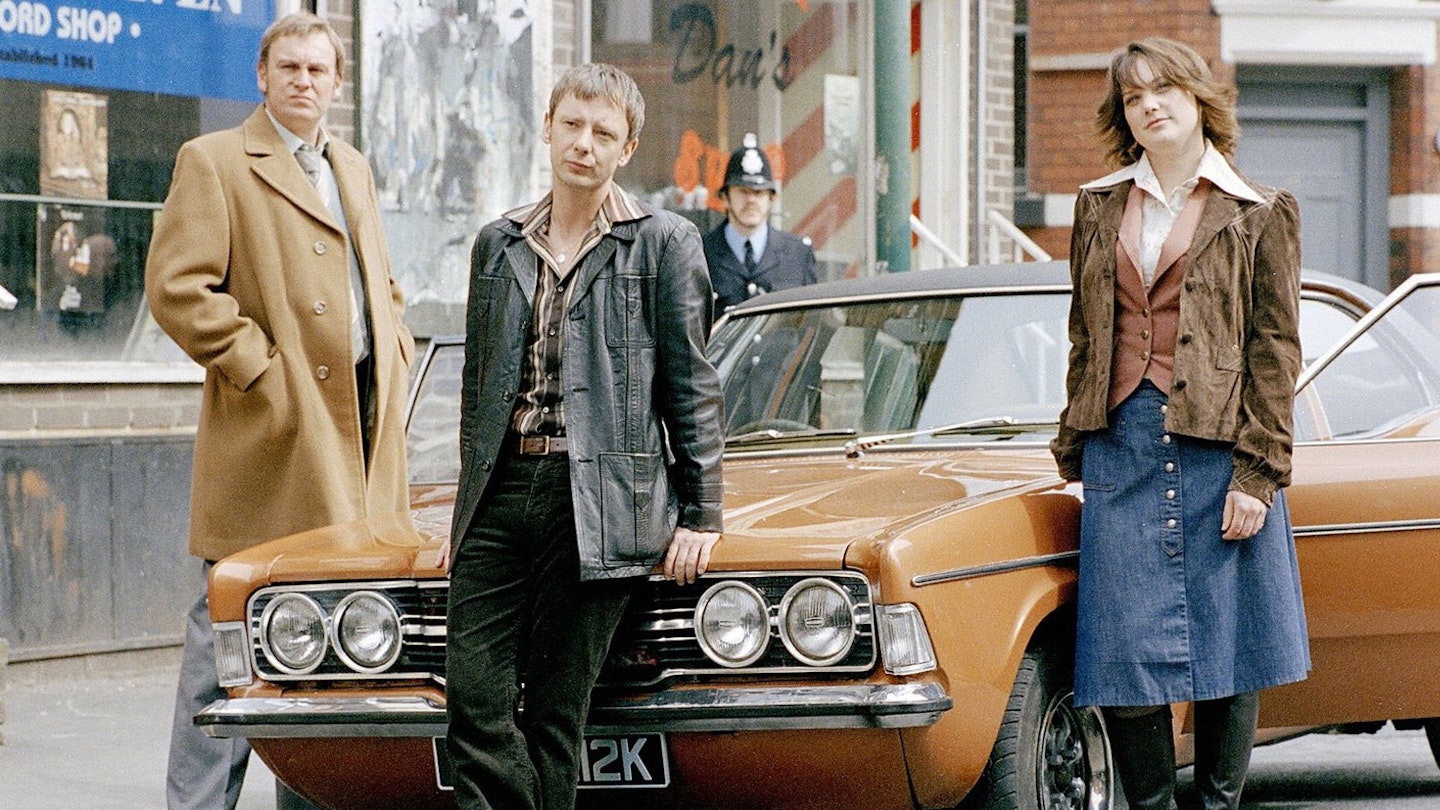
A high concept police series that never let its idea overwhelm its characterisation, Life On Mars sends a '00s policeman, John Simm's DCI Sam Tyler, back in time to the 1970s – an era better known for rough justice than the touchy-feely community policing he's used to. Philip Glenister’s scenery-chewing turn as Gene Hunt, a man who would have fit right in on The Professionals or The Sweeney, ranks among the best small screen performances in British telly history_._ And while the clash of modernity and traditionalism as embodied by Tyler and Hunt maintains a compelling tension throughout the series’ run, it’s the central mystery of just how exactly Sam has wound up a man out of time that makes the show, ironically, timeless.
66) BoJack Horseman (2014-2020)
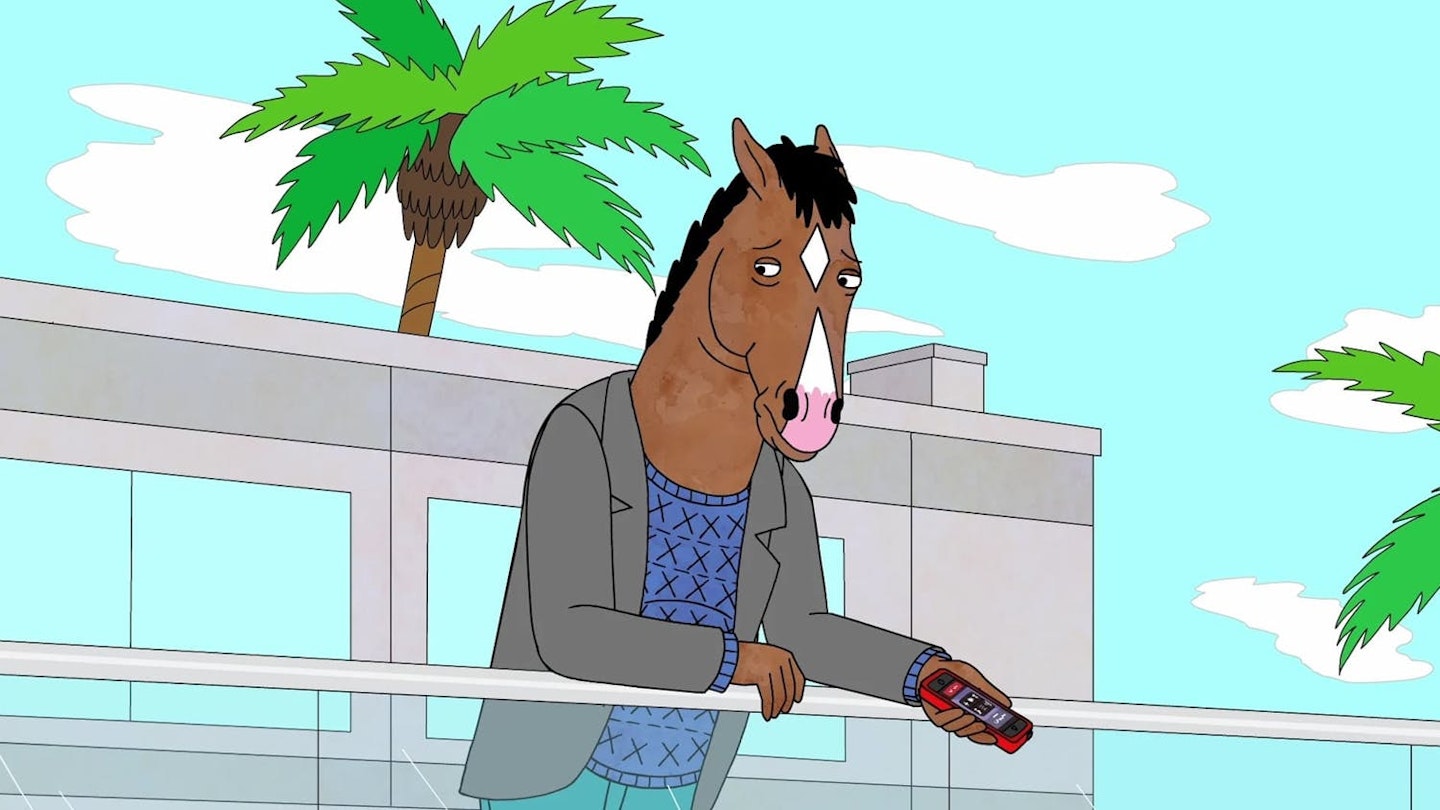
An animated comedy satirising Hollywood with a Will Arnett-voiced washed-up horse actor as its protagonist sounds like it should be a light, silly laugh-fest – which makes BoJack Horseman's deep vein of sadness all the more surprising. BoJack himself is a has-been, entirely aware of his ever-diminishing status and the ego-driven, alcohol-fuelled self-destructive choices he makes. Given a nurturing platform on Netflix, who’ve gained a real reputation for sterling adult animation with efforts like Blue Eye Samurai, Arcane, and Love, Death + Robots, the show has cultivated an audience who have embraced its bruised heart wholeheartedly. That’s not to say BoJack isn’t funny, too: stacked with animal puns to balance out the darkness, it's a singularly unique brew sure to go down as a definitive animated series for its complexity of emotion. And if you aren’t convinced, go watch “Free Churro” and come back to us — we’ll have tissues at the ready.
65) Atlanta (2016-2022)
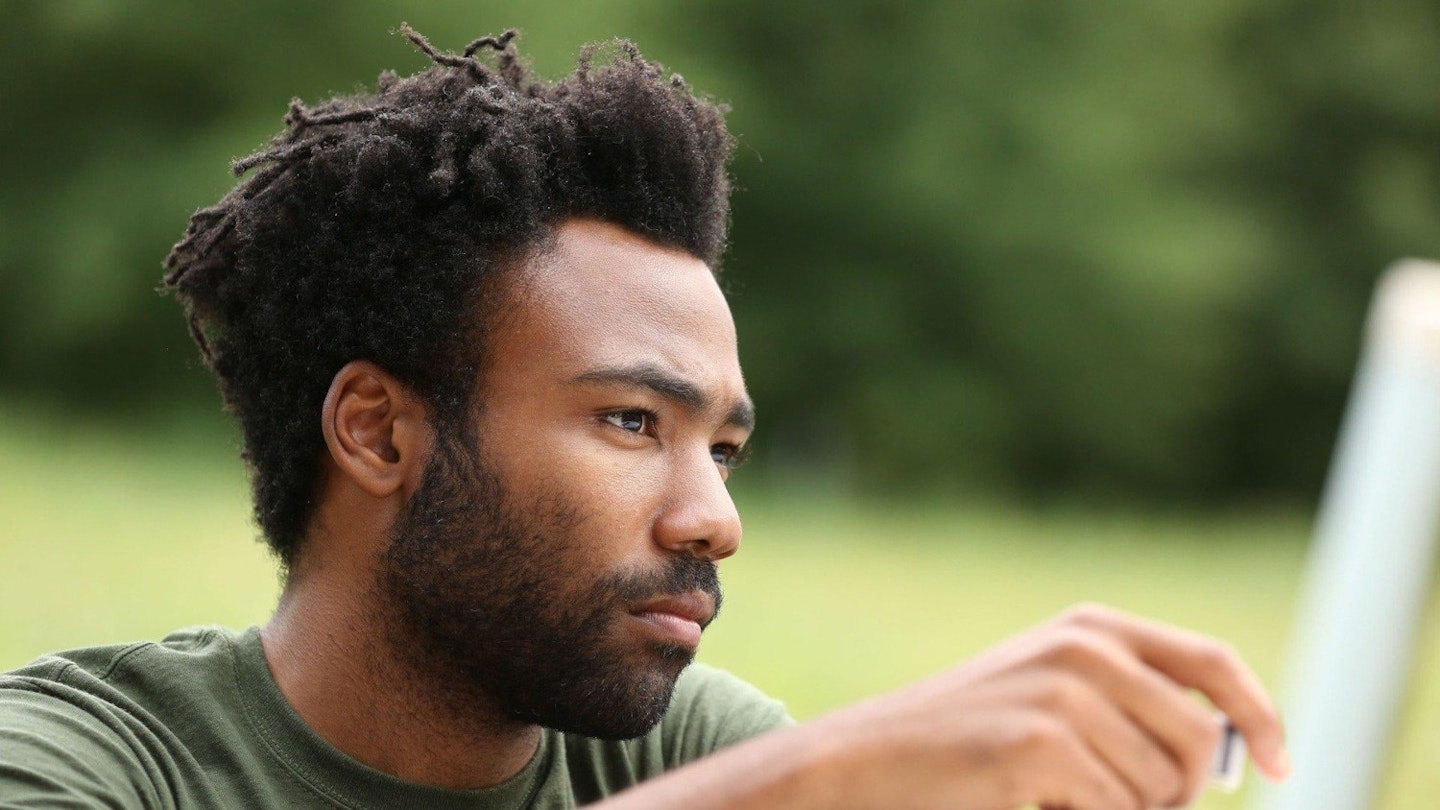
Donald Glover is ludicrously talented. Just stupidly, endlessly, jaw-droppingly talented – and beyond his stand-up comedy, his screenwriting, his music career as Childish Gambino, and his roles in the likes of Community and Solo: A Star Wars Story, he's also the creative force behind Atlanta. Across its four seasons and 41 episodes, the show presents a surreal, shape-shifting portrait of the titular city in Georgia, as Glover's lead character Earn tries to help his cousin Paper Boi boost his rap career. As well as starring, Glover often writes and directs the show, too (though the key director here is Hiro Murai, behind the 'This Is America' music video), while the stellar ensemble also includes Brian Tyree Henry, LaKeith Stanfield, and Zazie Beetz. (Hip-)Hop on board now.
64) House (2004-2012)
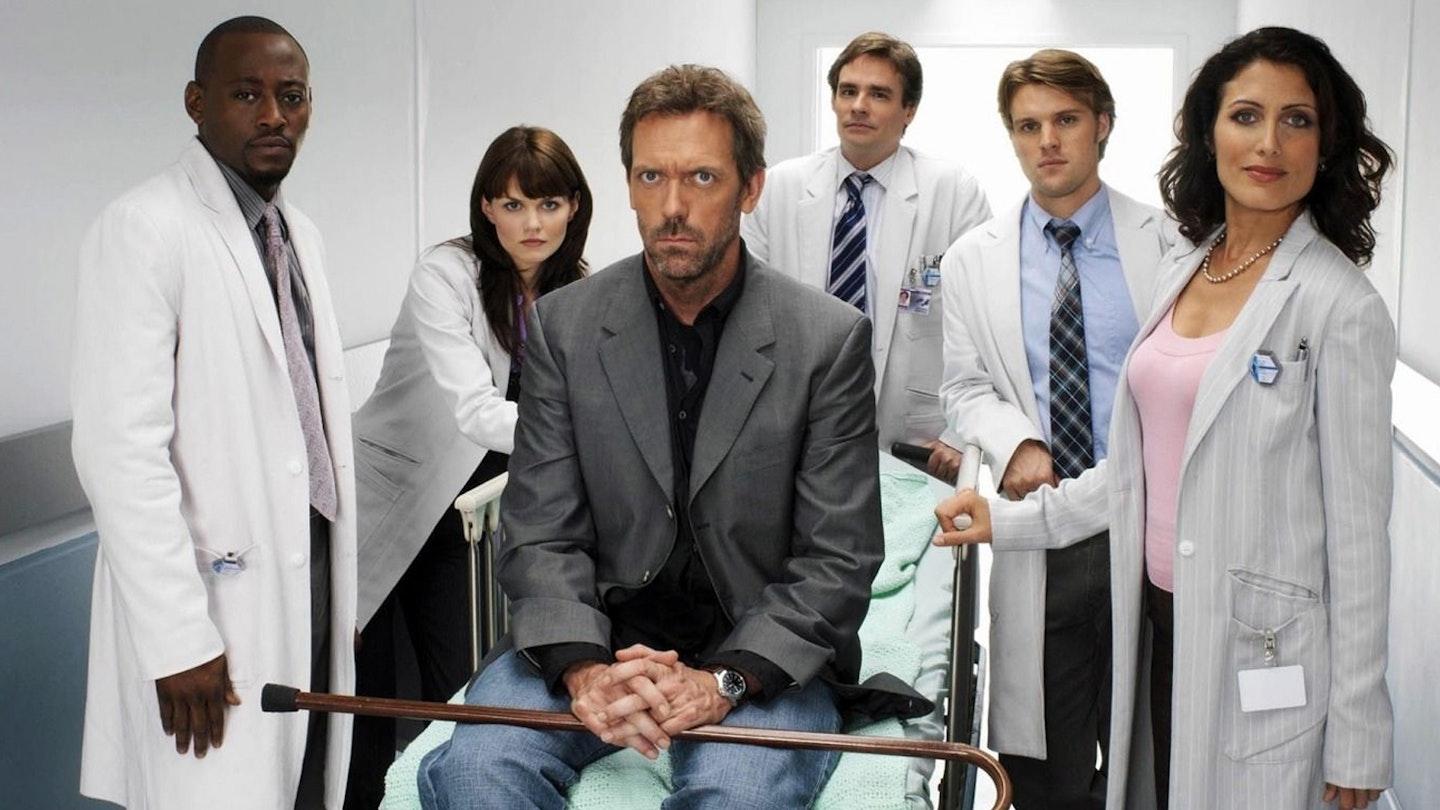
For people more used to seeing Hugh Laurie as the bumbling Bertie Wooster or swapping witty quips with Stephen Fry, House was something of a culture shock. Yet Laurie was the perfect person to bring the grumpy genius doctor to life. Diagnosing the cases that appear to confound others, he's a difficult character in the Sherlock mould, battling his own demons even as he fights the worst, most confusing medical issues in his patients. Keeping to his personal credo that "everybody lies", he drives his staff to the heights professionally even as he castigates them personally. Bringing a little extra spice to the medical procedural genre, House established a solid spin on a well-used template.
63) The Thick Of It (2005-2012)
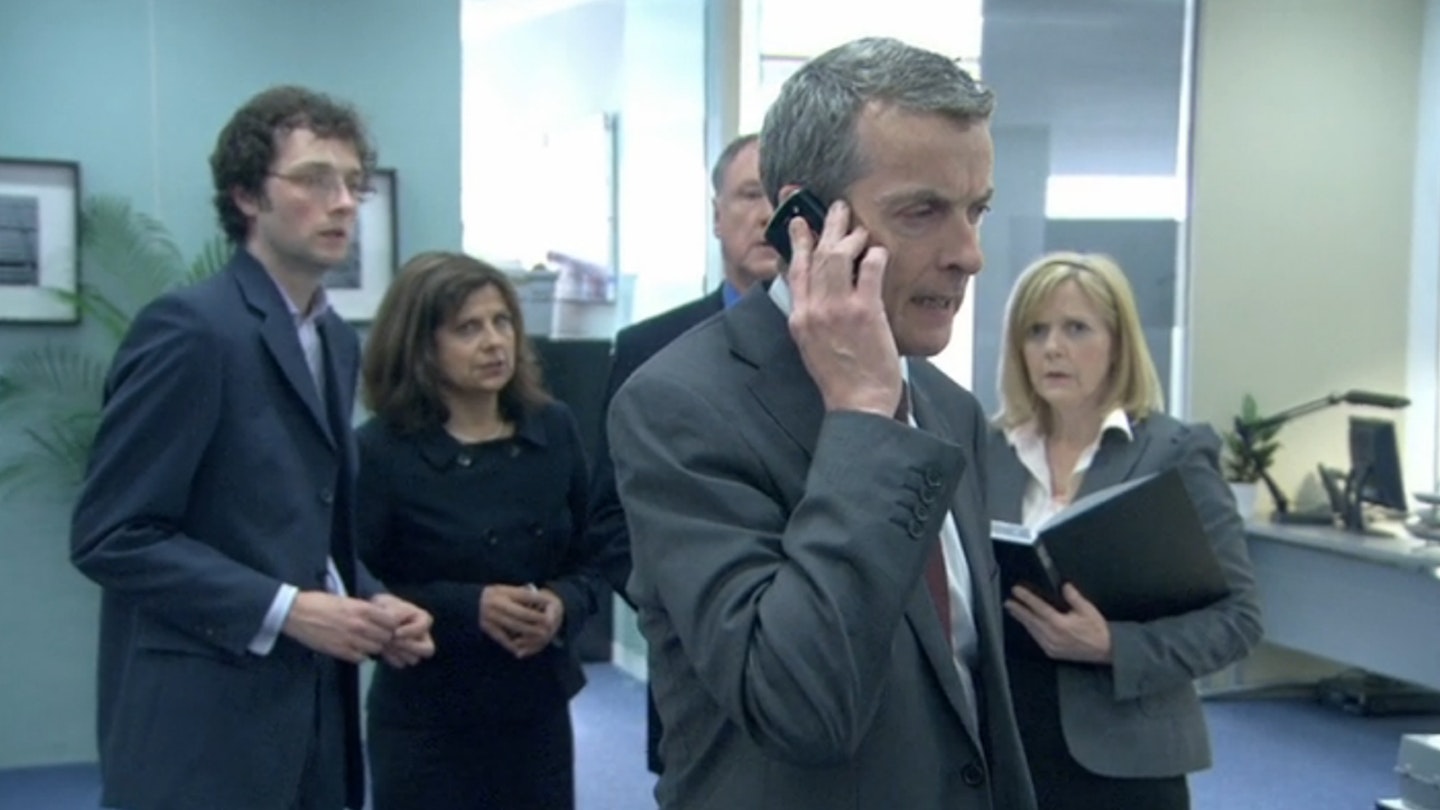
Political satire used to be a mere wry quip here, a raised eyebrow there (the iconic Yes Minister aside). Then The Thick Of It stormed in and told everybody, "Fuckity bye." With Peter Capaldi's fire-breathing fixer Malcolm Tucker at its centre, Armando Iannucci's foul-mouthed comedy remains one of the sharpest, quickest-witted comedies ever, skewering Britain's political class via a tornado of creative cursing. Bizarrely, and to the general bemusement of its creators and fans, life unwisely decided to imitate art when Michael Gove announced plans to have children design apps mere days after the "Silicon Playgrounds" episode, meanwhile while George Osborne's 2012 budget was widely described as an "omnishambles".
62) Fargo (2014-present)
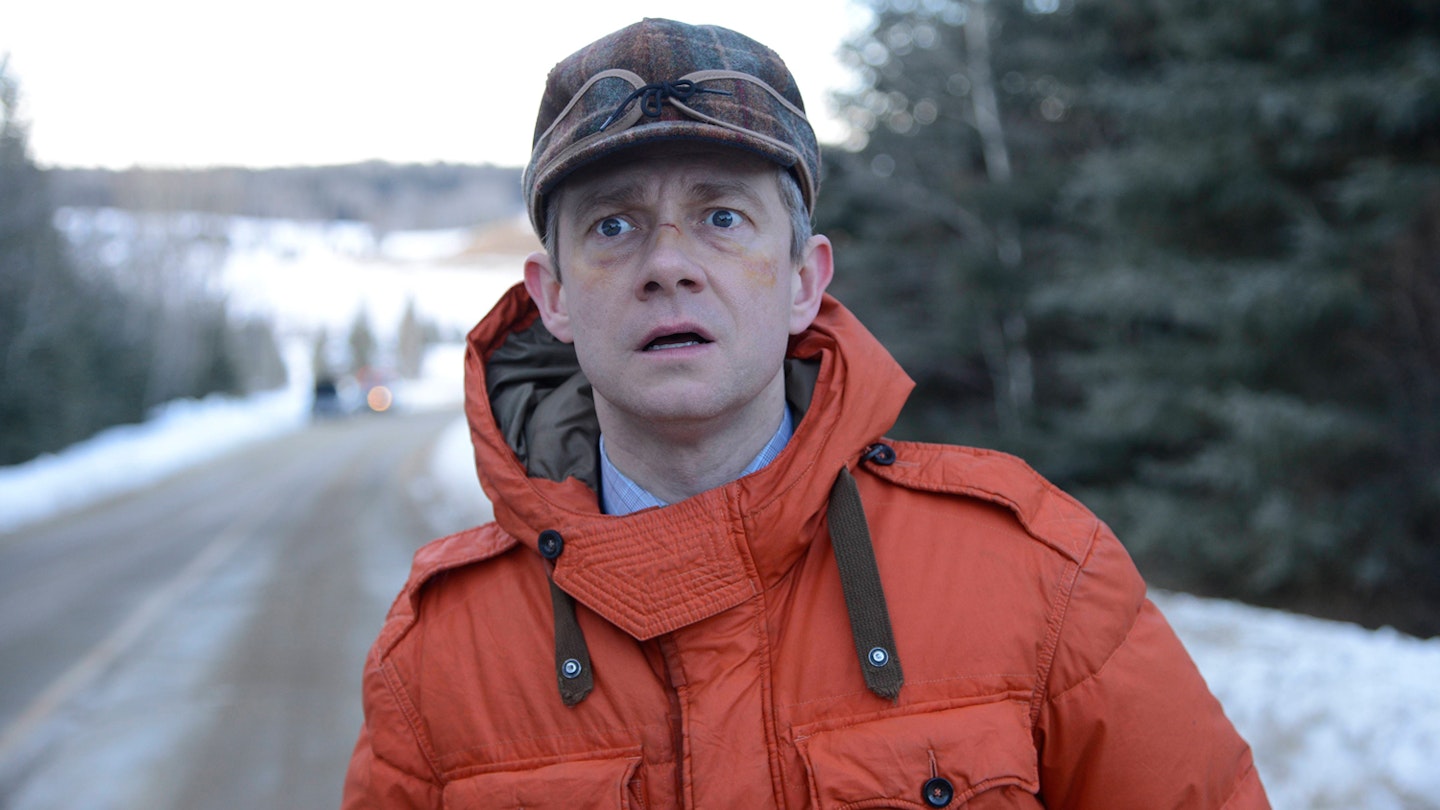
A prime example of not judging ideas before you see them realised, alarm bells rang when it was announced that someone was going to make a TV series based on the Coen brothers' crime classic. But showrunner Noah Hawley was incredibly smart, using the movie's faux true crime trappings and small-town setting while weaving his own story into them. Throw in an anthology format that changes the game every season, and a cast that has already boasted the likes of Martin Freeman, Colin Hanks, Patrick Wilson, Kirsten Dunst, Billy Bob Thornton, Bob Odenkirk, Jesse Plemons, Ewan McGregor (as twins, no less), Mary Elizabeth Winstead, Jessie Buckley, Chris Rock, Jon Hamm, and Jennifer Jason Leigh to name but a few, and Fargo's small-screen incarnation absolutely stands on its own.
Read the Empire review of Season 4 here.
61) The Twilight Zone (1959-1964)
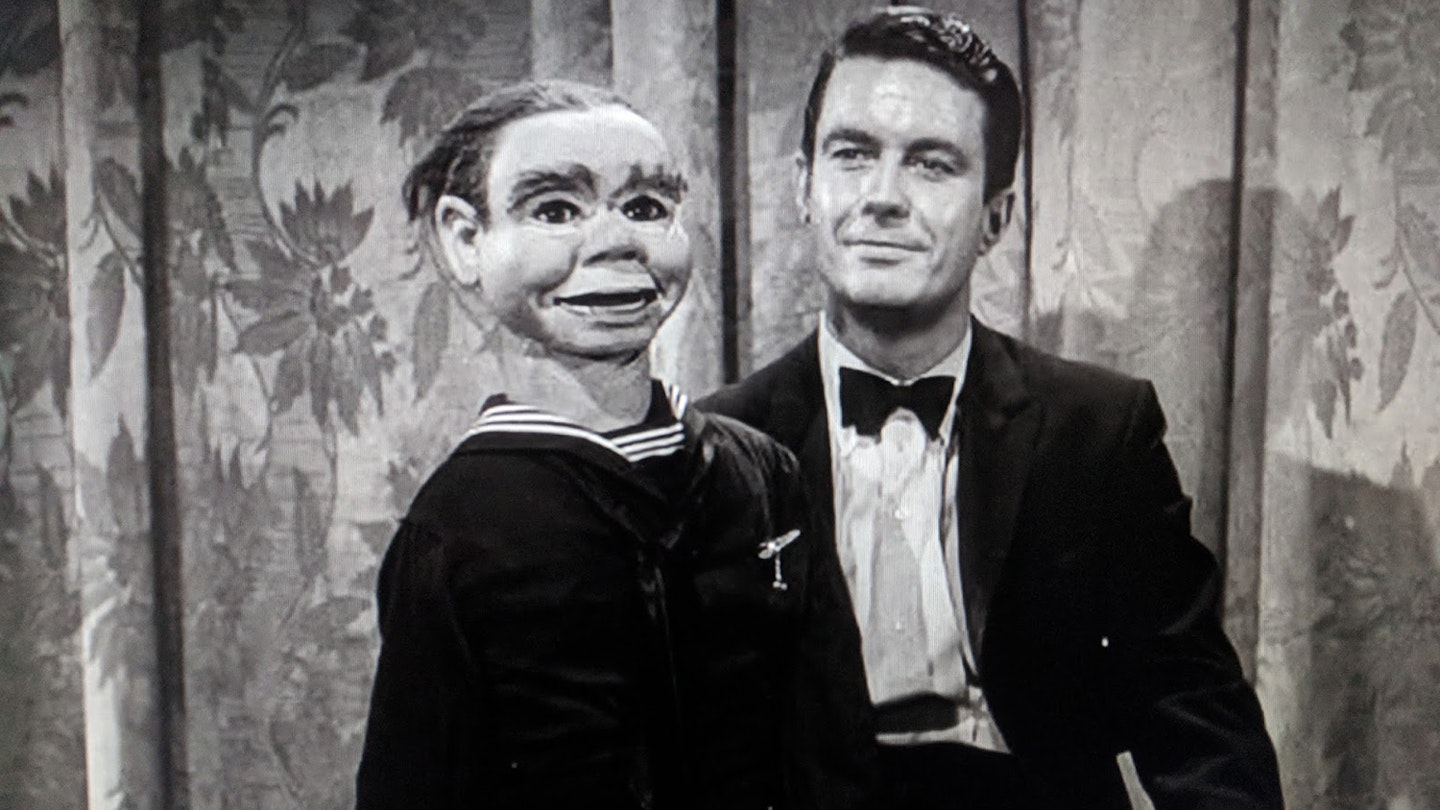
“Do-do do-do, do-do, do-do…” No, we haven’t fallen asleep on our keyboard, we’re just reciting the immortal intro music to The Twilight Zone — obviously! Such is the impact of Rod Serling's series, which gathered some of the best speculative writers and stories of the time, that it keeps coming back in different forms, and its impact is felt through popular culture to this day. Aiming to explore universal concepts while creeping us out or making us think (or both), this mid-century American juggernaut merged big ideas with popular ideals and proved that smart storytelling could work on television. Once seen, rarely forgotten — especially with that unnerving theme and Serling's iconic introductions — the OG Twilight Zone, appropriately, exists in a dimension of televisual brilliance that’s entirely its own.
60) Only Fools And Horses (1981-2003)
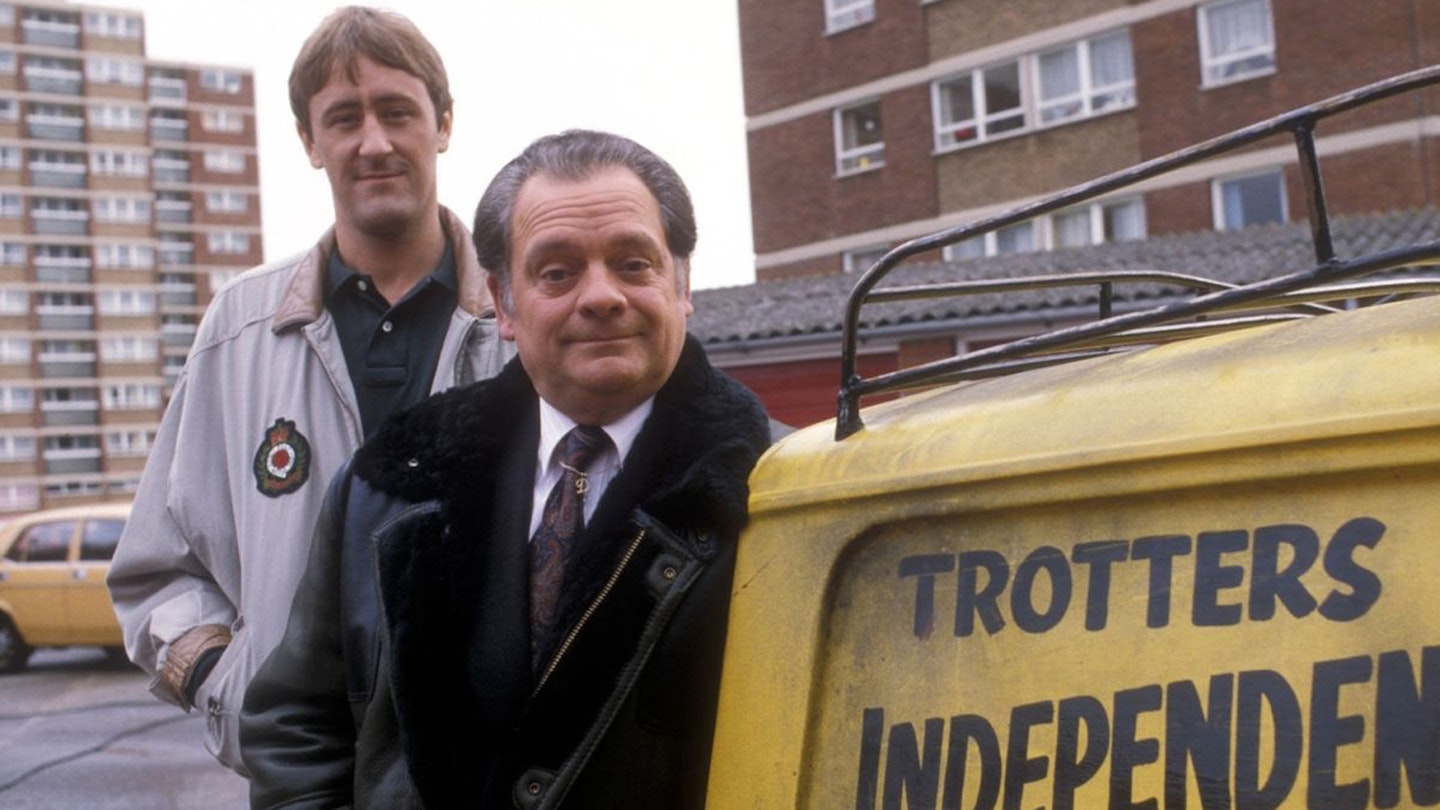
The later Christmas specials may have tested our good will, but for most of its run, Only Fools And Horses represented the peak of British sit-coms, and endures to this day as a perennial national treasure. Del Boy and Rodney Trotter's doomed attempts to become millionaires kept the nation smiling for over 20 years and, thanks to constant repeats, the duo’s derring-do and utter dipstickery continues to keep us chuckling. The show’s best bits — the chandelier scene, the yuppie bar fall, the Batman & Robin run — represent a real embarrassment of comedic riches, while “Time On Our Hands” will surely be forever remembered as one of the greatest feel-good finales in British telly.
59) Line Of Duty (2012-2021)
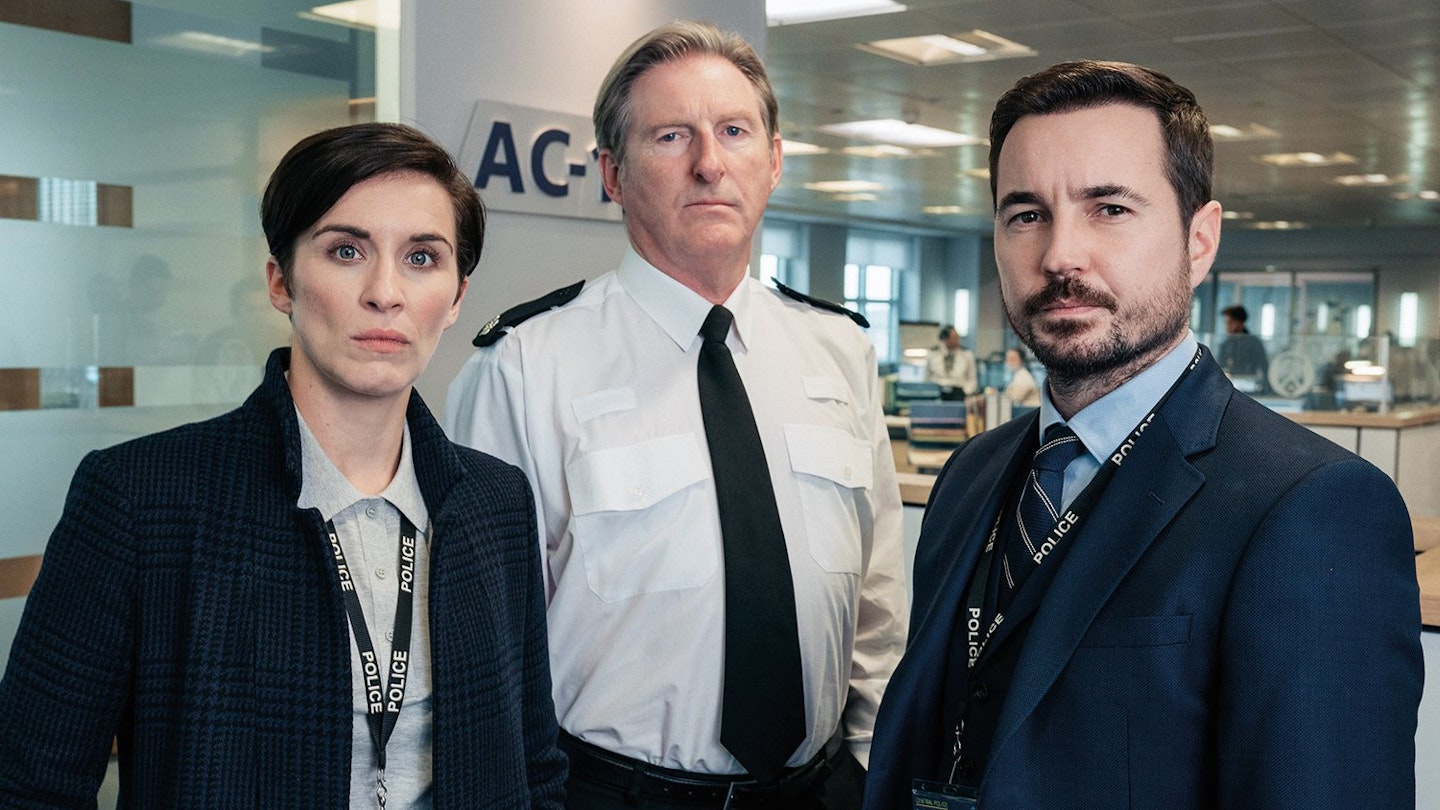
America might have brought us shows such as NYPD Blue and The Wire, but Britain remains a powerhouse exporter of police series. And Line Of Duty, an acronym and jargon stuffed look at the efforts of a team of corruption-battling cops and the moles they just can't seem to squash, is the cream of the crop (or cop, if you’d rather.) Jed Mercurio’s (who also whipped up Bodyguard) nation-gripping series has Martin Compston, Vicky McClure and Adrian Dunbar as the driven central trio of officers who must navigate twisty cases as they root-out wrongdoers from within and without. It'll keep you guessing as to who's really manipulating events behind the scenes, while the dialogue crackles in extended interrogation sequences, and the show looks as good as anything from across the pond. And the ultimate reveal of “H”, which we spent years trying to puzzle out? Jesus, Mary, Joseph and the wee donkey… we’ve still yet to come to terms with it.
Read the Empire review of the final season here.
58) Prime Suspect (1991-1992, 1993-1996, 2003-2006)
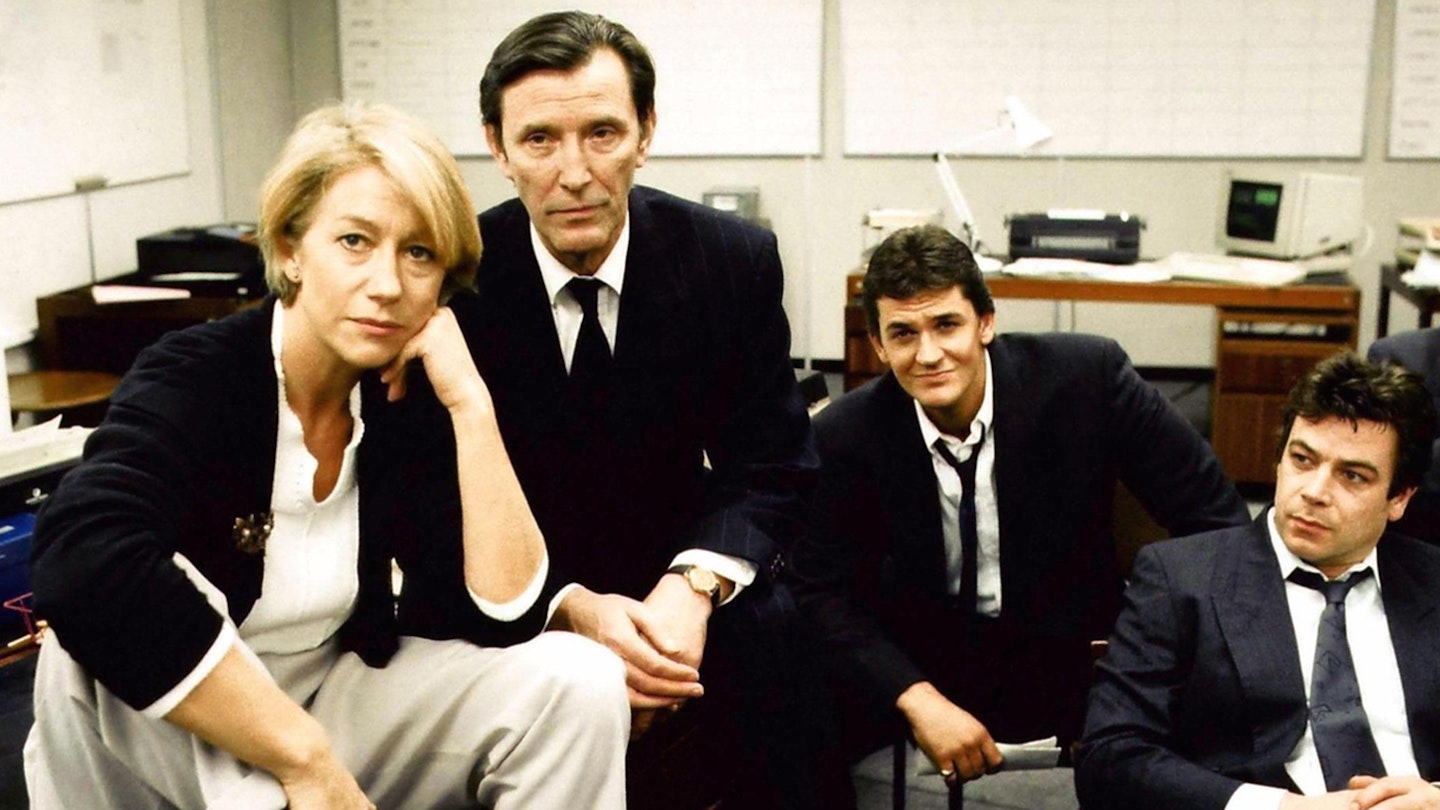
For all of her award-winning film work and long history of theatre experience, it is for Jane Tennison that many know and cherish Helen Mirren. Created by Lynda La Plante, the story of a no-nonsense detective chief inspector battling her way through a male-dominated police force turned the usual law enforcement clichés on their head. Mirren is on formidable form as Tennison, deeply ambitious and fiercely able, who nevertheless has to justify herself at every turn. Later series saw her promoted, even as the challenges continued, but the series remained as great as ever. Unafraid to probe into dark places, Prime Suspect has such a standing impact that it has generated both a prequel and a short-lived attempt to remake it for the States.
57) Oz (1997-2003)
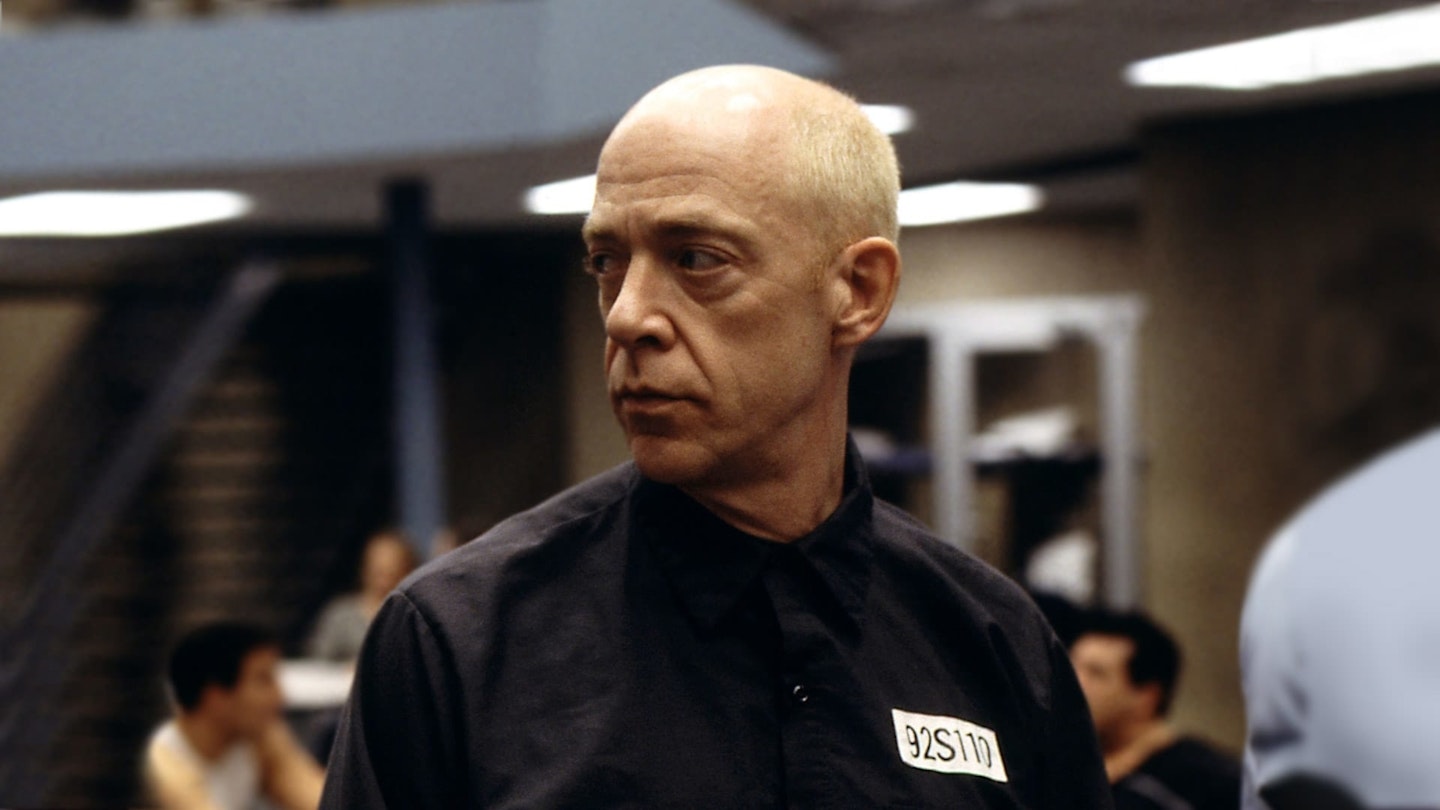
Long before Orange Is The New Black blended humour and pain behind bars, Oz took a much darker look at prison life, set in the Oswald State Correctional Facility. Bleak but brilliant, it gathers a group of characters from different walks of life and then subjects them to terrifying traumas on a weekly basis. If anyone you know shudders when they see the perfectly charming (and not at all psychopathic) J.K. Simmons in other roles, Oz is to blame. It comes highly recommended, but a word of advice if you go bingeing; have something lighthearted and fun to watch between seasons. Trust us.
56) The Handmaid’s Tale (2017-present)
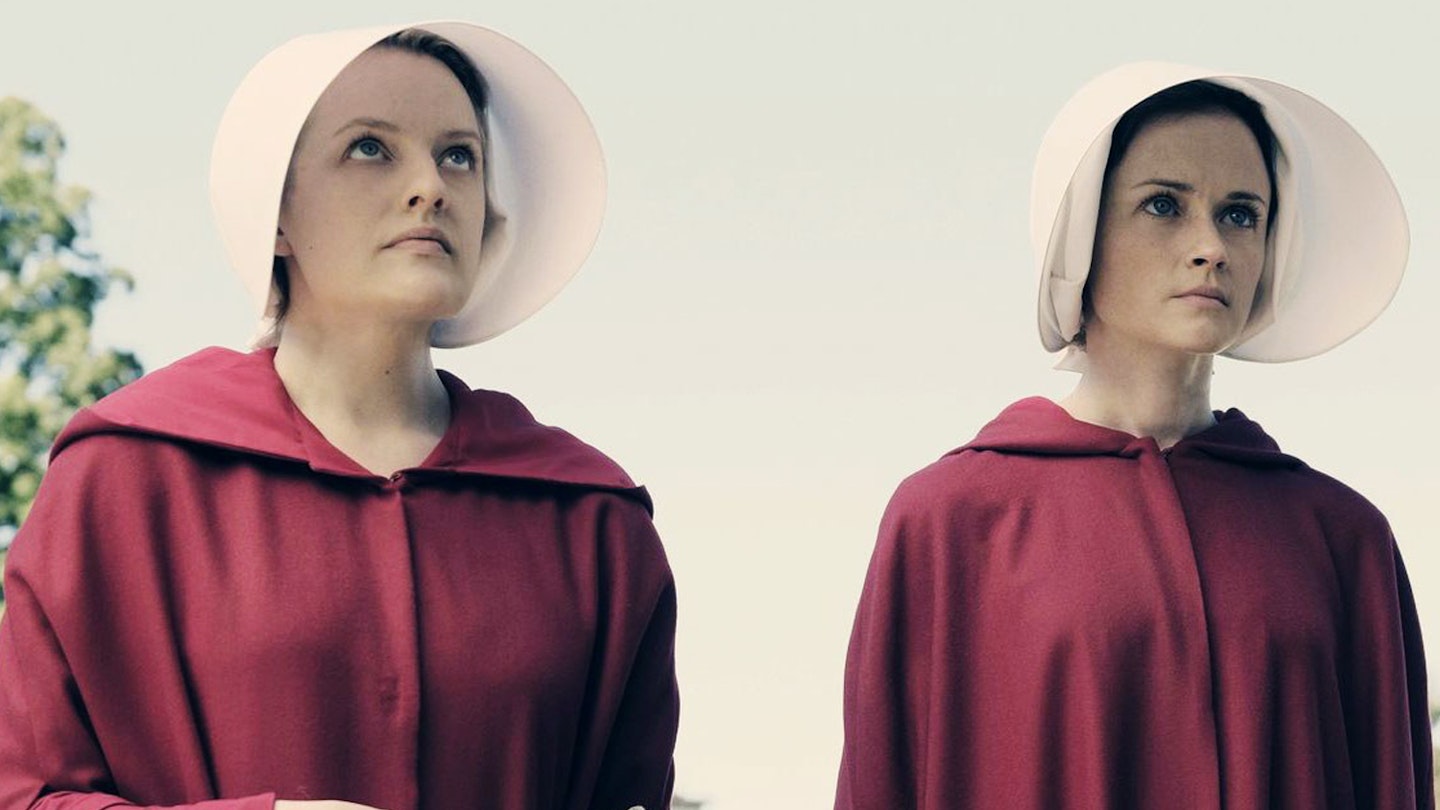
Margaret Atwood's chilling vision of a less-than-united States ruled by a cruel, regressive theocracy becomes more and more prophetic as time marches on. And though The Handmaid's Tale sometimes suffers from being unremittingly bleak, some light and hope does eventually start to show through the cracks. Even with the gloomy, dystopian outlook, there is plenty to recommend it: Elisabeth Moss' award-winning performance as June/Offred for one. Sparking real-life protest gear and any number of think-pieces, the show’s big ideas are standing the test of time — and as a work of adaptation, The Handmaid’s Tale marks a stellar example of how to take a novel's key concept and run with it, the series weaving its own world from the threads established by the original writer.
Read the Empire review here.
55) M*A*S*H (1972-1983)
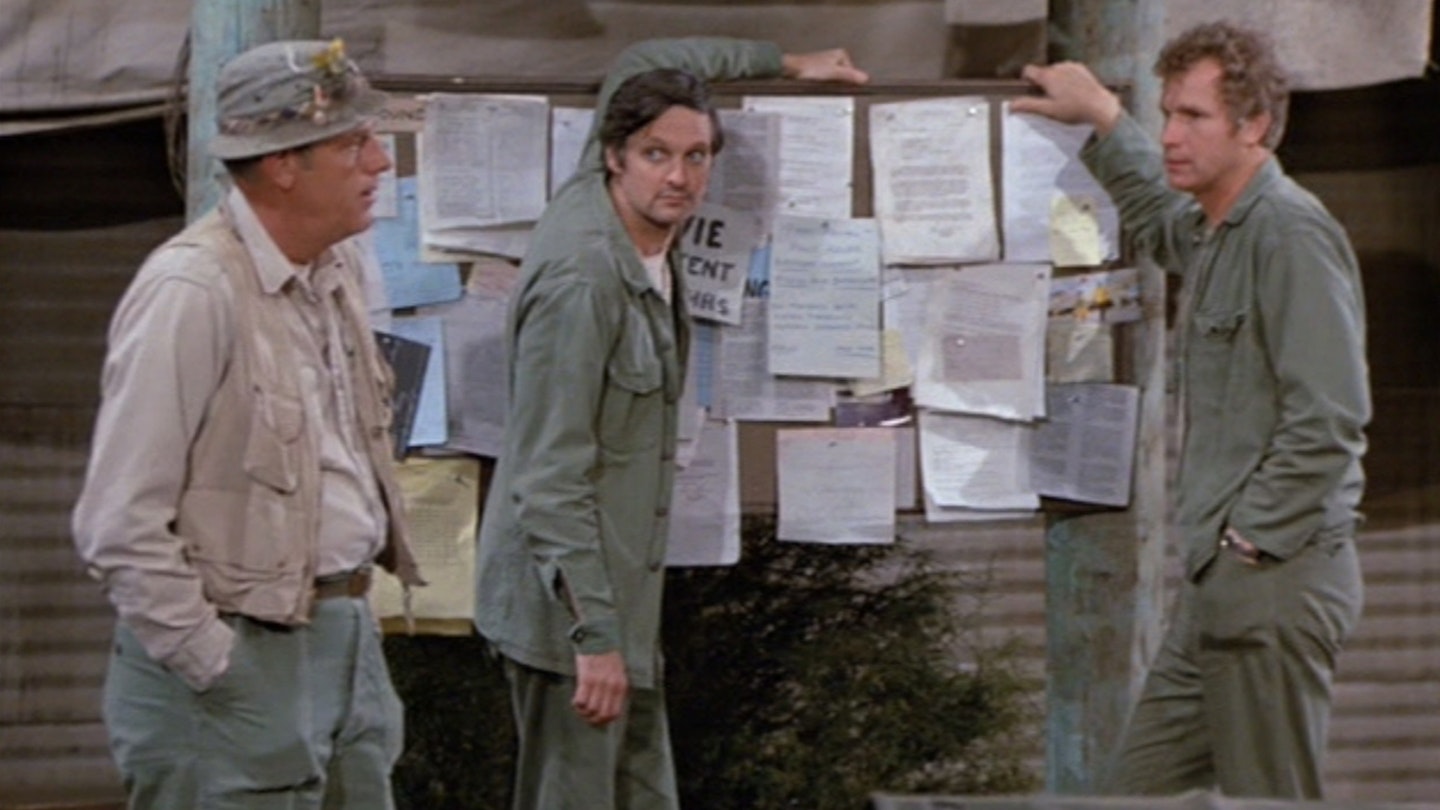
This series, based on Robert Altman's 1970 film, managed to last over three times as long as the Korean War it used as its backdrop. M*A*S*H was a searing exploration of how the doctors and nurses of the 4077th (a mobile army surgical hospital, hence the title) used humour to get through the atrocities they were faced with on a daily basis. A sterling cast headed by Alan Alda kept the show riveting (and hilarious) throughout its 11-year run, while its commentary on war continued to the very end, when, in the final episode, the unit's news reporter discusses the growing conflict in Vietnam.
54) Spaced (1999-2001)
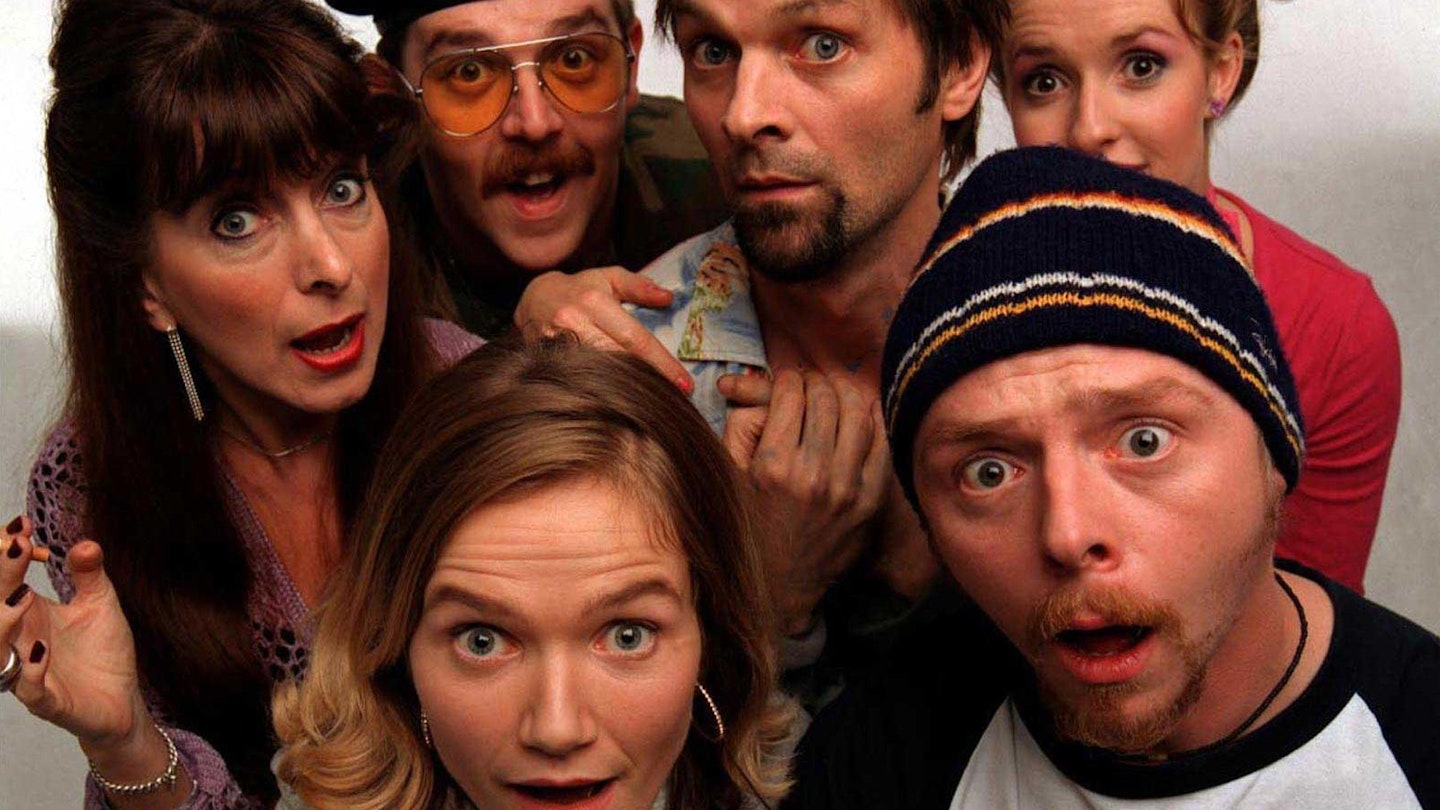
Taking in comic book shops, rave culture, and video games, Edgar Wright, Jessica Hynes and Simon Pegg channeled their own pop-cultural obsessions and witty observations to mine endless funnies from a classic sitcom set-up. Having kicked the careers of the three creators (and co-star Nick Frost) into high gear, Spaced is uproarious but also heartfelt, never forgetting to make the characters into people you care about while riffing on different genres. And the fact that only 14 episodes exist adds to the reason we all like it so much – it never outstayed its welcome. Without Spaced, there is no Cornetto Trilogy! so how's that for a slice of fried gold?
53) Andor (2022-present)
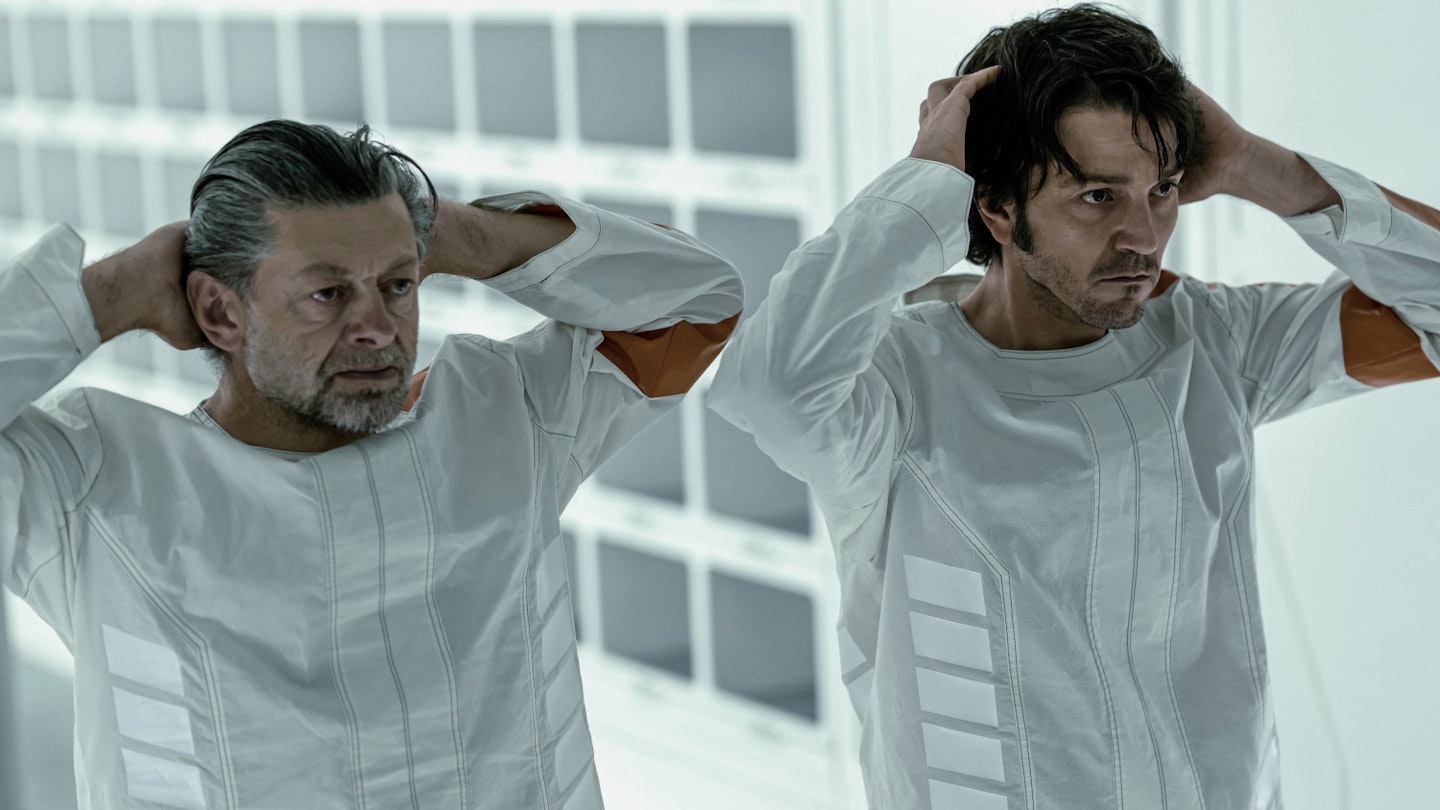
There are two pretty distinct sides to the Star Wars universe - and no, we don’t just mean the Light and the Dark. One side is a mythic beast, given to tales of the Force and magic and dueling laser swords; it’s a side Ahsoka recently (mostly) nailed. The other side is Peabody Award-winning prestige television that takes the inherently political conflict between the Rebellion and the Empire and weaves about it a stunning, nuanced, knotty exploration of the slow-dripping poison of fascism and the banality of evil. That side is Andor. The brain-child (or at least further developed by) Rogue One script doctor Tony Gilroy, this series takes what could have been a basic origin story for Diego Luna's rebel agent from the prequel Star Wars Story and instead spins a complex web around him. Tackling the terrifying Imperial attitude, resistance fighters and downtrodden outer rim colonies, grounding George Lucas’ universe with real sets and scant fan-service [*side-eyes The Book Of Boba Fett*], it's smart and mature storytelling of the highest order. ONE WAY OUT! ONE WAY OUT! ONE! WAY! OUT!
Read the Empire review here.
52) Black Mirror (2011-present)
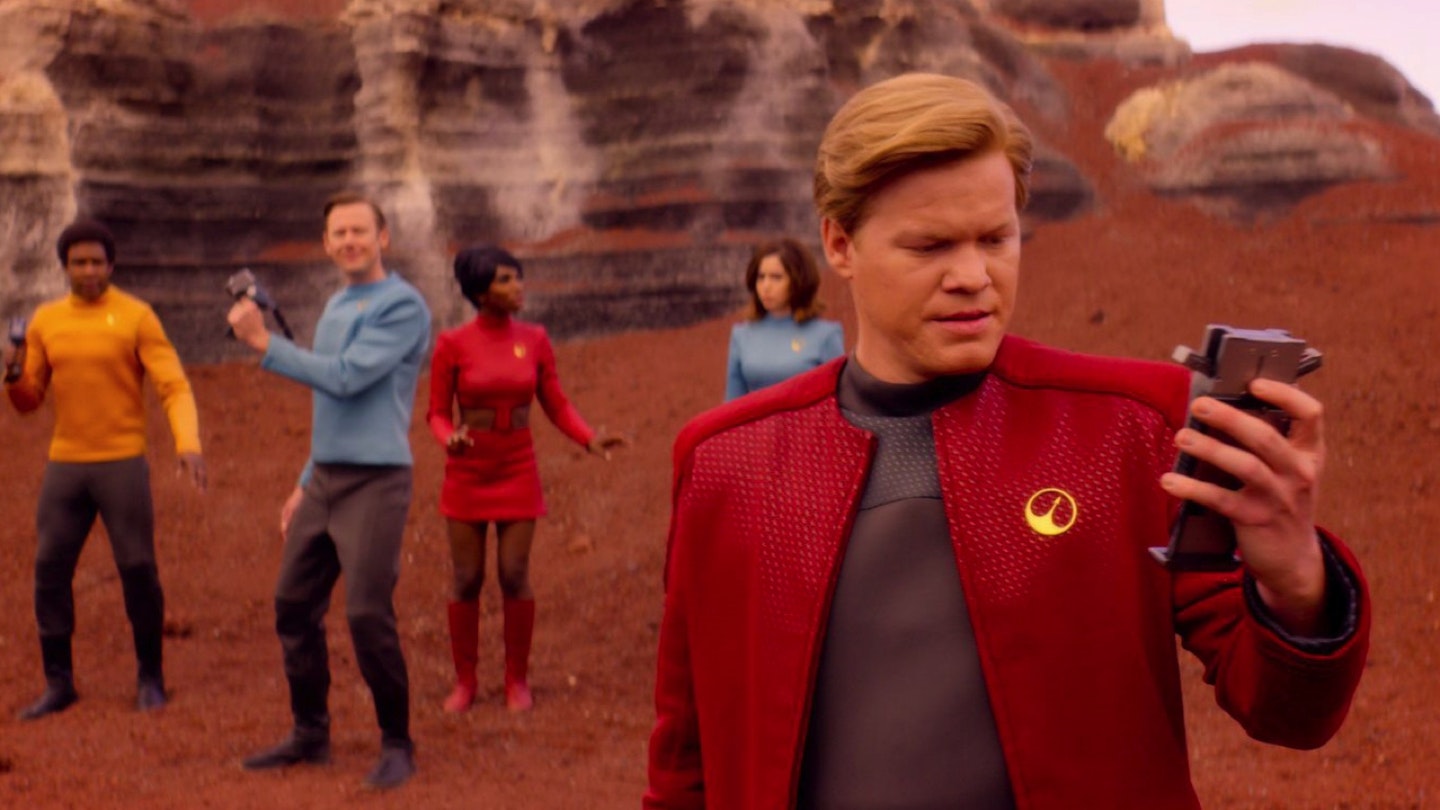
How's this for cultural impact: the phrase 'Black Mirror' has entered the cultural lexicon as a descriptor for anything vaguely dystopic in our dark times. After calling Channel 4 home for its first two series, Charlie Brooker's gloriously bleak sci-fi anthology series jumped ship to Netflix for its third, fourth, fifth, and indeed sixth series (plus interactive choose-your-own-adventure special Bandersnatch) dealing with everything from reality television to memory implants to futuristic funeral homes with a wry, cynical, darkly satirical eye. Don’t let the series’ all-star alum — Aaron Paul, Miley Cyrus, Andrew Scott, Bryce Dallas Howard, Jesse Plemons among others — fool you, friends; this is still the ultimate feel-bad show.
Read the Empire review of Season 6 here.
51) Arrested Development (2003-2019)
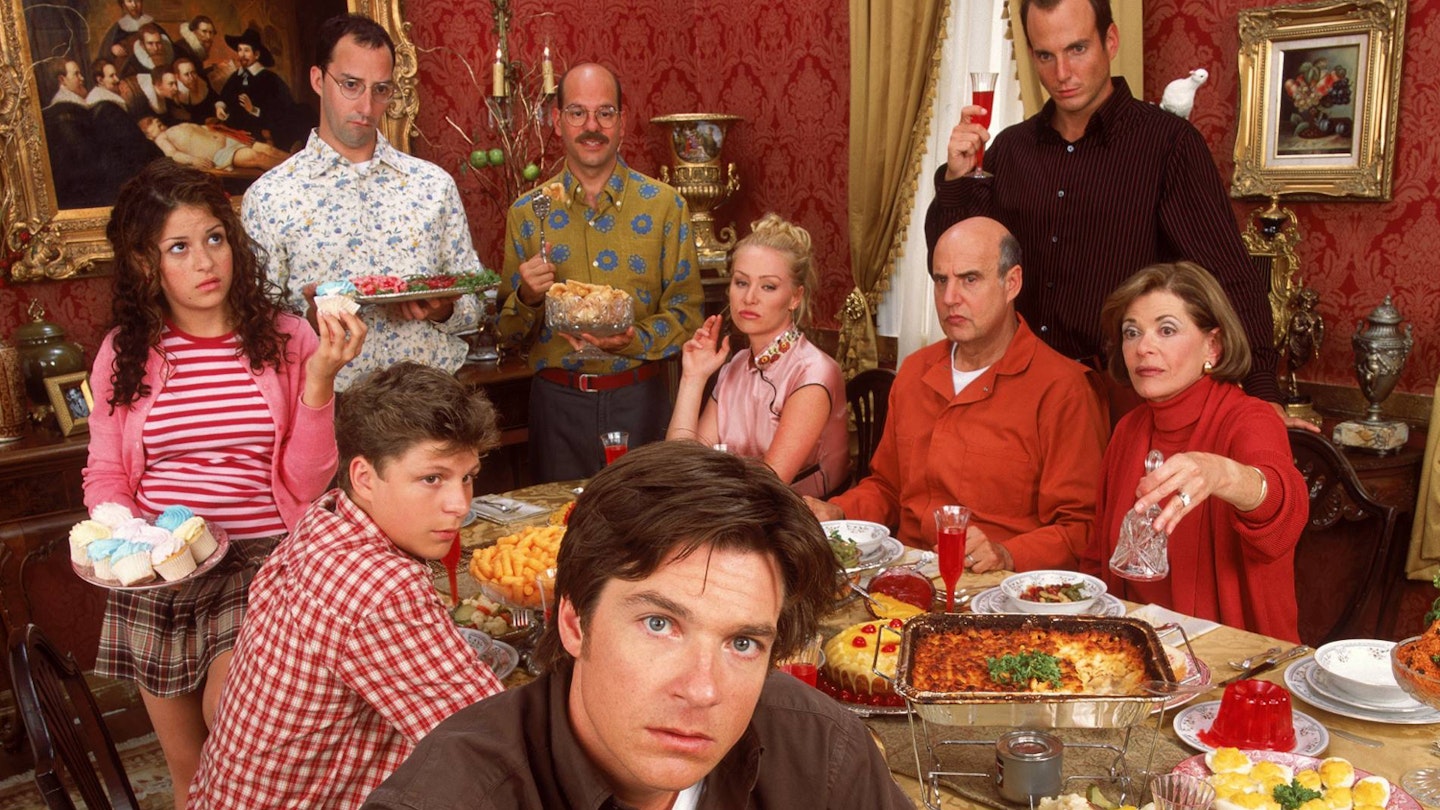
Now, the story of a groundbreaking sitcom that very nearly died a quiet, ignominious death at the hands of an indifferent network, before it was saved by an internet streaming site isn’t exactly uncommon in the streaming age. But when it first arrived in 2003, Arrested Development was so fiendishly clever, so densely plotted, so shrewdly ironic, that the bigwigs at Fox barely knew what to do with it. Despite Fox's best efforts to bury the show in strange time slots, the Bluth family earned a feverishly loyal cult audience — one that eventually conferred upon it a Netflix rebirth. The brain-melting ambition of Season 4 may have been a noble failure for some, and Season 5 didn't necessarily correct that, but its initial run remains one of the most innovative comedies ever produced, worthy of a place on anybody’s greatest shows list.
50) Star Trek: Deep Space Nine (1993-1999)
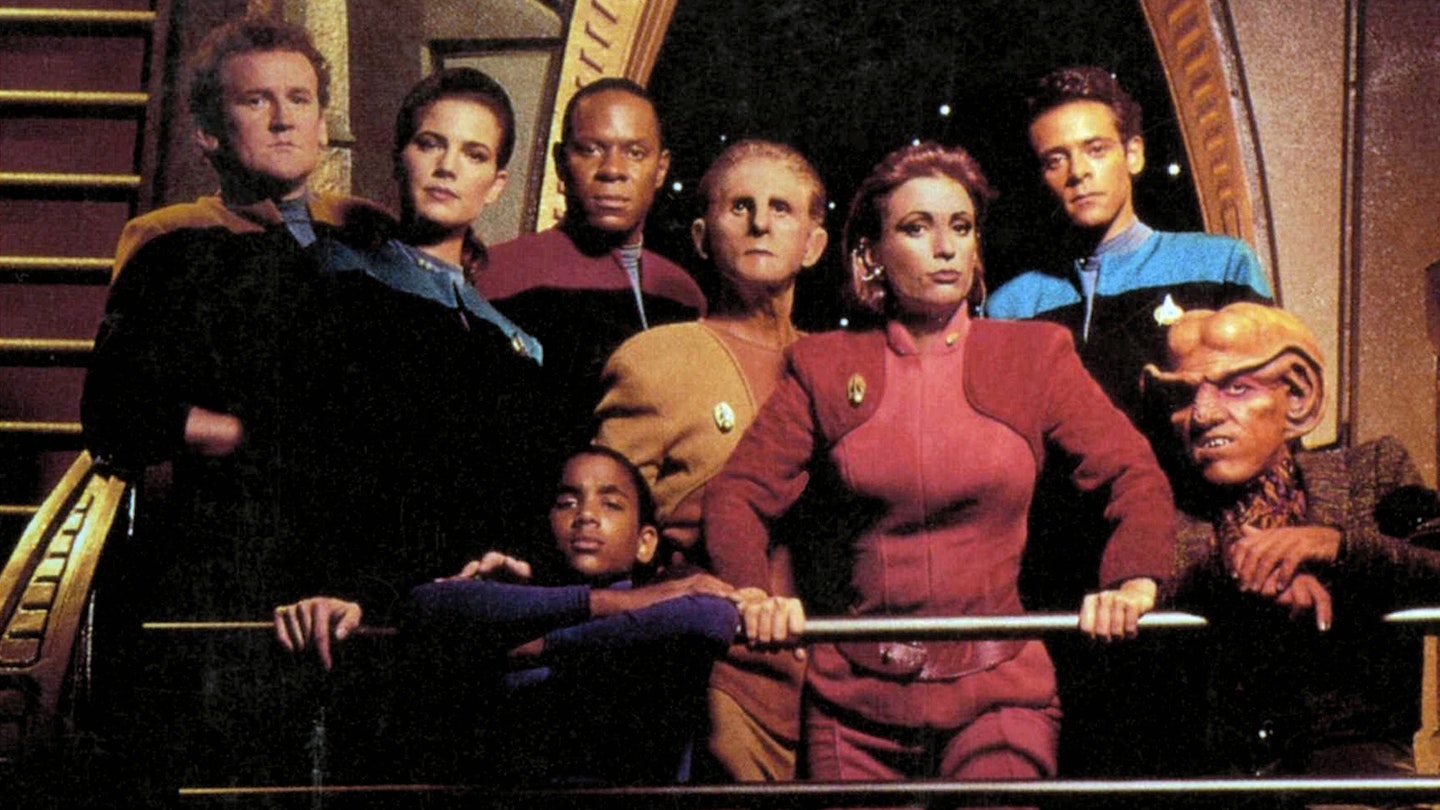
The perfect show for binge-watching before the concept existed. In its earliest days, this spin-off to Star Trek: The Next Generation felt like the storytelling was going to be by-the-numbers Trek, only on a space station. Flash-forward a couple of seasons, and that couldn’t have been farther from the truth. This is the show that broke the Star Trek mould, filled with flesh-and-blood human beings (even if they were aliens), character arcs that frequently stretched over the course of seasons, groundbreaking storytelling and complex characters. Some complained early on that this station-bound show didn't go anywhere – but really, this was the Trek that truly went where none had gone before.
49) The Walking Dead (2010-2022)
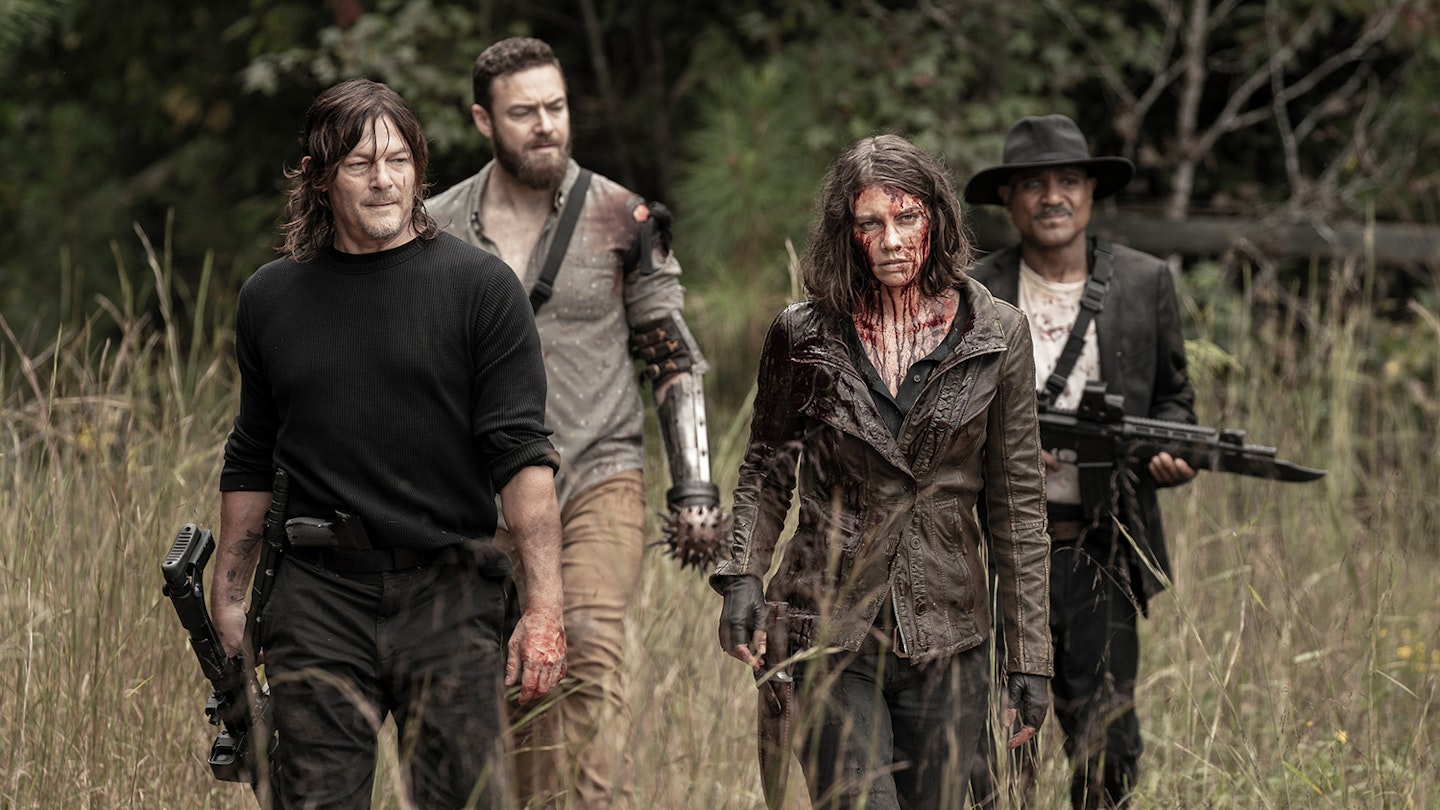
There have been zombies before – lord knows, there have been zombies – but The Walking Dead gave the post-apocalyptic concept time to carry on, and on, and on, exploring the ramifications of a total societal breakdown. Set in an increasingly savage, undead-plagued world, Rick Grimes (Andrew Lincoln) and his not-particularly-merry band of survivors find themselves grappling not only with the flesh-eaters – sorry, 'walkers' – but also the living. It's as much a show about survivalism and ethics as it is about gore and cool make-up – and it's done with characters we truly care about. While the series' astonishing viewing figures dropped off towards the end of its run, and more recent prestige fare like The Last Of Us have refined the post-apocalyptic TV formula further, The Walking Dead’s secret sauce remains potent; it was always more about humans than monsters.
48) Monty Python’s Flying Circus (1969-1974)
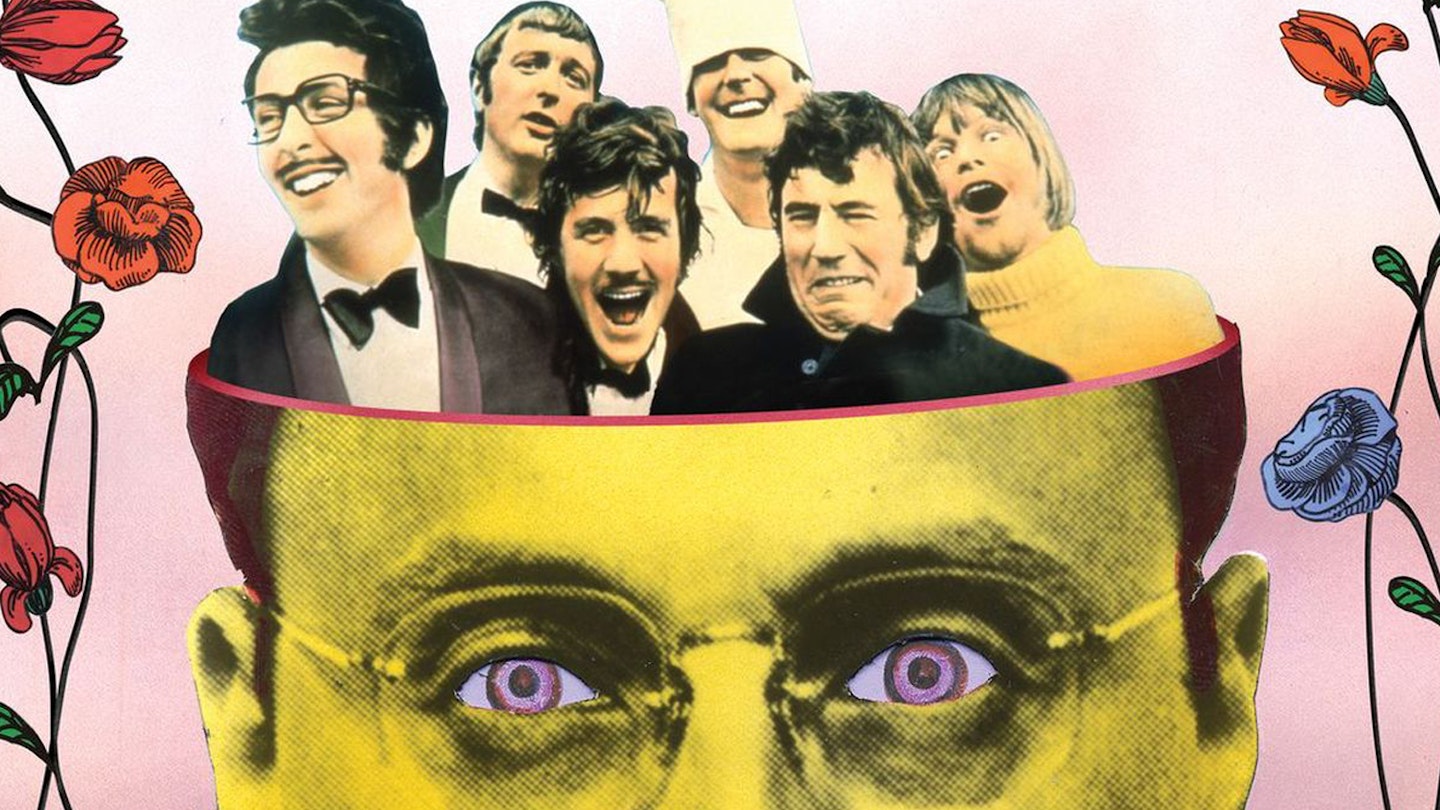
Forty-five episodes of bite-sized genius showcase the Pythons at their riffiest, daftest, most out-there best. A bold blueprint for British sketch comedies for years to come, its deliberately outsized Britishness is embroidered by Terry Gilliam's surrealist animations – a little like Dali once did for Luis Buñuel, only with more giant feet and mutant chickens. The gang take turns to poke fun at the nations' bureaucrats, toffs, gameshow hosts and the Royal Philharmonic Orchestra (among others), and its upside worldview reaches its logical conclusion when the village idiot turns out to be the smartest character in the show. Often imitated, never bettered, the Pythons’ japes have lost none of their bite, even half a century later.
47) Stranger Things (2016-present)
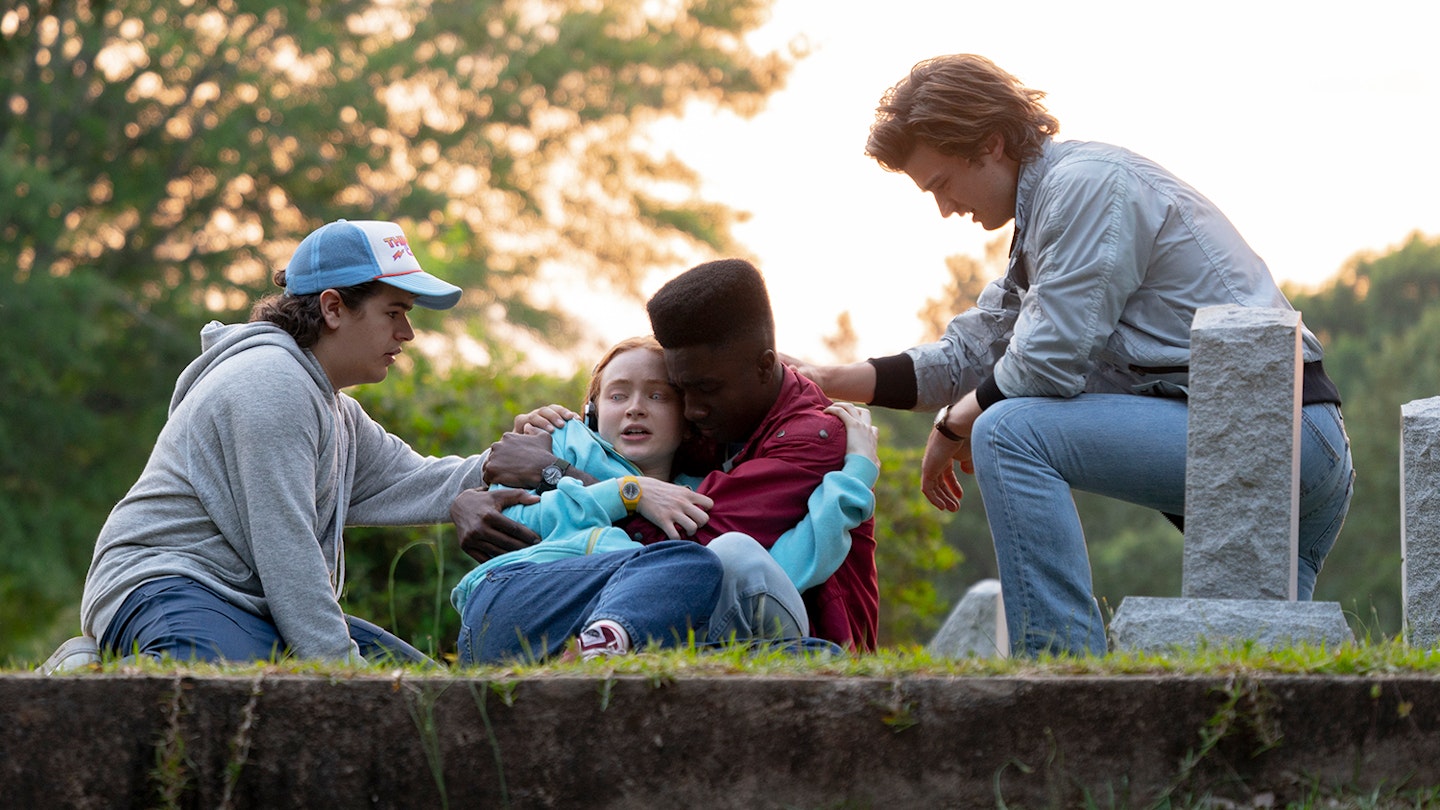
The nostalgia dial is squarely set on the 1980s in the Duffer Brothers' hit Netflix show. Stranger Things channels the era perfectly, mixing up a horror and sci-fi blend that hits you right in the Spielberg and Stephen King sweet-spot, depicting a seemingly quiet Indiana town that suddenly becomes a hotbed of terror as scientific tinkering unleashes an otherworldly dimension lurking beneath the surface (or sharing a parallel space). The show boasts a revolving door of period-appropriate faces (Winona Ryder! Matthew Modine! Sean Astin! Cary Elwes!) and a top turn from David Harbour, but it’s the D&D-playing kids and their schoolmates who really make the show – from Finn Wolfhard and Millie Bobby Brown, to Joe Keery and later fan faves Maya Hawke and Joseph Quinn. An incredibly bingeable homage to a bygone genre era, Stranger Things has grown into a global phenomenon spanning games, stage shows, and theme park attractions, all without ever losing its teen spirit.
Read the Empire review of the latest series here.
46) Watchmen (2019)
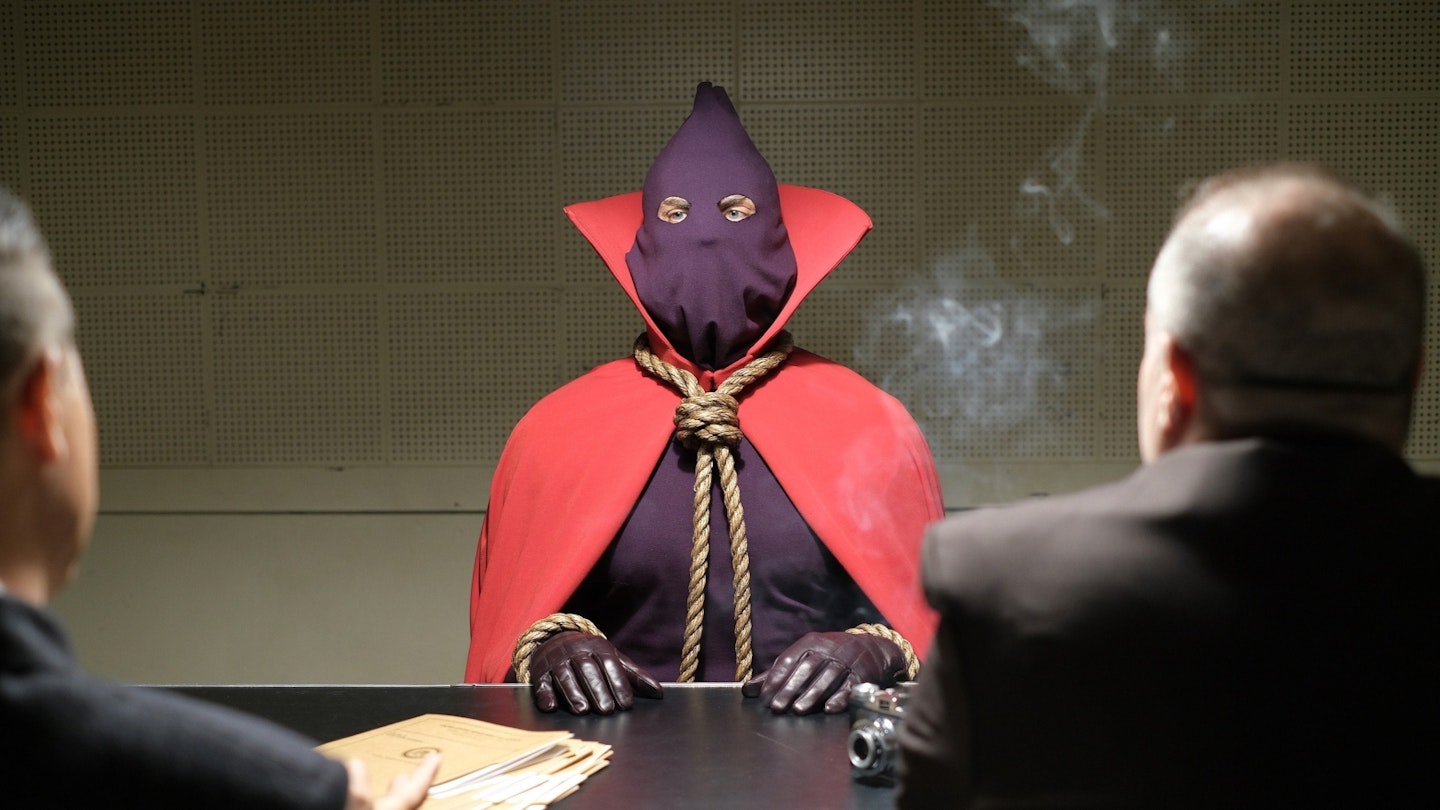
No-one quite knew what to expect from Lost and The Leftovers man Damon Lindelof's plan to tackle Alan Moore and Dave Gibbons' notoriously prickly graphic novel, which had been brought to the cinema faithfully but problematically back in 2009. A decade later however, and Lindelof cracked it by not going directly to the source. That serves as the history and canon for this series, but Watchmen takes detours and spins its own tale. Today's zeitgeisty topics such as police brutality and race relations are in the spotlight and there's a lean efficiency to the storytelling that means even what appear to be wacky diversions (Jeremy Irons as Adrian Veidt, imprisoned with a batch of clone servants) tie into the main story. The anchor is masked police officer Angela Abar, played with electrifying, award-scooping energy by Regina King. Who watches the Watchmen? Us!
Read the Empire review here.
45) Hannibal (2013-2015)
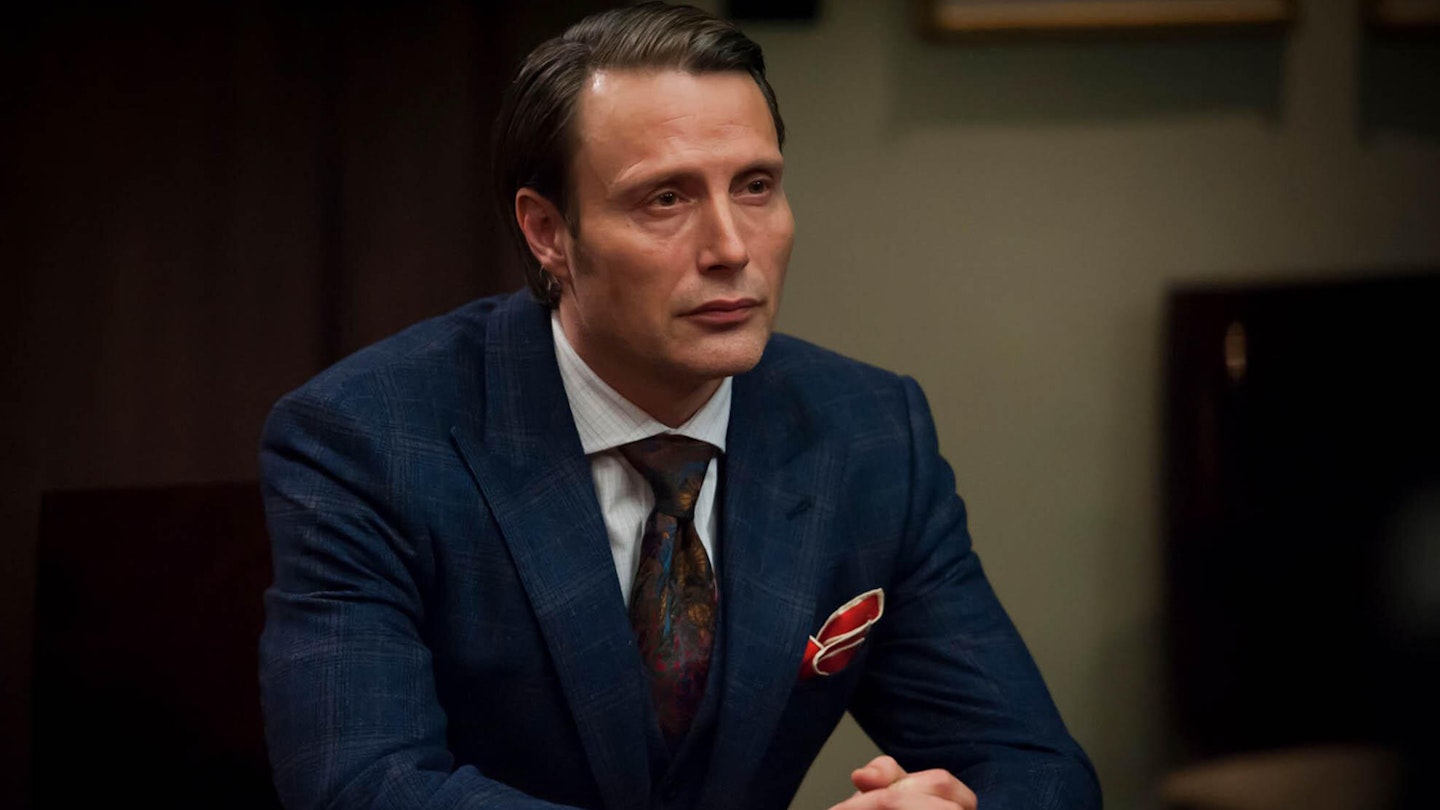
Bryan Fuller is widely acknowledged as the Quirk King of TV, and while many of his shows have burned brightly but briefly, his style was perfectly suited to the world of Hannibal Lecter. Mads Mikkelsen played a slinky, stylish version of the eponymous serial killer with no time for the rude and selfish, and Hugh Dancy brought haunted passion to Will Graham, in a show that played out over three seasons before the plug was pulled. Fuller and his co-creators at least got to indulge in beautiful, traumatic crime scene creations, superb gourmet cannibalism and a hero who was more complicated than most, all served up in the most baroque fashion. We'd have liked more, of course, but we're grateful for what we got.
Read the Empire review here.
44) The Americans (2013-2018)
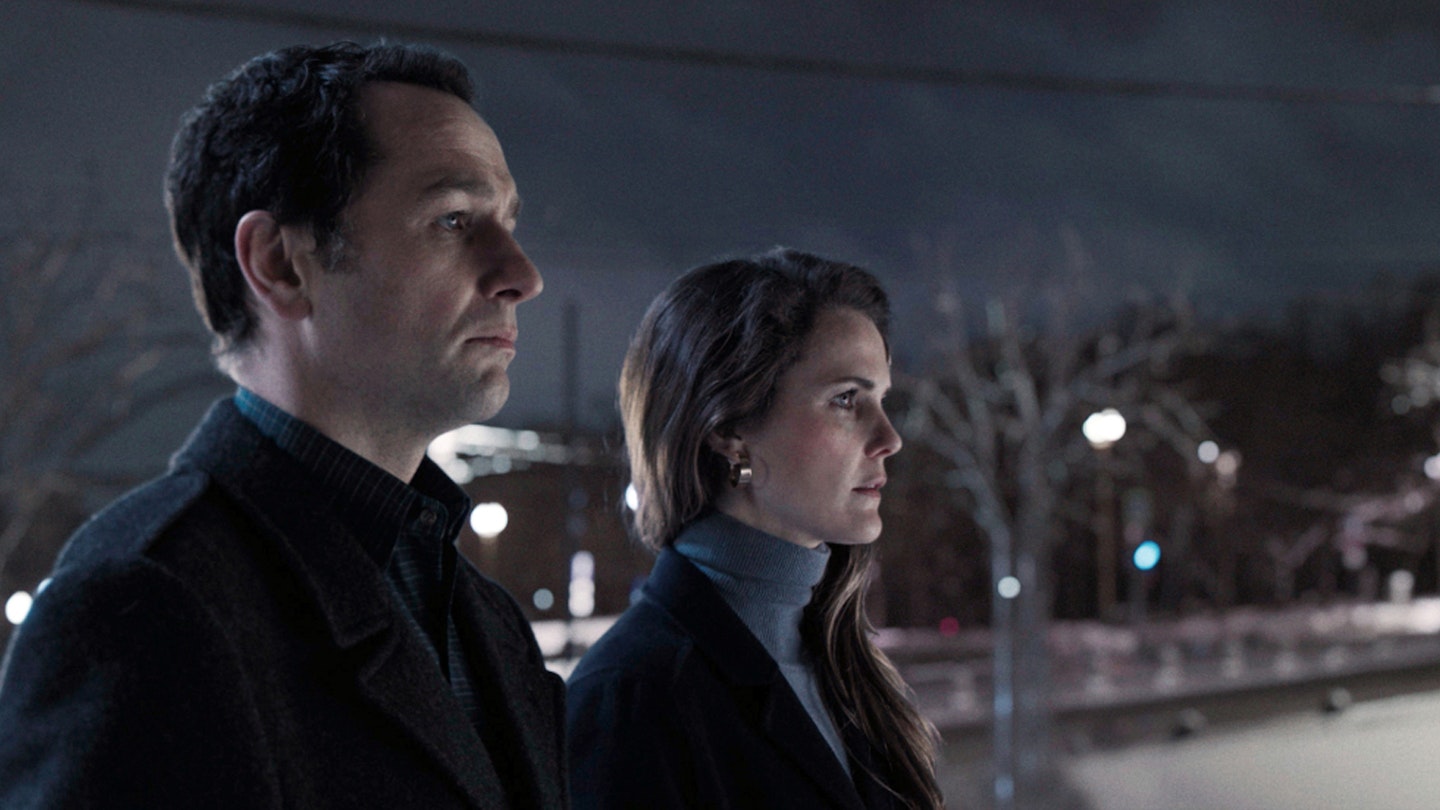
The Cold War feels that much chillier in this inventive series, which follows the lives of two Russian sleeper agents who are very much awake in 1980s Washington. Complicated, passionate and thrown together by Mother Russia, Philip (Matthew Rhys) and Elizabeth Jennings (Keri Russell) are fascinating creations: driven by patriotism but torn by the pull of their adopted home and the American family they raised as a cover. They're conflicted killers, murdering people when the mission demands it – and the show doesn't shy away from the darker sides of their nature, finding inventive ways to dispatch innocent and not-so-innocent victims. Elsewhere, the show provides some top-drawer needle drops and provides great roles for the likes of Margo Martindale and Frank Langella. Sometimes vicious, often touching, always excellent.
Read the Empire review here.
43) The Last Of Us (2023-present)
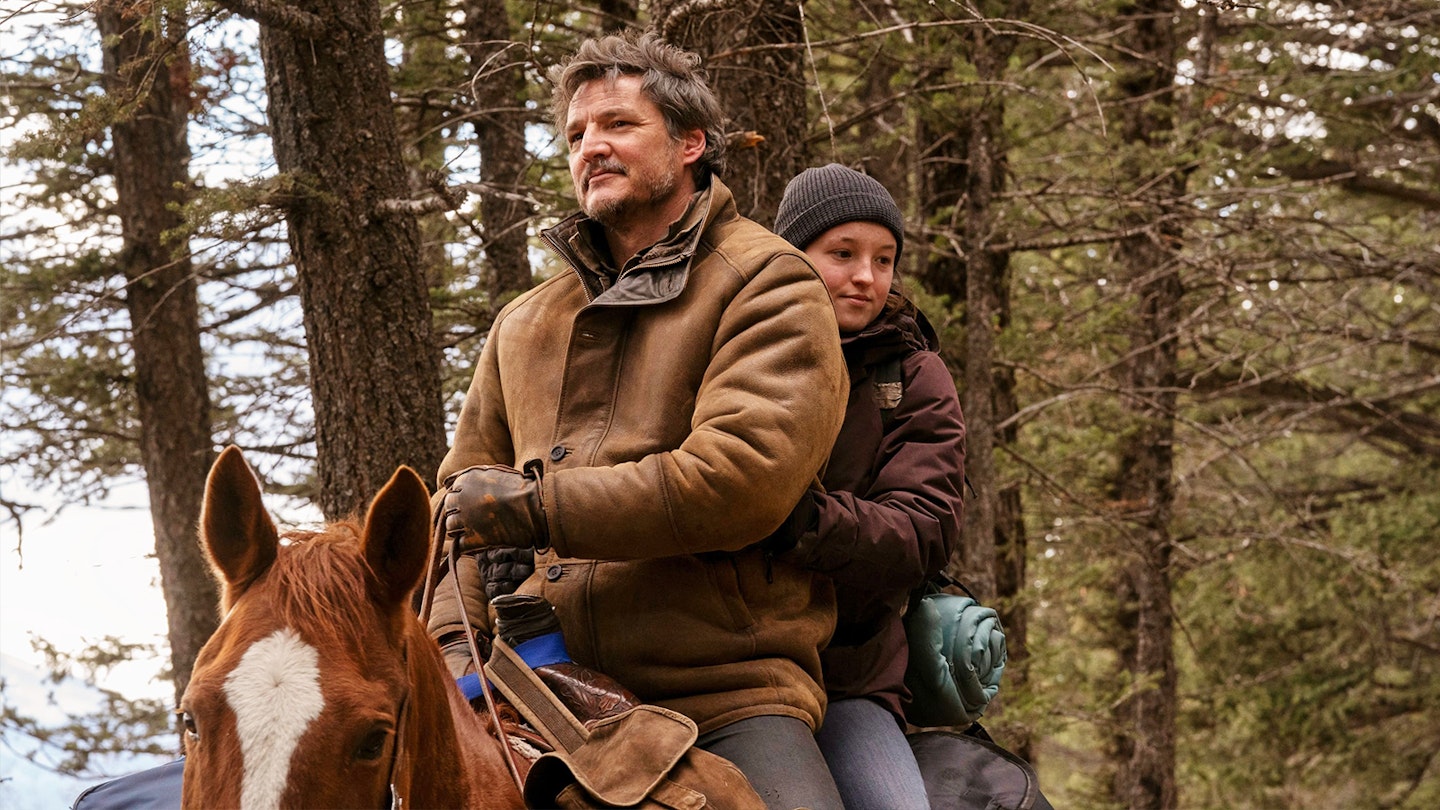
In a landscape plagued by lazy videogame adaptations and half-baked dystopian TV, HBO’s The Last Of Us — an adaptation of Naughty Dog’s stunning PlayStation post-apocalyptic survival horror, adapted by the game’s writer-director Neil Druckmann and Chernobyl’s Craig Mazin — is the cure. Pedro Pascal and Bella Ramsey share astonishing chemistry as ex-marine Joel and medical anomaly Ellie, two fiercely guarded souls — both carrying their own deep-rooted traumas — who learn to let each other in, rediscovering their humanity as they traverse an America that’s both figuratively and literally losing its own. Whilst the zombie-like Clickers and monstrous Bloaters - human beings infected by Cordyceps (a terrifyingly plausible fungus-based disease) - are admittedly pretty scary, it’s Druckmann and Mazin’s sobering depiction of the monstrous things people will do to survive in this broken world that is truly horrifying. The series’ third episode, a standalone love story starring Nick Offerman and Murray Bartlett that takes a minor subplot in the game and turns it into a major emotional turning point of the TV series, is an instant all-timer. “I was never afraid before you showed up.” Oof…
Read the Empire review here.
42) The Office US (2005-2013)
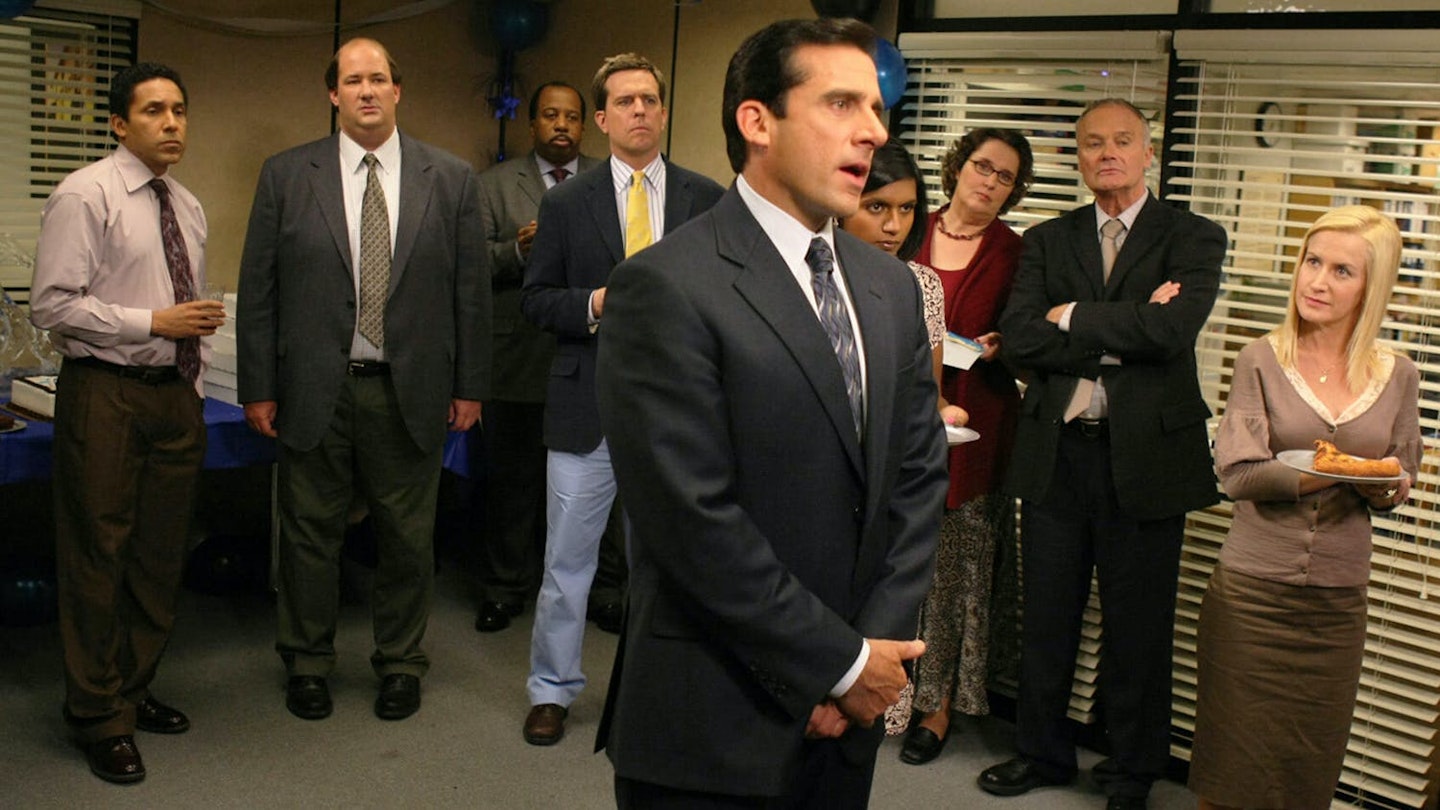
American attempts to translate British sitcoms rarely work all that well – for every Sanford And Son (which transported Steptoe And Son across the pond) there are the best-forgotten Transatlantic takes on Spaced, The Inbetweeners, and The IT Crowd. Here, though, Greg Daniels overcame an initial stumble to make something compelling in its own way. Steve Carell's star-making turn as Michael Scott is just the tip of the casting iceberg, though it's noticeable that the show was never quite the same after he left for big screen pastures. The seemingly mundane lives of a group of corporate drones at a paper company make for entirely watchable, laugh-out-loud TV, and rather than just create a carbon copy of the British series, this Office fully embraced its American setting, using the different mores of US offices to power its comedy and characters, and offering a slightly sweeter outlook than the UK version. Excruciating embarrassment never felt so good.
41) Cracker (1993-1996, 2006)
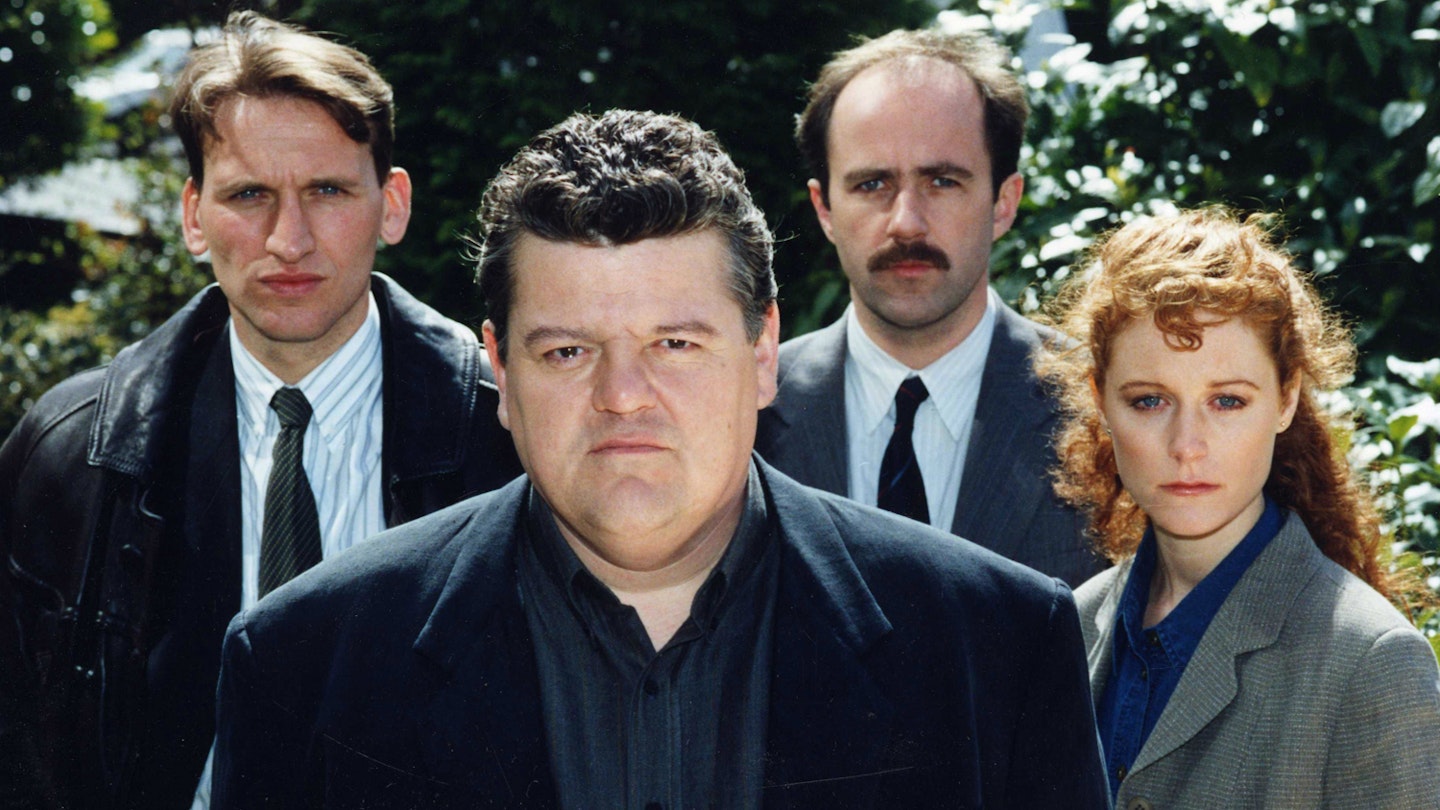
In Edward 'Fitz' Fitzgerald, the much missed Robbie Coltrane concocted one of television's most memorable antiheroes. The gambling, chain-smoking, heavy-drinking psychologist may have incorporated almost every vice known to man, but viewers delighted in the ease with which he mercilessly beat lesser men to an intellectual pulp. Jimmy McGovern's tautly-written drama was never concerned with the whodunit aspect (the perpetrator was generally revealed in the first scenes) but rather built up to the moment Fitz got the suspect in an interview room. Assaulting them with cutting insight and outright provocation, the profiler bent them to his will and put the squeeze on until they finally cracked. One of the finest dramas Britain has produced.
40) It’s Always Sunny In Philadelphia (2005-present)
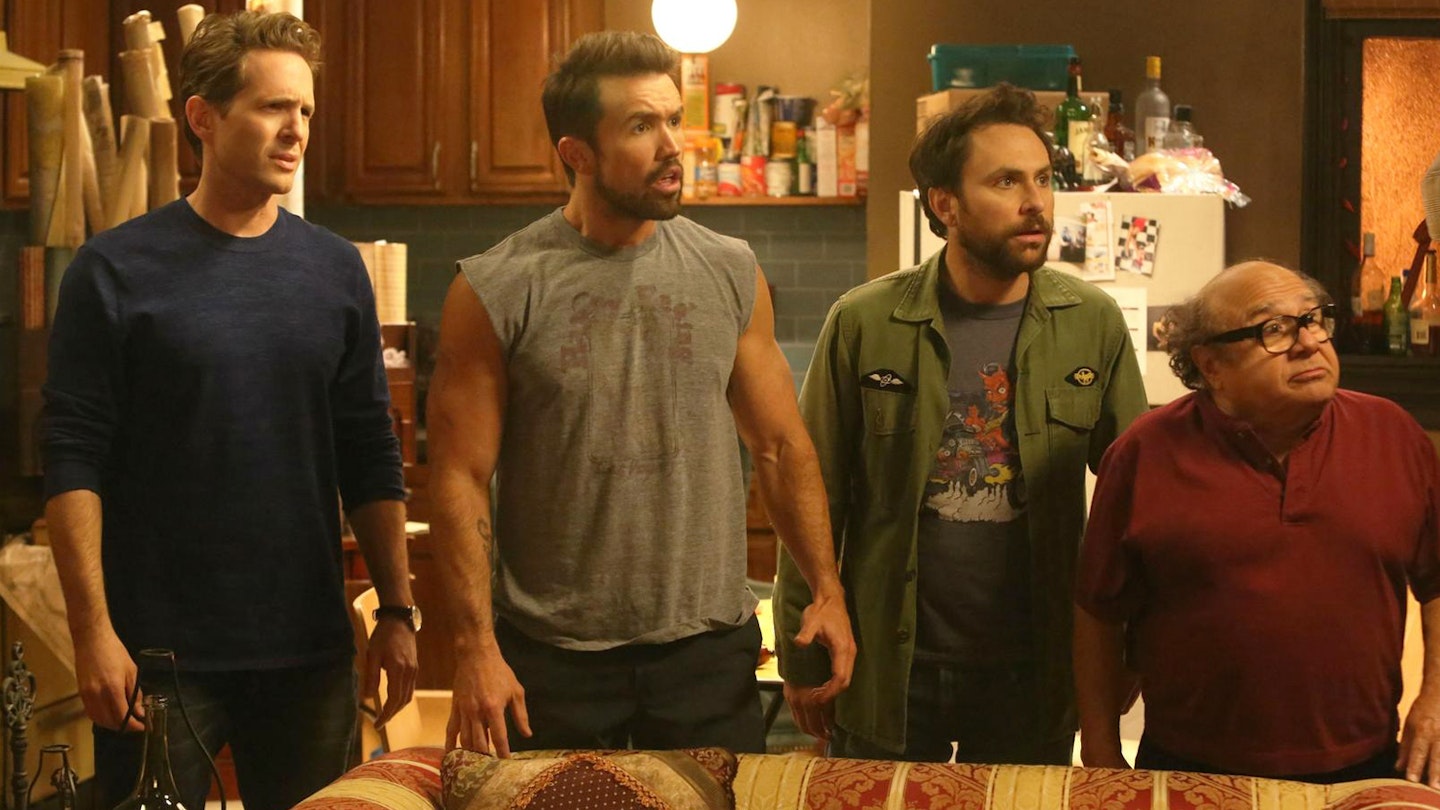
For a show about such utterly reprehensible people, It’s Always Sunny has connected with a huge fan base. Following in the tradition of shows such as Seinfeld, the dodgy dealings of Charlie (Charlie Day), Mac (Rob McElhenney) Dee (Kaitlin Olsen), Dennis (Glenn Howerton) and Frank (Danny DeVito, who joined in the second season after US network FX demanded a name to boost the show's ratings) make for excellent comedy value. They may not (usually) be people we can root for, but it's fun to see them scheme, squabble and, more often than not, fail in their attempts to break out of their regular lives. Musicals, mayhem and no little misbehavior have become a winning combo, enabling the show to become the longest-running live-action sitcom in American TV history.
39) Star Trek (1966-1969)
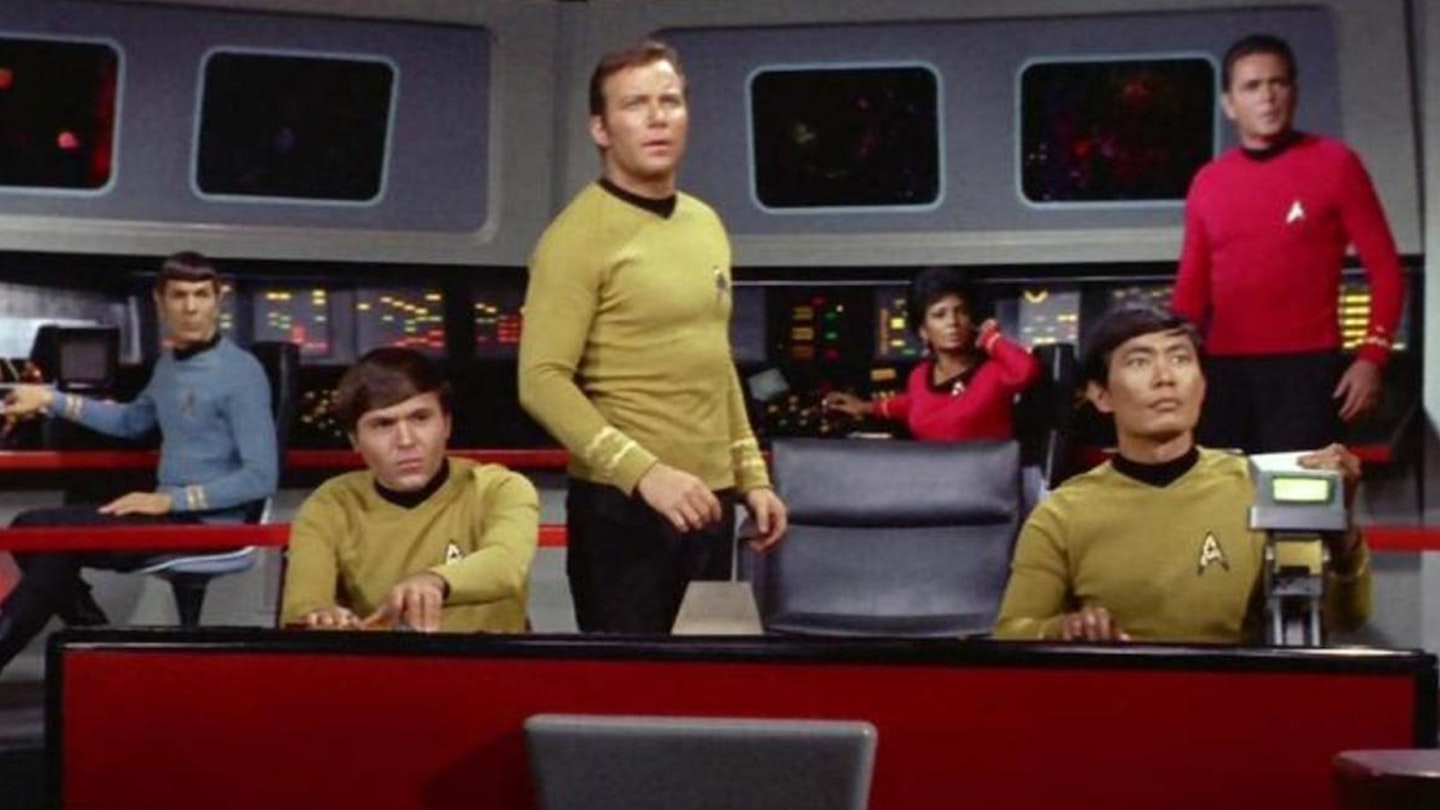
From tiny acorns, a gigantic franchise was born – and you don't spin all those movies, follow-up series and reboots out of nothing. But for all its limited budget, 'Shacting', and occasionally silly aliens, the Trek universe would be nothing without the parent show. Gene Roddenberry and his team cannily brought together big ideas and intergalactic vistas, then injected a healthy, adventurous spirit into the proceedings. The OG Star Trek — which charts the voyages of Captain James Kirk (William Shatner) and the motley crew of the starship Enterprise — is pulpy, fascinating, and at least partly responsible for the mobile phone you're probably reading this on. Sci-fi on the small screen wouldn’t be what it is now had Roddenberry not boldly gone there first all those years ago. The original run has lived long — and we’ve all prospered.
38) Frasier (1993-2004, 2023-present)
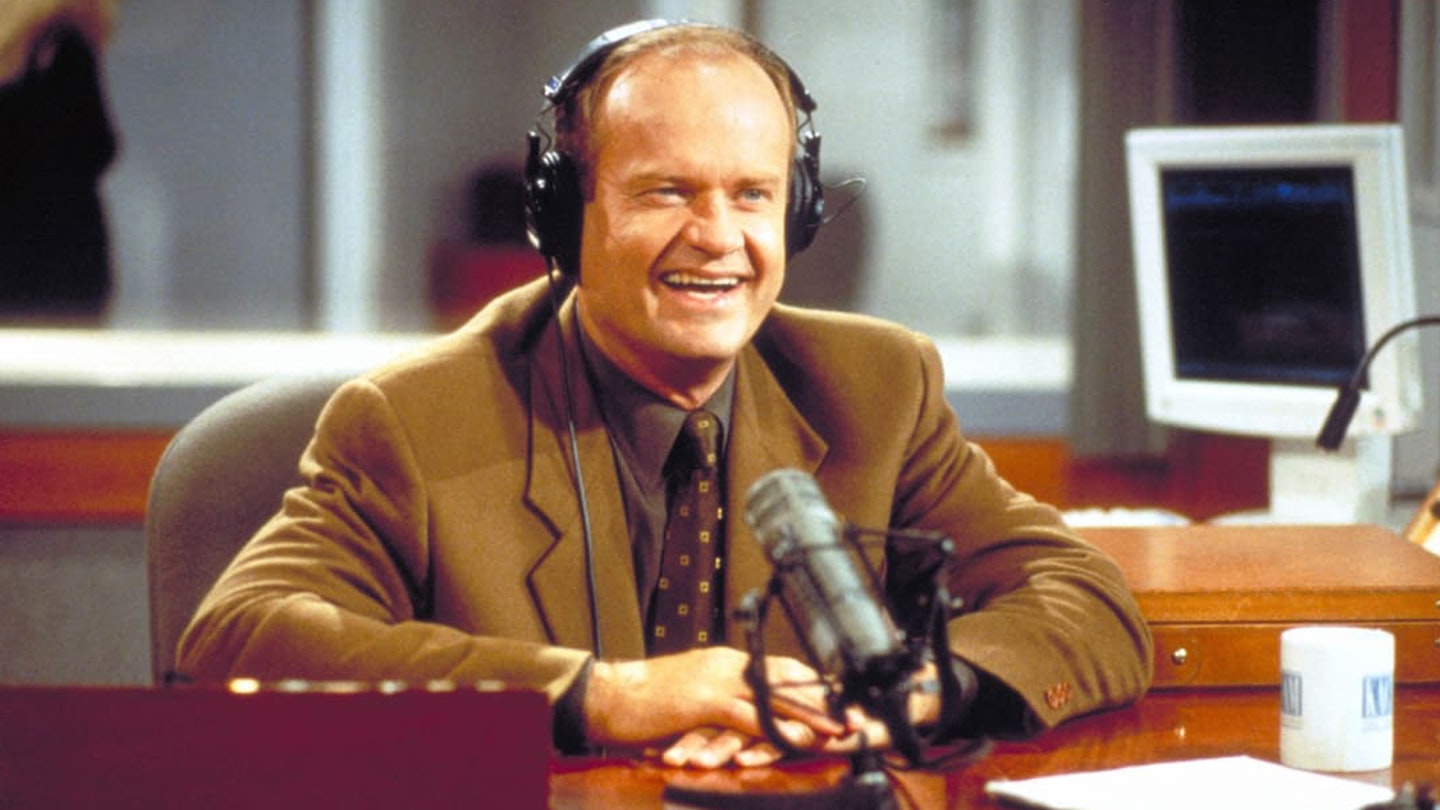
Frasier mastered the tricky combination of mostly using smarts (and the odd pratfall) to get its laughs. Cleverly transposing Kelsey Grammer's beloved Cheers stalwart to his hometown of Seattle and shifting the broader format of the original show to suit the unique quirks of its new characters, the most successful spin-off of all time is wordy and wise and not averse to indulging in the odd moment of high farce. Like the quality comedy theatre it aspired to emulate, Frasier's appeal continues to endure, despite the recent revival of the show being less than appointment viewing.
Read the Empire review of the revival here.
37) Six Feet Under (2001-2005)
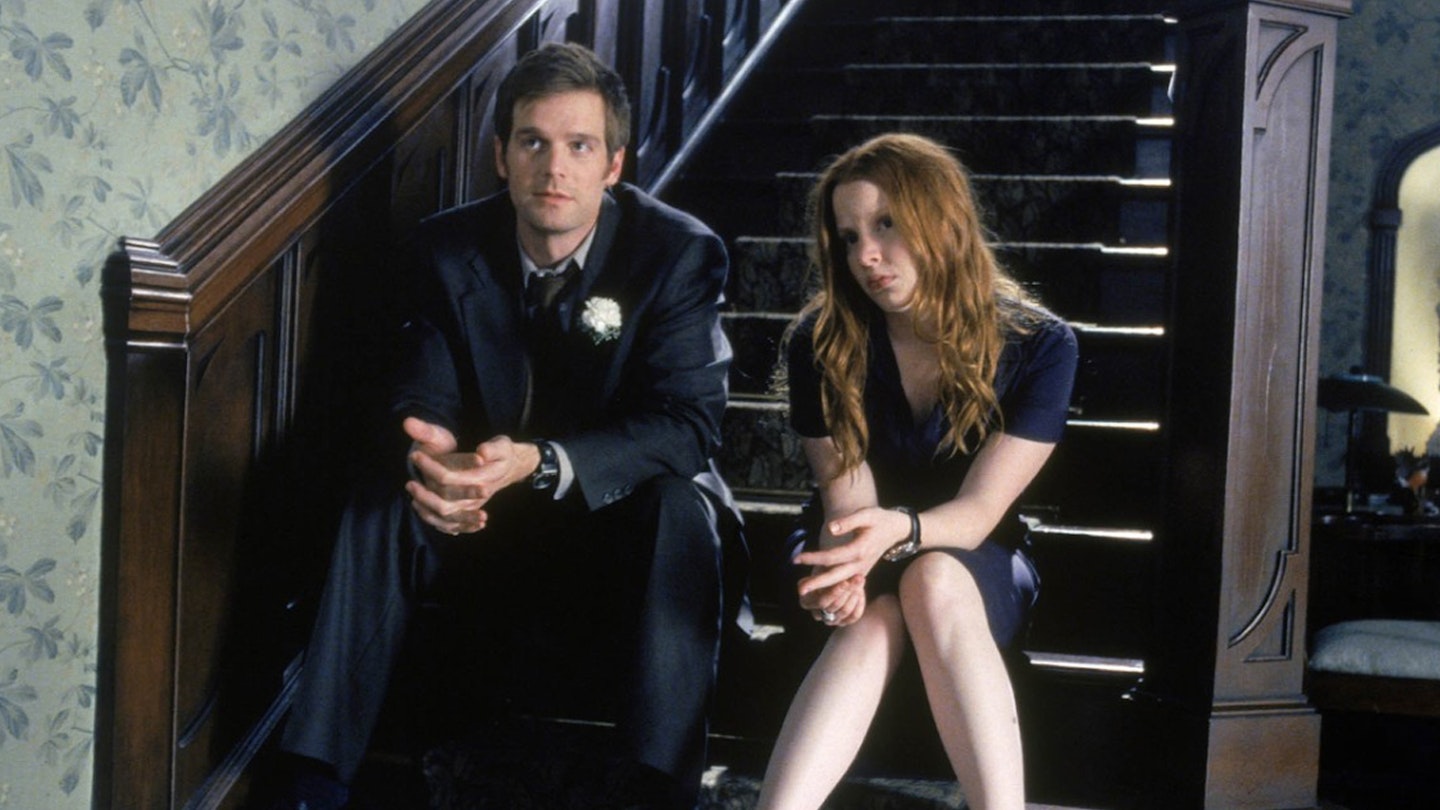
With dark, surreal comedy and stark, blunt truths about life and death, it's little wonder that Six Feet Under flowed from the same pen that gave us the equally incredible American Beauty. Alan Ball's HBO series about a dysfunctional Pasadena family that runs an independent funeral home is a wonderful meditation on family, love and grief. Headed up by Peter Krause as prodigal elder son Nate Fisher and featuring Michael C. Hall, Frances Conroy, Lauren Ambrose and Rachel Griffiths, the cast, like every facet of this compelling production, oozes class, gifted with sharp writing and a finale that offers one of the most emotional wrap-ups in telly history.
36) ER (1994-2009)
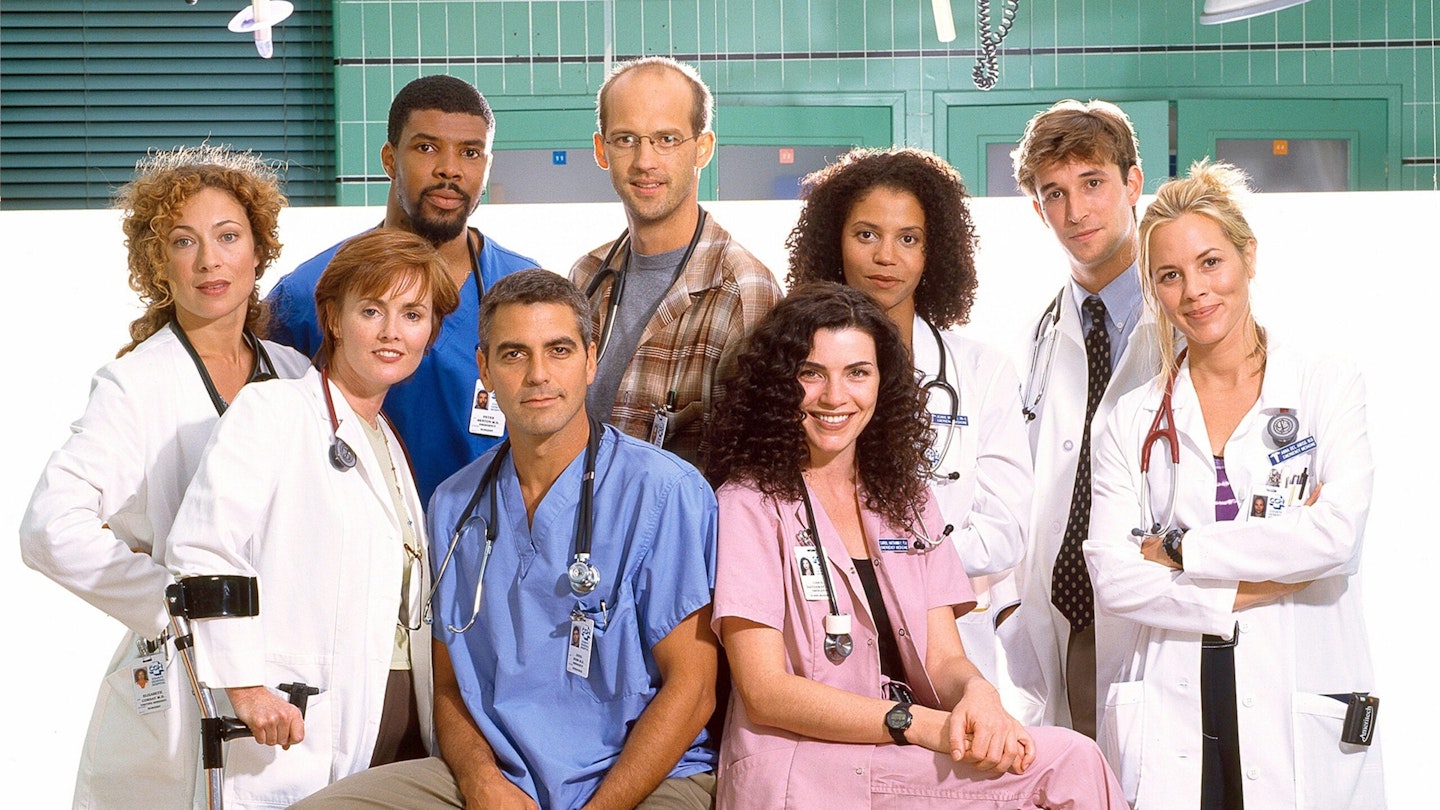
It ran until there wasn't a single member of the original cast left (at least, until the spectacular reunion finale) but ER amazingly showed little sign of decline throughout its 15-year run. Based on a film script by Michael Crichton, the series evolved into a weekly slice of emergency medicine at Chicago's county hospital, one that was separated from inferior imitators by smart scripts, great characters and a willingness to shock – from Dr. Greene's bathroom attack, to Lucy and Carter being stabbed by a knife-wielding schizophrenic. The list of cameos, both in front and behind the camera, is as long as your arm, boasting such names as Quentin Tarantino, Kirsten Dunst and Ewan McGregor.
35) Blackadder (1983-1989)
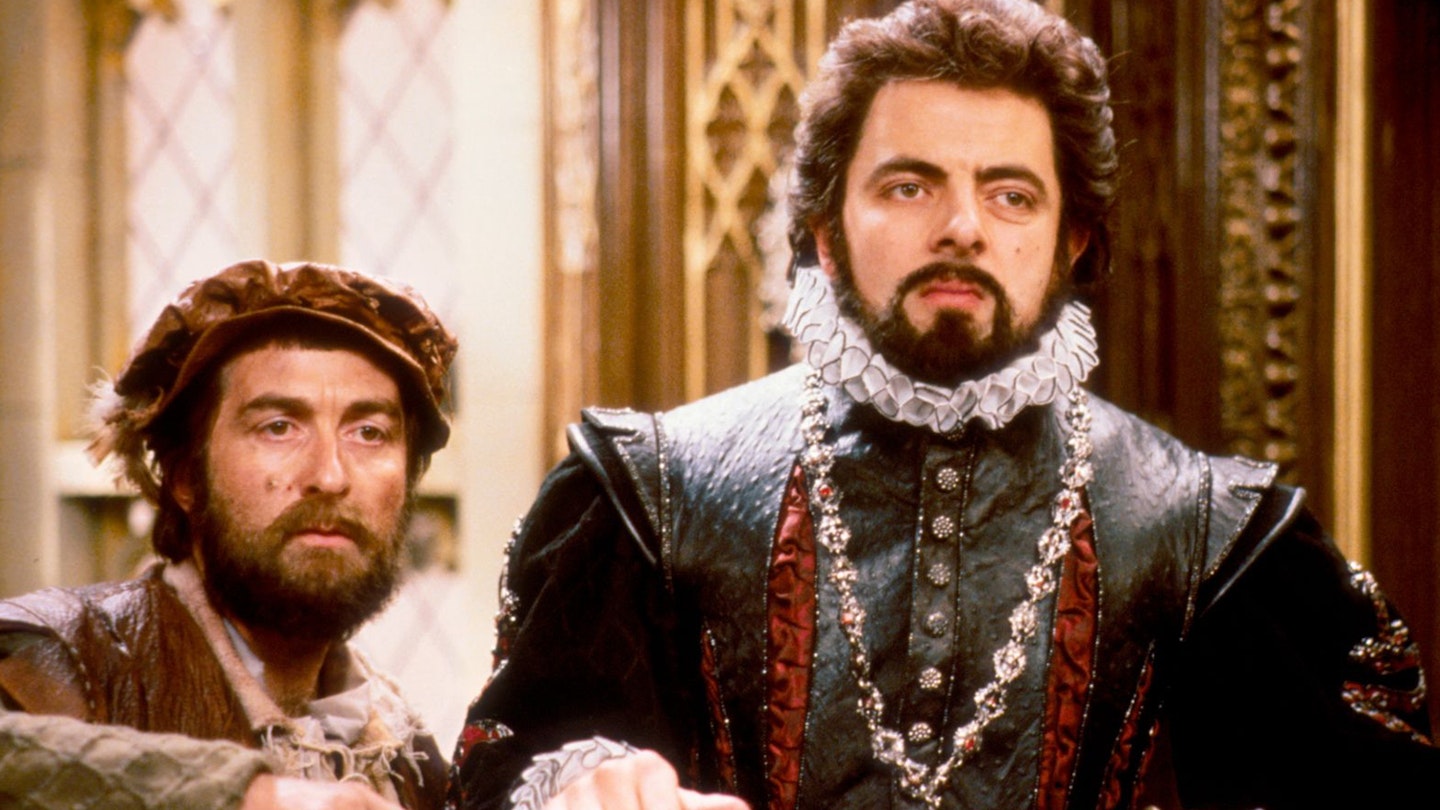
For a show that began expensive (for the time) and extravagant, and only survived less-than-thrilling ratings when its creators (including Ben Elton and Richard Curtis) agreed to turn it into a lower budget studio-bound sitcom, Blackadder quickly entered the national consciousness for its well-constructed gags and some consummate acting from the likes of Rowan Atkinson, Tony Robinson, Hugh Laurie, Tim McInnerny and a revolving-door troupe of guests. For all its formulaic nature, the show was consistently sharp and funny – and even, with its fourth series, Blackadder Goes Forth, showed off a beating heart, full of surprising compassion. That final reel freeze frame lives on as one of the single most impactful distillations of the futility of war committed to the screen.
34) Friday Night Lights (2006-2011)
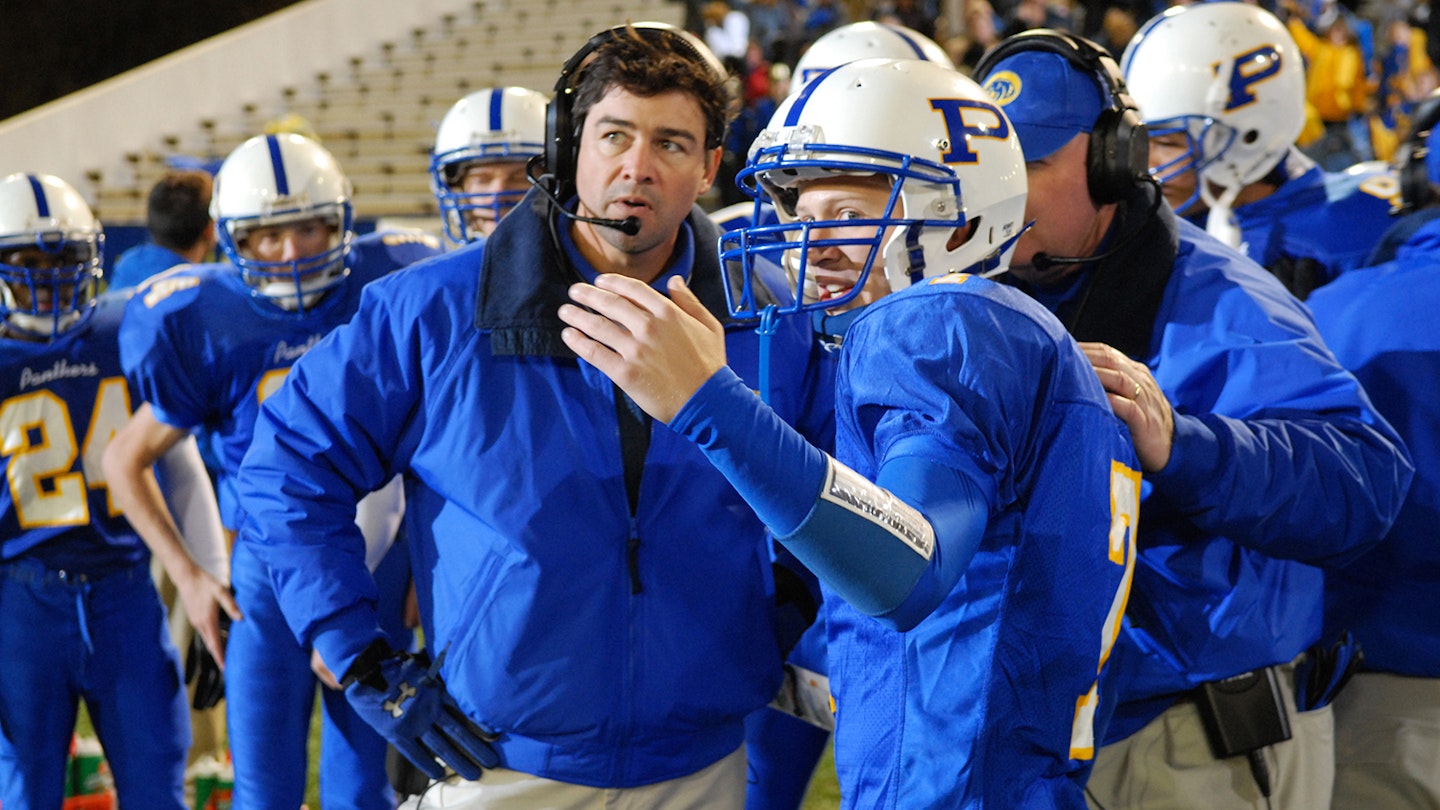
Clear eyes. Full hearts. Can't lose. As memorable mantras for a TV show go, this is up there. Peter Berg's knowing adaptation of his 2004 movie and the H. G. Bissinger book he drew from it, broadened the scope of the world and wrangled memorable characters that live and breathe. Its young players are realistically flawed, and the team doesn't always win – which just makes it that much more watchable. Plus, in coach Eric Taylor (Kyle Chandler) and wife Tami (Connie Britton), we got one of the best married couples on TV, two fallible people dealing with their lives but always leading with love. And most importantly, especially for those of us in the UK, you don't need to worship at the church of gridiron to appreciate it.
33) The Office UK (2001-2003)
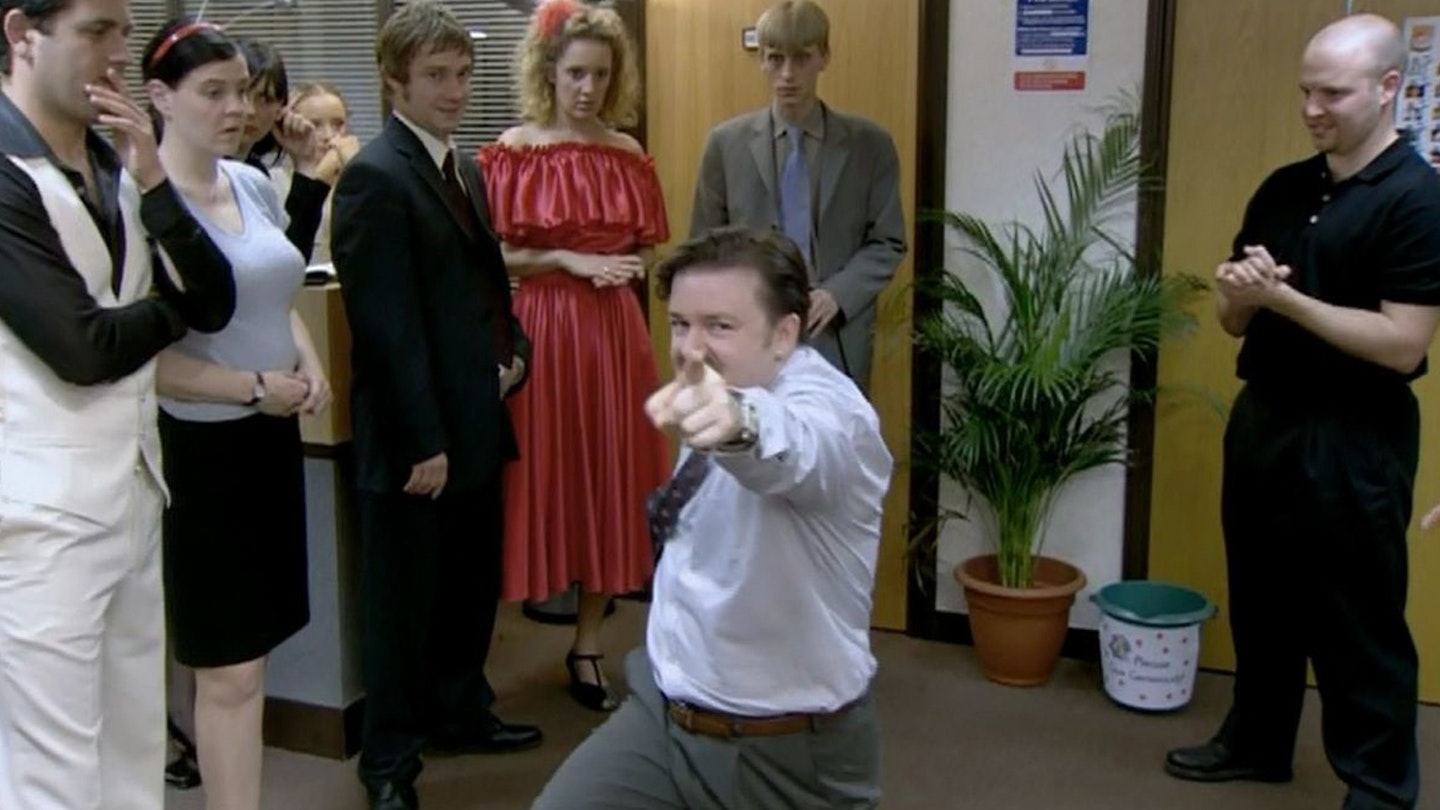
The joy of Ricky Gervais and Stephen Merchant's original series is its total lack of joy: in 14 episodes, it deftly depicts the wretched reality of dreary office life — one of muted greys, PowerPoint training sessions, and an all-pervading hopelessness — with a deluded boss who thinks he's everyone's mate ("basically just a chilled-out entertainer"). And that boss, David Brent, is still Ricky Gervais’ finest tragicomic creation — a smarmy, dislikable, oh-so-cringeworthy loser who, despite his supreme bell-endery, you can’t help ultimately pitying all the same. Sometimes, there's nothing like a bit of old-fashioned British pessimism, but that isn't the whole story, either – with real emotion in the highs and lows of the relationship between Tim (Martin Freeman, in an early star-making role) and Dawn (Lucy Davis), and plenty of fun with the various weirdos who populate the Wernham Hogg office.
32) 30 Rock (2006-2013)
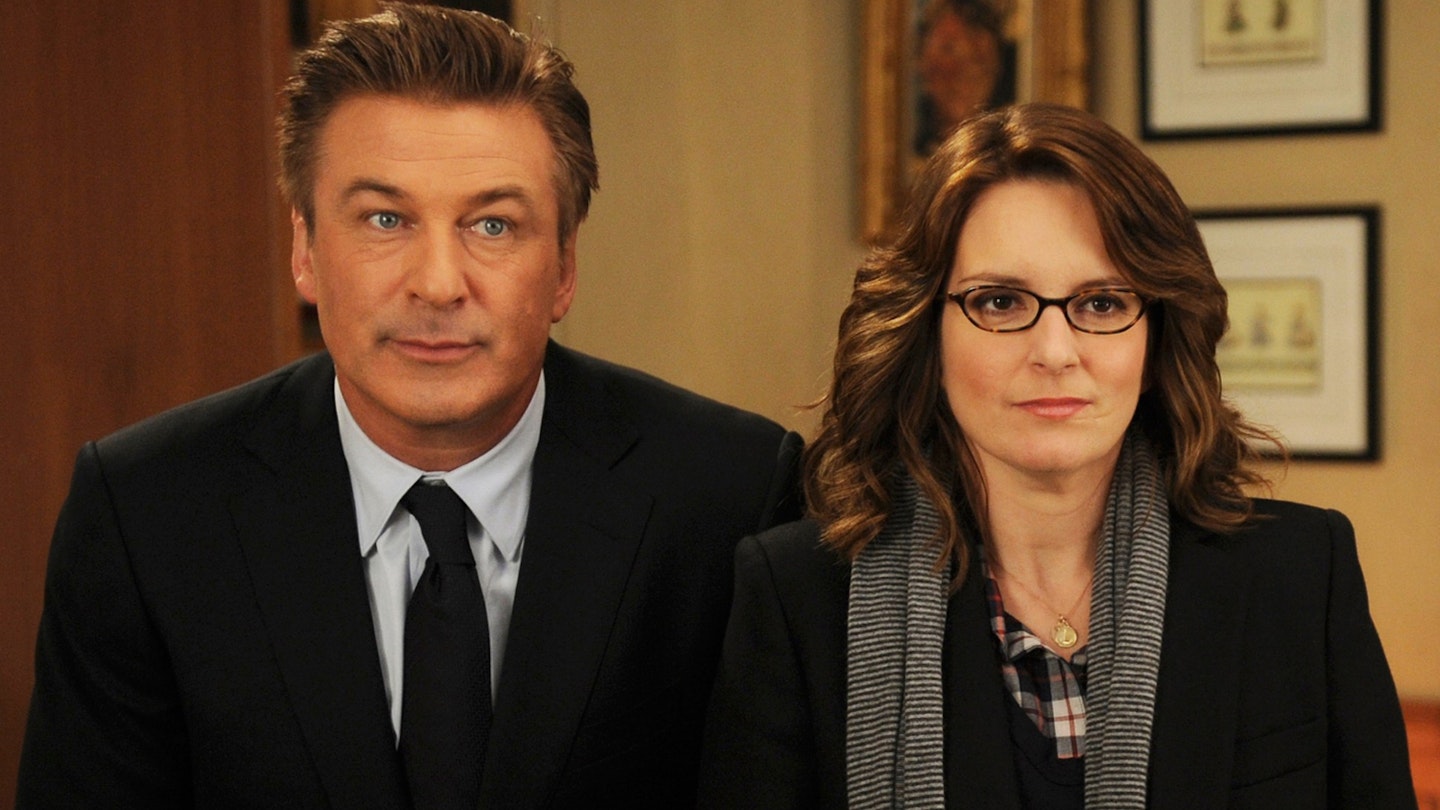
Tina Fey's NBC-set showcase of sharp-writing, pitch-perfect performances, and slogan-bearing trucker hats remains one of the best sitcoms to hit the airwaves, Fey given free reign to indulge in all the craziness she and her team could conjure up. Jane Krakowski cranks it up as fame-obsessed Jenna, going toe-to-toe with Tracy Morgan's madcap manchild actor Tracy Jordan, while Jack McBrayer steals scenes as wacky NBC Page Kenneth. But it's Jack Donaghy who rules the show – the NBC head honcho is the role Alec Baldwin was born to play. Fey herself is the frazzled heart of the series as comedy writer Liz Lemon, trying to keep the madness from spiralling out of control on her SNL-alike sketch show TGS. And there's a lot of madness.
31) Sherlock (2010-2017)
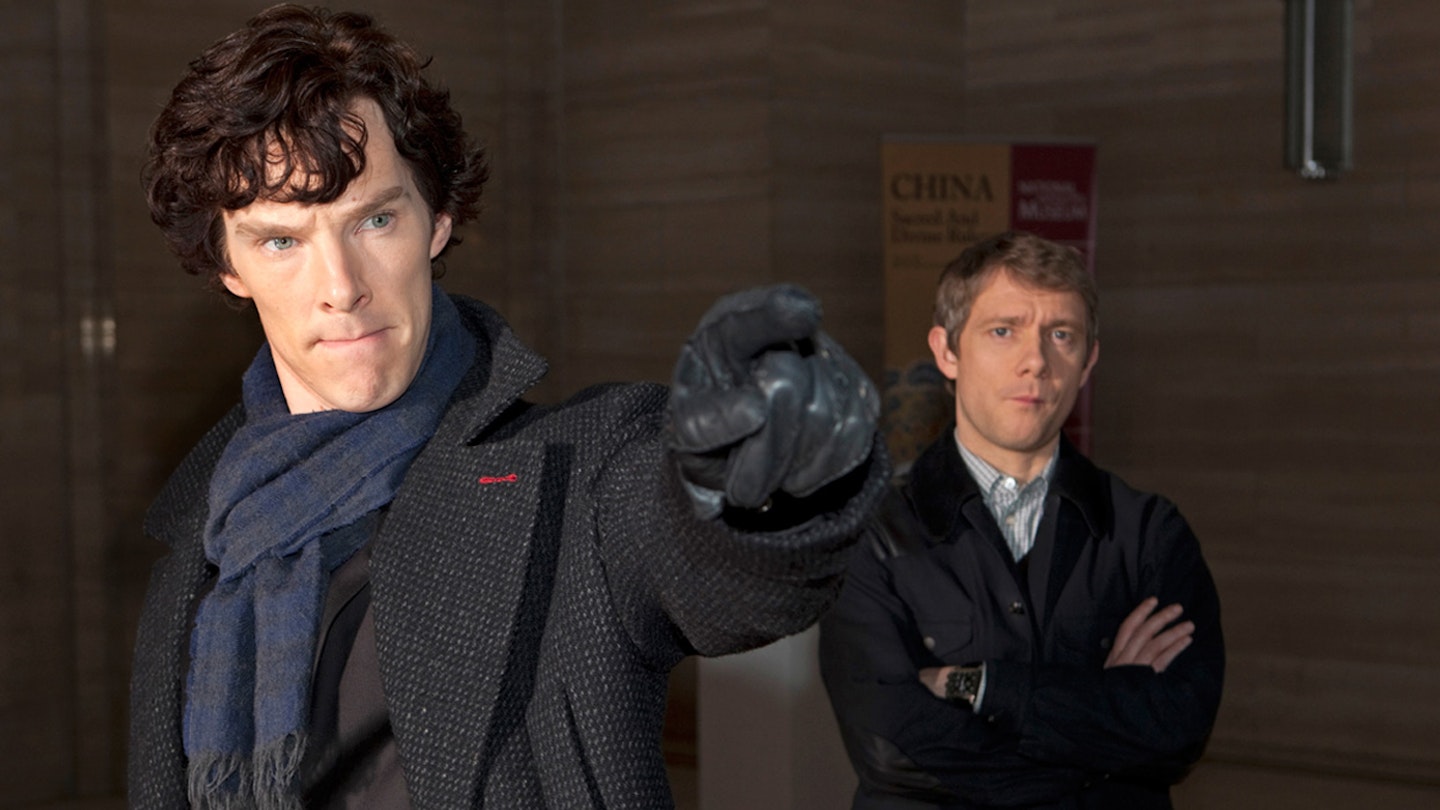
Like Dracula (who, fittingly, Steven Moffat and Mark Gatiss moved on to), Sherlock Holmes is one of those evergreen characters that is endlessly reinvented, either with a period-appropriate take or adapted for the present day of whoever tackles him. The creative duo plumped for the latter, bringing the deerstalker donning detective bang up to date with texting, sexual innuendo, bromance and real brio. Benedict Cumberbatch and Martin Freeman have long since entered the canon of great Sherlocks and Watsons, and their every move is charted by a massive, enthusiastic fan base. A BBC classic, Moffat and Gatiss' take on the great detective is both witty and wonderful, and we’ve still not given up hope that the game may once again be afoot someday in the future.
Read the Empire ranking of every episode here.
30) Chernobyl (2019)
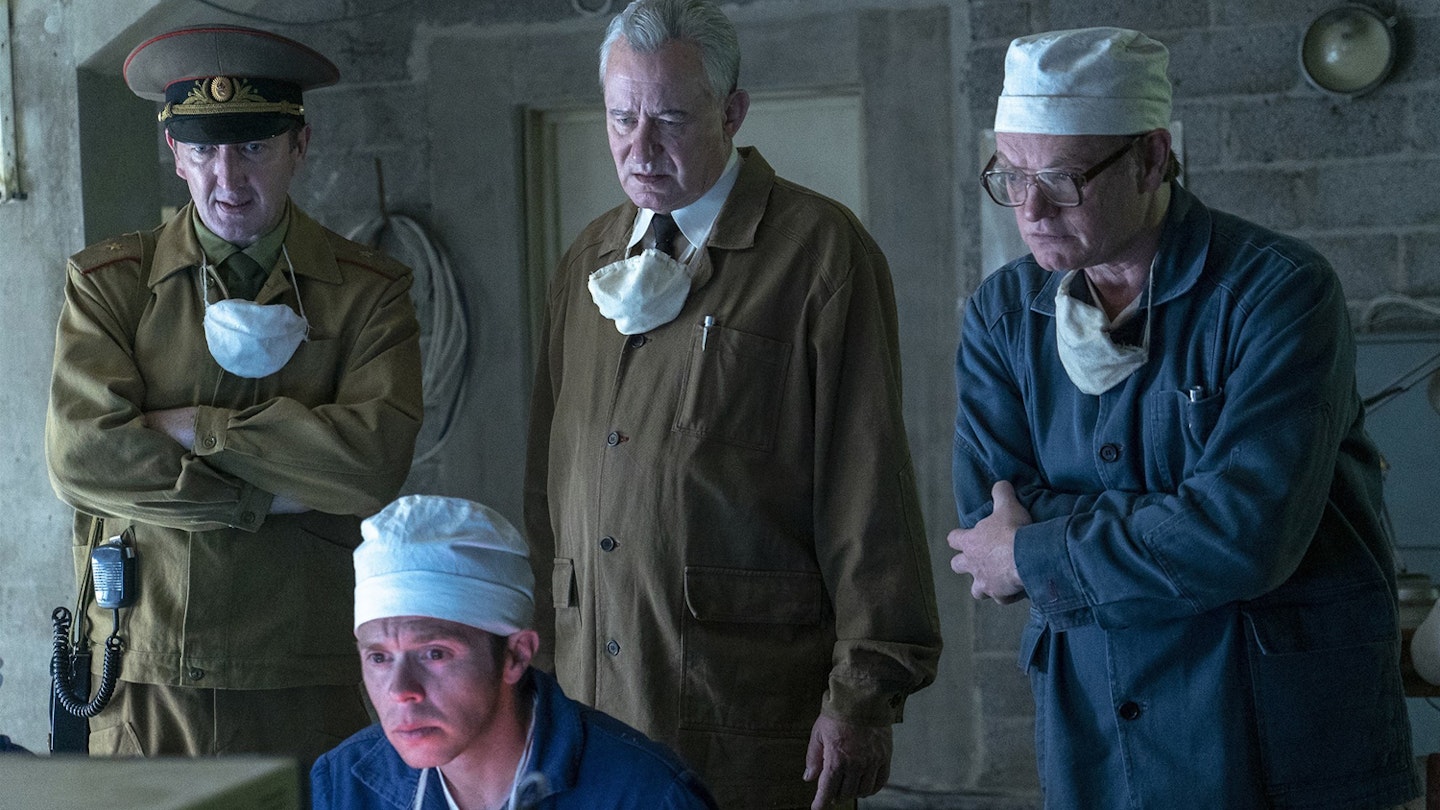
The story of one of the worst real-life disasters in history might not sound like the most entertaining miniseries, but Craig Mazin — whose prior credits included the likes of Scary Movie 4 and The Hangover Part III — and his team delivered something unexpected, emotionally affecting, and frequently jaw-slackening. Unafraid to show the true impact of the reactor's meltdown, Chernobyl explores the tragedy's effect on the people in the area, those called in to help and the political squabbling over who's to blame and how to deal with the fallout (literally, in this case). A fine cast boasting the talents of Jared Harris, Stellan Skarsgard, Emily Watson, Jessie Buckley, Adam Nagatis and Sam Troughton give what could have been a dry history lesson a very human set of faces, and the miniseries was justly rewarded at the Emmys for its trouble.
29) Parks And Recreation (2009-2015)
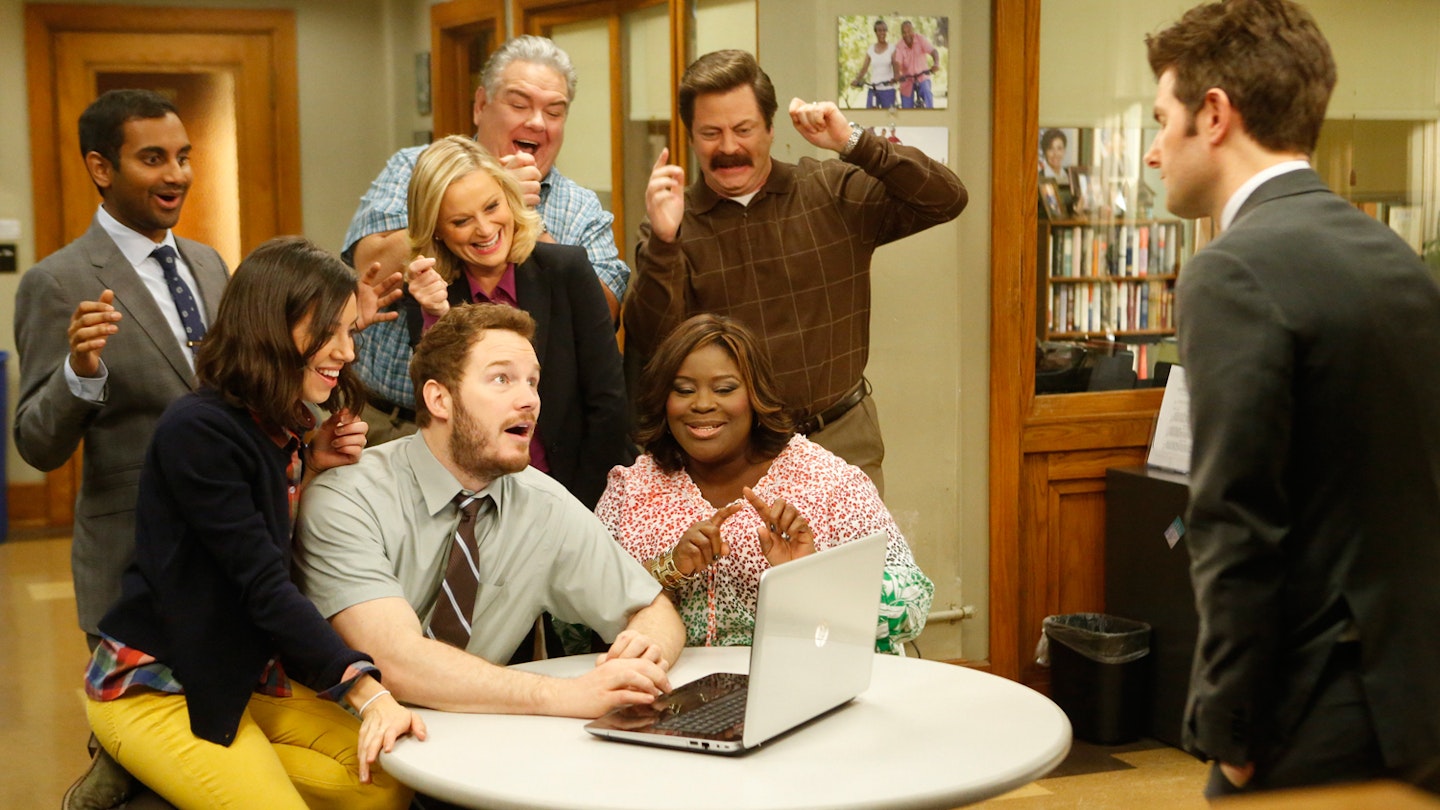
First conceived as a spin-off of the US Office, Parks & Rec initially struggled to shuffle out from the shadow of its bigger brother. But while the first season wobbled, the second soared and sustained that quality all the way to its emotional finale. Retaining The Office's 'workplace mockumentary' format, it ribbed the pernickety pedantry of small-town politics from the perspective of always-optimistic bureaucrat Leslie Knope, played with sheer brilliance by Amy Poehler. As with The Office, its ensemble is faultless – most notable being Nick Offerman's grumpy libertarian Ron Swanson (choice quote: "I need five courses for dinner, and each of them will be steak").
28) Happy Valley (2014-2023)
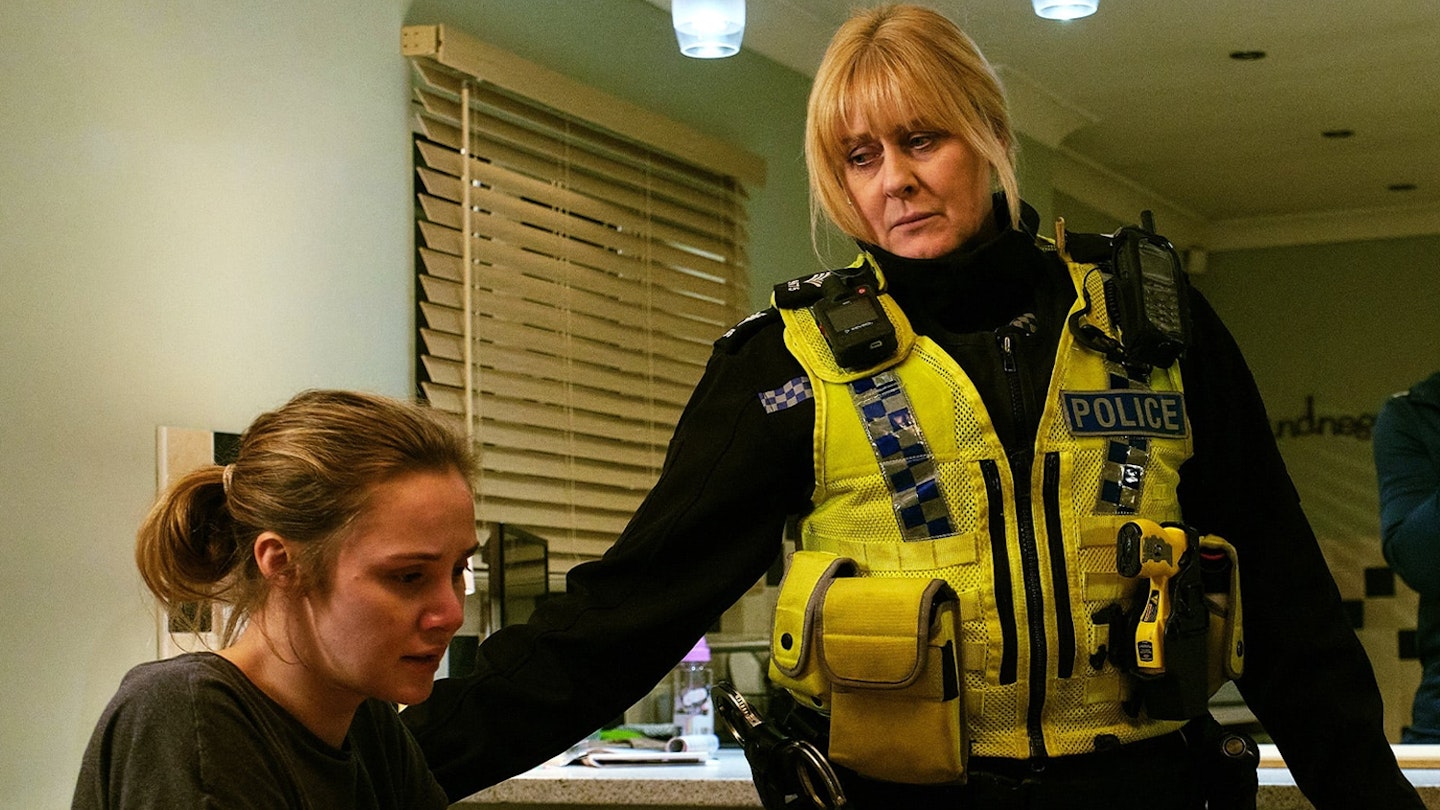
Sally Wainwright’s blisteringly good story of on-the-beat policing in Halifax was already top-tier television by the end of its first two series, but it was the series’ emotional slobber-knocker of a final run that Happy Valley became a true masterpiece. Arriving seven years after the previous series, the epic conclusion to Sergeant Catherine Cawood’s time on the force offered a stunning conclusion to the character’s long-running conflict with criminal Tommy Lee Royce (a brilliant James Norton) whilst prying open the cracks in her relationships with both her grandson Ryan (Rhys Connah) and sister Clare (Siobhan Finneran) along the way. Lancashire’s performance is nothing short of awe-inspiring, but it’s the emotionally real, character-driving writing — the show’s calling card throughout all three series — that brings these characters to life so beautifully, whether in humanising a monster as he reaches out to his son, or completely subverting finale norms with a simple, heartfelt conversation held over a kitchen table. It’s peak TV at its peak.
Read the Empire review here.
27) 24 (2001-2015)
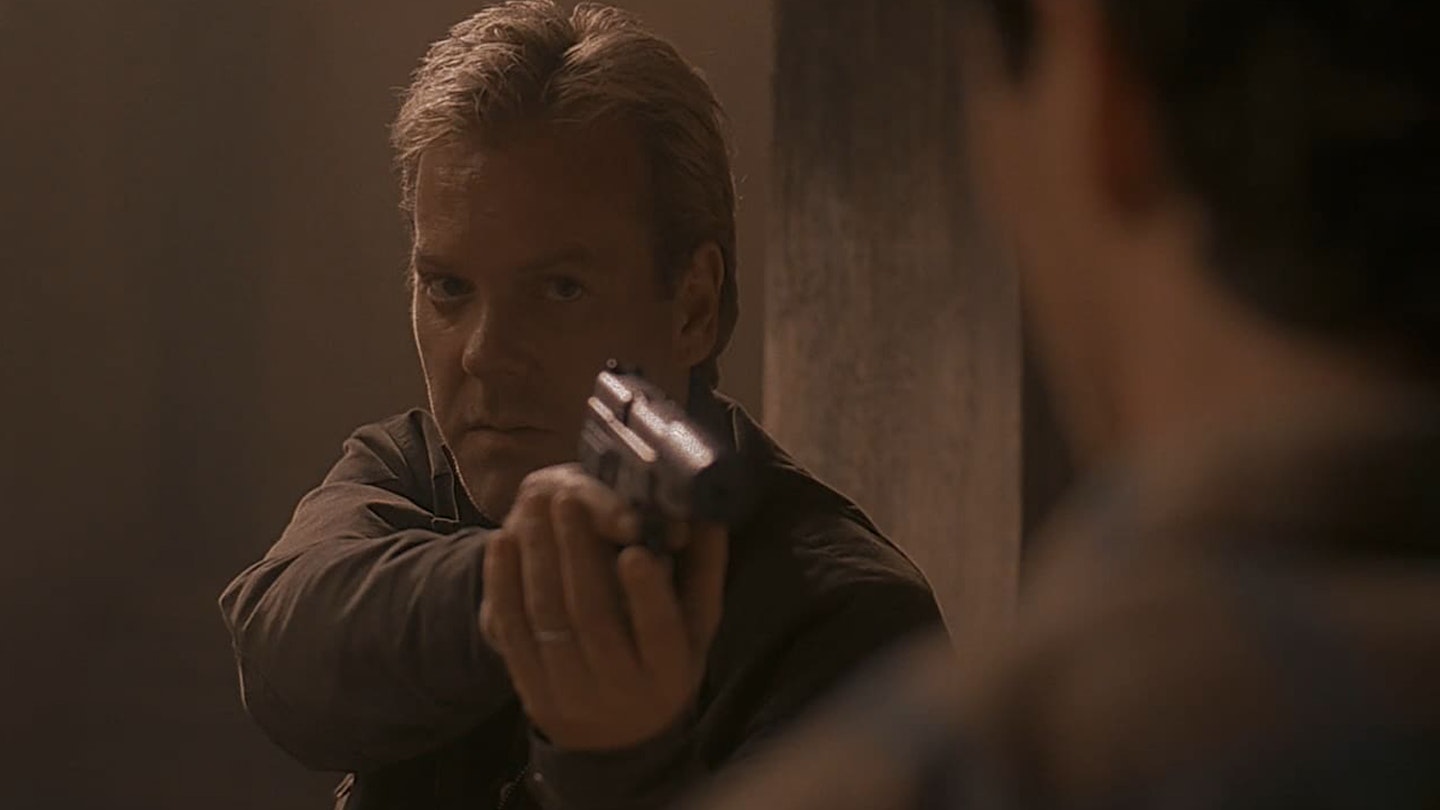
At its best, there was nothing like 24 – insane levels of adrenaline, finely calibrated political intrigue and twists that hit you in the face like a two-fisted punch from Tony Almeida. In its day 24 was as cinematic as TV got, with no expense spared to depict Jack Bauer's intense battles against cunning terrorists and the odd occasional rogue President. And even when it was rubbish – and sadly the final Live Another Day miniseries wasn't great – it was still at least loveable. Despite being the worst plot device in history, it's hard not to have a soft spot for the cougar that menaced Kim Bauer back in Season 2.
26) Seinfeld (1990-1998)
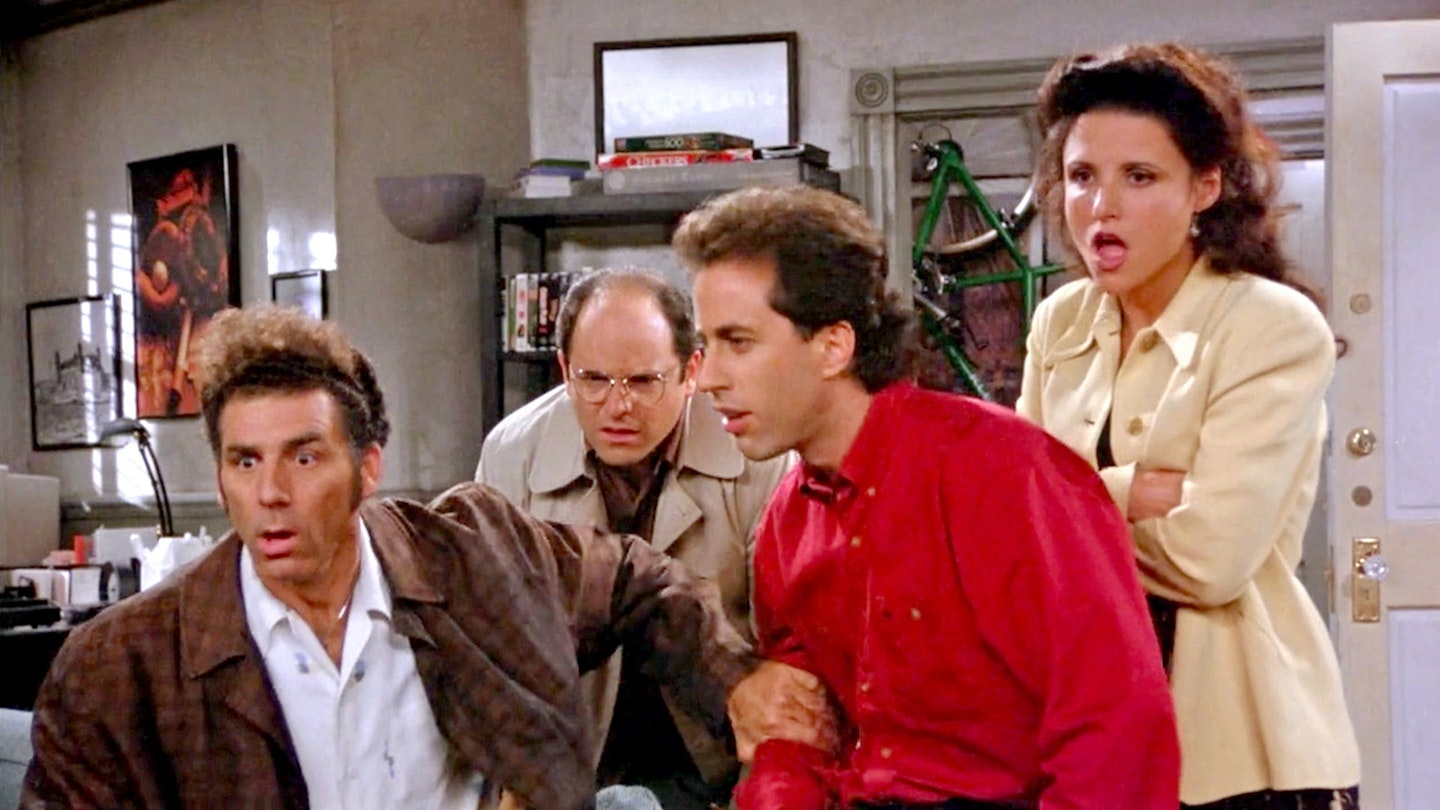
It began as a summer replacement series, but Seinfeld, based on the comedy of — and starring — Jerry Seinfeld, was given the one thing that few shows get these days: time for an audience to find it. Patience on the network's part paid off as Seinfeld, the show about nothing, became an unprecedented juggernaut. The audience fell in love with its four self-centred pals whose self-involvement draws them together, turning Jerry, Elaine (Julia-Louis Dreyfus), George (Jason Alexander) and Kramer (Michael Richards) into household names. Not to mention such supporting characters as Newman, Puddy, Babu Bhatt, George's parents Frank and Estelle, Uncle Leo, and, uhh, the Soup Nazi. As a reflection of society, the picture Seinfeld paints is not a pretty one, but it is undeniably a classic — and just plain funny.
25) The X-Files (1993-2002 / 2016-2018)
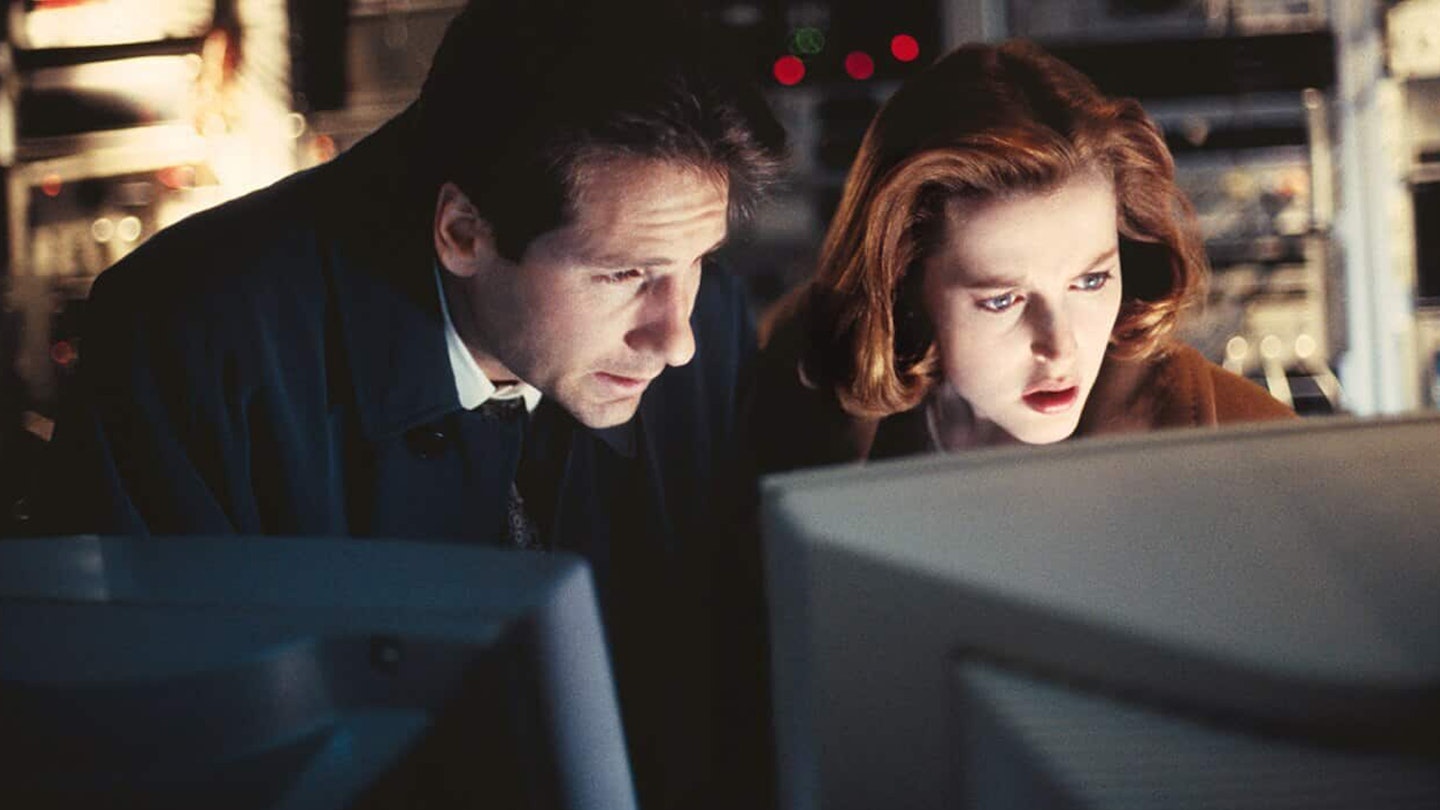
In its '90s heyday, Chris Carter's series was the perfect stew of conspiracy theories, romantic drama, monster-of-the-week shocker, and just the right leavening of humour when called for. Unsolved mysteries never go out of fashion, and The X-Files was ready to explore them all. Stand-alone monsters mingled with large mythology arcs, and the emotional stakes raised as the dangers deepened and we met more of the people in Mulder and Scully's lives. Even as spooky, rain-soaked forests gave way to a brighter palette after the series moved from Vancouver to LA in Season 6, the stories stayed strong. And for their mercurial work at the core of it all, David Duchovny and Gillian Anderson deserve a place in the pantheon of great TV partnerships – proven by the fact that the show suffered when Duchovny stepped away. But when The X-Files worked, it really worked.
Read Empire’s celebration of all things The X-Files here.
24) Peaky Blinders (2013-2022)
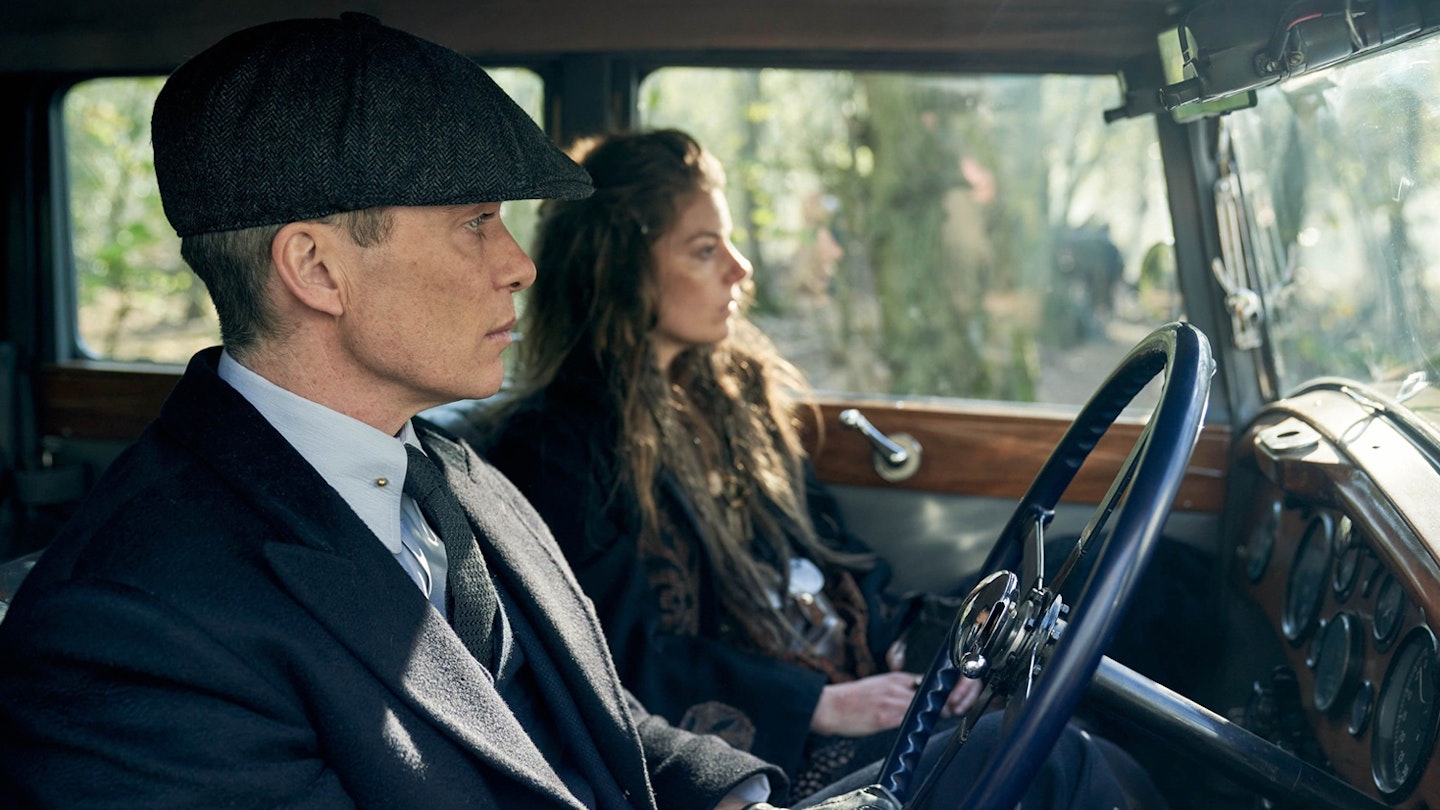
Steven Knight's Brummie gangster saga went from BBC Two drama to worldwide phenomenon – a mythical tale of underworld folk heroes that often intersected with real-life history. Oppenheimer Oscar-winner Cillian Murphy is flat-capped mobster Tommy Shelby, who strolls into town on horseback in the show’s iconic opening sequence and wrangles the police, fellow gangs, and Winston Churchill among others on his rise to notoriety. Across its lifespan, the show's incredible ensemble included the likes of Sam Neill, Tom Hardy, Paddy Considine, Anya Taylor-Joy, Sam Claflin, Stephen Graham, and the brilliant, sorely missed Helen McCrory and Benjamin Zephaniah. And Tommy Shelby’s story ain’t over yet, with creator Knight’s welcome recent announcement that Cillian Murphy and co will be back for a film follow-up to the series.
Read the Empire review here.
23) Doctor Who (1963-1989 / 2005-present)
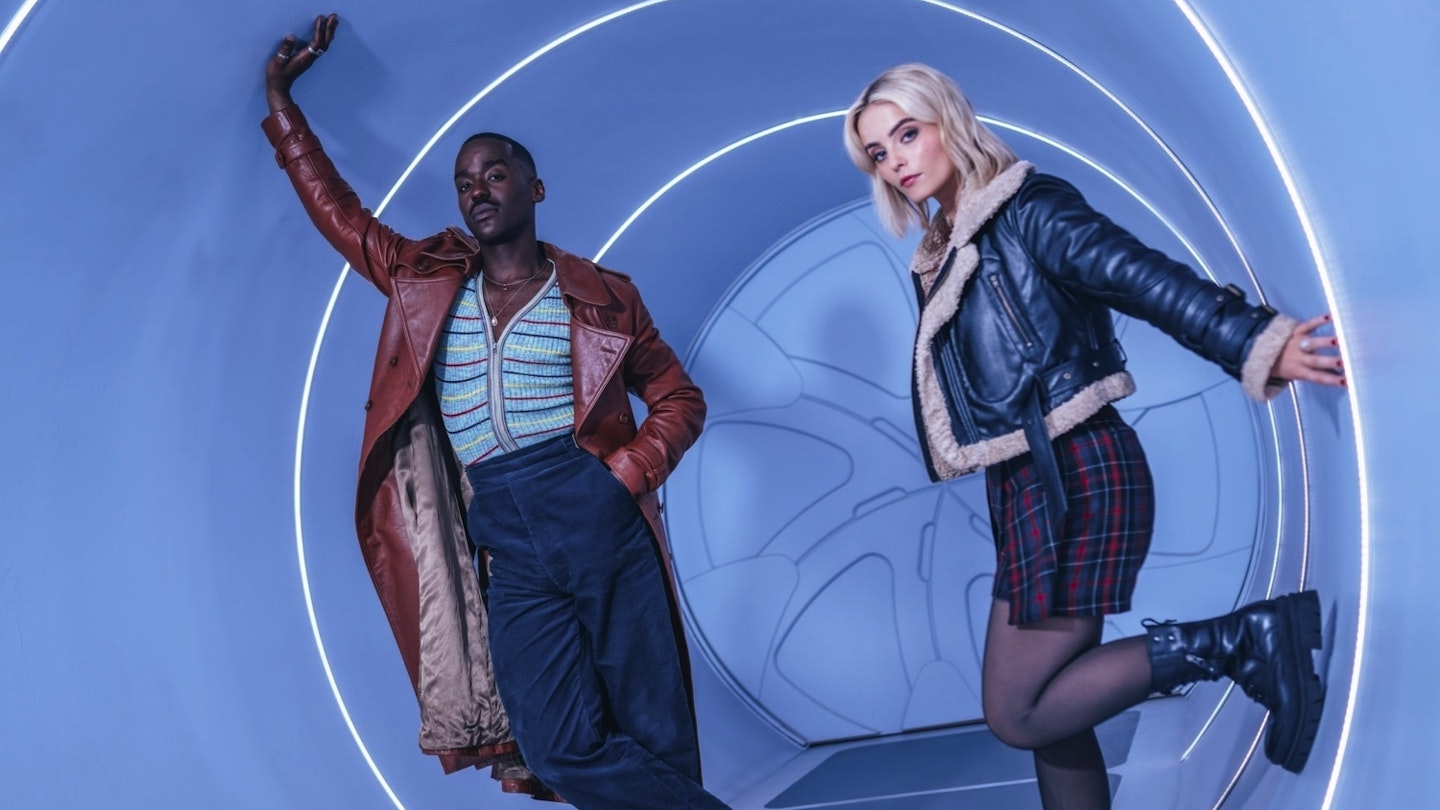
Sydney Newman, Verity Lambert and the others who brought the world's most famous time-traveller into existence knew what they were doing when they turned the need to replace the lead into one of the canniest ways to reboot and refresh the show. And so Doctor Who has kept going – albeit with a 16-year blip – for more than 60 years. From the days of cardboard sets and plastic monsters (which, let's be honest, were a big part of the show's charm) to the show’s most recent, Disney-backed reinvention with Ncuti Gatwa at the TARDIS’ helm, generations have grown up watching the series, delighting at the idiosyncratic main character and running scared from the various creatures the Doctor outwits. It's a series that prioritises brains over brawn, shoots you off to the far corners of the universe, and is still not finished reinventing itself. What's not to love?
Read the Empire review of Ncuti Gatwa’s first episode here.
22) Fawlty Towers (1975-1979)
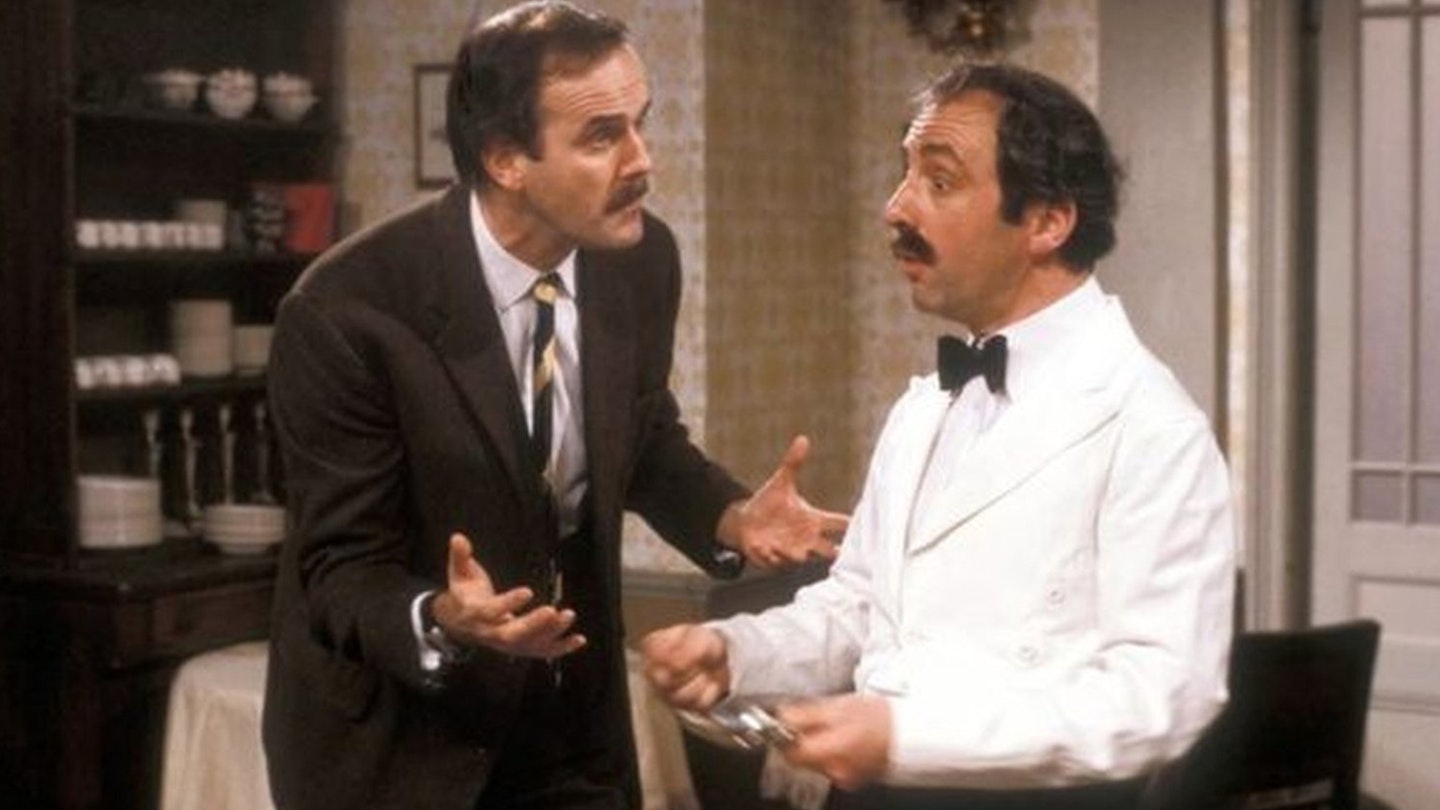
One of British TV's greatest ever sitcoms, the central question of Fawlty Towers – why the world's least hospitable man would go into hospitality in the first place – remains tantalisingly unanswered across 12 kipper-serving, Siberian hamster-hunting, German-baiting episodes. A straight zero on TripAdvisor, the very layout of Fawlty Towers itself offers comedy gold as Basil (John Cleese), his wife Sybil (Prunella Scales), waitress Polly (Connie Booth) and poor, benighted Manuel (Andrew Sachs) manoeuvre themselves (and the odd corpse) around its dowdy interior without ruining anyone's stay. Basil, needless to say, fails. Often and hilariously. And we wouldn’t have it any other way.
21) Fleabag (2016-2019)
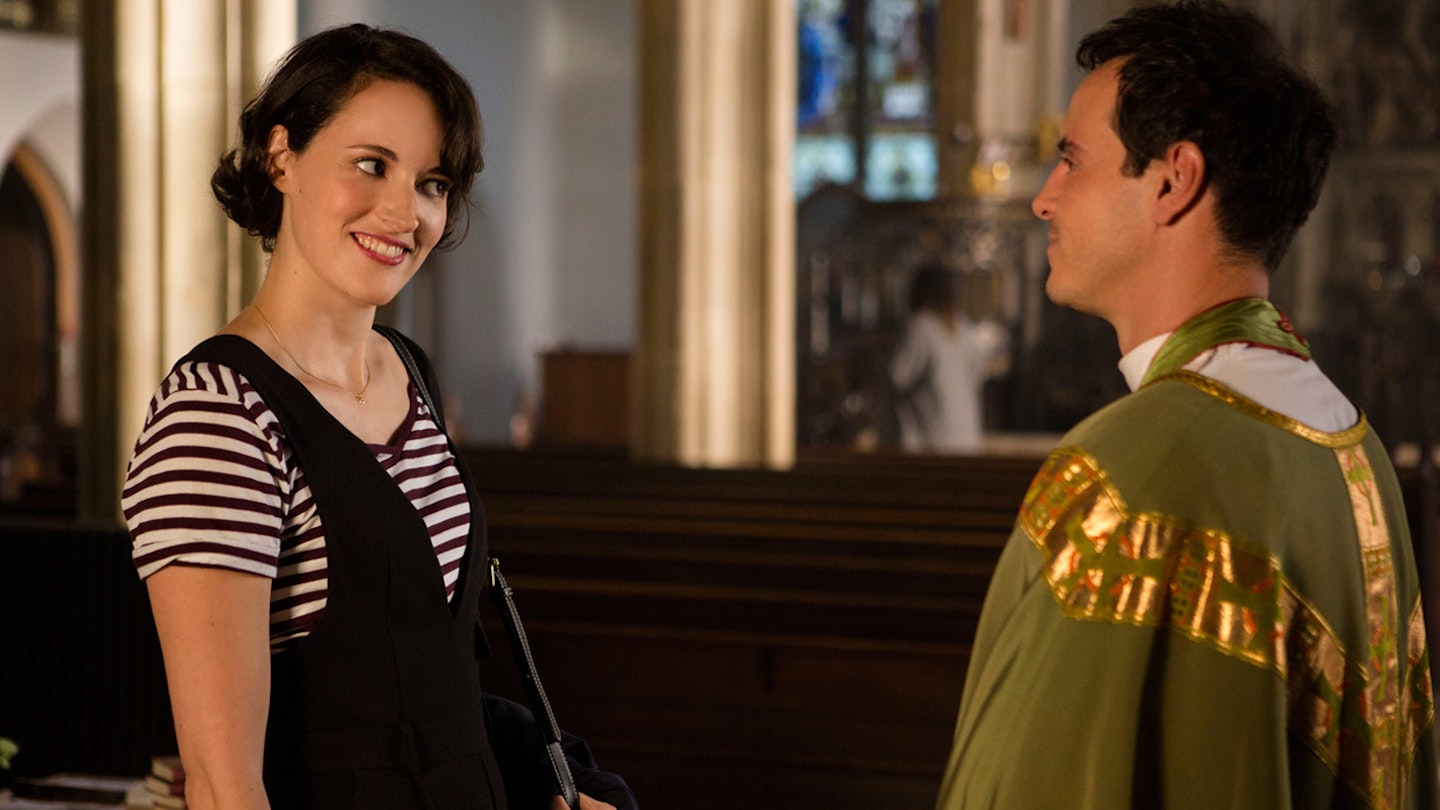
Phoebe Waller-Bridge’s deservedly many-Emmy award winning Fleabag takes her already vaunted, incredibly incisive, and frequently filthy one-woman show and turns it into an unmissable TV series — one that allowed its creator to explore the emotional waters of womanhood in the 21st century to a much greater degree. Writing and starring, Waller-Bridge indelibly brings to life a young woman trying to reconcile her worldview and actions with the impact it has on those around her. The show is filled with moments that will make you giggle and leave you a little red-faced, but Waller-Bridge’s refusal to shy away from the darkness at her story’s heart is what makes the series transcendent. Stellar turns from Olivia Colman and Sian Clifford anchor the show through both seasons, while All Of Us Strangers star Andrew Scott’s introduction as the man known simply by the masses as Hot Priest takes things to a whole other level. This show is also the reason we can’t sit at bus stops any more without crying. So much for “It’ll pass.” It’s been five years and we’re still not over it!
20) Band Of Brothers (2001)
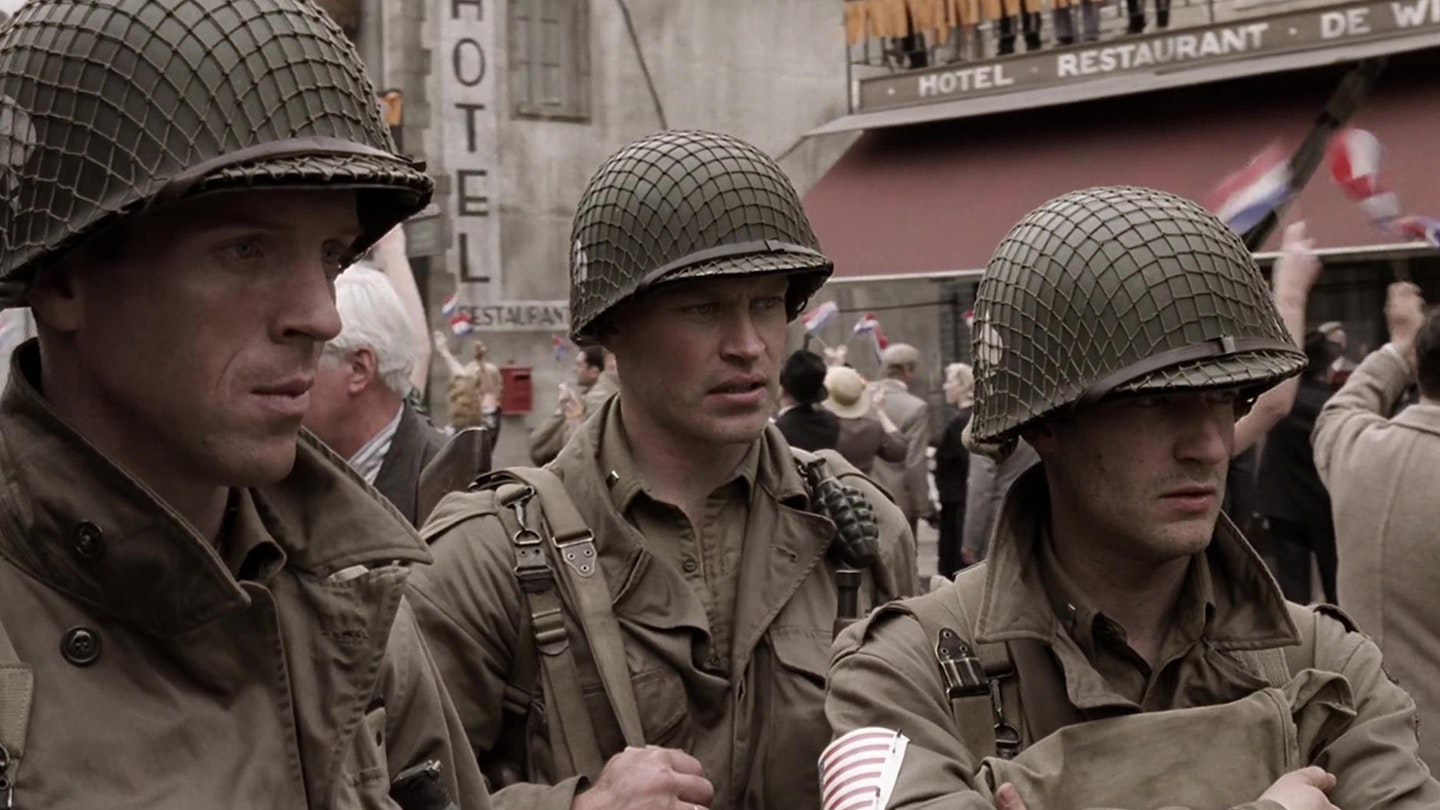
When Tom Hanks develops a TV miniseries and has Steven Spielberg as one of his key collaborators, you know you're in for a treat. So it was with Band Of Brothers, which Hanks and Erik Jendresen drew from Stephen E. Ambrose non-fiction tome. The fictionalised account of "Easy" Company, 2nd Battalion, 506th Parachute Infantry Regiment, of the 101st Airborne Division — or, er, EC2B506PIR101AD for short — and their training and dangerous missions in World War II provide the backdrop for affecting drama and nail-biting action. Saving Private Ryan may have been the template, but Brothers limited series format allowed Hanks and the rest to dig even deeper into the soldiers' lives and the risky situations they entered. At the time, it was the most expensive miniseries put on screen, but there’s no denying that every penny is up there.
19) Star Trek: The Next Generation (1987-1994)
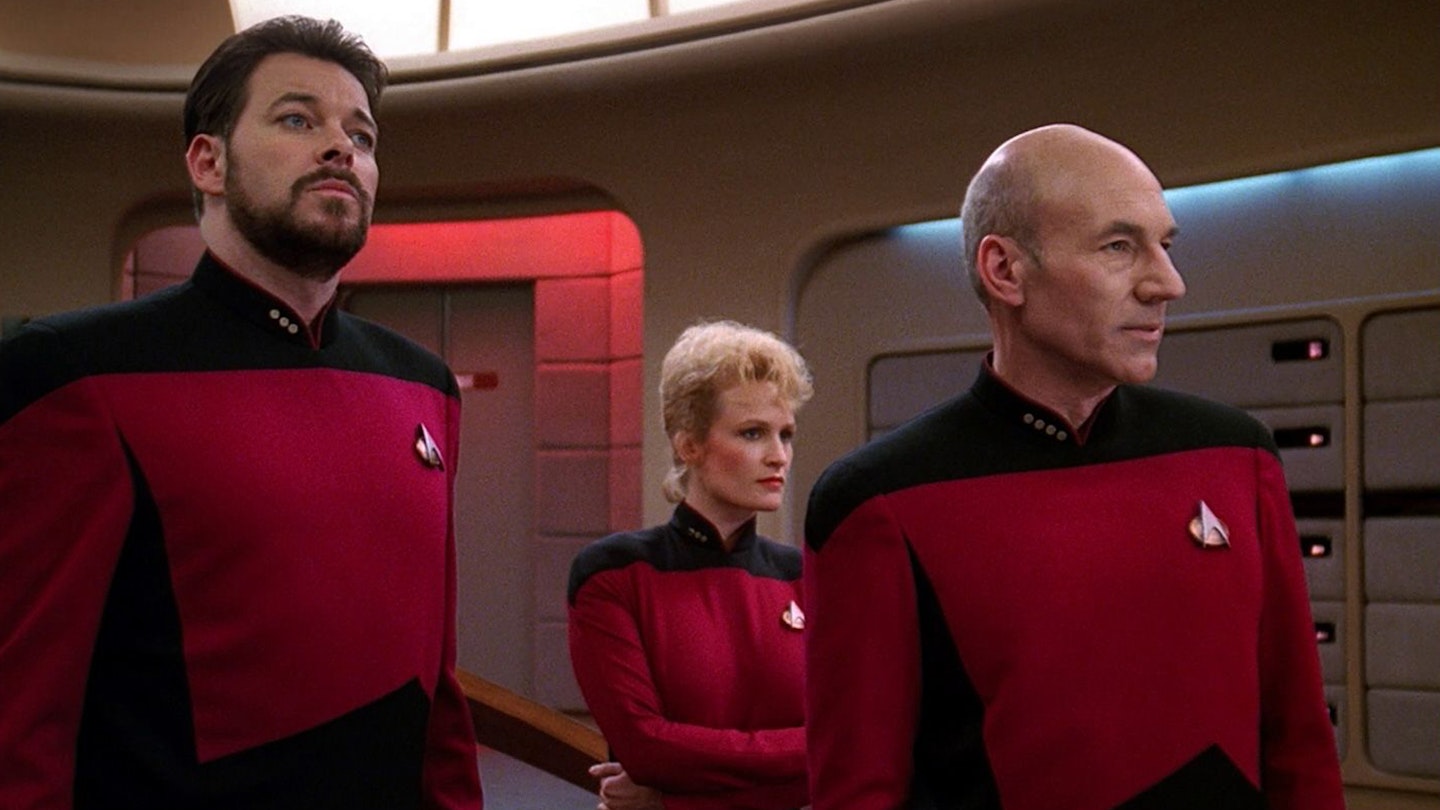
Following one of the most famous science fiction series in TV history is, to put it mildly, no easy task. Yet despite some early stumbles (pilot _‘_Encounter At Farpoint’ is all exposition and less-than-subtle moral lessons, while the first two seasons see clunkers outweighing memorable episodes), The Next Generation grew into itself – fittingly, just as the crew's uniforms began to look comfortable. Big new enemies emerged, the cast found its rhythm, and Patrick Stewart in particular shone as Jean-Luc Picard, a fantastic captain who carved his own niche and avoided being a Kirk clone. The Trek universe grew bigger and richer with TNG, paving the way for further spin-offs that would only deepen an already rich mythology.
18) The Shield (2002-2008)
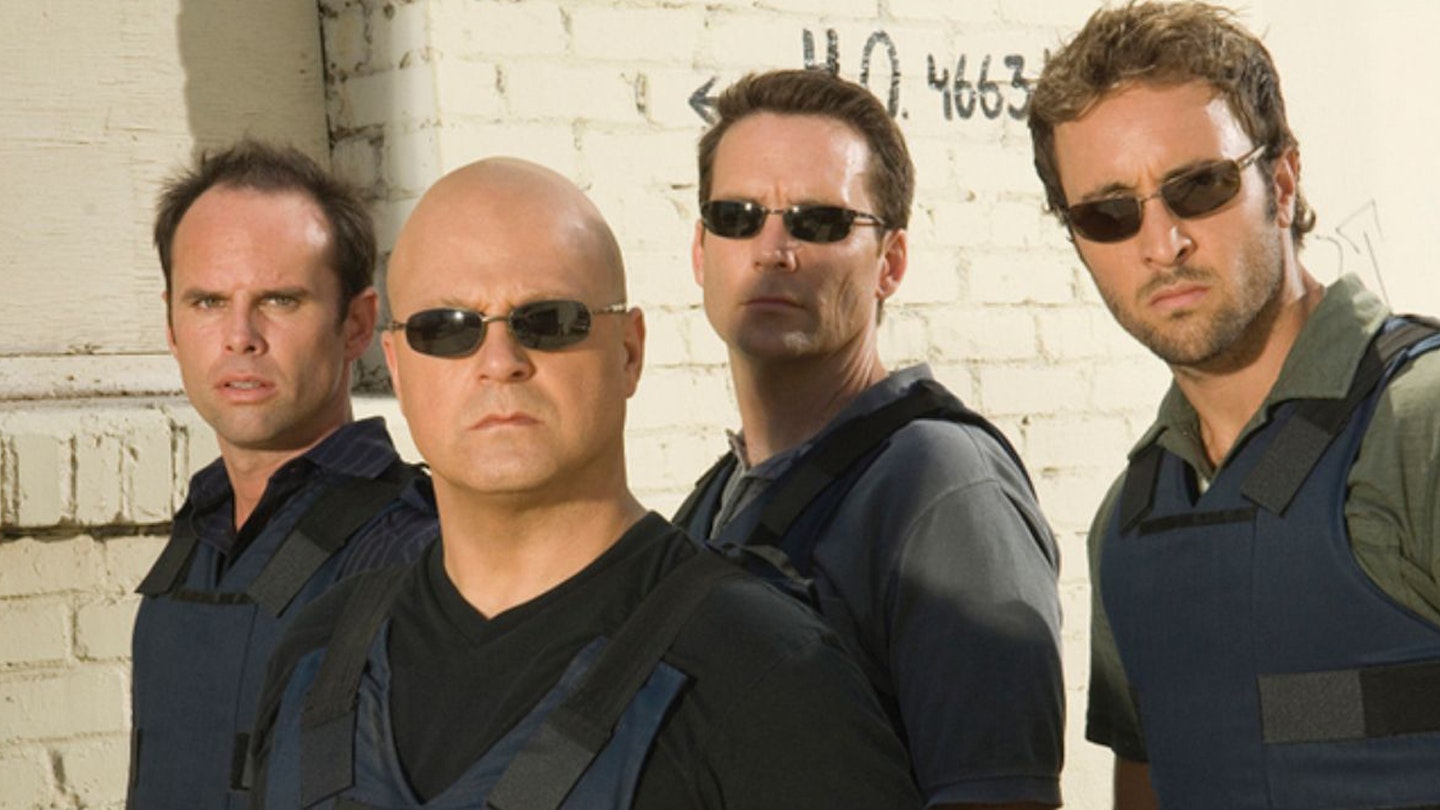
When the very first episode of a show sees the lead character shoot a fellow cop in the face to cover up his own corruption, you know you're not watching a run-of-the-mill police procedural. A brutal look at life behind the badge, Shawn Ryan's down-and-dirty drama basks in its protagonist's cavalier approach to right and wrong, and a reliance on street justice over the letter of the law. It's to Michael Chiklis' eternal credit that, despite acts of murder, torture, theft, drug distribution and other transgressions too numerous to list, charismatic detective Vic Mackey remains a (somewhat) sympathetic character right to the end. You just wouldn't want to get on his bad side.
17) The Leftovers (2014-2017)
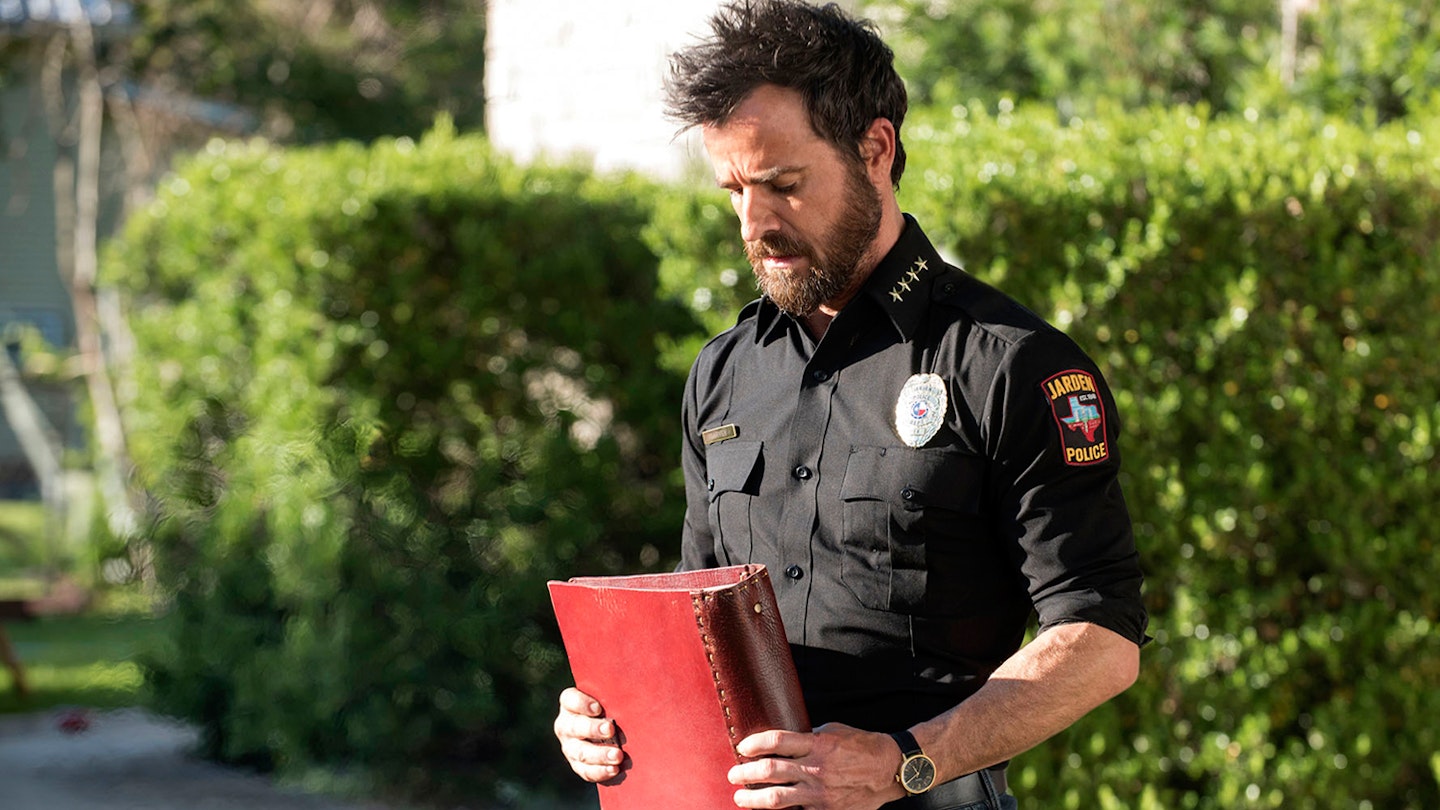
As one of the key players (and co-creator) of Lost, whatever Damon Lindelof did next was going to be closely watched. His adaptation of Tom Perrotta's novel – co-written with him – for HBO takes place three years after two percent of the global population vanished for reasons that remain unexplained. The world is still trying to cope with the scale of the tragedy and the emotional ramifications, with cults springing up and madness slowly descending. Powerhouse performances from Justin Theroux and particularly Carrie Coon are our guides through this changed, traumatised landscape. In lesser hands, this could be a real misery fest, but in Lindelof and Perrotta's, the story is shot through with black humour and lands perfectly as one of the most gripping shows of the last decade.
16) Deadwood (2004-2006, 2019)
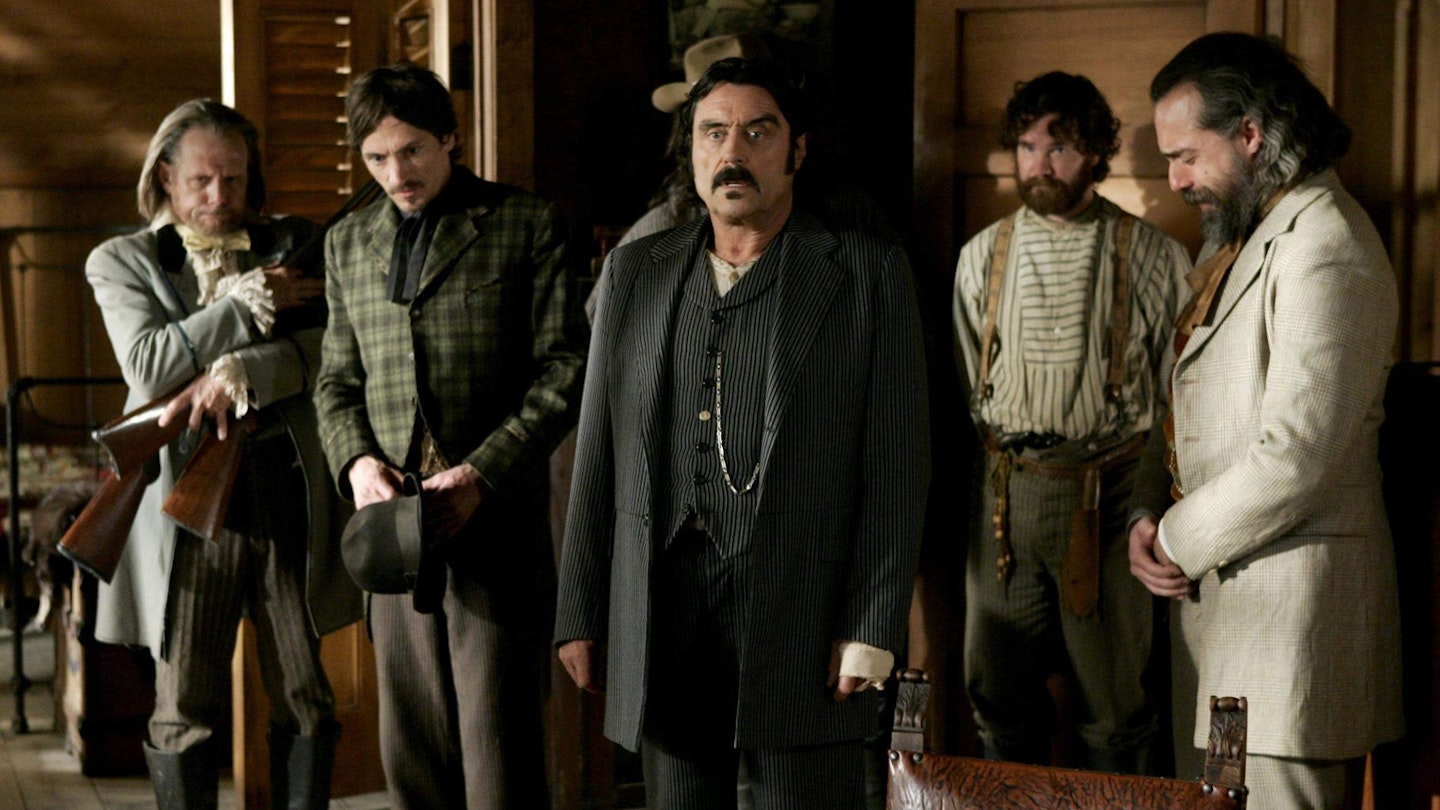
The rootinest, tootinest, sweariest show that ever dared raise its head on television? That'll be Deadwood. Set in the lawless Dakota Territory town, at a time when the disenfranchised of the world descended on the Black Hills to find their fortune, David Milch's masterpiece presents its frontier townspeople as disparate souls with morals muddier than the main thoroughfare. Happily throwing traditional notions of good and evil out the saloon window, the show constantly shifted audience loyalties, presenting a world where every act, noble or not, has repercussions. And in the shape of Ian McShane's fantastically foul-mouthed and impeccably named barman, Al Swearengen, we got one of television's most complex and interesting characters. The follow-up film, aptly titled Deadwood: The Movie, is not to be slept on either.
Read the Empire review here.
15) Twin Peaks (1990-2017)
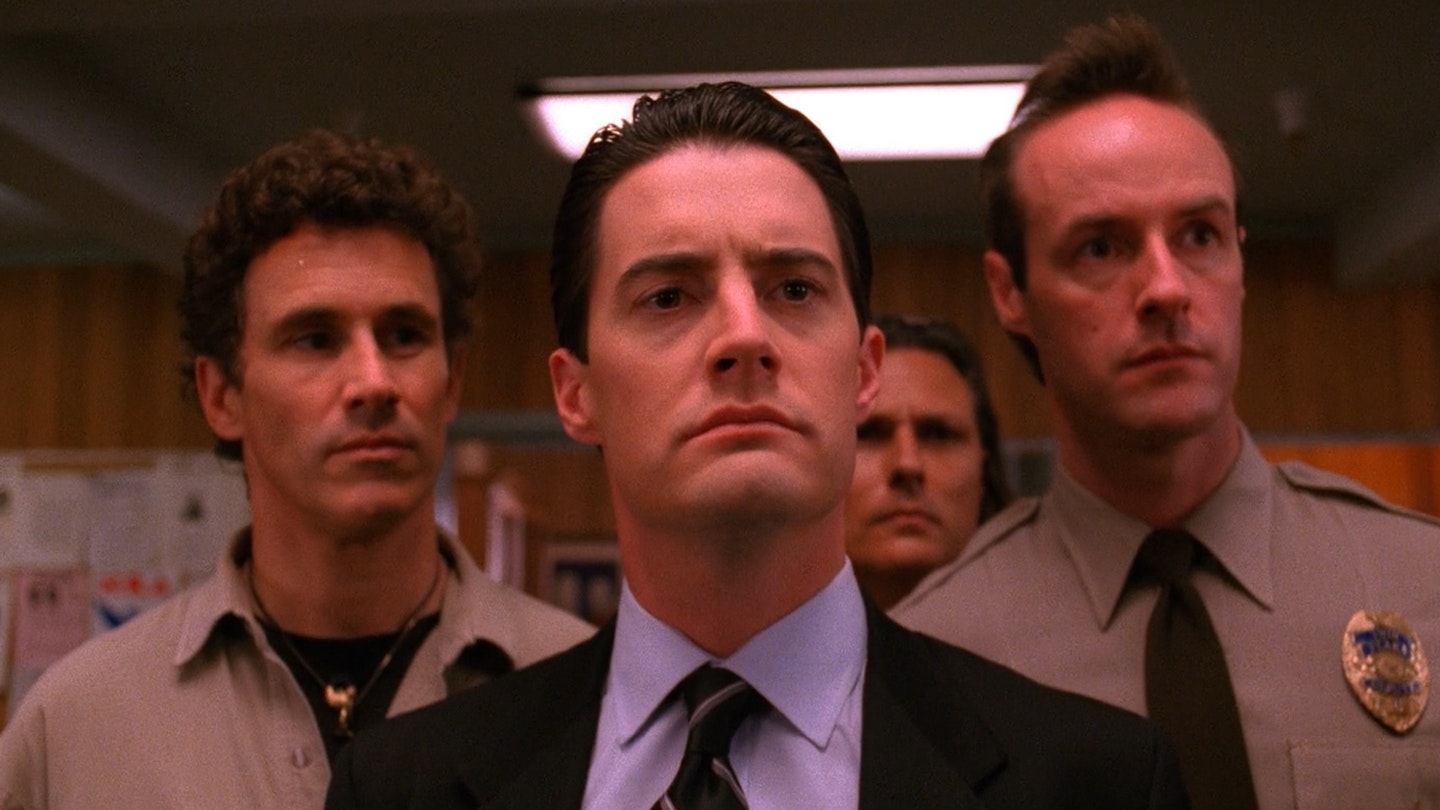
Who killed Laura Palmer? That was the question on everyone's lips during 1990 as David Lynch's bizarre small town mystery unfolded on our screens. A demon called Bob, a little man who talked backward, and minor pie fetish were just some of the features on display here. But despite a healthy dose of surrealism everything fell into place – until the network encouraged them to wrap up the Palmer mystery in the first half of Season 2, and it was forced to pose new questions like, 'Who is Windom Earle and what in God's name is going on?' If it started to fizzle from there, the original run still went out on a killer finale. 25 years later, as promised, it happened again. A revival series, directed entirely by Lynch, brought back plenty of the original cast for an even darker, even more elliptically weird trip into the uncanny – proving Twin Peaks is still as confounding as it ever was.
14) The Simpsons (1989-present)
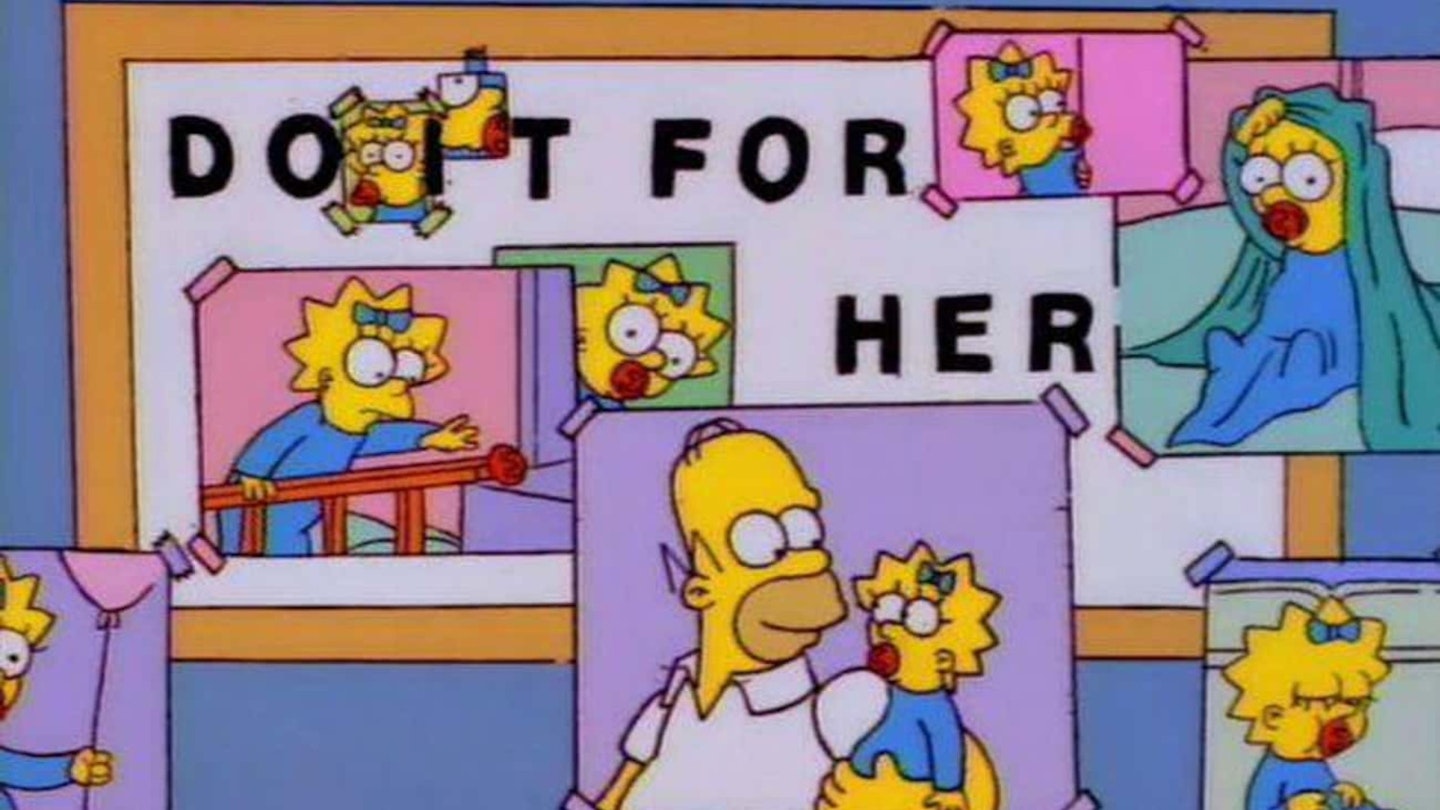
Any show that runs for 30-plus seasons is bound to come in for some stick about not living up to former glory. But be honest: what could compete with The Simpsons at its height (around Seasons 4-8, according to most people, though there's still gold to be found after that point)? Still, the continuing misadventures of Homer, Marge, Bart, Lisa and the multitudes surrounding them still find plenty of scope for laughs, commentary and pop culture nonsense. It's already in the telly hall of fame, and continues to bring out great episodes at a higher ratio than some of its less long-running brethren (looking at you, Family Guy.)
13) Lost (2004-2010)
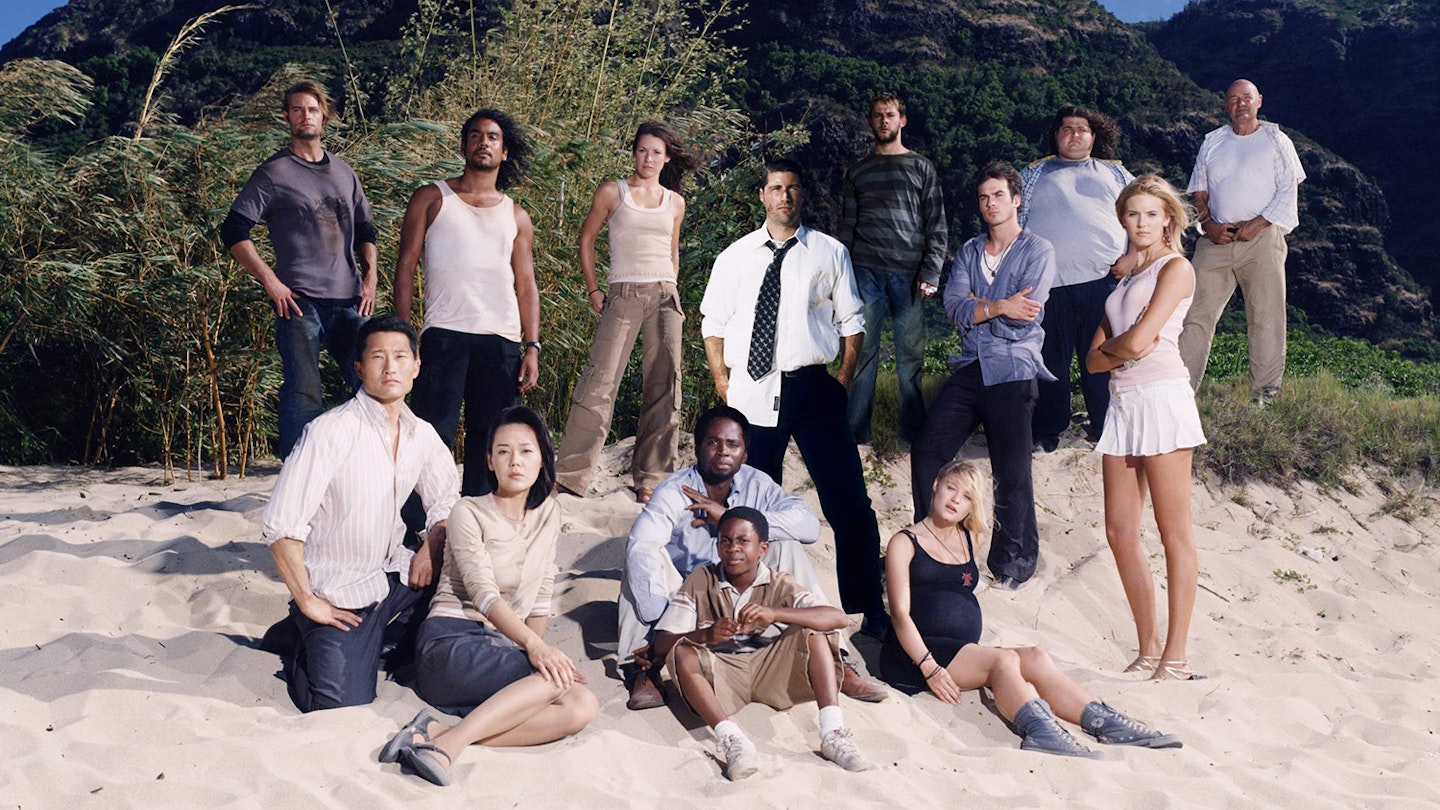
Few TV shows gripped viewers' imaginations quite like this hybrid of The Swiss Family Robinson and Twin Peaks. A byzantine central mystery intertwined with character-centric subplots (expertly embellished through the use of flashbacks, flashforwards and eventually flash sideways) kept audiences captivated and spread the focus across the entire ensemble cast. But aside from the host of colourful characters – from earnest Jack to cocky Sawyer, cunning Juliet to bug-eyed Ben – it was the ever-deepening mysteries that kept us coming back: what did the numbers mean? What was the black smoke? Who were The Others? And just what the heck were the "rules" anyway? Also, you know that thing everyone always says about the ending? They’re wrong. Just watch for yourself and you’ll see.
Read Empire’s oral history of Lost here.
12) Battlestar Galactica (2003-2009)
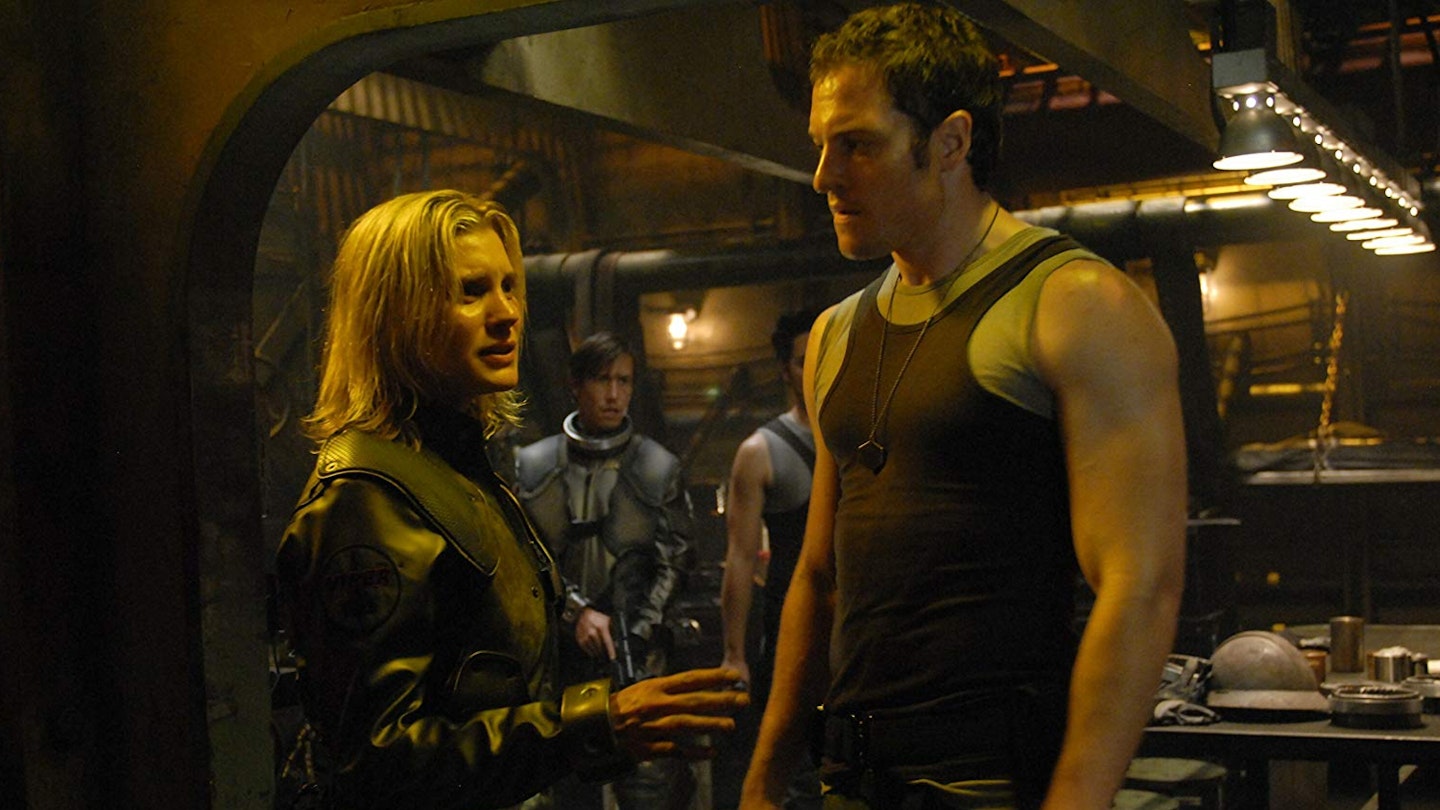
As Hollywood continues to indulge in self-consumption through a never-ending supply of reimaginings and reboots, Ronald D. Moore's Battlestar Galactica demonstrates what happens when it's done right. Created in the shadow of 9/11, this updated take on the 1978-79 series (great concept, poor follow-through) brought relevancy, riveting character arcs and a newfound grit to television science fiction, this ripping chronicle of humanity’s fight for survival against the cybernetic Cylons as they seek the supposed lost colony, Earth, is as riveting now as it was over two decades ago when it started.
Read Empire’s exclusive behind-the-scenes feature on Battlestar Galactica here.
11) Mad Men (2007-2015)
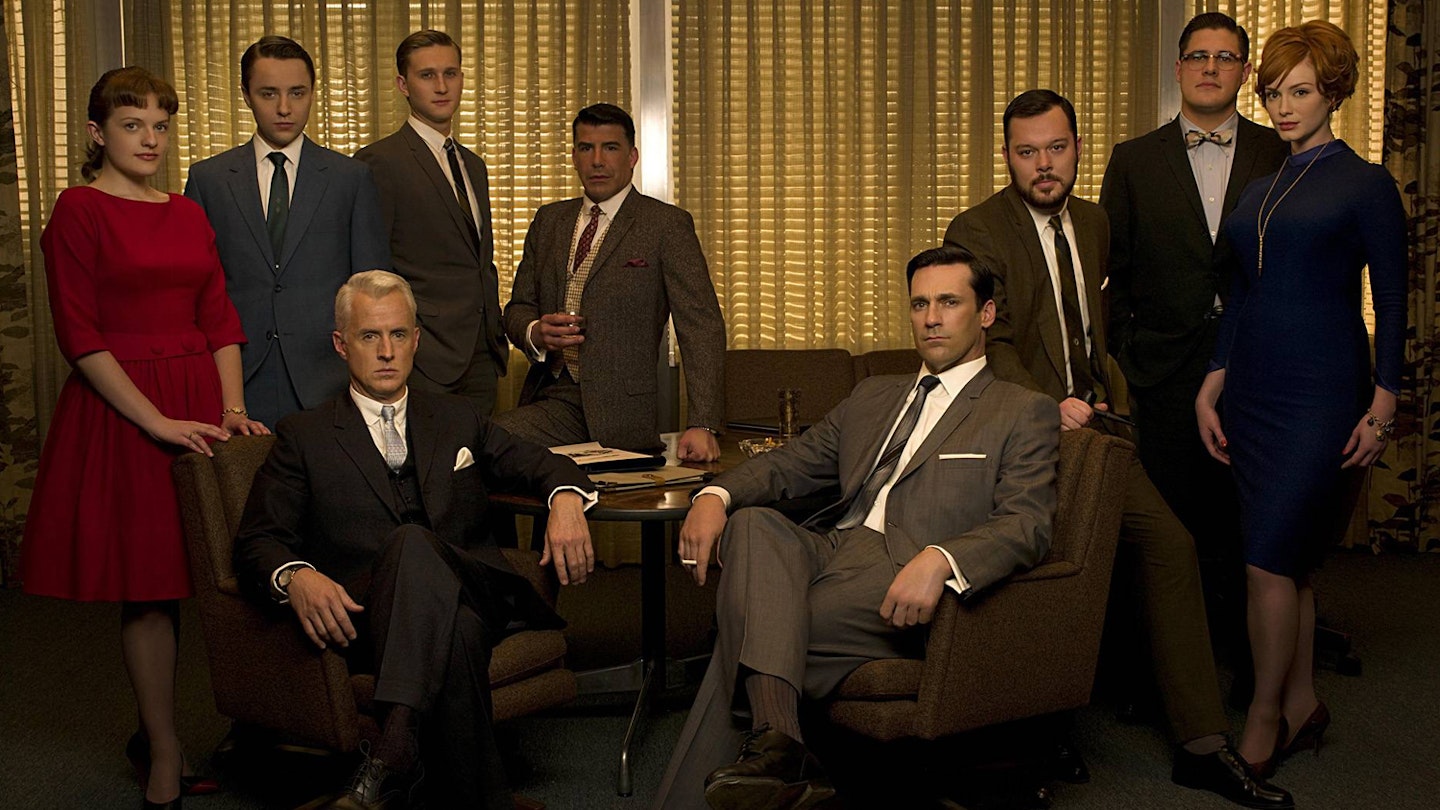
For the unconverted, Matthew Weiner's show is just a lot of people in suits aggressively smoking at each other. But for fans of the multi-Emmy and Golden Globe-winning AMC drama, there's magic in even the slower moments as Don Draper (Jon Hamm) and his advertising kin negotiate first the perils and pitfalls of Madison Avenue, then a fast-changing America, often while sloshed on whiskey and martinis. A show of great moments (the lawnmower, the death of Lane, Betty's shotgun, the LSD), it made an early bid for greatness and maintained it across seven seasons. There aren't many shows you can say that about.
Read Empire’s exclusive discussion of Mad Men’s secrets with showrunner Matthew Weiner here.
10) Buffy The Vampire Slayer (1997-2003)
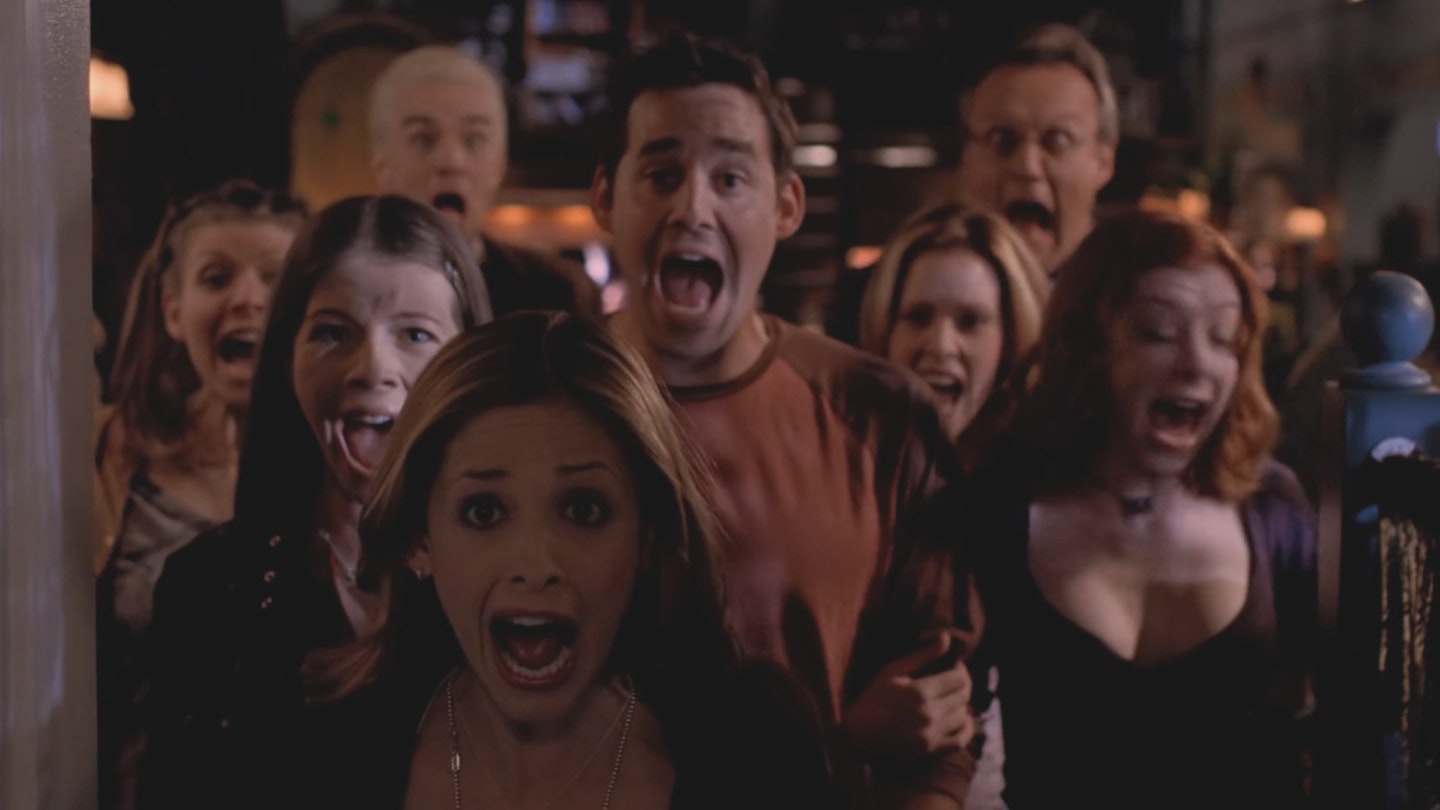
Imagine, for a moment, a world where the only version of Buffy was the movie. Terrifying, isn't it? Fortunately, Joss Whedon reclaimed his knowing, meta stab at horror movies with the TV incarnation, casting Sarah Michelle Gellar as the cheerleader-turned-chosen-one supernatural slayer and launching a thousand memorable lines of dialogue. Buffy excelled because it ran real-world struggles through the medium of fantasy and horror (and occasionally song), giving us great villains, romantic entanglements that felt painfully honest, and a Mystery Inc. style gang we'd all hang out with. And even despite recent years’ sobering revelations regarding toxic behaviour occurring behind the scenes of the show, what we see on screen — and the connection shared between fans and the cast of Buffy — will never die.
Read Empire’s exclusive look back at Buffy’s legacy here.
9) The OA (2016-2019)
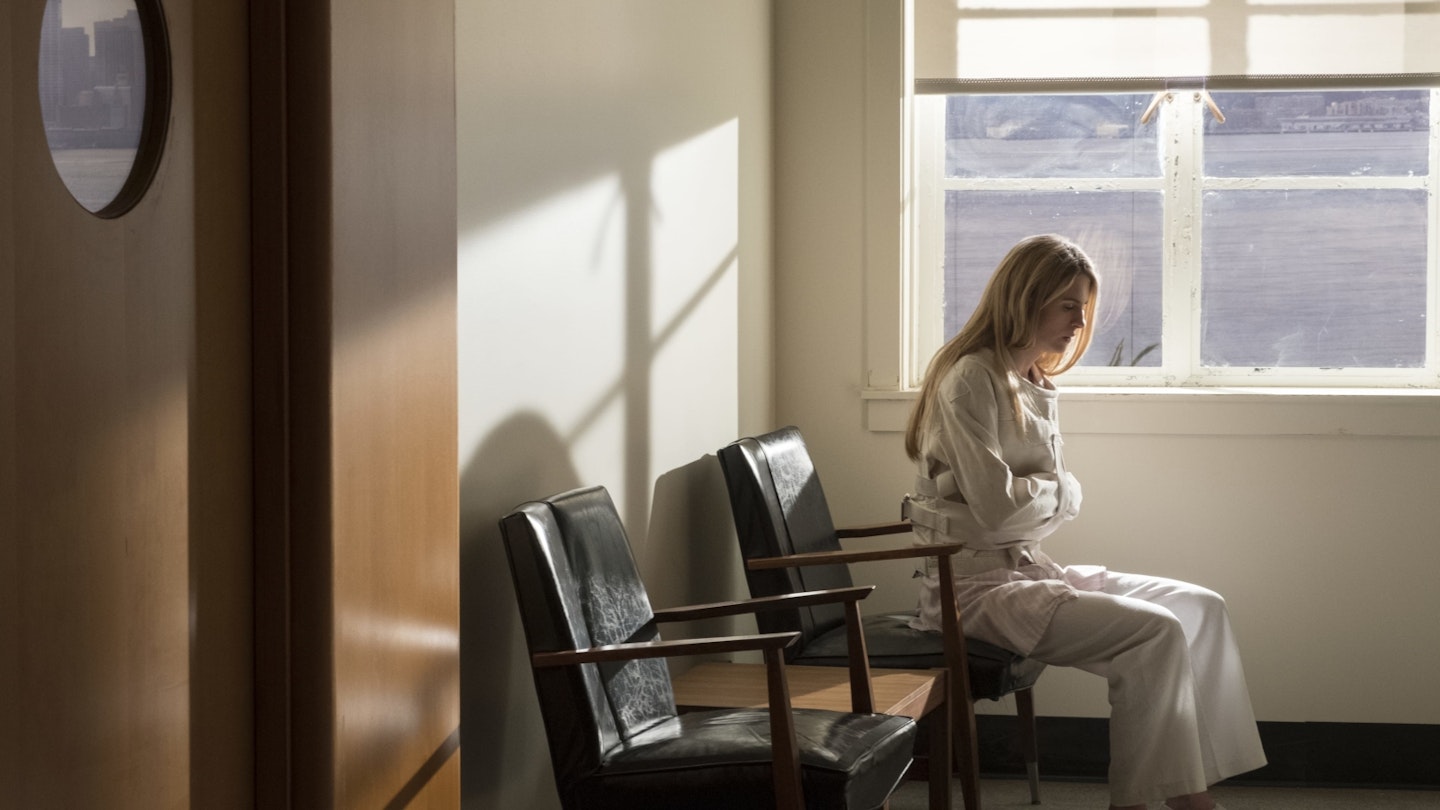
Commissioned by Netflix from talented indie filmmakers Brit Marling and Zal Batmanglij in an attempt to prove streaming services could branch out in unexpected directions, this complex, twisty tale of parallel dimensions, kidnapped test subjects and a calculating Jason Isaacs burned brightly, acquiring a devoted following along the way. This only made the show’s untimely cancellation in 2019 — with a giant cliffhanger left unresolved no less — all the more baffling. And whilst not all shows deserve to be brought back to life, The OA absolutely does. With Marling anchoring the series as the haunted, powerful Prairie, herein lies a show that melded the weird with the wonderful effortlessly and intelligently, twisting noodles and stealing our hearts at the same time. It honestly would have been fascinating to see where it was all ultimately heading. And years later, even if Marling and Batmanglij have moved on to other projects, we’re still campaigning for the show’s resurrection. #SaveTheOA!
Read the Empire review here.
8) Better Call Saul (2015-2022)
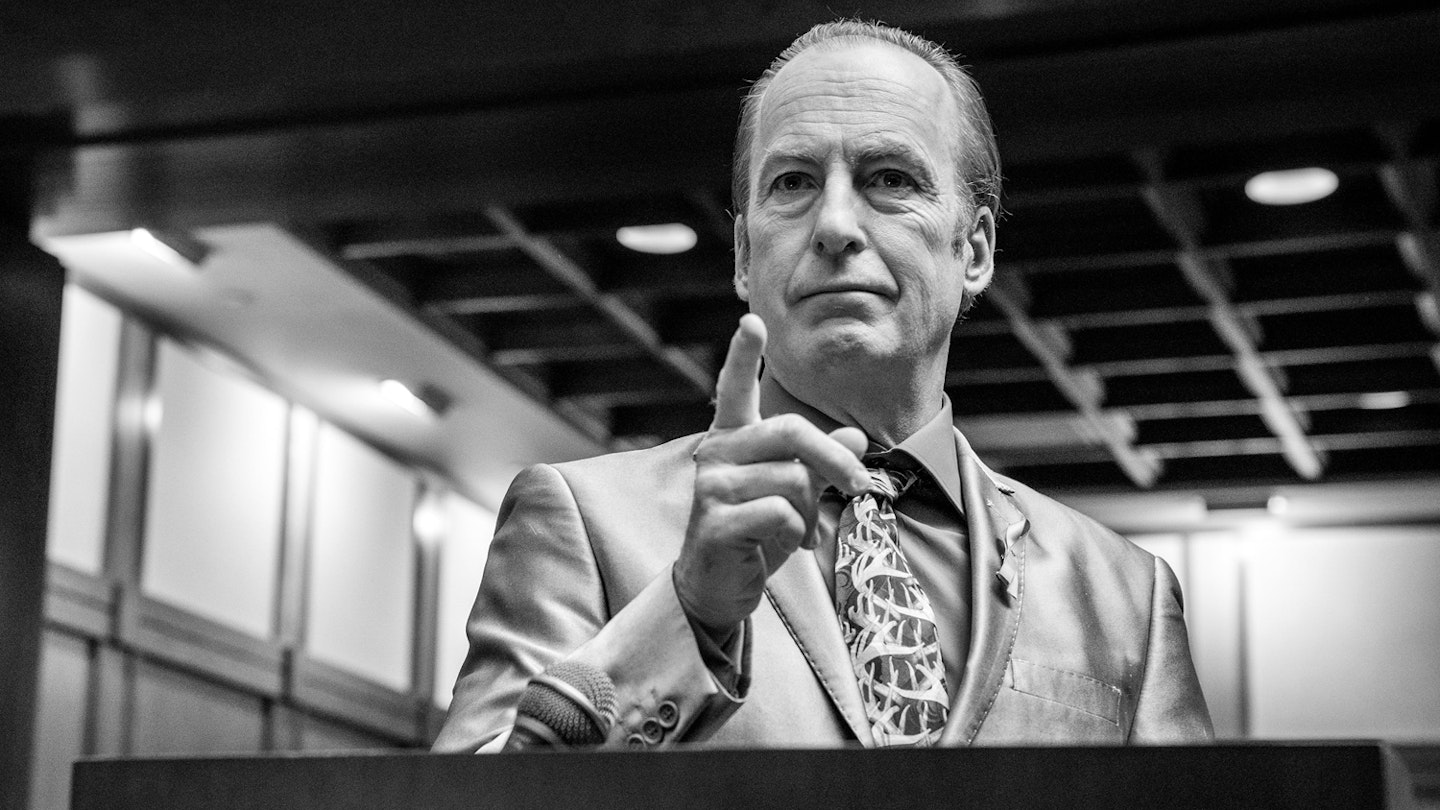
There's a reason Breaking Bad is renowned as one of the all-time greats, so for Vince Gilligan and his fellow writers to attempt a spin-off – a prequel, no less, with all of its own challenges and comparisons – took some bravery. Thankfully, they picked the perfect character to follow in Bob Odenkirk's Slippin' Jimmy McGill, AKA the man who will be Saul. Odenkirk, who had largely popped up as comic relief on the main show, here gets to demonstrate real depth and dramatic chops as a con man sliding to a whole new level, dragging down friends and family as he goes. It's a tribute to all involved that it works so well, with fellow cast members Rhea Seehorn (as Kim, who loves Jimmy despite his obvious faults, is a better lawyer than he could ever hope to be, and winds up… well, we won’t spoil it), Michael McKean (as Chuck, his troubled, cunning brother), and Jonathan Banks (as a pre-Breaking Bad, beautifully fleshed out Mike Ehrmantraut) bringing real soul to the show. By the time it reached the end of its run in 2022, some would argue Better Call Saul even transcends its predecessor. It’s a case we reckon Slippin’ Jimmy himself would quite happily make. Honestly, it might even be one he could win.
Read the Empire review of the final season here.
7) The West Wing (1999-2006)
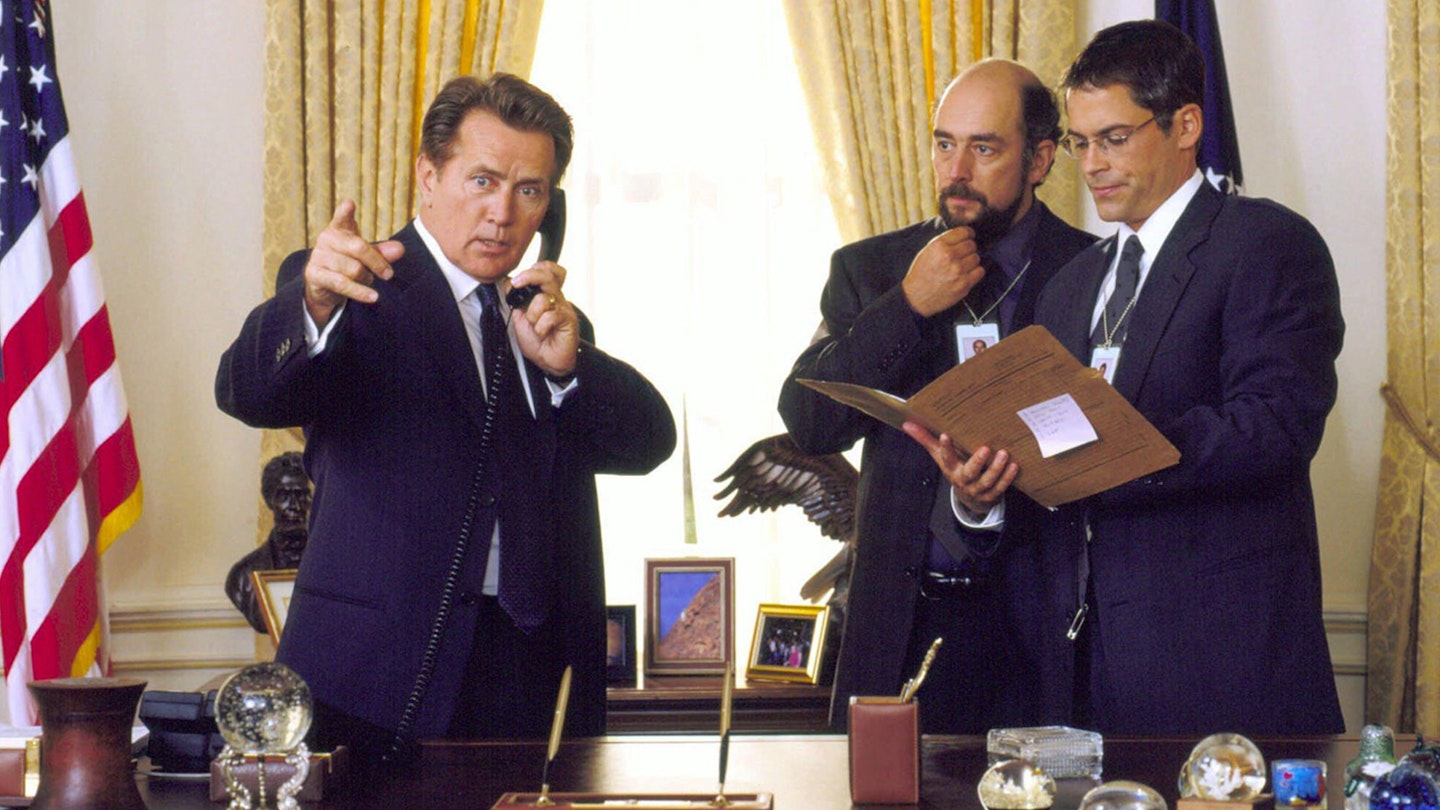
For a long time, a walk-on part in The West Wing was the pinnacle to which all jobbing TV actors aspired. Smart and funny, Aaron Sorkin's political drama showcased the writer's gift for rapid-fire dialogue and layered, politically resonant storylines, proving that television could be funny and insightful all at the same time. The series took a temporary downturn after Sorkin's departure at the end of Season 4, but rallied soon after with a number of surprising changes to both character roles and format. It all came to a natural close at the end of President Bartlet's second term in office, but The West Wing remained one of the most intelligent shows on television throughout its run and a comforting image of what a more benevolent White House could look like. And if, like us, you find yourself obsessed with the show? Don't tempt the wrath of the whatever from high atop the thing, read our Definitive History Of The West Wing right here,
6) Friends (1994-2004)
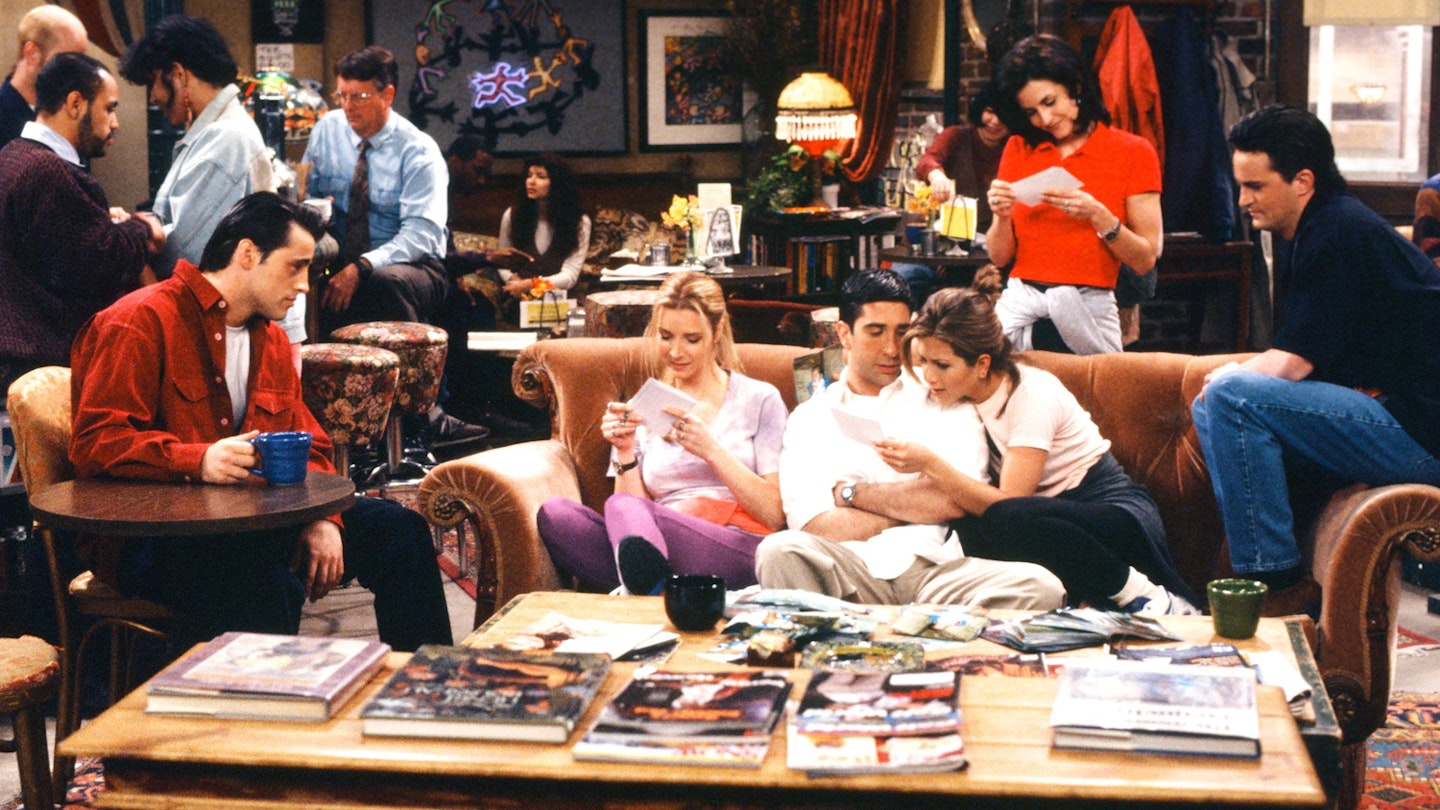
How is it that a certain digital TV channel can show this quintessential '90s sitcom on a virtual loop and it doesn't get old? Or that Netflix can have a juggernaut hit with it, decades after its original airing? It's because Friends, at its best, is as perfect a sitcom as you will find. In its earliest days, the adventures of six beautiful New York-dwelling pals who apparently earned money by drinking coffee featured writing much sharper than the cuddly exterior suggested. Even when the quality dipped a little mid-run, the ensemble remained perfectly matched and the best comedy collective on TV. And by the time the show reached its conclusion, watching Ross, Rachel, Chandler, Monica, Joey, and Phoebe say their final farewells truly felt like the end of an era. Could it be any more emotional? We don’t think so. And 20 years later, Friends is still The One We're Always Rewatching.
5) Succession (2018-2023)
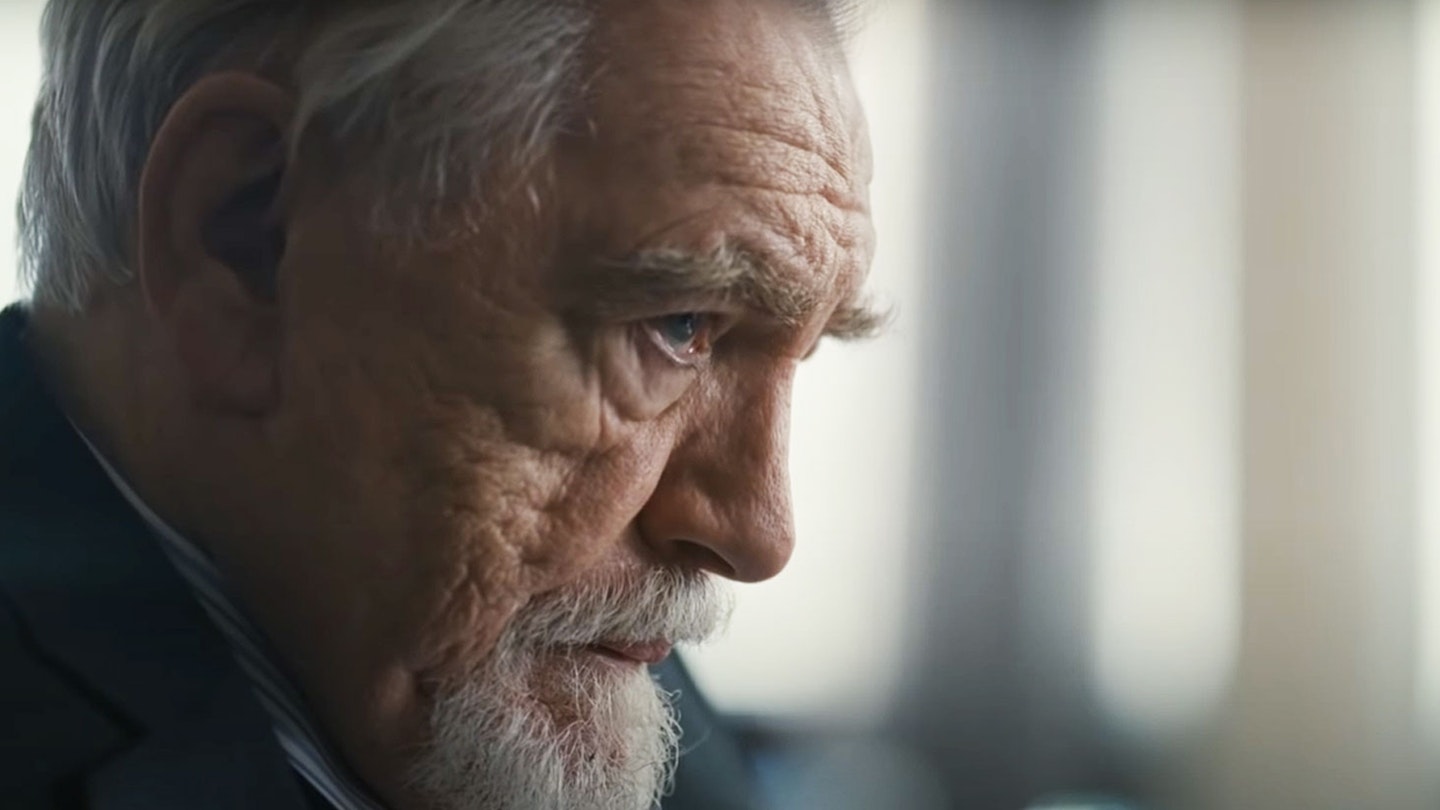
When last we compiled our list of the 100 best TV shows, Succession, at that point only two seasons into its run, didn’t figure in our list at all, despite the Roy family saga already being essential viewing. That the show now ranks among the very greatest series ever made is a testament to the way creator Jesse Armstrong, his writers, his cast, and his crew continuously upped their game season after season, never pulling their punches as they skewered the cannibalistic world of the mega-rich with spiky dialogue, barbed banter, and a frankly Shakespearean level of crossing, double-crossing, backstabbing, and familial feuding. Brian Cox puts in a career-defining performance as shaper of views, creator of news, and father of many Logan Roy, a King Lear for the modern age of megacorporations and media empires. And around Cox one of the greatest ensemble casts in television history — Sarah Snook! Kieran Culkin! Matthew Macfadyen! Jeremy Strong! Alan Ruck! — assemble, each playing a differently tortured and equally diabolical pawn in Logan’s ultimately unwinnable game. Sure, most of Succession consists of thoroughly loathsome, decidedly not serious people in sterilely shot boardrooms having serious conversations that we only really ever half-understand. But what can we say? Its high stakes storytelling, ill-advised birthday raps, endlessly quotable dialogue, spontaneous moments of guttural emotion, and delicate blend of deeply contextually aware and yet deliciously escapist television drama is just perfect. Now can we get an L to the mother-effin’ OG?
Read the Empire review of Succession’s final season here.
4) The Wire (2002-2008)
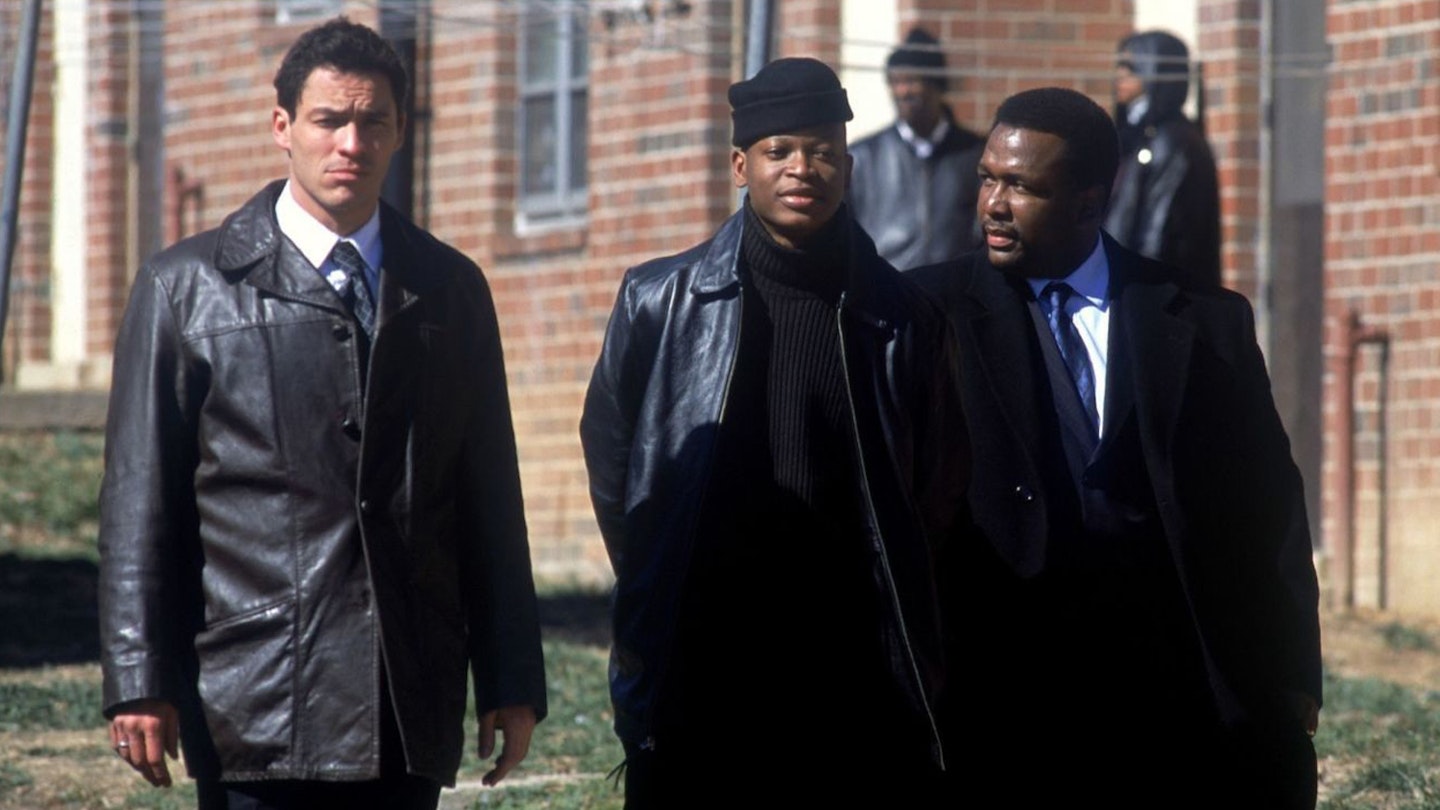
David Simon famously once said that he intended The Wire as "lean-in" television, a show that you couldn't watch while folding clothes or dusting the mantlepiece. His Baltimore-set series demanded your attention, its slow-burn storytelling never less than totally compelling. Simon crafted a series that skips the usual procedural tropes, looking instead at the linked worlds of cops and criminals in a way that highlights the humanity clouded by labels. High stakes, big emotions and even a scene conducted almost entirely with creative use of the F-word are all part of the reasons why this show became one of the greatest. Later seasons expanded the focus to other areas – politics, the school system, and newspapers, to name a few – but the laser accuracy remained the same. The ensemble cast (the likes of Idris Elba and Michael B. Jordan among them) never put a foot wrong. If you've somehow never got round to watching it, lean in – you won't regret it.
3) Game Of Thrones (2011-2019)
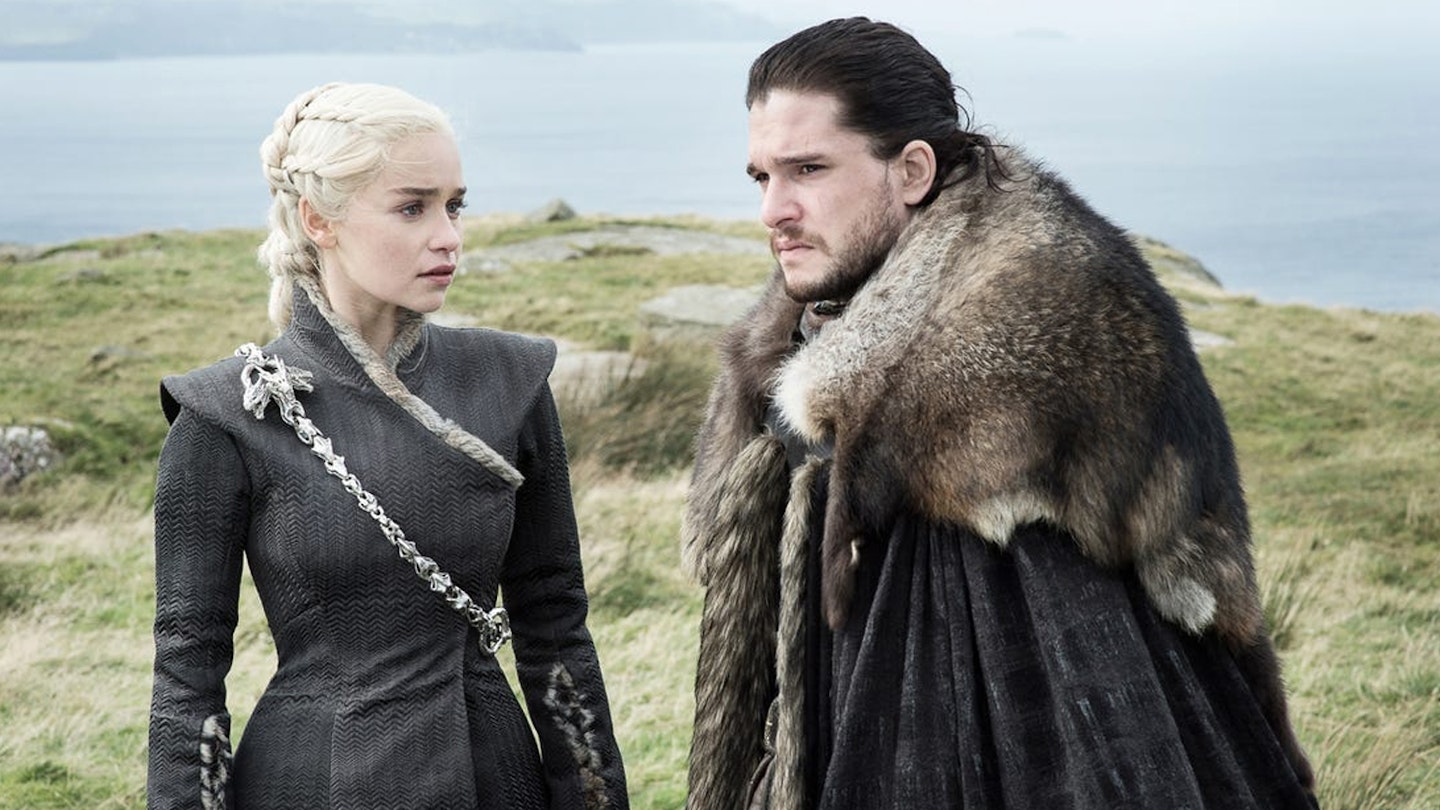
TV – and the lesser restrictions/bigger budget allowed by HBO – really was the only place Game Of Thrones would have worked outside of George R.R. Martin's books. And even then it was a juggling act given the sedate pace of the author's output. And yet despite the challenges of striking out on its own narrative, featuring significant changes from the printed page, much of what people enjoyed about Martin's mixture of fantasy and grimy medieval politics remains firmly intact. Thrones at its best was almost untouchable: huge effects sequences, battles with real stakes and, powering it all, characters that you cared about, whether they were talking about morality or shoving it aside to light up an entire sept full of enemies. With a cast led by the likes of Kit Harington, Peter Dinklage, Emilia Clarke, Lena Headey and Nikolaj Coster-Waldau, Thrones is full to the brim with all the death, betrayal, laughter and dragons that you might wish for. Yes, the climax may have divided opinion, but at its best, Thrones enjoyed a glorious reign as the biggest — and best — show on the planet.
Read Empire’s rundown of Game Of Thrones' 34 best moments here.
2) Breaking Bad (2008-2013)
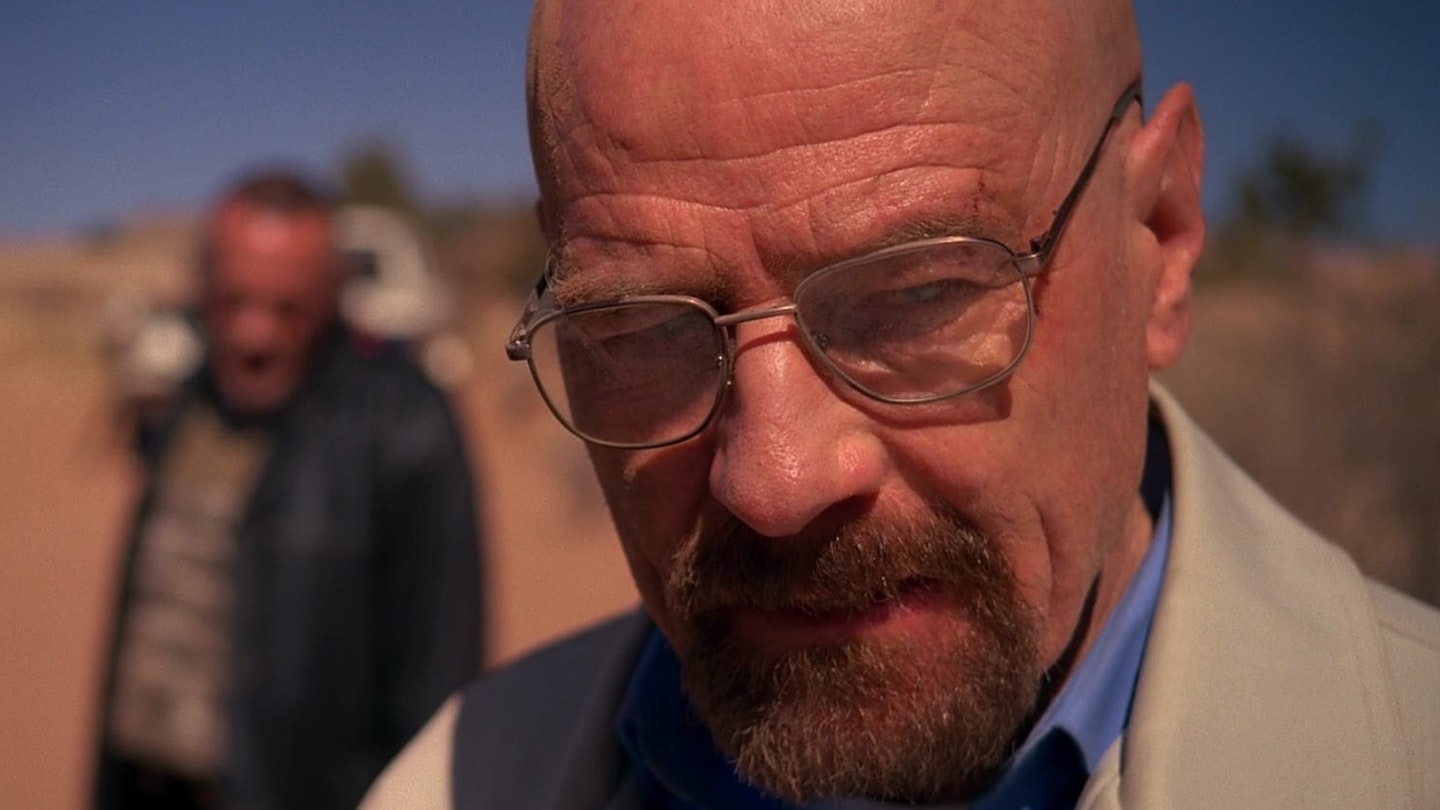
"It doesn't get really good until Season 2," people said. "Stick with it." The first season was not without its moments, and it laid key groundwork for Bryan Cranston's Walter White to later descend from family man to soul-shucked demon, but the second season was when Vince Gilligan's astonishing, gripping, often plain harrowing show really took off. There followed murders, plane crashes, betrayals, ferocious set pieces, indelible dialogue ("I am the one who knocks!") and meth – enormous quantities of meth. A fall like this in a character takes time to chronicle, and the Breaking Bad team stepped up to that, meticulously crafting each turn and shooting the show as though it were a cinematic offering. From claustrophobic crawlspaces to wide desert vistas, the show never looked less than amazing. And it wasn't just Cranston's show, either. Aaron Paul blossomed as Jesse Pinkman (originally intended to die early, he became an integral element), while the rest of the cast brought real life to their characters, with the show’s roster of complex characters running deep enough to wind up helping Gilligan make another all-time great show — Better Call Saul. At the beginning of the binge watch era, Breaking Bad made for some Class A, seriously addictive television.
Read Empire’s list of the 25 best Breaking Bad moments here.
1) The Sopranos (1999-2007)
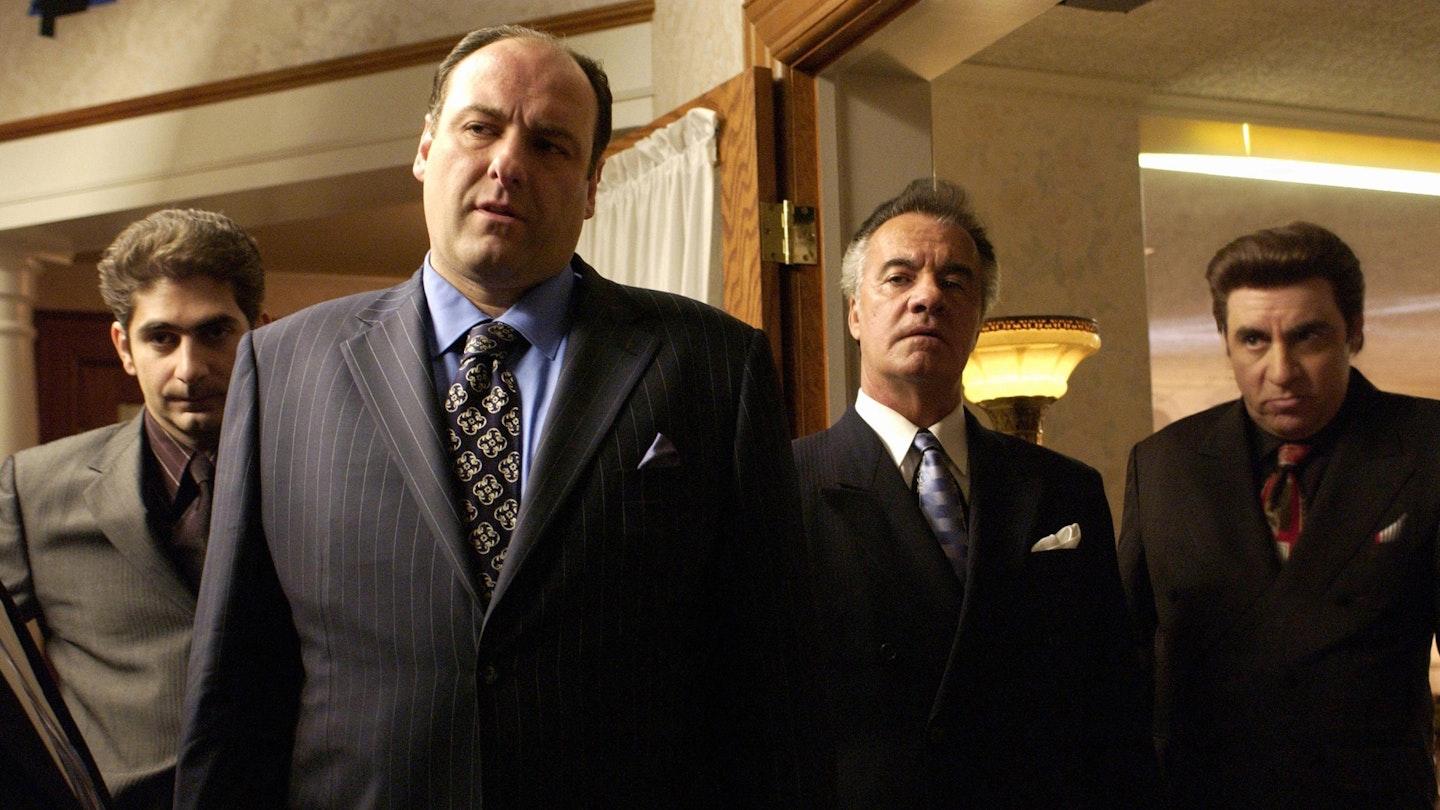
“You woke up this morning, Got yourself a gun / Mama always said you'd be the chosen one.” And The Sopranos has come out on top as your chosen one — and ours. Decidedly not a documentary about opera singers, The Sopranos is instead a dark, offbeat, psychologically needling drama about a New Jersey gangster with a fixation on the ducks who visit his swimming pool. As the first season wore on, viewers became hooked on creator David Chase's uncompromising vision of an old-school criminal organisation beset by all the stresses and tensions of the modern day. It's not hard to figure out why: Chase and his writers locked in on what made Tony and co. work. James Gandolfini delivered a career-best performance as our way into the show, while the family and "family" around him anchored stories that poked below the gangster surface to what made these people truly tick. A fusion of sharp, unpredictable writing and powerhouse acting means The Sopranos' classic status endures.
We spoke to creator David Chase, who shared some thoughts on The Sopranos’ legacy and success some quarter of a century since its pilot first aired. “I want to thank [Empire readers] for watching the show and for continuing to keep it alive. In maybe the second or third season of The Sopranos, there was a poll taken in Britain, where TV writers, critics, actors and so on were asked: "what's the best show?" And they voted for The Sopranos. I'd spent an entire year in college studying William Shakespeare, and I remember just thinking then: "This [response], from the land of William Shakespeare? From the land of Charles Dickens?!" The fact that the show [was resonating] in England stunned me, frankly. It blew my mind then, and it’s the same today. We had a lot of fun making the show, because of the writers, because of the cast, which is all you can hope for. The fact the show still has the longevity it has had, is something we never could have imagined, and something to be very grateful for.” And very grateful we are to Chase for making the greatest TV show of all time. Now excuse us, but we’re off to go grab some gabag– [Cut to black].
If all this TV goodness has sparked your need for some more bingeable watches on the box, check out The Best TV Shows On Netflix UK. And if you're more in the mood for a film, head to our list of The 100 Greatest Movies, for all the cine-goodness you could hope for – all voted on by readers.
